
LUISTER NAAR DE JOODSE STEMMEN OVER
DE ISRAELISCHE MEGA-MISDRIJVEN TEGEN
HET INTERNATIONAAL HUMANITAIR RECHT
JEGENS DE PALESTIJNEN !
THE JEWISH VOICE FOR PEACE - JVP
LEES "THE WIRE" !
BERICHTEN NA 30-06-2025 STAAN HIER

31 juli 2025
We sturen jullie een nieuwsbrief met twee oproepen tot actie. Vanavond is er op tot nu toe 37 treinstations een potten- en pannenprotest, georganiseerd door PGNL.
Bij het ministerie van Buitenlandse Zaken worden 24 uur per dag namen van slachtoffers van de genocide en de uithongering voorgelezen. Daar zijn nog steeds mensen nodig; vooral 's avonds en 's nachts.
Een strijdbare groet van het docP team; blijf BDS-en!
Ja, ik doneer
Vandaag veel sit-ins voor Gaza!
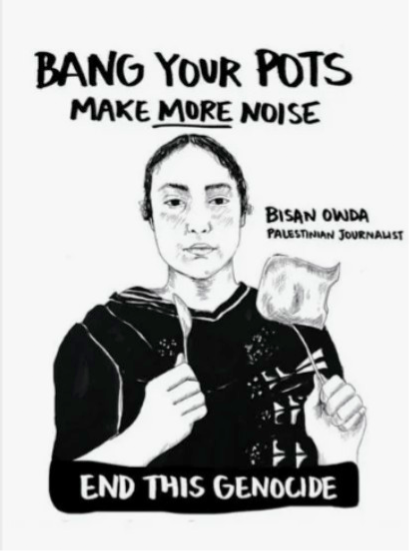
Op veel treinstations worden vandaag sit-ins gehouden, lawaaidemonstraties met potten en pannen. Dit is in antwoord op de oproep van Bisan Owda, de beroemde Palestijnse journaliste.
Zelfs de Nederlandse regering is heel langzaam aan het bewegen. Dus moeten we de druk opvoeren.
Als je nog nooit hebt meegedaan is dit het moment. Gisteren zagen we ook in Amsterdam veel nieuwe gezichten. We hebben iedereen nodig om de druk op te voeren. Door ons beweegt de regering. En met meer druk beweegt de regering verder.
Kom ook naar de wake in Den Haag

Bij het ministerie van Buitenlandse Zaken, tegenover De Haag CS, houdt de Rotterdam Palestina Coalitie nog steeds een wake. Dag en nacht, tot Nederland echt in actie komt tegen de genocide in Gaza. En jij kunt meedoen.
1648.


31 juli 2025
The Trump Administration Must Force Israel To Release 15-Year-Old American Citizen Mohammed Ibrahim From Israel’s Illegal Detention
Mohammed Ibrahim, a 15-year-old American citizen from Palm Bay, Florida, has been illegally locked in Israel’s military prison system since March 2025. Israeli occupation soldiers kidnapped him from his family’s home in al-Mazra’a ash-Sharqiya, near Ramallah, in the occupied Palestinian West Bank, three weeks after he arrived to visit relatives. Israel claims he threw stones at settlers, yet no trial has taken place, and the allegations remain unproven.
TAKE ACTION: DEMAND THE U.S. FREE MOHAMMED IBRAHIM NOW!
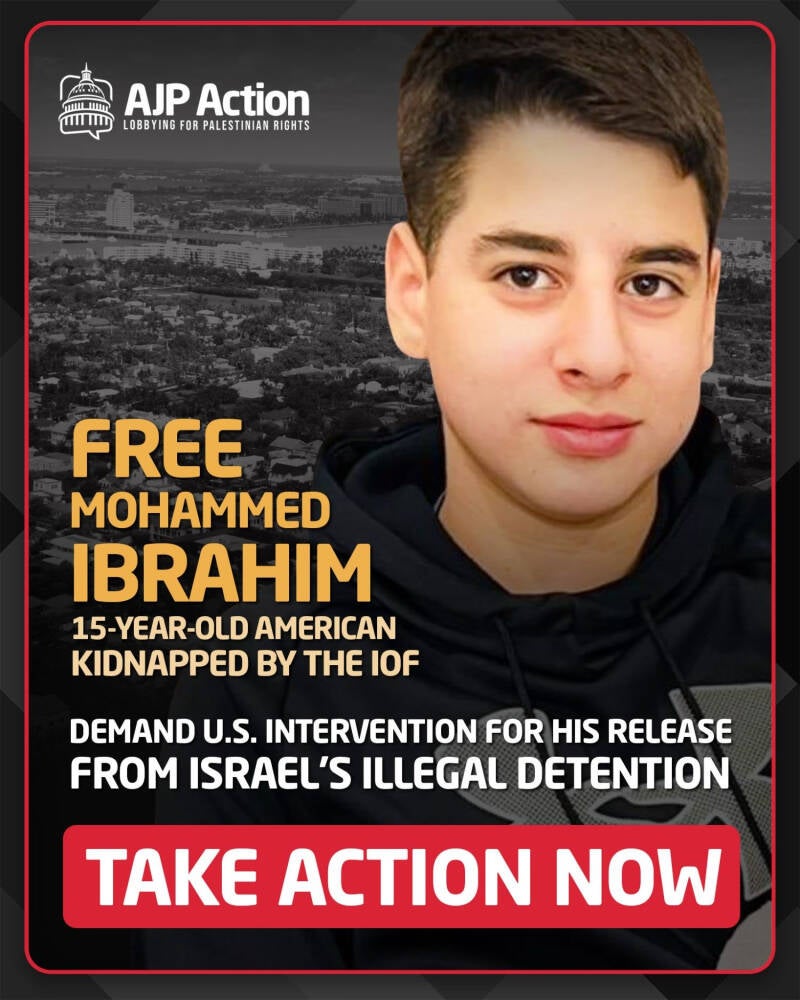
When he was taken, Mohammed weighed 108 pounds. Since that time, he has lost 22 pounds, bringing him down to 86 pounds. Troops blindfolded him at arrest, held him in harsh conditions, and confined him for months in “quarantine” for a scabies infection he contracted in prison as a result of medical neglect by Israelis. His parents have seen him only three times, via a courtroom camera, and every visitation request has been denied.
The family’s ordeal has only gotten worse since Mohammed was abducted. Israeli settlers beat Mohammed’s cousin, 20-year-old American citizen Saifullah Kamel Musallet, to death on July 11, 2025. After his murder, U.S. Ambassador Mike Huckabee told the family that Mohammed “should never have been arrested” and promised to secure his release. But the Ambassador has done nothing as Mohammed has not been released, and weeks have passed with no progress.
Saifullah is one of six U.S. citizens killed by Israeli forces or settlers since October 2023. The State Department’s sluggish response contrasts sharply with its swift interventions elsewhere. Equal protection for U.S. citizens cannot depend on ethnicity or political context.
Tell the Department of State, the U.S. Embassy in Jerusalem, and your Members of Congress to:
- Force Israel to release Mohammed immediately and ensure his safe return to his family.
- Investigate Israel’s violations of its due-process and child-protection rights.
- Press for accountability in the killing of Saifullah Kamel Musallet.
In solidarity,
Americans for Justice in Palestine Action
1647.


31 juli 2025
Humanitarian Situation Update #310
West Bank
31 July 2025

A Palestinian man next to some of his belongings, out in the open, following the demolition of 20 homes and other structures in Al Mughayyir. Photo by OCHA
Key Highlights
- Between 22 and 28 July, nine Palestinians, including five children, were killed in the West Bank, including seven by Israeli forces, one by a settlement guard and one by an armed settler.
- Pressure on Palestinian herding and Bedouin communities in Area C continues, with more than 120 people displaced during the reporting period: 20 by demolitions and over 100, mostly children, by Israeli settlers.
- So far in July, eight Palestinian children have been killed by Israeli forces; the second deadliest month for children this year since January 2025, when ten children were killed.
- The UN Human Rights Office warns that Israeli policies, legislative actions and practices aim to empty certain areas of the West Bank of Palestinians, advance the settlement enterprise, and consolidate the annexation of large parts of the Occupied Palestinian Territory.
Humanitarian Developments
- Between 22 and 28 July, nine Palestinians, including five children, were killed in the West Bank. Seven were killed by Israeli forces, one by a settlement security guard and one by an armed settler. During the same period, at least 17 Palestinians, including six children, were injured, the majority (11) by Israeli forces and six by Israeli settlers (see below). The following are details of the incidents that resulted in fatalities (except for the Palestinian killed by a settler, which is included later in this update):
- On 22 July, Israeli forces shot and killed a 15-year-old Palestinian boy with live ammunition in the chest, and injured one other, during a raid in Qabatiya town, in Jenin governorate. According to the municipality and eyewitnesses, Israeli forces searched multiple homes, Palestinians threw stones toward the forces, and the forces fired tear gas canisters and live ammunition as well as obstructed ambulance access.
- On 23 July, Israeli forces shot and killed a 14-year-old Palestinian boy and injured another boy his age during an operation in Arraba town, in Jenin governorate, where they opened fire at Palestinians throwing stones at the forces. According to the municipality, the forces raided the western entrance of the town, reportedly in response to stone-throwing by Palestinians at the forces.
- On 24 July, Israeli forces shot, killed and withheld the bodies of two Palestinian boys (aged 15 and 17) in Al Khadr village, in Bethlehem governorate. According to the Israeli military, their forces fired at two people who were throwing Molotov cocktails at a main road in the area. According to medical sources, Israeli forces prevented an ambulance from reaching the area and fired warning shots in the air.
- On 25 July, a 15-year-old Palestinian boy died from injuries sustained three days earlier on 22 July during a 36-hour Israeli operation in Nablus city, when, according to eyewitnesses, he was shot with live ammunition while standing near the entrance to Ein Beit El Mai Camp, on the western side of the city. The operation involved raids across multiple neighbourhoods in Nablus, the encirclement of two hospitals, and a raid into the emergency department of Rafidia Hospital. Israeli forces also arrested at least three Palestinians.
- On 25 July, Israeli forces shot, killed and withheld the body of a Palestinian man near Shim’a settlement, in Hebron governorate. According to the Israeli military, the man was carrying a knife and attempted to carry out a stabbing attack.
- On 25 July, an Israeli security guard shot and killed a Palestinian man near Migdal Oz settlement, in Bethlehem governorate. According to the Israeli military, the man had a knife and was shot while running and throwing stones towards the settlement’s gate. His body was withheld by Israeli forces.
- On 28 July, Israeli forces shot, killed and withheld the body of a Palestinian man near the northern entrance of Hebron city. According to the Israeli military, the man threw a brick at them. According to eyewitnesses, Israeli soldiers prevented medical teams from providing first aid.
- In a statement published on 30 July, the United Nations Human Rights Office (OHCHR) called on Israel to immediately end violence, policies and practices against Palestinians in the occupied West Bank. They described “a pattern of the use of unnecessary and disproportionate force that resulted in the unlawful killing and injury of Palestinians." Furthermore, they warned of escalating Israeli settler violence “with the acquiescence, support, and in some cases participation” of Israeli forces and stated: “In conjunction, [s]tate policy and legislative actions appear aimed at emptying certain areas of the West Bank of the Palestinian population, advancing the settlement enterprise, and consolidating the annexation” of large parts of the Occupied Palestinian Territory.
- Between 22 and 28 July, OCHA documented the demolition of 41 Palestinian-owned structures, including 14 homes for lacking Israeli-issued building permits, which are almost impossible to obtain. These included 38 structures in Area C and three in East Jerusalem. In total, 58 Palestinians, including 20 children and 19 women, were displaced, and the livelihoods of more than 69 others were affected.
- Out of the 38 structures demolished in Area C, 20 structures belonging to Palestinian herding families were demolished on 23 July on the outskirts of Al Mughayyir village, in Ramallah governorate. These included nine residential structures, two mobile latrines, three solar systems, five animal shelters and one fodder storage. The latrines and solar systems had been provided as humanitarian assistance. The demolition resulted in the displacement of five Palestinian households comprising 22 people, including 10 children, while three additional households comprising 21 people, including eight children, were otherwise affected. During the demolition, furniture, personal belongings, fodder, and water tanks were also damaged. Most of the displaced and affected families had previously been displaced from Ras al Tin Bedouin community in 2023 following repeated Israeli settler attacks.
- Also in Area C, on 24 July, Israeli authorities demolished 11 structures, including two homes, in two herding communities in Tubas governorate in the northern Jordan Valley, displacing one household and affecting three others. In Ein al Hilwa herding community, seven structures were demolished – including three donor-funded structures – displacing one household comprising five people, including three children, and affecting an elderly woman with a disability. In Ein al Beida village, four structures were demolished, affecting three households comprising 12 people, including three children. So far in 2025, there has been a sharp increase in displacement across Area C by lack-of-permit demolitions; between 1 January and 28 July, 840 Palestinian-owned structures have been demolished, resulting in the displacement of 807 people, including over 400 children. This is compared with 581 structures demolished and 546 people displaced in the same period in 2024, and 414 structures demolished and 308 people displaced during the same period in 2023.
- Three homes in East Jerusalem were demolished by their owners – in the neighbourhoods of Jabal al Mukabbir and Beit Hanina – due to the lack of Israeli-issued building permits. These demolitions displaced eight households comprising 31 people, including 10 children, and affected an additional six people. The families had received demolition orders years ago and appointed legal representation, but Israeli courts consistently rejected their petitions and imposed cumulative fines. Due to the near-impossibility of obtaining Israeli-issued building permits and the limited success of legal appeals, many families in East Jerusalem have increasingly resorted to demolishing their own homes to avoid further fines. Between 1 January to 28 July 2025, OCHA documented the demolition of 118 structures in East Jerusalem for lacking permits, including 69 inhabited residential structures, resulting in the displacement of 355 Palestinians, including 178 children. Of these, 74 structures (63 per cent) were demolished by the owners, in some cases with partial involvement of Israeli authorities. On average, 51 Palestinians in East Jerusalem have been displaced per month by lack-of-permit demolitions since January 2023, up from 29 per month between 2019 and 2022, and 15 per month between 2009 and 2018.
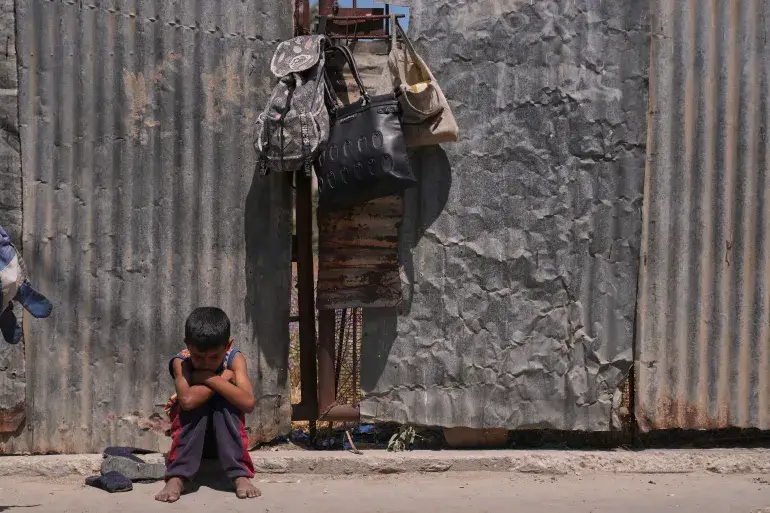
Intensification of Israeli Settler Attacks
- Between 22 and 28 July, OCHA documented at least 24 Israeli settler attacks against Palestinians that resulted in casualties, property damage, or both. These attacks led to the displacement of 17 households, comprising 101 people, including 53 children, and the killing of one Palestinian man and injury of seven Palestinians, including two children – six by Israeli settlers and one by Israeli forces. In addition, settlers vandalized more than 180 olive trees, grape vines and saplings, eleven Palestinian-owned vehicles, more than 20 homes and at least 19 animal shelters. Key incidents included the following:
- Near the community of Umm al Kheir, in Hebron governorate, on 28 July, Israeli settlers shot and killed a Palestinian man and injured another. Israeli settlers, known to be from Carmel settlement, arrived near the community and began bulldozing the community’s land, destroying fences and olive trees. Residents gathered around the bulldozer, as it began moving towards a water network that the community depends on, and a settler fired live ammunition toward them, killing one man. According to the settler quoted in Israeli media, the residents were throwing stones at them. In addition, a settler hit and injured a Palestinian man with the bulldozer. Israeli forces later arrived at the scene and detained three Palestinians, two foreign nationals, and the Israeli settler who opened fire, and withheld the body of the killed Palestinian. According to the family of the deceased, on 29 July, Israeli forces arrived after they set up a tent for mourning gatherings and declared the area a “closed military zone” and detained nine Palestinians and two foreign nationals. Since 2020, OCHA has documented 16 settler-related incidents affecting Umm al Kheir community that resulted in casualties or property damage. The number of incidents has risen steadily – from two in 2020, to six in 2024, and seven so far in 2025. The seven incidents in 2025 have involved settlers believed to be from the same nearby settlement and have resulted in the injury of nine Palestinians and property damage, particularly to agricultural and animal-related structures.
- In Barriyyet Kisan area in Bethlehem governorate, Israeli settlers carried out a series of attacks that have resulted in the forced displacement of 17 Palestinian families, comprising 101 people, including 53 children, and the damage or destruction of 17 residential shelters and 17 animal shelters. On 23 July, armed settlers from a nearby outpost raided the Deir Alla area, took over an uninhabited Palestinian house, and established a new outpost. Since then, they have repeatedly harassed residents by grazing livestock near homes and engaging in other forms of intimidation. On 24 July, settlers destroyed the donor-funded water network supplying the community and blocked the only access road connecting the community to Kisan village, leaving the 17 families without access to water or basic services. According to community sources, settlers also threatened to burn down the area unless residents left. On 28 July, after the families had left, settlers destroyed the abandoned structures in the community. The displaced families managed to take only their livestock – approximately 1,200 sheep – leaving behind personal belongings and shelters. They have since relocated to Kisan village but have not yet managed to build alternative shelters for their livestock.
- In three communities within Masafer Yatta, Hebron governorate, outside the Israeli-declared “Firing Zone 918,” Israeli settlers injured six Palestinians – including two children and two women, one of whom is elderly – and caused widespread property damage. On 24 July, in Mantiqat Shi’b al Butum, armed settlers cut a fence, threw stones and physically assaulted and injured a 75-year-old Palestinian woman who was standing near her home. As she attempted to flee, they pursued and beat her. The settlers also vandalized her home – damaging windows and doors, stealing belongings, and destroying two solar lamps and two solar water heaters. On 25 July, settlers raided the village of At Tuwani allegedly searching for stolen sheep. Accompanied by Israeli forces, they attacked residents with stones and sticks, injuring three Palestinians, including the Head of the Village Council and a mother and her son. The settlers also damaged three homes, destroyed three water tanks, and stole 12 sheep. On 28 July, near Ar Rakeez, armed settlers stopped a Palestinian man and his 14-year-old son while they were driving home at night. The settlers forcibly removed them from their vehicle, physically assaulted and injured them, and damaged belongings. Since early 2023, settler violence in Masafer Yatta has sharply escalated, resulting in casualties and widespread property damage. Incident frequency has surged from 1.5 per month in 2021-2022 to nearly five per month since 2023, reaching almost six per month in the first seven months of 2025. Compared with just 18 incidents recorded between 2006 and 2020, the 180 incidents documented between 2021 and 2024 reflect a stark and sustained increase.
- In the Khirbet Ibziq herding community in Tubas governorate, Israeli settlers damaged essential infrastructure and resources critical to the community’s survival. The community, home to at least ten Palestinian families comprising about 50 people, has been subjected to near-daily settler harassment in recent months. During the reporting period, on 23 July, settlers broke into a storage tent and stole approximately 70 kilograms of hay, and 1,000 kilograms of barley intended for livestock – enough to sustain the community’s animals for about three months. On 28 July, settlers vandalized the main water pipe supplying the community and blocked the road connecting Tubas city and Ibziq with an earthmound, leaving the entire community without access to water and basic services for a second consecutive day, as of the time of reporting.
- In Hammamat al Maleh – Al Meiteh herding community in Tubas governorate, Israeli settlers damaged vital solar infrastructure, affecting a community where two families were displaced the previous week following repeated settler violence. On 24 July, a group of settlers destroyed 12 solar panels from a system supplying electricity to at least 13 households, directly affecting more than 60 people. According to affected families, settlers from nearby settlement outposts have been assaulting community members on a near-daily basis. As a result, some families have begun relocating large portions of their herds, fearing further attacks and the potential seizure of livestock. This incident follows an attack on 17 July involving physical assaults, livestock theft, and property damage, which resulted in the displacement of two families comprising ten people, including five children.
-
- In At Tayba village in Ramallah governorate, on 28 July, Israeli settlers reportedly from a newly established settlement outpost east of the village raided the village and set fire to two vehicles parked in front of Palestinian homes and spray-painted anti-Palestinian slogans on a house wall. This incident follows a series of settler attacks reported earlier in July in the same area. On 11 and 17 July, settlers grazed livestock in and around residential areas as well as Al Khader Church and the town cemetery, set fire to nearby lands, and vandalized Palestinian-owned olive groves, damaging trees, crops, and communal property.
- For key figures and additional breakdowns of casualties, displacement and settler violence between January 2005 and June 2025, please refer to the OCHA West Bank June 2025 Snapshot.
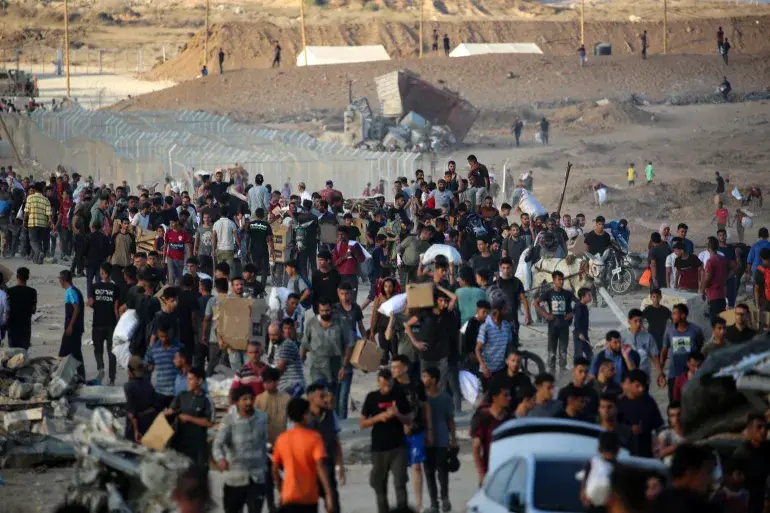
Northern West Bank Operations
- According to the Palestinian District Coordination and Liaison Office (DCL), on 27 July, Israeli authorities delivered a military order declaring a wooded area adjacent to Nur Shams Camp as a “closed military zone” until 31 October 2025. The area is located about 20 meters north of the camp and does not contain buildings, but people often use it to observe the camp from a distance. The order prohibits the entry or presence of Palestinians in the area without a special permit. In another development in Nur Shams Camp, on 28 July, Israeli forces informed the Palestinian DCL that several displaced families from the Jabal as Salihin neighbourhood, located close to the southeastern edge of Nur Shams Camp and partially overlapping with the Thinnabah neighbourhood, may be allowed to return to their homes. According to local sources, nearly 15 families returned on 29 July, but were forced to leave again on 30 July after Israeli forces opened fire at Palestinians who were present in the area.
- In Jenin city, on 26 July, Israeli forces searched homes for three hours in Al Hadaf neighbourhood, located near the western side of Jenin refugee camp. During the operation, approximately eight Palestinian families were temporarily evacuated from their homes by the forces. Once the forces withdrew, all families were able to return. On 28 July, local sources reported observing smoke coming from a house fire in the Damaj neighbourhood within the camp. The cause of the fire remains unknown, as access to the camp is prohibited. It also remains unclear whether demolition activities within the camp have continued during the reporting period. Infrastructure rehabilitation and asphalting works by the municipality and the Ministry of Public Works continue in the southern, northern, and eastern areas of Jenin city; however, no rehabilitation works have been allowed to take place within or in the vicinity of the refugee camp.
Funding
- As of 29 July 2025, Member States have disbursed approximately US$852 million out of the $4 billion (21 per cent) requested to meet the most critical humanitarian needs of three million out of 3.3 million people identified as requiring assistance in Gaza and the West Bank, including East Jerusalem, in 2025, under the 2025 Flash Appeal for the OPT. Nearly 88 per cent of the requested funds are for humanitarian response in Gaza, with just over 12 per cent for the West Bank. Moreover, during June 2025, the oPt Humanitarian Fund managed 122 ongoing projects, totalling $70.1 million, to address urgent needs in the Gaza Strip (87 per cent) and the West Bank (13 per cent). Of these projects, 58 are being implemented by international non-governmental organizations (INGOs), 48 by national NGOs and 16 by UN agencies. Notably, 42 out of the 74 projects implemented by INGOs or the UN are being implemented in collaboration with national NGOs. For more information, please see OCHA’s Financial Tracking Service webpage and the oPt HF webpage.
1646.


31 juli 2025
Historic arrests, but no prosecution. Belgium refers Gaza war crimes case to ICC. A step forward—but not justice yet.
͏ Following our urgent complaint, Belgian authorities arrested two Israeli soldiers at Tomorrowland over credible war crimes in Gaza. After investigation and interrogation, the case was referred to the ICC.
This marks a historic step—but not enough. Belgium should have detained and prosecuted them. Releasing suspects risks reinforcing impunity.
We call on the ICC to act without delay. Justice must go further—and we will not stop.
Read the full press release below.
SUPPORT OUR WORK
Date: 30 July 2025
Brussels — The Hind Rajab Foundation acknowledges the communication from the Belgian Federal Prosecutor confirming that a criminal investigation was opened following our urgent complaint of 18 July 2025 concerning credible war crimes committed in Gaza by Israeli military personnel.
The suspects, both actively serving in the Israeli armed forces, were formally identified, arrested and interrogated by Belgian authorities at the Tomorrowland festival in Boom. This unprecedented act was only possible because the allegations were deemed serious enough to warrant direct judicial action. A recognition that the evidence presented is compelling and falls within the scope of international criminal law.
We note with cautious encouragement that the Belgian Federal Prosecutor has decided to refer the case to the International Criminal Court (ICC) in The Hague, invoking Belgium’s cooperation framework with the ICC. This referral confirms that the matter has reached the highest level of international legal attention.
However, we believe Belgium should have gone further. In our view, the suspects should not only have been arrested, but also detained and either prosecuted in Belgium or extradited to the ICC. Belgium has the legal basis and responsibility to do so. The current interpretation of its jurisdiction is, in our opinion, unnecessarily limited.
Releasing individuals credibly accused of war crimes and crimes against humanity not only undermines public trust in justice, but risks reinforcing a sense of impunity and may enable those individuals to commit further atrocities.
This referral is not a conclusion. It is a strategic pivot to the international level. Eventhough legally permissible, it is also a reflection of diplomatic caution at a time when genocide is ongoing. In our view, political considerations should never outweigh the imperatives of justice.
We now urge the ICC to act without delay and issue arrest warrants against the suspects. Every day of inaction by international institutions is a day of continued suffering and unaccountability.
Let it be clear: this case sets a legal and moral precedent. Israeli military personnel, no matter where they travel, are not beyond the reach of justice. We will continue to identify and file criminal complaints against any war crimes suspects entering Belgian territory, especially those with dual nationality or clear links to Belgium. We will also continue working with legal networks across Europe to ensure that universal jurisdiction is effectively applied and not gradually eroded.
1645.

31 juli 2025
Today's headlines
Lawmakers pressure Trump on Gaza aid, as support for Israel craters among Democrats
Michael Arria
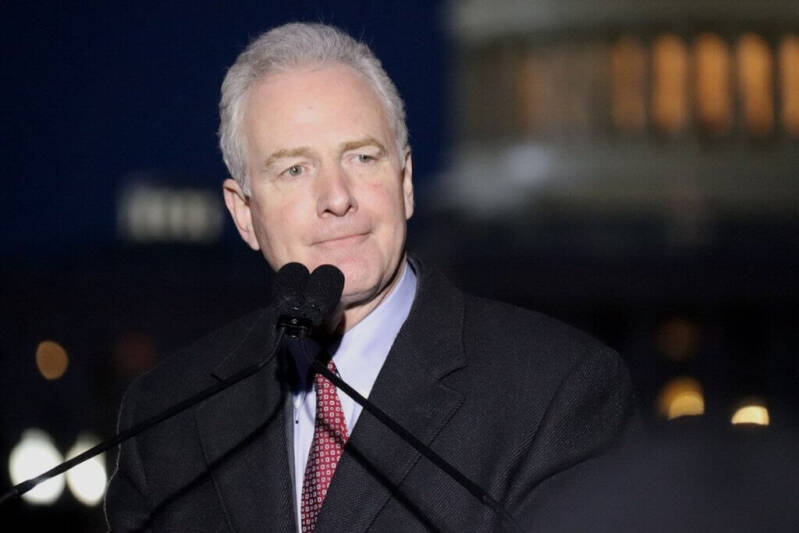
Democratic lawmakers are pressuring Trump as a new Gallup poll shows that just 32% of Americans back Israel's actions in Gaza, an all-time low.
Israel just handed ownership of a historic mosque in Hebron to Jewish settlers. Here’s what that means.
Qassam Muaddi

Israel just transferred the administrative authorities over Hebron's iconic Ibrahimi Mosque from Palestinian to Israeli hands. The move is the first step in Judaizing Muslim places of worship in Palestine.
1644.


31 juli 2025
Humanitarian Situation Update #309
Gaza Strip
30 July 2025
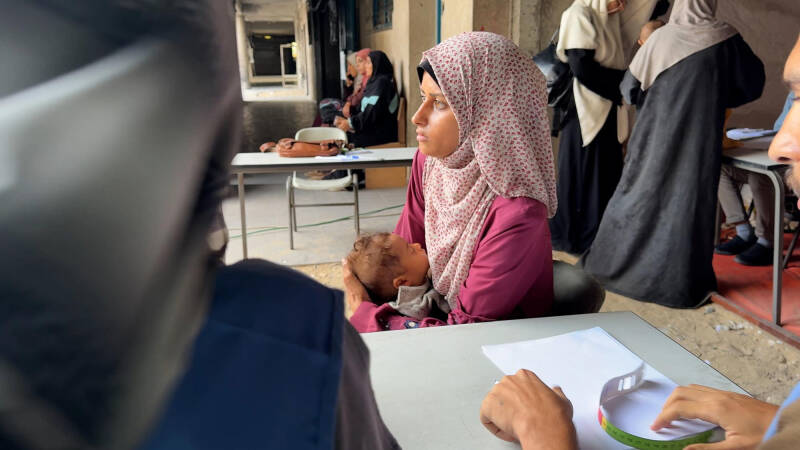
Seven-month-old Iman, with her mother, at a medical point in a school-turned-shelter in Gaza city. She was diagnosed with severe acute malnutrition at six months and UNRWA health teams have been providing her with emergency treatment and supplementary food. Photo by © 2025 UNRWA
Key Highlights
- The Gaza Strip is on the brink of famine, UN agencies warn, based on the latest Integrated Food Security Phase Classification alert findings.
- In the first two weeks of July, 96 per cent of surveyed households experienced moderate to high levels of water insecurity, a three per cent increase compared with June.
- Israeli authorities announced daily, ten-hour tactical pauses in military activity in areas of Al Mawasi, Deir al Balah and Gaza city, among other steps to increase the scale of humanitarian aid entering Gaza.
- The Israeli authorities connected the Southern Gaza Desalination Plant to the power grid, enabling it to operate at full capacity.
- As airdrops resume, the Protection Cluster warns that this modality could kill or injure civilians and is insufficient in scale to meet the extensive needs inside Gaza, among other concerns.
- Medical evacuations are declining; nearly two-thirds of patients evacuated from Gaza for urgent treatment abroad exited prior to the closure of Rafah crossing in May 2024.
Humanitarian Developments
- Over the past week, Israeli forces have continued to carry out heavy bombardment from the air, land and sea across the Gaza Strip, alongside continued ground operations. Rocket fire by Palestinian armed groups into Israel and fighting with Israeli forces have also taken place. Since 20 July, no new displacement orders have been issued by Israeli authorities. On 27 July, the Israeli authorities informed humanitarian organizations that they have rescinded the displacement order issued on 20 July for an area of Deir al Balah that had served as a hub for humanitarian operations, including offices, guesthouses, medical facilities, warehouses and other critical infrastructure. Across the Gaza Strip, the number of displaced people has increased by over 5,000 between 22 and 29 July, reaching more than 767,800 people since 18 March, according to the Site Management Cluster (SMC); these figures may count the same person more than once if they have been displaced multiple times. Based on available information, about 80 per cent of newly recorded movements originated from or took place within Khan Younis governorate, SMC reported.
- According to the Ministry of Health (MoH) in Gaza, between 23 and 30 July, 640 Palestinians were killed, and 3,224 were injured. Between 7 October 2023 and 30 July 2025, the MoH in Gaza reported that at least 60,138 Palestinians were killed, and 146,269 Palestinians were injured. This includes 8,970 people killed and 34,228 injured since the re-escalation of hostilities on 18 March 2025, according to MoH. The Ministry said that the cumulative figure, since October 2023, includes 279 fatalities who were retroactively added on 24 July 2025 after their identification details were consolidated and approved by a ministerial committee. The MoH further noted that the number of casualties among people trying to access food supplies has increased to 1,239 fatalities and more than 8,152 injuries since 27 May 2025.
- Between 23 and 30 July, three Israeli soldiers were killed in Gaza, according to the Israeli military. Between 7 October 2023 and 30 July 2025, according to Israeli forces and official Israeli sources cited in the media, more than 1,654 Israelis and foreign nationals were killed, the majority on 7 October 2023 and its immediate aftermath. This includes 454 soldiers killed, in addition to 2,864 soldiers injured, in Gaza or along the border in Israel since the beginning of the ground operation in October 2023. As of 30 July, it is estimated that 50 Israelis and foreign nationals remain captive in Gaza, including hostages who have been declared dead and whose bodies are being withheld.
- On 29 July, the Integrated Food Security Phase Classification (IPC) Global Initiative issued an alert, noting that the worst-case scenario of famine is currently playing out in the Gaza Strip, amid widespread starvation, malnutrition and disease, mass displacement, severely restricted humanitarian access, and the collapse of essential services, including health care. The latest data indicate that famine thresholds have been reached for food consumption in most of the Gaza Strip and for acute malnutrition in Gaza city (see alert for threshold definitions). Data remotely collected in July 2025 using Computer Assisted Telephone Interviews (CATI) confirm that food consumption across the Gaza Strip has worsened dramatically, reaching its lowest level since October 2023; in July, 81 percent of households reported poor food consumption (up from 33 percent in April) and 24 percent of households are experiencing very severe hunger (up from four per cent in April), crossing the famine threshold for food consumption. Moreover, acute malnutrition rates doubled in Khan Younis and increased by 70 per cent in Deir al Balah between May and July and, in Gaza city, the Global Acute Malnutrition (GAM) rate soared from 4.4 per cent in May to an alarming 16.5 per cent in the first half of July, thereby reaching the Famine threshold for acute malnutrition. The situation in North Gaza governorate, which faces similar challenges, cannot be verified due to the lack of data. The alert highlighted that nearly nine out of ten households have resorted to extremely severe coping mechanisms to feed themselves, such as taking significant safety risks to obtain food, and scavenging from the garbage.
- “The latest Integrated Food Security Phase Classification Alert confirms what we have feared: Gaza is on the brink of famine. The facts are in – and they are undeniable,” said the UN Secretary-General. He added that “Palestinians in Gaza are enduring a humanitarian catastrophe of epic proportions. This is not a warning. It is a reality unfolding before our eyes. The trickle of aid must become an ocean. Food, water, medicine and fuel must flow in waves and without obstruction. This nightmare must end.”
- On 29 July, the World Food Programme’s (WFP) Director of Emergency Preparedness and Response, Ross Smith, called for immediate action, noting that tactical pauses (see below) are welcome, but that the volume of humanitarian assistance remains insufficient, including food, nutrition and health supplies, water and sanitation support, and everything needed “to alleviate the really desperate levels that we are seeing both from this IPC alert but also on our television screens every day,” he added.
- On 24 July, MoH in Gaza stated that it has documented a total 113 malnutrition-related deaths, including 81 children and 32 adults; these included four deaths in 2023, 50 in 2024 and 59 in 2025. According to the World Health Organization (WHO), as of 27 July, 74 malnutrition-related deaths were documented in 2025, including 63 in July. As of 30 July, malnutrition-related deaths surged to 154, including 89 children, according to MoH, of whom seven died in hospitals in the preceding 24 hours.
- The Israeli military announced that as of 27 July, “a local tactical pause in military activity will take place for humanitarian purposes from 10:00 to 20:00” in areas of Al Mawasi, Deir al Balah and Gaza city “to increase the scale of humanitarian aid entering Gaza.” Other announced steps include daily airdrop operations, each carrying seven pallets of flour, sugar and canned food, reconnecting the power line from Israel to the southern Gaza desalination plant, lifting customs barriers on food, medicine and fuel from Egypt, and the designation of secure routes for UN humanitarian convoys. Welcoming these steps as progress toward staving off famine and a catastrophic health crisis, Under-Secretary-General for Humanitarian Affairs and Emergency Relief Coordinator, Tom Fletcher, stressed that sustained action entails faster clearances, multiple daily trips to collect aid cargo, safe routes that avoid crowded areas, and no more attacks on people gathering for food. He further noted that ultimately what is needed is a permanent ceasefire.
- On 28 July, the Protection Cluster in the OPT welcomed the establishment of humanitarian corridors and tactical pauses, but cautioned that airdropped aid poses the risk of harm to civilians, referencing reports that airdropped aid during the night on 27 July landed on tents, injuring people, and on damaged buildings where people trying to reach aid faced the risk of bodily harm by explosive ordnance. The Cluster added that airdrops “result in inequitable distribution and exclusion of vulnerable groups most in need…include high risk of diversion, undermine humanitarian principles, compromise dignity of the affected population, are insufficient in scale to meet the extensive needs inside Gaza, and risk deflecting from legal obligations of Israel to facilitate meaningful humanitarian access.”
- Between 23 and 29 July, out of 92 attempts to coordinate planned aid movements with Israeli authorities across the Gaza Strip, nearly 16 per cent were denied. An additional 26 per cent were initially accepted but faced impediments, including blocks or delays on the ground potentially resulting in missions being aborted or partially accomplished. Another 47 per cent were fully facilitated, and the remaining 11 per cent had to be withdrawn by the organizers for logistical, operational, or security reasons. All these include 47 attempts to coordinate aid movements in or to northern Gaza, of which 46.8 per cent (22) were facilitated, 23.4 per cent (11) were denied, 23.4 per cent (11) faced impediments, and 6.4 per cent (three) were withdrawn. In southern Gaza, out of 45 attempts, 47 per cent (21) were facilitated, nine per cent (four) were denied, 29 per cent (13) faced impediments and 15 per cent (seven) were withdrawn.
- According to the World Health Organization (WHO), between 7 October 2023 and 17 July 2025, 7,460 patients including 5,160 children were evacuated from Gaza for medical treatment abroad. Sixty-six per cent of the total (4,947 patients including 4,034 children) were evacuated through the Rafah crossing with Egypt prior to its closure on 7 May 2024. Following that, 459 patients were evacuated via Kerem Shalom crossing between 8 May 2024 and 18 January 2025, 1,702 patients including 606 children were evacuated during the ceasefire between 19 January and 17 March 2025, and only 352 patients including 249 children were evacuated abroad between 18 March and 16 July. Trauma and oncology are the top medical conditions among those evacuated. Most patients were referred to Egypt (3,995), United Arab Emirates (1,387) and Qatar (970).
- Overcrowding in shelters, lack of privacy, and increasing levels of food insecurity continue to elevate the risk of gender-based violence (GBV) for women and girls amid serious disruptions to service continuity. In southern Gaza, the situation is especially dire since there is no longer a safe shelter for GBV survivors, following the issuance of a displacement order on 20 July that forced the relocation of services to Gaza city, and most staff addressing GBV have themselves been displaced who, like the rest of the population, have been suffering from hunger, insecurity and poor living conditions that have constrained their capacity to provide support. So far in July, partners addressing GBV provided 3,017 women with individual counselling to promote well-being and recovery, and 332 GBV survivors with cash assistance, compared with 2,221 women who received counselling and 409 GBV survivors who received cash assistance in June.

Strikes Resulting in Casualties
- Key casualty incidents, including in strikes on people sheltering in schools, tents and residential buildings, include the following:
- On 23 July, a journalist was reportedly killed along with her husband, four children and three other people when a residential building was hit southwest of Gaza city.
- On 24 July, a photojournalist was reportedly killed along with another two men and two boys when a tent for internally displaced people (IDPs) was hit in central Gaza city.
- On 25 July, at about 12:30, five Palestinian males were reportedly killed and others injured when a school sheltering IDPs was hit in Al Rimal neighbourhood in central Gaza city.
- On 26 July, at about 23:00, six Palestinians, including two women, were reportedly killed and others, including children, injured when an apartment was hit west of Gaza city.
- On 27 July, at about 10:30, five Palestinians, including a woman and her four children, were reportedly killed when an apartment in a residential building was hit in Al Rimal neighbourhood in Gaza city.
- On 26 July, at about 14:30, eight Palestinians, including at least one female, were reportedly killed when a tent was hit in an IDP site in southwestern Khan Younis.
- On 27 July, at about 02:00, seven Palestinians, including at least three children, were reportedly killed and others injured when an IDP tent was hit in Asda’a area, in northwestern Khan Younis.
- On 28 July, at about 0:10, at least 20 Palestinians, including at least nine females, were reportedly killed and 25 others injured when a residential building was hit in Al Mawasi area in Khan Younis. Several casualties were reported among IDPs living in tents near the building.
- On 28 July, at about 0:40, at least 15 Palestinians were reportedly killed when a residential building was hit and destroyed in western Khan Younis.
- During the night of 28-29 July, at least 29 Palestinians from three families, including 12 children and 14 women (of whom two were pregnant), were reportedly killed when residential buildings were hit in the New Camp area north of An Nuseirat, in Deir al Balah.
- On 29 July, at about 10:00, five Palestinians, including a man and his four children were reportedly killed when an IDP tent was hit in Al Mawasi, in western Khan Younis.
- Key incidents of casualties among people trying to access food supplies include the following:
- On 24 July, at about 15:15, at least 14 Palestinians, including at least one female, were reportedly killed when fire was opened towards Palestinians who gathered near the militarized distribution point in southwestern Khan Younis.
- On 24 July, the Red Cross Field Hospital received 17 wounded women, with two women declared dead on arrival, after a militarized distribution point in Rafah was announced open for women. Those responsive among the injured said they had been trying to access the distribution site.
- On 25 July, at about 20:00, 20 Palestinians were reportedly killed and more than 300 others injured when fire was opened towards Palestinians waiting for a humanitarian aid convoy in the Zikim area, in North Gaza.
- On 26 July, at about 19:30, 10 Palestinians were reportedly killed and dozens of others injured when fire was opened on Palestinians waiting for a humanitarian aid convoy in North Gaza.
- On 26 July, at about 17:45, 12 Palestinian males were reportedly killed when they and other Palestinians waiting for a humanitarian aid convoy were hit in southeastern Khan Younis.
- On 28 July, at about 19:30, 10 Palestinians, including children, were reportedly killed and several others injured while waiting for humanitarian aid convoys in As Sudaniya area, southwest of Beit Lahiya in North Gaza.
- On 28 July, at about 15:30, at least 28 Palestinian males were reportedly killed and several others injured when fire was opened towards people waiting for a humanitarian food convoy in the Morag area, in Khan Younis.
- On 28 July, according to Al Awda Health and Community Association, their hospital in An Nuseirat, in Deir al Balah, received seven fatalities and 22 injured people due to strikes on people near the militarized distribution point on Salah ad Din Street, south of Wadi Gaza.
- On 29 July, at about 11:23, at least 13 people were reportedly killed and at least 105 others injured in strikes on people waiting near the Wadi Gaza militarized distribution point.
- On 29 July, between 12:00 and 17:30, at least eight Palestinians were reportedly killed and 126 others injured due to open fire and heavy artillery shelling at people waiting for humanitarian food convoys in the Zikim crossing area, northwest of Beit Lahiya, in North Gaza.
Continued Plummeting of Nutrition and Food Security Indicators
- Based on the findings of the IPC Alert, the Food and Agriculture Organization of the United Nations (FAO), WFP and the UN Children’s Fund (UNICEF) warned that time is running out to mount a full-scale humanitarian response in Gaza, with more than 500,000 people enduring famine-like conditions, the remaining population facing emergency levels of hunger, and fewer than 15 per cent of essential nutrition treatment services currently functional. As of July 2025, over 320,000 children, the entire population under five years of age in the Gaza Strip, are at risk of acute malnutrition, with thousands suffering from severe acute malnutrition, the deadliest form of undernutrition. The agencies added that acute malnutrition and reports of starvation-related deaths – the third core famine indicator – are increasingly common but collecting robust data under current circumstances in Gaza remains very difficult. “Gaza is now on the brink of a full-scale famine. People are starving not because food is unavailable, but because access is blocked, local agrifood systems have collapsed, and families can no longer sustain even the most basic livelihoods,” said FAO Director-General QU Dongyu. “Emaciated children and babies are dying from malnutrition in Gaza,” said UNICEF Executive Director, Catherine Russell, adding that immediate, safe and unhindered humanitarian access across Gaza is needed to scale up the delivery of life-saving food, nutrition, water and medicine.
- The Nutrition Cluster reported that adults’ prioritization of feeding children over themselves, which have, along with supplementary feeding programmes, mitigated a rise in acute malnutrition prior to April, is no longer sufficient in maintaining children’s dietary diversity and nutritional status. While children’s dairy consumption has been steadily declining since January, the April-June period saw a sharp decline from 31 per cent in April to 18 per cent in May and nine per cent in June. Micronutrient deficiencies are likely rising rapidly alongside acute malnutrition, with dire impacts on children’s health, development, and risk of mortality. Between 1 and 15 July, 5,550 children under five years of age have been admitted for the treatment of acute malnutrition, of whom 998 were severely malnourished, compared with 6,500 children in June of whom 1,200 were severely malnourished, according to the Nutrition Cluster. These include 2,724 cases in Gaza city, compared with 2,400 in all of June.
- UN Women stated that one million “women and girls in Gaza are facing mass starvation, violence and abuse. Malnutrition is soaring and essential services have long collapsed, forcing women and girls to adopt increasingly dangerous survival strategies.” “Women and girls in Gaza are facing the impossible choice of starving to death at their shelters or venturing out in search of food and water at the extreme risk of being killed. Their children are starving to death before their eyes. This is horrific, unconscionable and unacceptable. It is inhumane,” said UN Women’s Executive Director, Sima Bahous. Women in Gaza are reportedly boiling discarded food scraps to feed their children, and risk being killed when searching for food and water. Some women are also enduring pregnancies without food, and high-risk deliveries without water or medical care, UN Women said.
- On 28 July, Medical Aid for Palestinians (MAP) likewise warned of a deepening malnutrition emergency in Gaza, noting that a medical point operated by their local partner, Ard El Insan, in Deir al Balah reported that 44 per cent of screened pregnant and breastfeeding mothers suffered from severe malnutrition and urgently needed to be referred for medical treatment, up from 35 per cent in May. The medical point, which provided essential care and nutrition services to some 200 malnourished women and children, was forced to shut down on 20 July following the issuance of a displacement order by the Israeli authorities. According to MAP, infants remain the most vulnerable due to a critical shortage of baby formula, with no suitable alternatives currently available. MAP’s Deputy Director of Programmes in south Gaza said that malnutrition-related deaths are increasing not only among children but also the elderly. The parents of two siblings with severe malnutrition signs told a MAP’s Community Health Worker who gave them ready-to-use therapeutic food that “on their luckiest day, they survive on just dry bread and tea.”
- Médecins Sans Frontières (MSF) also reported an increasing number of malnourished patients at its clinics. Across screenings at MSF facilities last week, 25 per cent of children aged 6 months to 5 years old and pregnant or breastfeeding women were malnourished. At the MSF clinic in Gaza city, the number of people enrolled to receive malnutrition treatment has quadrupled since 18 May, while rates of severe malnutrition in children under five have tripled in the last two weeks alone. “We are now enrolling 25 new patients every single day [to receive] malnutrition [treatment]. We see the exhaustion and the hunger in our own colleagues,” said a project coordinator at the MSF clinic in Gaza city. MSF added that it treated dozens of patients from flour convoy routes, highlighting that one day, at Sheikh Radwan clinic in Gaza city, MSF and MoH medical teams treated 122 people with gunshot wounds who had been fired on while waiting for flour. An additional 46 people were dead on arrival.
- Similarly, Save the Children reported that the number of children under five years of age with acute malnutrition at its Gaza clinics surged 10-fold in four months. Of the 3,533 children Save the Children screened for malnutrition during the first half of July, 259 were admitted for treatment (seven per cent), compared with 28 (one per cent) in March. Additionally, more than four in 10 pregnant and breastfeeding women – 43 per cent - screened at Save the Children’s clinics so far in July were found to be malnourished, almost three times as many as in March (16 per cent).

Access to Water
- On 26 July, the Israeli authorities reconnected the Southern Gaza Desalination Plant to the electricity grid, significantly boosting its capacity to produce safe drinking water – from 2,500 cubic metres per day (previously sustained by generators) to its full operational capacity of 18,000 cubic metres per day. This output has the potential to serve up to one million people with drinking water at a rate of six litres per person per day, when complemented by domestic water for other uses. However, the WASH Cluster has emphasized that this progress is dependent on several critical factors related to water distribution: the availability of fuel and spare parts for water trucks, the operation and construction of filling stations, the establishment of water distribution points, and the feasibility of expanding the water distribution network. Following the reconnection, the Coastal Municipalities Water Utility has begun upgrading and maintaining the carrier line that delivers desalinated water from the Plant to improve water distribution and service delivery.
- The WASH Cluster conducted the monthly Light-Touch Monitoring (LTM) survey between 7 and 12 July to monitor the evolution of perceived WASH needs, identify key barriers to accessing WASH services, and evaluate the availability and affordability of essential WASH items. The findings reveal that 96 per cent of surveyed households experienced moderate to high levels of water insecurity in early July, up from 93 per cent in June, only four per cent have no or limited water insecurity, and 90 per cent reported a worsened drinking water availability. The change was particularly significant in Gaza and North Gaza governorates, where 85 per cent and 100 per cent, respectively, of key informants reported a deterioration in water access for most people in their community in the first two weeks of July; this is attributed to more severe fuel shortages in northern Gaza due to operational challenges in transporting fuel from the south, the inaccessibility of key wells and valves, and the inflows of IDPs who are relocating faster than WASH interventions can adapt. Hygiene access is similarly deteriorating, with 40 per cent of households lacking soap and 97 per cent of key informants reporting barriers to accessing hygiene items due to high costs and insufficient distributions. In addition, 50 per cent of key informants reported worsened access to toilets and 75 per cent of households reported facing access barriers, mainly because facilities were not clean or functional.
Funding
- As of 29 July 2025, Member States have disbursed approximately US$852 million out of the $4 billion (21 per cent) requested to meet the most critical humanitarian needs of three million out of 3.3 million people identified as requiring assistance in Gaza and the West Bank, including East Jerusalem, in 2025, under the 2025 Flash Appeal for the OPT. Nearly 88 per cent of the requested funds are for humanitarian response in Gaza, with just over 12 per cent for the West Bank. Moreover, during June 2025, the oPt Humanitarian Fund managed 122 ongoing projects, totalling $70.1 million, to address urgent needs in the Gaza Strip (87 per cent) and the West Bank (13 per cent). Of these projects, 58 are being implemented by international non-governmental organizations (INGOs), 48 by national NGOs and 16 by UN agencies. Notably, 42 out of the 74 projects implemented by INGOs or the UN are being implemented in collaboration with national NGOs. For more information, please see OCHA’s Financial Tracking Service webpage and the oPt HF webpage.
1643.


30 juli 2025
Gaza: the "worst-case scenario of famine."

The Israeli government’s genocide against the people of Gaza is at its most dire stage yet.
Despite the mainstream media consistently excusing and diminishing Israel’s crimes against Palestinians, the world is watching Gaza, heartbroken and outraged by the constant stream of images of starving children and families.
In this moment of utter crisis, millions of people are horrified by what they’re witnessing — but may not know how to understand it or where to go from here.
Our responsibility, as a political organization, is to bring these people in, help them recognize that the only end to these atrocities is an end to U.S. complicity in Israeli genocide and apartheid, and mobilize more of us than ever before towards that goal…
Grow the movement.
Below are the actions we’re taking today to turn the renewed attention to the genocide in Gaza into pressure on those in power to end U.S. complicity.
Take a minute and forward this Wire to three people you know who are horrified by what they’re seeing right now — but unsure of where to start taking a stand.
URGENT: Senate votes today – tell them to stop arming Israel.
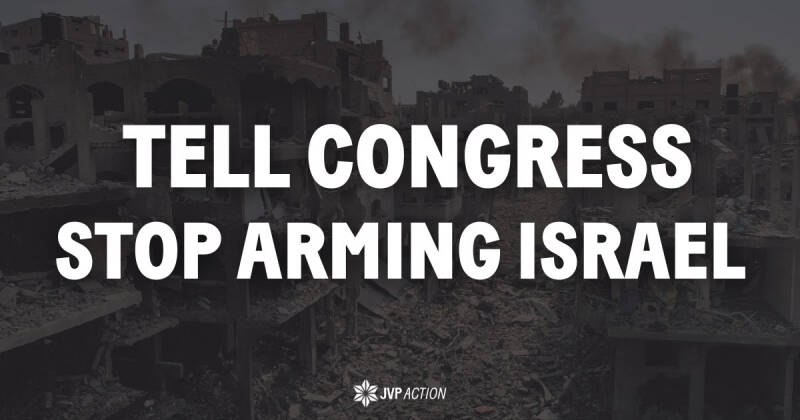
Senator Bernie Sanders just announced that he will force a vote on legislation to block $676 million in weapons to the Israeli government.
The vote is happening today. Use this tool from our sister org JVP Action to call your Senators now and tell them to block bombs to Israel.
Act now: Stop Starving Gaza.
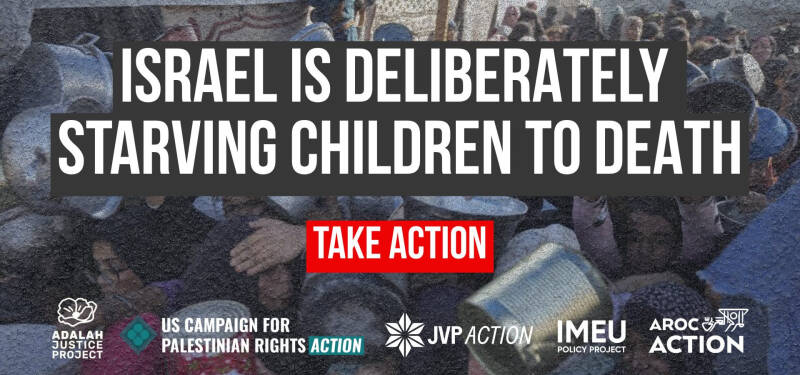
Increasingly, those in power are unable to deny the Israeli military’s genocide of the people of Gaza.
Use this tool from our partners at the Adalah Justice Project to call Congress and demand the immediate entry of aid into Gaza and an end to U.S. weapons for genocide.
Join the Stop Starving Gaza Power Hour today.

In this dire moment, our task is to mobilize for an end to the genocide.
Join the Stop Starving Gaza Power Hour, hosted by our partners at USCPR Action, today at 3pm ET/12pm PT to take action together to demand the immediate entry of life-saving aid into Gaza.
Donate to support Palestinians on the ground.

Already, JVP members have raised over $270,000 for the Middle East Children’s Alliance (MECA), whose emergency response is providing “a lifeline of hope” by distributing water, food, and medicine in Gaza.
Help us support their work on the ground in Gaza.
The People’s Conference for Palestine.
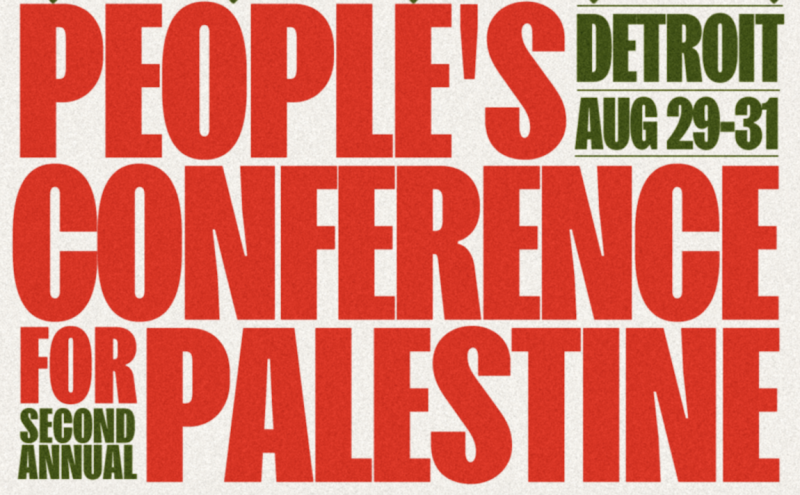
JVP is honored to endorse and participate in the upcoming People’s Conference for Palestine, convened by Palestinian movement leaders from August 29–31 in Detroit, Michigan.
We invite JVP members to join this critical gathering of organizations, movement leaders, community members, students, artists, cultural workers, and organizers committed to the struggle for a free Palestine.
What we're doing.
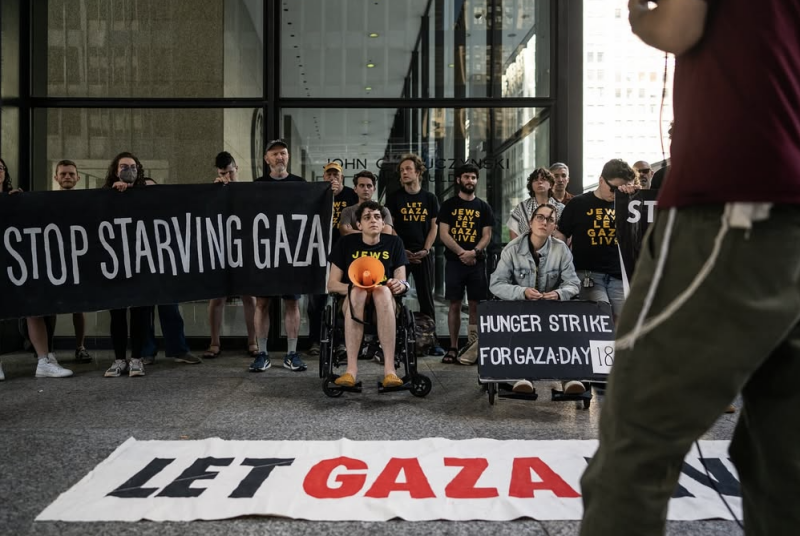
JVP chapters across the country continue to push forward a range of strategies to end this genocide, from Israel Bonds divestment campaigns to pressuring elected officials.
Watch this video to see more about the over 30 actions that JVP members organized over the past two months, from hunger strikes to sit-ins at weapons manufacturers, demanding that the U.S. stop arming Israel and calling for an end to the blockade in Gaza.
What we're reading.
A doctor returning from Gaza gave a harrowing interview in the Huffington Post describing the conditions of mass starvation he witnessed, his dire predictions that many children in Gaza have already been starved to the point of death, and his call for the U.S. to immediately stop supporting the Israeli military’s genocide.
1642.


30 juli 2025
New AMP Report Recommends States Limit Licensing, Data Sharing for ICE Contractors
A new report from American Muslims for Palestine (AMP) unveils a systematic project of eroding constitutional and human rights on the basis of anti-Palestinian repression and racism in America. The report revisits data from the first six months of the Trump Administration and the past two years of anti-genocide protests. It finds that democratic institutions are failing a stress test of their fundamental commitments by failing on Palestinian rights. In turn, this poses serious threats to civil liberties and constitutional rights across the United States.
Surfacing an extensive fact base, the report draws out the ways bipartisan political leaders, university administrations, and Trump administration officials are all implicated in dismantling human rights and the rule of law in the United States through anti-Palestinian repression. This includes roles in undermining facts as well as free speech, and creating the basis for a campaign of discrediting academia and criminalizing dissent to state-sanctioned genocide.

The report provides:
-
Data on the scale and reach of attacks on student activism in the U.S. and its relationship to anti-immigrant attacks, deportations, and dismantling of systems to protect the rights of students and immigrants alike.
-
The links, including key players, between anti-Palestinian repression and anti-immigrant policy, surveillance, defunding of public institutions, and bad-faith culture war attacks on academic inquiry.
-
Actionable frameworks and recommendations for resisting this shift, including legal, legislative, academic, and grassroots interventions.
-
A prospective look at what Project 2025 and Project Esther entail for not only Palestinian rights activism in the U.S., but also immigrant rights and broader free speech.
“This report documents what is shared knowledge and lived experience among Palestinian and Muslim Americans,” said Dr. Osama Abu Irshaid, AMP Executive Director. “That what begins as repression of pro-Palestinian activism has become a blueprint for assaults on civil liberties, academic freedom, press integrity, and democratic norms. And because it concerns Palestinian rights, it has been excused and enabled across all halls of power.”
For media inquiries, please contact us at info@ampalestine.org
In solidarity,
American Muslims for Palestine
1641.


30 juli 2025
Today's headlines
U.S. security contractor: ‘I saw Israel commit war crimes at Gaza aid sites’
Michael Arria

A U.S. security contractor who worked for the Gaza Humanitarian Foundation (GHF) says he saw Israeli soldiers commit war crimes at aid distribution sites in Gaza, corroborating months-long reports by Palestinians that the aid sites are 'death traps'.
Don’t stop talking about the famine in Gaza
Malak Hijazi
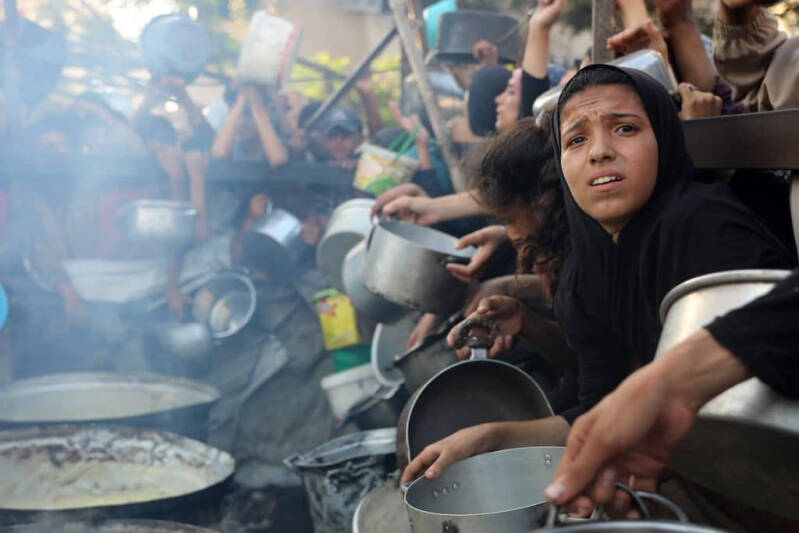
Israel wants you to believe that airdrops and symbolic aid trucks will solve the famine in Gaza. Don't believe them. These measures are not meant to end hunger, only to quell growing global outrage as the genocide continues unchecked.
1640.


30 juli 2025
Vorige week klonk op 32 stations in Nederland een oorverdovend lawaai van potten en pannen. Duizenden mensen lieten horen dat zij de uithongering van Gaza en het stilzwijgen van de politiek niet langer accepteren.
De indrukwekkende opkomst bleef niet onopgemerkt: de Tweede Kamer komt zelfs terug van reces om de situatie in Gaza te bespreken.
Minister Veldkamp heeft inmiddels enkele maatregelen aangekondigd – kleine stapjes vooruit, zonder twijfel mede zijn ingegeven door de druk van de protesten.
Maar: deze maatregelen zijn vooral symbolisch en lang niet voldoende.
Terwijl kinderen in Gaza sterven van honger en geweld, kiest Nederland nog altijd voor kruimels en woorden in plaats van echte, daadkrachtige actie.
Volgende week donderdag praat de Tweede Kamer over de situate in Gaza. Daarom moeten juist nu onze stem juist luider laten horen.
Zolang Den Haag wegkijkt, blijven wij herrie maken – voor sancties, voor een wapenembargo en voor echte maatregelen tegen Israël.
Sluit je aan; neem potten, pannen en pollepels mee en laat samen zien dat zwijgen geen optie is.Deze stations zijn tot nu toe bevestigd:
Alkmaar (17:30)
Almere
Amsterdam CS
Apeldoorn
Assen
Bergen op Zoom
Breda
Den Bosch
Den Haag CS
Deventer
Doetinchem
Dordrecht
Ede-Wageningen
Eindhoven
Enschede
Gouda
Groningen
Haarlem
Hengelo
Hoorn
Leeuwarden
Leiden
Lelystad
Maastricht
Middelburg
Nijmegen
Oss
Rotterdam
Tilburg
Utrecht
Weesp
Zaandam (17:00)
Zutphen
Zwolle
Kom naar het station en laat van je horen!
1639.


29 juli 2025
Last week, I emailed you asking you to take action to stop Israel’s forced famine in Gaza and block the bombs. At the time, over 50 Palestinian children had died from malnutrition since March.
In just one week, that number has grown to at least 88 children, innocent lives starved to death by Israel’s blockade who should have been laughing, playing, and living – not wasting away in front of their families and the world.
Our government has the power to end these atrocities against the Palestinian people right now. But we must use OUR power to force them to act.
Join us and our partners tomorrow, Wednesday, July 30 at 3PM ET / 12 noon PT for an emergency Stop Starving Gaza Power Hour.
Register Now
During the Power Hour, you'll:
- Hear critical updates on conditions in Gaza from our partners at USCPR Action
- Take direct action with us to drive calls to Congress live
- Explore creative tactics to pressure your elected officials
- Connect with USCPR Action, Rising Majority, Mothers Against Genocide, IMEU Policy Project, JVP Action, and AROC Action.
The situation on the ground for Palestinians is becoming more catastrophic with each passing hour. The vast majority of the population in Gaza has entered the lethal fourth and fifth stages of malnutrition. What we’re seeing is not just a humanitarian crisis – it’s famine being used as a weapon of genocide.
There is only one path forward: end the siege on Gaza, allow for the unrestricted entry of aid, and stop arming Israel.
We cannot let our opposition outnumber us with calls to Congress. Let’s flood their phone lines and make our voices heard to demand: Stop Starving Gaza and Block the Bombs NOW.
Register for tomorrow's Power Hour
In solidarity,
Alia El-Assar
Director of Media Organizing
Adalah Justice Project
P.S. Keep calling your members of Congress every day using our tool, and make sure to share it with your friends to take action too.
1638.

Jasmijn van de goede zaak
29 juli 2025
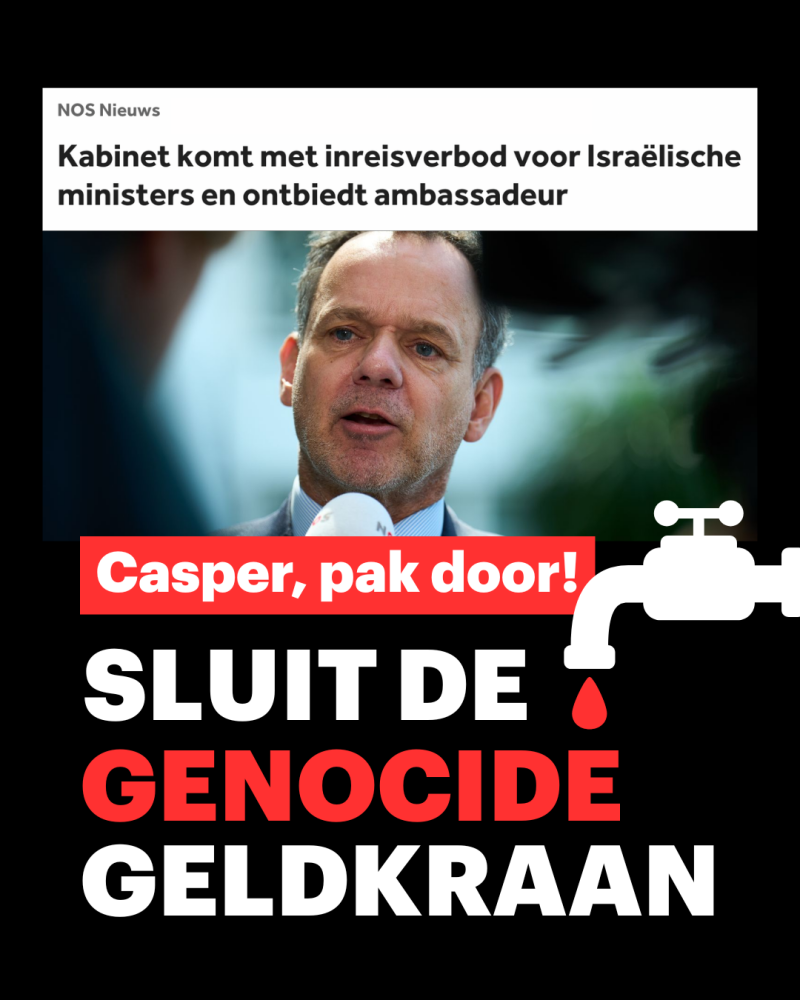
Minister Casper Veldkamp komt vandaag eindelijk met de eerste maatregelen tegen Israël. Een inreisverbod voor Israëlische ministers en het ontbieden van de ambassadeur. Dit is alleen nog lang niet genoeg. Zeker niet omdat Nederland meer kan!
Al meer dan 25.000 mensen tekenden in de afgelopen dagen onze petitie om Nederlandse handel die bijdraagt aan genocide en onderdrukking te stoppen. Wij zeggen: Caspar, het is tijd om nu door te pakken!
Teken jij ook?
JA, IK TEKEN
Strijdbare groet,
Jasmijn van DeGoedeZaak

Geen enkel land ter wereld investeert meer in Israël dan Nederland.[1] Met deze investeringen dragen we actief bij aan Israëls genocide van Palestijnen in Gaza.
TEKEN METEEN
Inmiddels weten we niet meer hoeveel doden er zijn gevallen in Gaza, hebben honderden organisaties gewaarschuwd voor levensgevaarlijke honger [2] en zijn er duizend doden alleen al bij voedselpunten [3]. Deze totale verschrikking moet stoppen!
Nederland mag dus niet stil blijven. Na het in woorden veroordelen van Israël, is het nu tijd om daad bij het woord te voegen [4]. Als we de geldstromen van Nederland naar Israël kunnen minderen, wordt het voor Israël moeilijker om de economie van genocide en bezetting draaiende te houden. Daarom moet Nederland alle handel die bijdraagt aan genocide stoppen! Nico, teken je de petitie aan de Tweede Kamer om actie te ondernemen?
TEKEN DE PETITIE
Nederland is onder het Genocideverdrag verplicht om genocide te voorkomen en te stoppen door alles te doen waartoe zij in staat is. Met het onderzoek van SOMO wordt duidelijk dat Nederland genoeg kan doen, en zou moeten doen. [5]
Daarom moeten we onze regering oproepen sancties in te voeren tegen Israël om de Nederlandse genocide geldkraan te sluiten. Naast deze sancties moet Nederland een volledig verbod invoeren op handel die bijdraagt aan het in stand houden van de illegale nederzettingen.
GEEN HANDEL MET ISRAËL
Met honderdvijftigduizend mensen trokken we een rode lijn door Den Haag. Meer dan vijfenveertig duizend mensen tekenden onze petitie tegen het defensieverdrag met Israël. Inmiddels gelooft de meerderheid van Nederland dat er een genocide in Gaza plaatsvindt en dat Nederland daar iets aan moet doen. Als iedereen die dat vindt in actie komt, kan de Tweede Kamer niet achterblijven!
Strijdbare groet,
Jasmijn van DeGoedeZaak
PS Deel de petitie nu!
[1][5] Onderzoek van SOMO over investeerders in Israël.
[2] Honderden organisaties waarschuwen voor levensgevaarlijke honger - NRC.
[3] Duizend doden bij voedselpunten - NOS.
[4] Nederland veroordeeld Israël, maar sancties blijven uit - NOS.
DeGoedeZaak is de burgerbeweging voor een progressiever Nederland.
Onze burgerbeweging bestaat uit meer dan 170.000 leden. We ondersteunen en voeren campagnes die Nederland eerlijker, duurzamer, inclusiever en rechtvaardiger maken. Wij nemen geen geld aan van overheden, bedrijven en politieke partijen, zodat we onafhankelijk zijn.
De meeste campagnes worden gestart door één van onze leden. Wat wil jij veranderen, bijvoorbeeld in jouw gemeente? Start vandaag nog een petitie. Ervaren campaigners ondersteunen je van start tot overwinning.
Wil je ons iets laten weten? Antwoord op deze mail of stuur een e-mail naar info@degoedezaak.org.
Wil je niet langer deel zijn van deze beweging? Dan kun je je hier uitschrijven.
1637.


29 juli 2025
The Hind Rajab Foundation has filed a war crimes complaint in the UK over Israel’s armed raid on the Handala — a British-flagged humanitarian ship bringing life-saving aid to Gaza. Israeli forces seized the vessel in international waters, abducted 21 unarmed civilians, and confiscated its cargo. We are holding Shayetet 13 and Navy Commander David Saar Salama accountable for this blatant attack on UK sovereignty, international law, and the right to deliver humanitarian relief. Justice must sail where they tried to silence it.
Read the full press release below.
28 July 2025 — London
The Hind Rajab Foundation has today filed a formal criminal complaint with the UK Metropolitan Police War Crimes Unit regarding the Israeli military assault on the British-flagged humanitarian vessel Handala in international waters on the night of 26–27 July 2025
The complaint, lodged under the Geneva Conventions Act 1957 and the International Criminal Court Act 2001, urges UK authorities to open an immediate investigation into grave breaches of international law and war crimes committed by Israeli forces.
The assault was carried out by the Shayetet 13 naval commando unit, under the command structure of the Israeli Navy, whose Commander-in-Chief is Vice Admiral David Saar Salama. The complaint also targets officials within the Israeli military and government who may have authorized, planned, or facilitated the operation. The Hind Rajab Foundation is calling for these individuals to be identified, investigated, and—where evidence permits—prosecuted or arrested under UK jurisdiction.
At the time of the raid, the Handala was sailing approximately 49 nautical miles off the coast of Gaza, carrying 21 unarmed civilians, including:
Chloé Fiona Ludden, a British humanitarian volunteer
Emma Fourreau, Member of the European Parliament (France)
Gabrielle Cathala, Member of the French National Assembly
Jacob Berger, a Jewish-American activist
Journalists, lawyers, and aid workers from 12 countries
All were detained without legal basis and forcibly taken to Israel.
The ship’s humanitarian cargo—baby formula, medical supplies, and food—was confiscated, and communications were cut immediately after Israeli forces boaed the vessel.
The Handala is a British-flagged vessel, and as such, constitutes an extension of UK sovereign jurisdiction. The seizure of the ship and arrest of its passengers in international waters constitutes an assault on British legal territory, a violation of the UN Convention on the Law of the Sea (UNCLOS), and a grave breach of the Fourth Geneva Convention. It also directly defies the binding orders of the International Court of Justice, issued in early 2024, which require the unimpeded delivery of humanitarian aid to Gaza.
The Hind Rajab Foundation is requesting the following from UK authorities:
Immediate opening of a criminal investigation into the operation;
Identification and questioning of all 21 passengers, especially UK nationals;
Legal action against Vice Admiral David Saar Salama, Shayetet 13 commanders, and any political or military officials responsible;
Placement of suspects on watchlists and preparation of arrest warrants for any who may enter the UK;
Coordination with Interpol, the International Criminal Court, and UN mechanisms to ensure international accountability.
This case follows the pattern of previous illegal interceptions, including the recent attack on the Madleen and the 2010 Mavi Marmara raid. The Handala incident is not isolated—it is part of a systematic campaign to criminalize humanitarian aid and suppress civilian solidarity with Gaza under the guise of military enforcement.
The Hind Rajab Foundation will not relent.
We are committed to exposing and confronting every act of illegality and brutality carried out under the cloak of state power. The attack on the Handala is an attack not only on aid workers and civilians—but on international law, human dignity, and the very principle of accountability.
Justice must be done. The perpetrators must face consequences.
1636.


29 juli 2025
Today's headlines
The humanitarian crisis facing 42,000 forcibly displaced Palestinians in the West Bank
Zena al-Tahhan
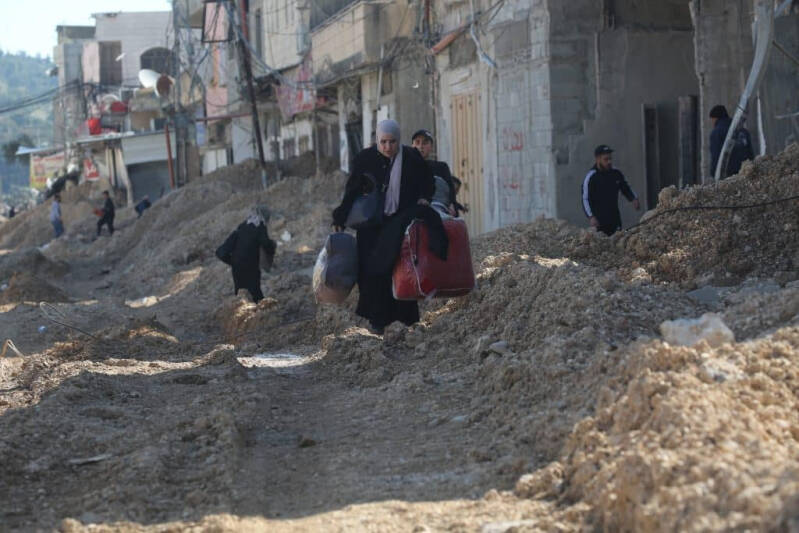
Six months since Israel’s expanded military assault on the refugee camps of Jenin and Tulkarem in the northern West Bank, over 42,000 Palestinian refugees remain forcibly displaced and have no stable access to food, water, or shelter.
The global Church has failed its duty to challenge the Gaza genocide
Jeff Wright

“The fact that churches have not sufficiently taken up this moral responsibility is a damning indictment. To brazenly prefer their comfort, interests, connections, and desire to avoid embarrassment is moral bankruptcy,” says Jonathan Kuttab.
1635.

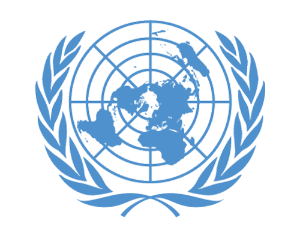
28 juli 2025
Statement on Gaza by Tom Fletcher, Under-Secretary-General for Humanitarian Affairs and Emergency Relief Coordinator
New York, 28 June 2025
As the world is witnessing, the humanitarian crisis in Gaza is devastating. One in three people in Gaza hasn’t eaten for days. People are being shot just trying to get food to feed their families. Children are wasting away. This is what we face on the ground right now.
We welcome Israel’s decision to support a one-week scale-up of aid, including lifting customs barriers on food, medicine and fuel from Egypt and the reported designation of secure routes for UN humanitarian convoys. Some movement restrictions appear to have been eased today, with initial reports indicating that over 100 truckloads were collected.
This is progress, but vast amounts of aid are needed to stave off famine and a catastrophic health crisis. Across the UN agencies and humanitarian community, we are mobilized to save as many lives as we can.
But we need sustained action, and fast, including quicker clearances for convoys going to the crossing and dispatching into Gaza; multiple trips per day to the crossings so we and our partners can pick up the cargo; safe routes that avoid crowded areas; and no more attacks on people gathering for food.
Fuel must be allowed in consistently and at the volume needed to keep aid operations running.
More than 59,000 people have reportedly been killed in Gaza since 7 October 2023, nearly 18,000 of them children.
International humanitarian law must be respected. Aid must not be blocked, delayed or come under fire. Hostages must be released, immediately and unconditionally.
Ultimately of course we don’t just need a pause – we need a permanent ceasefire.
The world is calling for this lifesaving aid to get through. We won’t stop working for that.
1634.

AVAAZ
28 juli 2025

Slechts tien dagen geleden weigerde de topdiplomaat van de EU sancties op te leggen, omdat ze ‘positieve signalen’ van Israël zou hebben opgevangen. En nu, terwijl uitgemergelde kinderen overal ter wereld op de voorpagina’s van de kranten staan, willen de EU-leiders eventuele acties uitstellen tot na de zomervakantie? Geen sprake van.
Maar er is een diplomatieke opstand gaande: 34 oud-EU-ambassadeurs hebben EU-leiders publiekelijk opgeroepen om ISRAËL SANCTIES OP TE LEGGEN. Dit momentum moeten we gebruiken om een concrete stap te zetten tegen de hongersnood. Als EU-leiders proberen te ontsnappen naar hun vakantievilla’s, brengen we onze oproep daarnaartoe, zodat ze er niet omheen kunnen.
De EU kan niet blijven vragen om ‘dialoog’ terwijl ze Israël nog altijd een voorkeursbehandeling geven op de Europese handelsmarkt. Het is zoals de oud-ambassadeurs in hun gezamenlijke brief schrijven: ‘Stilte en neutraliteit ten aanzien van genocide staat gelijk aan medeplichtigheid.’
Laten we samen opstaan en de Europese leiders oproepen om NU sancties op te leggen aan Israël. Als Israëls belangrijkste handelspartner kan de EU veel afdwingen.
Voeg jouw naam toe en deel met je vrienden!
Patricia, Joana, Antonia, Julian en het hele Avaaz-team
- Oud-EU-ambassadeurs roepen op tot sancties tegen Israël om gruwelen te stoppen (The Rights Forum)
- Mensen sterven van honger in Gaza, maar er is nog geen officiële hongersnood: hoe kan dat? (vrt)
- Tientallen doden door aanvallen op Gaza en 'veertien mensen verhongerd' (NOS)
- Starvation knocking on every door in Gaza 'horror show', says UN chief (RTE)
- A ‘cruel and unlawful betrayal’ – why is the EU not doing more to sanction Israel? (The Guardian)
- Open letter from 34 ex-EU ambassadors: 'Act now against Israel” (EU Observer)
- Mass starvation spreading across Gaza, aid agencies warn, as Israeli government says it is not responsible – Middle East crisis live (The Guardian)
1633.


28 juli 2025
Today's headlines
A new ‘dossier’ reveals extensive pro-Israel bias among reporters, editors and executives at the ‘NYTimes’
James North
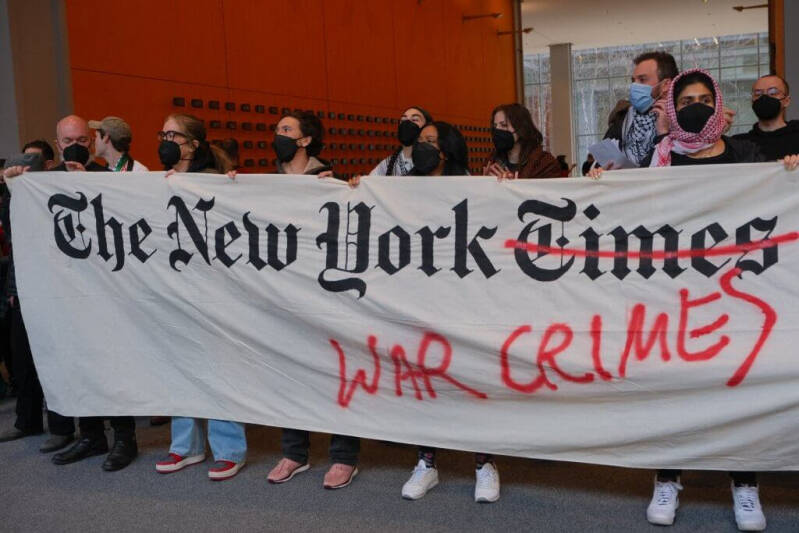
New York Times reporters are supposed to follow a strict code of ethics to avoid even the appearance of bias. A new report shows how the paper ignores this when it comes to covering Palestine.
1632.


28 juli 2025

Over the past quarter, our team has continued to advance coordinated international efforts to break the siege in Gaza and challenge Israeli interests and power internationally.
At PIPD, we remain committed to building an alternative infrastructure for diplomacy rooted in justice and grounded in our diaspora power. Here are some highlights from the past months.
Destination: Liberation
These past four months we continued our lobbying efforts to challenge international complicity and strengthen the Palestinian movement’s influence globally.
- We co-organized the Palestinian Coalition at the COP30 Climate Summit to take place in Brazil in the coming fall. We launched our joint call focusing on Energy Embargo at the Preparatory Conference to the Summit, in Bonn (SB62), speaking at press conferences and organizing a workshop, to strengthen ties with allies on the interconnection between climate justice and Palestine liberation.
- We coordinated the Palestinian Civil Society Unified Call to Action to engage with some member states and expose the shortcomings of the UN High-Level Conference on the so-called “implementation of the two-state solutions”.
- We are actively pursuing our work in Colombia, where we co-organized the high-level event “Decarbonization, Human Rights, and Palestine” in the Congress of the Republic, alongside and local partners. We exposed how multinationals like Drummond and Glencore exploited legal loopholes to ship over 1 million tons of coal to Israel in just five months.
- We were closely engaged and present in the Hague Group Emergency Conference of States in Bogotá, Colombia, which resulted in 12 member states committing to concrete measures to halt the Gaza genocide.
Rābet highlights
We continued working with Palestinian content creators and journalists to ensure our political work remains grounded in our people’s stories
- Watch the latest episode of Sole Survivors Stories, produced with award-winning Bisan Owda and featuring Rawan, who lost 12 family members, including her parents, her twin, and her siblings.
- Dive into the siege of cultural expression: Jenin Beyond the Lens: The Freedom Theatre, with Raneen Abhara.
- Do not miss Freedom Breakers: our interview series where journalist Lama Ghosheh sits with freed political prisoners. This month we recommend the episodes with journalist Rula Hassanein and Um Asef, the Iron Women.
- How do our people feel under the unbearable weight of genocide? Fatena Karim carries us into her feelings in A moment to breathe.
PIPD press room
We continue pushing a paradigm shift in the media. Some highlights::
- Our team in Brazil was behind the creation of the Brazilian journalists collective 'Shireen Abu Akleh', with the objective to fight against media complicity in reporting the genocide in Gaza.
- Our efforts bear fruits as our WhatsApp Group dedicated to journalists' support grew these last three months, with 800+ subscribers who rely on us for credible information from Palestine.
- Our Global Accountability Map remains a tool that is used by the movement and journalists, as we spotted in this Portuguese mainstream newspaper.
Support Our Work
If you would like to receive more detailed insights on our work behind the scenes, please consider becoming a PIPD regular supporter.
Your support will allow us to continue our mission in mobilising internationally for Palestinian liberation, while building a more sustainable and independent movement.
1631.

BREAKING THE SILENCE
27 juli 2025
Today, the IDF announced daily “humanitarian pauses” and resumed airdrops of aid into Gaza. But this isn't a genuine shift in policy. It's simply the latest manifestation of a twisted logic that leverages food as a means of control, not one with an actual intent to disperse aid. A deep dive into what’s happening on the ground unmasks the real agenda at play.
Earlier this month, Israeli Defense Minister Israel Katz unveiled the government’s plan to forcibly concentrate Gaza’s entire population in a so-called “humanitarian city” built on the ruins of Rafah. Together, these military actions and political decisions represent two sides of the same strategy shaping Gaza’s future and realizing the Israeli right's ultimate dream of ethnically cleansing the Palestinian population from Gaza altogether.
The only people who will be allowed to leave this “humanitarian city” will do so through mechanisms set up to encourage “voluntary emigration.” Another euphemism that has made its way into mainstream discourse. The terms “humanitarian city” and “voluntary emigration” are deliberate attempts to use language to mask a horrific reality. Just like the so-called “aid centers”—the four GHF sites supposedly intended to serve nearly 2 million people—where, instead, over 800 Palestinians have been killed while simply trying to access food.
We are almost 22 months in, and the ceasefire deal is once again stalling, the Israeli government keeps shifting the goalposts, prolonging the military operations which serve both the messianic settler agenda and Netanyahu’s own political survival.
And so, while our government continues to rely on vague language and deny the reality we witness daily, soldiers’ testimonies have played a crucial role in exposing what is actually happening on the ground.
Photo: Palestinians seeking aid, North Gaza City, 17.6.25 Yousef Zaanoun, Activestills
We've seen report after report, video after video, showing Palestinians being shot at while trying to reach food for themselves and their families. A few weeks ago, Haaretz revealed that soldiers were instructed by their commanders to fire at crowds near the GHF distribution sites to drive them away, even when it was clear they posed no threat. Here's how soldiers described the scenes:
"It's a killing field (...) where I was stationed, between one and five people were killed every day. They're treated like a hostile force – no crowd-control measures, no tear gas – just live fire with everything imaginable: heavy machine guns, grenade launchers, mortars. Then, once the center opens, the shooting stops, and they know they can approach. Our form of communication is gunfire."
"Technically, it's supposed to be warning fire – either to push people back or stop them from advancing (...) but lately, firing shells has just become standard practice. Every time we fire, there are casualties and deaths, and when someone asks why a shell is necessary, there's never a good answer. Sometimes, merely asking the question annoys the commanders."
"When we asked why they opened fire, we were told it was an order from above and that the civilians had posed a threat to the troops. I can say with certainty that the people were not close to the forces and did not endanger them. It was pointless – they were just killed, for nothing. This thing called killing innocent people – it's been normalized. We were constantly told there are no noncombatants in Gaza, and apparently that message sank in among the troops."
"They talk about using artillery on a junction full of civilians as if it's normal (...) An entire conversation about whether it's right or wrong to use artillery, without even asking why that weapon was needed in the first place. What concerns everyone is whether it'll hurt our legitimacy to keep operating in Gaza. The moral aspect is practically nonexistent. No one stops to ask why dozens of civilians looking for food are being killed every day."
These testimonies add to accounts published last week in +972 Magazine about the IDF’s use of drones to enforce expulsion orders across Gaza. Soldiers described deliberately targeting civilians so others would “learn” not to return. Here are some of the testimonies shared by soldiers, offering insight into these lax rules of engagement in the strip:
“There were many incidents of dropping grenades from drones (...), were they aimed at armed militants? Definitely not. Once a commander defines an imaginary red line that no one is allowed to cross, anyone who does is marked for death (...) even just for walking in the street.”
“There was a boy who entered the [off-limits] zone. He didn’t do anything. [Other soldiers] claimed to have seen him standing and talking to people. That’s it — they dropped a grenade from a drone.”
“In most cases, there was nothing you could tell yourself (...) there was no way to complete the sentence, ‘We killed them because…’”
“Whoever they spot, they kill (...) if people are moving around there - it’s a threat.”
All of these testimonies confirm what many already knew from listening to Palestinians and activists on the ground. And since these invaluable accounts come from within the system, they reveal that this horrific reality is not just the result of isolated incidents or a few commanders gone rogue, but of IDF policy and its systemic disregard for Palestinian life.
Photo: Gaza City, lights of Ashkelon in the background, 2.6.25 Yousef Zaanoun, Activestills
Meanwhile, the assaults continue, with Palestinians still being killed in staggering numbers each day. Today, Gaza hospitals reported that a total of 38 Palestinians were killed by IDF fire, including 24 while waiting for humanitarian aid.
The Israeli government’s attempt to conceal the horrific reality unfolding on the ground by manipulating language and disguising policies must be called out for what it is:
Concentrating millions of starving displaced people on the ruins of a city is not establishing a “humanitarian city,” just as ethnic cleansing is not “voluntary emigration,” death traps are not “aid distribution centers,” controlling the basic needs of millions is not “allowing aid in”, and thousands of dead children are not “collateral damage.”
The attacks must stop. A ceasefire and hostage deal must be made. Now.
How We Fight in Gaza
In addition to the testimonies given to us throughout the past two years, hundreds of soldiers have given us their testimonies on previous Israeli military campaigns they took part in, in the Gaza Strip. Looking back can help understand the reality we see unfolding and the choices we face today.
1630.


27 juli 2025
Today's headlines
U.S. pulls out of Gaza ceasefire talks
Qassam Muaddi

The U.S. has pulled out of the ceasefire talks between Israel and Hamas as Trump says that Hamas "didn’t really want to make a deal,” despite reports that its latest proposal was "better" than the one it had presented earlier in the week.
Understanding Israel and Trump’s conflicting agendas in Syria
Mitchell Plitnick

A common cliche used by American politicians to describe the U.S.-Israel relationship is that “there is no daylight between the two.” But this is clearly not true when it comes to Syria.
The New York Times commitment to Zionism begins with its own staff
Writers Against the War on Gaza
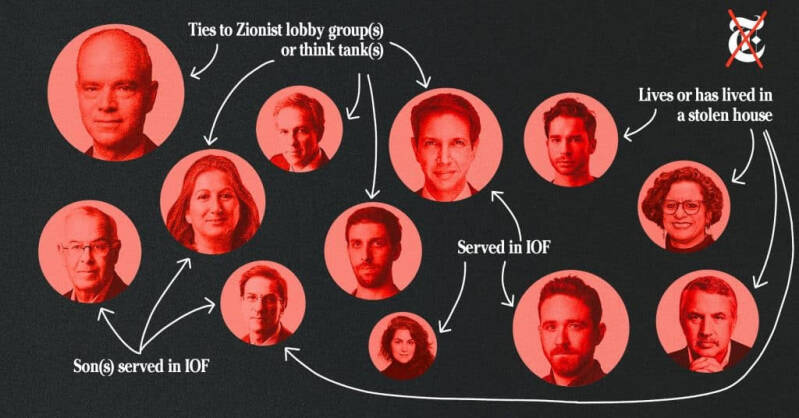
The New York Times has helped to enable and sustain Israel’s ongoing genocide. A new dossier reveals the close ties of 20 top editors, executives, and journalists at the Times who have covered Gaza and their connection to Israel and Zionism.
1629.


26 juli 2025
This is what ethnic cleansing in Gaza looks like
The horror in Gaza is reaching new depths. Starvation has become so widespread that children are dying daily from malnutrition. Women were lured to U.S.-run aid centers, attacked, and some were killed. The Israeli army gunned down scores of civilians at another aid convoy, and tried to lie about it. What we’re witnessing is not a breakdown in order—it’s the plan. This is a genocide, designed and carried out with intention by the Israeli government in coordination with the U.S. government.
Tareq Hajjaj reported devastating eyewitness accounts of the latest atrocities: children’s bodies withering from hunger, women beaten with batons by U.S.-backed aid staff, and mass killings of civilians at so-called humanitarian aid distribution sites. The Israeli and U.S. governments are trying to break the will of Palestinians in Gaza and force them to leave. In other words: ethnic cleansing. Mitchell Plitnick connects the dots in his piece on the Trump administration’s quiet approval of Israeli plans to forcibly expel Palestinians from Gaza. That plan is being implemented right now, through systematic starvation and terrorist violence.
In the West Bank, Israel is moving to formalize its practice of illegally annexing Palestinian land. The Knesset passed a motion to support it, while the state deepens its grip on land, water, and legal structures. We documented how one Israeli company controls the water flowing beneath Palestinian homes, and cuts it off at will. Jeff Wright’s reporting also shows how the apartheid legal system is being reshaped to strip Palestinians of rights and speed up the theft of their land. These policies aren’t separate from Gaza; they are part of the same effort to erase Palestinian life and sovereignty.
Here in the U.S., that project is propped up by politicians, media outlets, and institutions trying to criminalize dissent. The New York Times promotes genocide while pretending to report the news. A child advocate in California was punished for speaking about Palestinian trauma. And the leadership of the NEA, America’s largest union, rejected its own members’ democratic vote to cut ties with the ADL, revealing how disconnected the top ranks remain from the movement growing below them. Still, that movement is growing. Resistance continues in classrooms, unions, and city halls across the country.
Mondoweiss is one of the only outlets documenting these stories with the depth, clarity, and political urgency they demand. But we need your help. This is the final month of our fiscal year, and we’re trying to recruit 15 new monthly donors. If you believe in the importance of this work and want more people to see what’s really happening in Palestine, please become a monthly donor today. Together, we are building the narrative and political infrastructure that this movement needs.
David Reed, Publisher
Must Read: Palestinian women were told to go to U.S.-run aid sites in Gaza. They were killed and beaten instead, eyewitnesses say.
Tareq Hajjaj: The Israeli-backed and U.S.-run Gaza Humanitarian Foundation said that its distribution on Thursday would only be for Palestinian women. Eyewitnesses say that GHF staff pepper-sprayed them and beat them with batons, while two women were killed.

Palestinian women come back from GHF distribution center in southern Gaza, where eyewitnesses say GHF staff pepper-sprayed the aid-seekers and beat them with batons, July 24, 2025. (Photo: Abdallah Alattar/APA Images)
Genocide in Gaza
Tareq Hajjaj: The WFP reported on how the Israeli army opened fire on a crowd of starving civilians rushing an aid convoy in northern Gaza, which killed 90 people. The Israeli army lied and said no one was shot. Eyewitnesses describe a massacre.
Mitchell Plitnick: The head of the Mossad spy agency was recently in Washington to coordinate with the White House on plans to expel Palestinians from Gaza. The plan, along with the forced starvation and mass killing of Gazans, echoes the worst of the Nazi Holocaust.
Tareq Hajjaj: Children in Gaza have begun to die of severe malnutrition in increasing numbers as Israel continues to starve the people of Gaza. Infants are the most severely affected, as hunger devours their bodies until they reach “a point of no return.”
Catch-up
Mitchell Plitnick: A common cliche used by American politicians to describe the U.S.-Israel relationship is that “there is no daylight between the two.” But this is clearly not true when it comes to Syria.
Writers Against the War on Gaza: The New York Times has helped to enable and sustain Israel’s ongoing genocide. A new dossier reveals the close ties of 20 top editors, executives, and journalists at the Times who have covered Gaza and their connection to Israel and Zionism.
Qassam Muaddi: The Knesset’s motion supporting the annexation of the West Bank signals Israel’s intention of formalizing what it has already been doing at an accelerated pace since October 7 — establishing total Israeli control over Palestinian land.
Asfia Qaadir: The Jewish Community Relations Council attacked a talk I gave to the U.S.’s largest children’s mental health system as “antisemitic” because I discussed Palestinian trauma. My employer bowed to the pressure, but as a child advocate, I must speak out.
Jeff Wright: Netanyahu’s government is building on a long-standing legal matrix to accelerate Israel’s de facto annexation in the West Bank.
Qassam Muaddi: Palestinians in the West Bank are facing an unprecedented crisis in accessing enough water. But drying water resources isn’t the problem — it’s the fact that Israel extracts and controls all of the water from under their feet.
Sam Carliner: On July 18, the NEA Board of Directors voted to ignore a vote by 7,000 NEA members to end ties with the ADL. Still, union members are celebrating the original vote as a major shift among the rank and file toward Palestine and pledge to move forward.
Daniel Friedman: The first Jewish Anti-Zionist Congress, which drew 1,000 anti-Zionist Jews and their allies to Vienna, marked a significant moment in the rising tide against the settler-colonial state of Israel.
1628.


26 juli 2025
Today's headlines
The Israeli Knesset passed a motion supporting the annexation of the West Bank. Here’s what that means.
Qassam Muaddi

The Knesset's motion supporting the annexation of the West Bank signals Israel's intention of formalizing what it has already been doing at an accelerated pace since October 7 — establishing total Israeli control over Palestinian land.
How the Israeli army covered up another aid massacre that killed 90 starving Palestinians in Gaza
Tareq S. Hajjaj
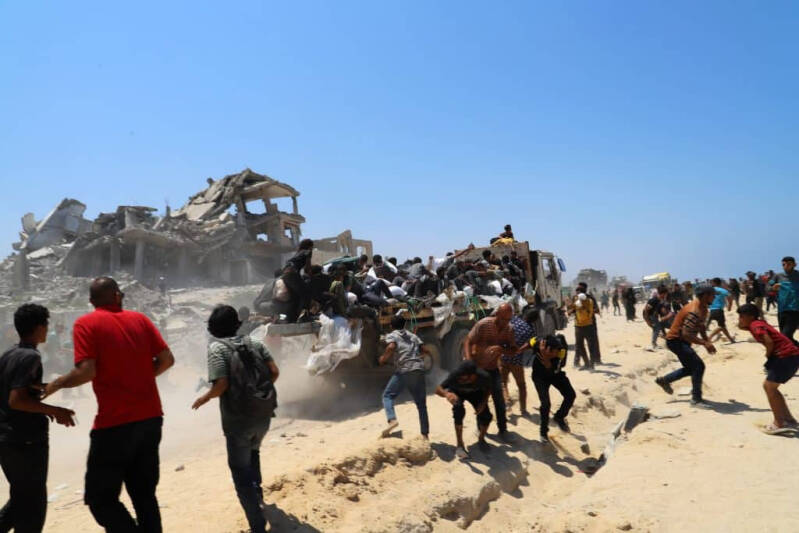
The WFP reported on how the Israeli army opened fire on a crowd of starving civilians rushing an aid convoy in northern Gaza, which killed 90 people. The Israeli army lied and said no one was shot. Eyewitnesses describe a massacre.
The JCRC tried to silence me for advocating for Palestinians, but I will not stop speaking out
Asfia Qaadir

The Jewish Community Relations Council attacked a talk I gave to the U.S.'s largest children’s mental health system as "antisemitic" because I discussed Palestinian trauma. My employer bowed to the pressure, but as a child advocate, I must speak out.
1627.


25 juli 2025
Omdat de Nederlandse staat zich nog steeds van zijn slechtste kant laat zien, organiseert de Rotterdam Palestina Coalitie vanaf vandaag een doorgaande wake in Den Haag.
De internationale BDS coalitie heeft de grassroots boycot van kledingketen Zara overgenomen. Eigenaar Inditex heeft onlangs het lef gehad om bij Tel Aviv een mega-Zara te openen. En hun kledingwerkers behandelen ze ook slecht.
In België gaat het best goed. Wij vertellen over vier goede ontwikkelingen daar. IDF-soldaten oppakken, wapenembargo bevelen ... België kan het.
Ook leggen we het vergrootglas nog een keer op Booking.com. Ze blijven ontkennen iets fout te doen, terwijl ze genoemd worden in het VN-rapport From apartheid economy to genocide economy van Speciale Rapporteur voor de Bezette Palestijnse Gebieden Francesca Albanese. In een video vraagt zij ook Booking.com en AirBNB links te laten liggen. Met het sponsorschap van Pride Amsterdam is aandacht voor Booking.com extra actueel.
Een strijdbare groet van het docP team; blijf BDS-en!

Wake bij Buitenlandse Zaken
Vanaf vrijdag 25 juli organiseert Rotterdam Palestina Coalitie samen met bezorgde burgers en organisaties een doorlopende 24-uurs wake bij het Ministerie van Buitenlandse Zaken in Den Haag.
Deze actie is een dringend moreel en politiek appèl op de Nederlandse regering om per direct sancties waaronder een wapenembargo tegen Israël in te stellen, het associatieverdrag met de zionistische entiteit per direct te verbreken en haar medeplichtigheid aan de genocide in Gaza te beëindigen.
Boycot ZARA!
Het Palestijnse BDS National Committee (BNC), onderschrijft officieel de grassroots campagne om ZARA te boycotten. We roepen gewetensvolle mensen over de hele wereld op om ZARA, het topmerk van de Spaanse multinational Inditex, te boycotten vanwege haar diepe en groeiende medeplichtigheid aan Israëls regime van kolonisatie, apartheid en genocide.
België gaat goed
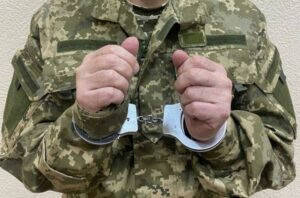
De laatste dagen worden oplettende mensen getrakteerd op goed nieuws uit België. We zetten het hier even onder elkaar. De Belgische politiek is sowieso veel meer pro-Palestina dan Nederland. In een week tijd is er een wapenembargo bevolen, spreekt de koning zich uit over Gaza en worden Israelische soldaten opgepakt. En de universiteiten spreken zich uit. […]
Laat Booking.com links liggen
Het rapport van Special rapporteur voor de bezette Palestijnse gebieden Francesca Albanese dat op 30 juni het licht zag besteedt ook aandacht aan de rol die het toerisme speelt in de Israëlische bezettingseconomie. Het is een kurk waarop de bezettingseconomie drijft. AirBNB en Booking.com zijn al langer de focus van een BDS campagne. Hier in […]
1626.


25 juli 2025
Americans for Justice in Palestine Action (AJP Action) demands an immediate end to the criminal, artificially engineered famine in Gaza, imposed by the Israeli government and the United States. What Israel and the United States government are doing is genocide and one of the worst crimes against humanity of the 21st century. This is not a natural disaster but a policy choice, executed with intent.
The World Food Programme (WFP) has stated that 100 percent of people in Gaza are facing acute levels of food insecurity right now, while the United Nations has declared that 96 percent of Gaza’s population—2.15 million people—are experiencing a “crisis” level of hunger that will scar and damage the population for a lifetime and kill hundreds of thousands in the coming days and weeks if not addressed. ‘Philippe Lazzarini, the commissioner-general of UNRWA, the U.N. Palestinian relief agency, posted on X Thursday that “People in Gaza are neither dead nor alive, they are walking corpses’: a colleague in #Gaza told me this morning.”
Palestinians have filmed themselves tying rocks around their stomachs to alleviate their pain, drinking salt water to stave off hunger, and dying while waiting in soup lines. Those who can reach limited food sources are being shot, beaten, and bludgeoned. At least 495,000 Palestinians are in “IPC Phase 5,” the most catastrophic stage of hunger that guarantees death without immediate intervention.
The few remaining hospitals are reporting infants weighing less than half of what they should, while aid workers are collapsing from hunger. Meanwhile, Israeli forces continue to open fire on starving Palestinians seeking food, massacring them at so-called distribution sites established under the U.S.-Israeli Gaza Humanitarian Foundation (GHF).
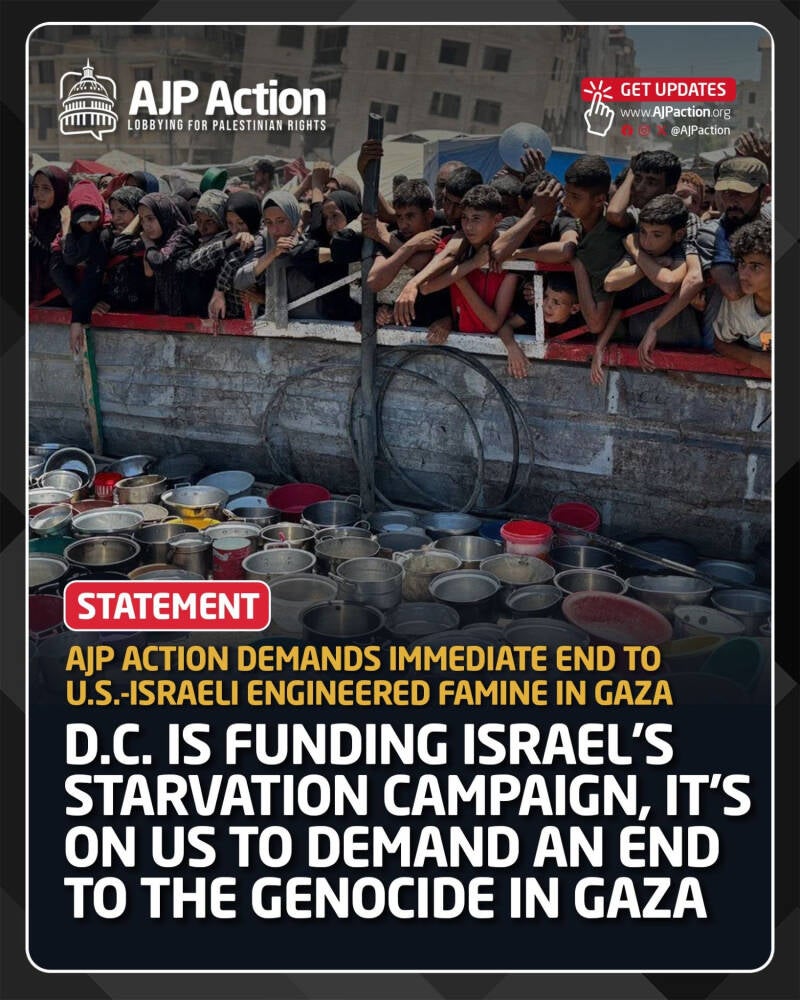
This famine is engineered. It is systematic. And it has been made possible by the U.S.
As the famine becomes irreversible, the Trump Administration is orchestrating the blockade alongside Israel and engaging fully in the genocide of Palestinians. President Trump’s recent remarks, responding to calls for humanity with callousness, illegally and immorally link humanitarian access for civilians in Gaza to negotiations over hostages and a ceasefire. This constitutes a direct violation of the Geneva Conventions and amounts to collective punishment.
A newly revealed USAID analysis found no evidence that Hamas has stolen U.S.-funded humanitarian aid in Gaza, undermining the central claim used by Israel and the U.S. to justify diverting aid away from the UN and toward militarized alternatives. The study instead documented dozens of aid losses caused directly or indirectly by the Israeli military, confirming that this famine is not accidental. It is engineered.
International law is clear: starving civilians as a method of warfare is a war crime. Using humanitarian aid as leverage to displace Palestinians or force political concessions is genocide. The delivery of food and medicine cannot depend on political calculations, nor can it be used to extract surrender from a population being systematically annihilated.
This is not the first time Palestinians have been promised relief only to see it shattered by duplicity. Earlier this year, Trump’s own envoys helped broker a ceasefire deal, only to allow Israel to renege weeks later. The Palestinian people have been forced into cycles of hope and betrayal for far too long. The international community must stop treating Palestinian survival as a point of negotiation.
We must stand up and demand that our politicians and government end the starvation of Palestinians and allow food, water, and necessities into the Gaza Strip. Take action now and urge your loved ones to do the same.
In solidarity,
Americans for Justice in Palestine Action
Americans for Justice in Palestine Action (AJP Action) is a 501(c)(4) nonprofit organization advocating for legislation supporting the human rights of the Palestinian people and endorsing candidates for office who support those rights.
1625.


25 juli 2025
Duizenden mensen kwamen gisteravond op 32 treinstations door heel Nederland bijeen om te protesteren tegen de uithongering van de Palestijnse bevolking in Gaza. De actie was een initiatief van de Palestijnse Gemeenschap Nederland, werd ondersteund door The Rights Forum en vond navolging in talloze steden. Lokale organisaties in de deelnemende steden zorgden voor de uitvoering.

De demonstratie op het Centraal Station in Amsterdam. [c] ANP via Alamy
Met pannen, potten en pollepels maakten we op oorverdovende wijze duidelijk dat de door Israël veroorzaakte hongersnood in Gaza, waarvoor al maanden wordt gewaarschuwd, onacceptabel is.
De Nederlandse regering moet nú in actie komen en van de Israëlische regering eisen dat voedsel en water op grote schaal Gaza binnengelaten wordt. Zolang dit niet gebeurt zullen wij actie blijven voeren. Wij moedigen iedereen aan hetzelfde te doen, en ondersteunen acties zoals die van gisteravond.
24-uurs wake
Vanochtend is een doorlopende 24-uurs wake bij het Ministerie van Buitenlandse Zaken in Den Haag van start gegaan. De organisatoren roepen de Nederlandse regering op om direct sancties tegen Israël in te stellen, en geven aan niet weg te gaan tot hun eisen zijn ingewilligd. Tijdens de wake zullen onafgebroken de namen van de vermoorde Palestijnen worden voorgelezen. Daarvoor is de organisatie nog op zoek naar vrijwilligers. Geïnteresseerden kunnen zich via deze link aanmelden, of door een e-mail te sturen.

Israëls doelbewuste uithongering van Gaza
De hongersnood in Gaza heeft catastrofale proporties bereikt. Meer dan honderd mensen in Gaza zijn inmiddels door de honger gestorven, en dat aantal loopt snel op.
Iedereen kampt er met acute voedselonzekerheid. Ruim 70.000 kinderen hebben dringend behandeling nodig voor ernstige ondervoeding. Een op de drie Palestijnen in Gaza eet dagen achter elkaar niets, zegt het Wereldvoedselprogramma.
Laat er geen verwarring over zijn: de hongersnood in Gaza is het beleid van Israël – dat daar telkens weer ongestraft mee wegkomt. Met rugdekking van de Europese Unie en landen als Nederland, die weigeren sancties tegen Israël in te stellen.
Deze week publiceerden wij een uitgebreid artikel over de Israëlische uithongering van Gaza en het wegkijken van de EU. Dat is hier te lezen.
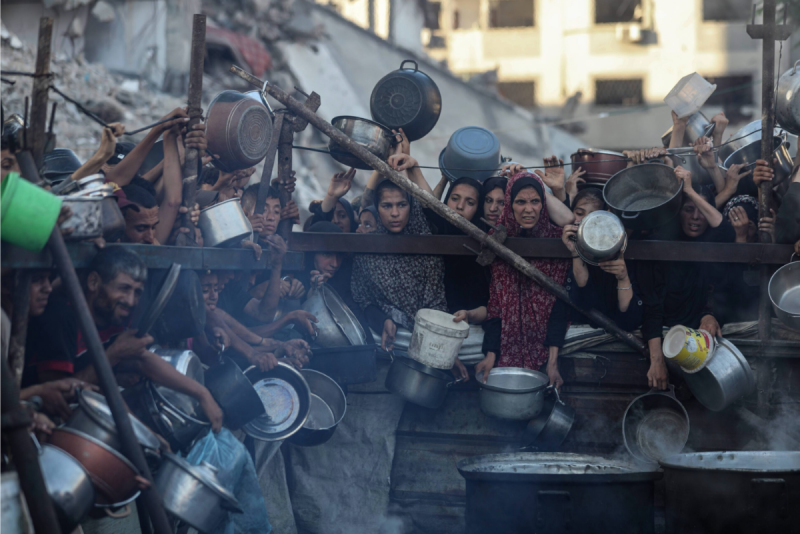
Rechtse meerderheid Tweede Kamer voorkomt debat over Gaza
Een verzoek van Kamerleden Jan Paternotte (D66) en Kati Piri (GroenLinks-PvdA) tot een Kamerdebat over Gaza is door een meerderheid van de partijen afgewezen. Naast de indieners GroenLinks-PvdA en D66 stemden alleen DENK, Partij voor de Dieren, SP en Volt voor. De PVV, NSC, BBB en SGP stemden tegen het voorstel. De overige partijen – VVD, CDA, ChristenUnie, FvD en JA21 – namen niet eens de moeite om te reageren.

Henri Bontenbal (CDA) en Dilan Yesilgöz (VVD) in de Tweede Kamer, 1 juli 2025. Hun partijen namen niet de moeite om te reageren op het verzoek tot een Kamerdebat over Gaza, en lopen opnieuw hun verantwoordelijkheid uit de weg. © ANP via Alamy
EU-aanpak heeft gefaald
Het verzoek voor een debat kwam nadat duidelijk werd dat de Europese overeenkomst met Israël, die op 10 juli bekendgemaakt werd, niet nagekomen is. De EU weigerde toen sancties tegen Israël te treffen om het land te dwingen zijn genocide te staken. In ruil daarvoor zou Israël substantiële humanitaire hulp toelaten in Gaza toelaten.
Twee weken later is daar niets van terechtgekomen. Integendeel, de Palestijnse bevolking wordt op beestachtige wijze uitgehongerd, gebombardeerd en opgejaagd, terwijl de laatste huizen door Israël met de grond gelijk worden gemaakt.
Nederlandse sancties onvermijdelijk
Minister van Buitenlandse Zaken Caspar Veldkamp (NSC) stelde eerder dat nationale sancties tegen Israël pas aan de orde zijn als de EU niets gedaan krijgt. Op dat punt zijn we lang en breed aangekomen. Maar opnieuw lijken Veldkamps beloftes niets waard.
Voor de Palestijnse bevolking in Gaza telt iedere dag. Maar niet voor de vakantievierende Tweede Kamerleden van Veldkamps partij en de acht andere fracties die het debat voorkwamen. Wie wil weten welke partij dit najaar zijn stem verdient, heeft nu een duidelijke indicatie.
Lees ook:
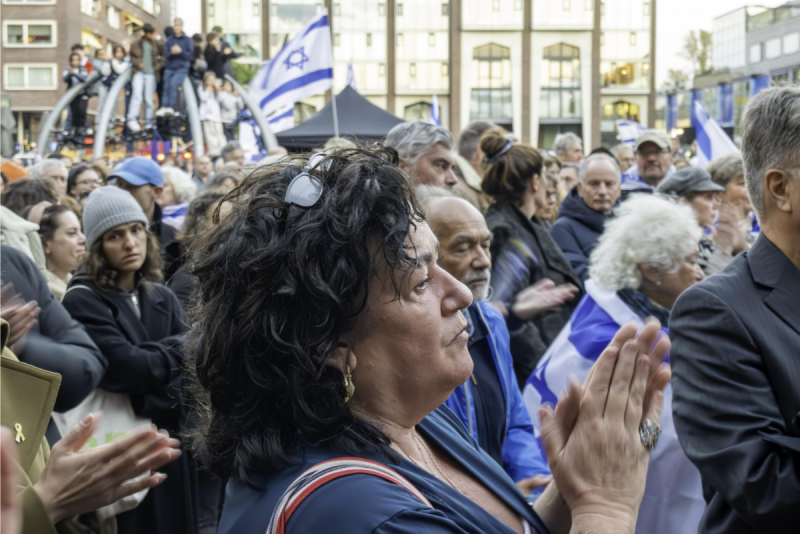
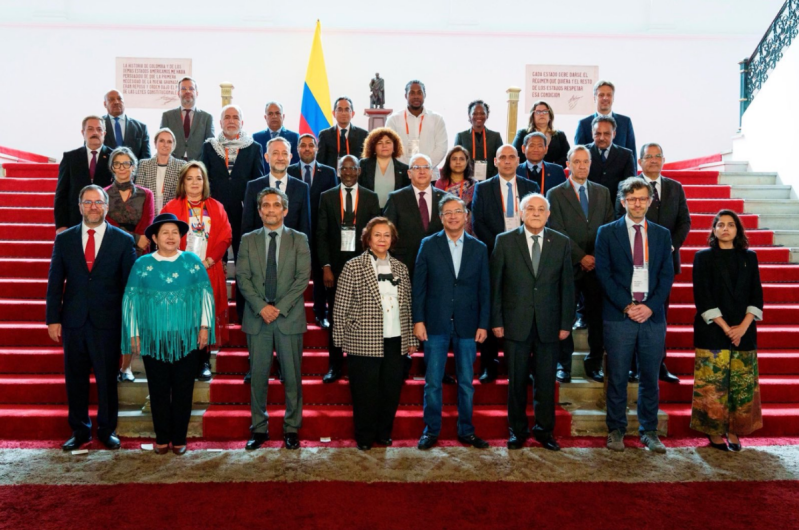
Israël vormt een bedreiging voor de Nederlandse samenleving, waarschuwen inlichtingendiensten
Israël wordt voor het eerst genoemd als bedreiging in het rapport Dreigingsbeeld Statelijke Actoren van de Nationaal Coördinator Terrorisme en Veiligheid (NCTV). Israël staat in een lijst landen die proberen in Nederland ‘de publieke opinie en politieke besluitvorming naar hun hand te zetten’, naast Iran, Rusland en Turkije.
Twaalf landen nemen maatregelen tegen Israël om genocide te stoppen
Terwijl de Europese Unie medeplichtig blijft aan de genocide in Gaza, geeft een groep van twaalf landen uit het mondiale Zuiden wél het goede voorbeeld met een pakket concrete acties tegen Israël.

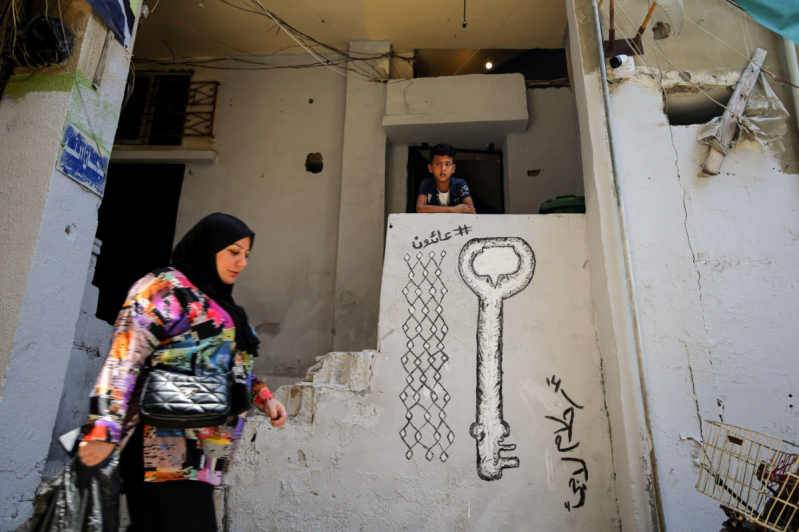
Opinie | Laat Willem-Alexander een voorbeeld nemen aan de Belgische koning
De Belgische koning Filip heeft zich luid en duidelijk uitgesproken tegen Israëls genocide in Palestina. Wanneer doet koning Willem-Alexander hetzelfde, vraagt Jos van Noord zich af.
Palestijnse vluchtelingen uit Syrië hebben in Libanon nauwelijks toekomstperspectief
Veel Palestijnse vluchtelingen in Libanon hebben te maken met discriminatie, armoede en werkloosheid. Palestijnen die na 2011 vanuit Syrië naar Libanon vluchtten, zijn extra kwetsbaar. Vooral sinds de Libanese regering de verlenging van hun verblijfsvergunningen een jaar geleden stopzette.
Uit onze agenda
zaterdag 26 juli t/m zaterdag 2 augustus
Demonstraties en wakes
• Doorlopende 24-uurs stiltewake vanaf 25 juli in Den Haag, bij het ministerie van Buitenlandse Zaken, Rijnstraat 8, Den Haag
• Getuigen van Gaza tot en met zondag 27 juli in Utrecht, Stadhuisbrug en Moskeeplein
• Wake op zaterdag 26 juli in Nijmegen, Koningsplein - Marienburg (14.00 uur)
• Stil protest van gate48 - de organisatie van kritische Israëli's in Nederland op zondag 27 juli in Amsterdam, 't Spui (17.00 uur)
• Stilteprotest voor Palestina op maandag 28 juli in Utrecht, Neude, langs het fietspad (08.30 uur)
• Sit-in rijksambtenaren op donderdag 31 juli in Den Haag, Ministerie van Buitenlandse Zaken, Rijnstraat 8 (12.00 uur)
• Wake op vrijdag 1 augustus in Amsterdam, Spui, bij ‘t Lieverdje (12.45 uur)
• Wake op zaterdag 2 augustus in Groningen, Waagplein (13.00 uur)
• Wake op zaterdag 2 augustus in Maastricht, Markt, bij het standbeeld van J.P. Minckelers, aan de kant van de Boschstraat (16.00 uur)
• Wake op zondag 3 augustus in Haarlem, Grote Markt (14.00 uur)
Culturele evenementen
• Conferentie: Doing Justice, Loving Mercy. Palestinian Theology and Radical European Solidarity van vrijdag 25 juli tot en met zondag 27 juli in Helvoirt
Bekijk hier de hele agenda
1624.


25 juli 2025
Today's headlines
Palestinian women were told to go to U.S.-run aid sites in Gaza. They were killed and beaten instead, eyewitnesses say.
Tareq S. Hajjaj
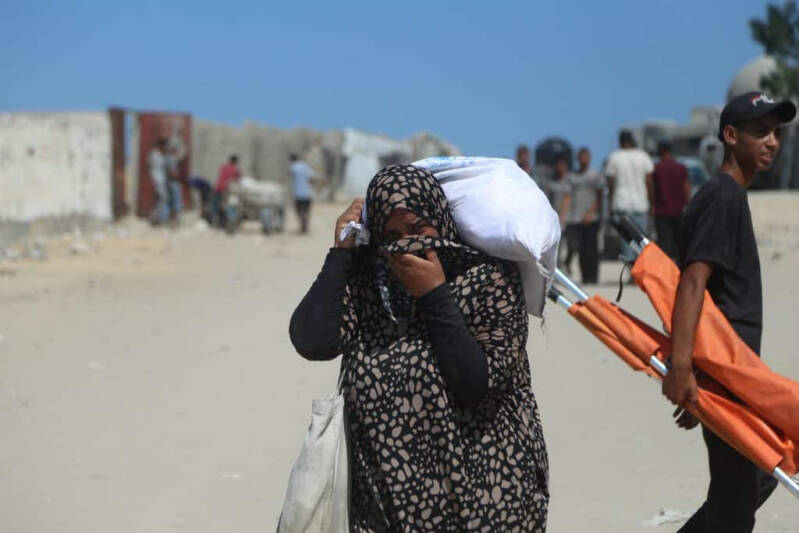
The Israeli-backed and U.S.-run Gaza Humanitarian Foundation said that its distribution on Thursday would only be for Palestinian women. Eyewitnesses say that GHF staff pepper-sprayed them and beat them with batons, while two women were killed.
Israel is changing the legal system governing the West Bank to accelerate annexation: report
Jeff Wright

Netanyahu’s government is building on a long-standing legal matrix to accelerate Israel’s de facto annexation in the West Bank
1623.


24 juli 2025
The global BDS movement officially endorses the grassroots organic campaign to boycott ZARA. We call on people of conscience around the world to boycott ZARA, the flagship brand of the Spanish multinational Inditex, for its deep and growing complicity in Israel’s regime of settler-colonialism, apartheid, and genocide.
ZARA’s complicity with Israel’s regime of oppression runs deep:
- At the start of 2025, amid Israel’s ongoing genocidal assault on Palestinians in Gaza, ZARA opened its largest-ever store near Tel Aviv- a 4,500 m² flagship in the Big Fashion Glilot complex, deepening Zara’s economic ties with apartheid Israel, where the brand already operates dozens of stores.
- In October 2022, ZARA's Israeli franchisee hosted a campaign event for the fascist and genocidal Israeli minister, Itamar Ben-Gvir, who praised the brand.
- In June 2021, ZARA's then-head designer made racist comments against Palestinians online, but the company issued only a vague statement without any real consequences.
- In December 2023, ZARA ran an ad campaign titled “The Jacket,” depicting mannequins wrapped in white shrouds next to crumbled statues. Sparking backlash by the public, who saw it as a direct allusion to the ongoing genocide in Gaza, the brand removed it and issued a noncommittal apology without addressing its ties to Israel.
Share the call to #BoycottZARA.
The BDS call to boycott ZARA comes at a time when Israel is “plausibly” committing genocide against 2.3 million Palestinians in Gaza, as determined by the International Court of Justice.
Important note: this is not a call to throw out your existing ZARA clothes, instead, please continue to wear them. ZARA’s oversupply is contributing to the global textile waste crisis, causing a humanitarian disaster for frontline communities.
ZARA has chosen to fashion-wash genocide and apartheid. The fast fashion outlet is also devastating the planet. Boycott ZARA until it ends its criminal complicity.
Read our full #BoycottZARA statement.
1622.


24 juli 2025
Thank you for your dedication to equality and human rights globally.
Unfortunately, Human Rights Watch will no longer be sending the Daily Brief. The good news is, you can still get the latest in human rights sent straight to your inbox every Friday by subscribing to the Week in Rights.
1621.


24 juli 2025
In Gaza right now, Palestinians are collapsing in the streets from hunger, infants are starving to death without formula, and anyone who dares approach the GHF’s concentration camps risks getting shot by Israeli soldiers or American mercenaries.1
This isn’t death. It’s mass murder. Israel has blocked almost all aid since early March, shutting down aid systems and replacing them with U.S./Israeli-run concentration camp sites.
One of the most important things you can do is to support trusted direct aid efforts led by Palestinians on the ground, like the “Water Is Life Gaza” project. Please give as generously as you can now.

Water Is Life Gaza is fiscally sponsored by the Seven Sisters Collective, a registered 501(c)3 nonprofit organization. They partner with a grassroots Palestinian team to distribute water, food, and aid on the ground in Gaza.
Since November 2024, Water Is Life Gaza's grassroots team has delivered 430 water trucks, the equivalent of 4.3 million water bottles.
Last night, a steadfast leader of Water Is Life Gaza’s grassroots team, Ahmed Hamdan, was targeted and bombed by Israel in a tent with his family. Israel injured Ahmed and his parents, and murdered his uncle and aunt in this horrific attack.2
As a Palestinian journalist, Ahmed has kept reporting and taking care of his people while starved and displaced. Your support for this project is needed now.
Here are a few important reasons why I’m uplifting this opportunity:
- 100% of the proceeds from the Water is Life Gaza fundraiser go to frontline relief in Gaza.
- Their grassroots team is led by Palestinians on the ground.
- They source their water from Palestinian-owned wells in the north, relying on community-led systems of survival under siege.
This is direct aid—organized by and for Palestinians in Gaza, fiscally sponsored by Seven Sisters Collective, and supported by Indigenous and Palestinian organizers across Turtle Island and around the world.
Nico, will you support Palestinian steadfastness amid Israel's forced starvation, thirst, and genocide? Make a donation of any amount to Water Is Life Gaza now.
SUPPORT DIRECT AID FOR GAZA NOW
When we say from Turtle Island to Palestine, we mean our liberation is intertwined. Indigenous solidarity is the foundation of this partnership. We stand together as Indigenous peoples, reclaiming life, land, and dignity on our own terms.
Thank you for your steadfast commitment to liberation and your generous support of this project.
Onward to liberation,
AHMAD ABUZNAID
Executive Director
P.S. For more ways to take action, check out our Stop Gaza Genocide toolkit including the Protest and Mobilize page, where you can watch Palestinian journalist Bisan’s call-to-action video and find a noise demonstration or other protest near you.
1620.


24 juli 2025
De hongersnood in Gaza heeft catastrofale proporties bereikt. Onze regering staat erbij en kijkt ernaar.
Vandaag wordt op initiatief van de Palestijnse Gemeenschap Nederland en veel andere organisaties om 18:00 uur op treinstations gedemonstreerd tegen de genocide.
Ik roep jullie allemaal op: kom ook! Breng potten en pannen mee en laat je stem horen voor de bevolking in Gaza.Deze stations zijn tot nu toe bevestigd:
Alkmaar (17:30)
Almere
Amersfoort CS
Amsterdam CS
Apeldoorn
Arnhem (bij de piano)
Assen
Breda
Delft
Den Bosch
Den Haag CS
Deventer (de Brink)
Doetinchem
Dordrecht
Ede-Wageningen
Eindhoven
Enschede
Groningen
Haarlem
Hilversum (17:45)
Hengelo
Leiden
Lelystad
Maastricht
Middelburg
Nijmegen
Rotterdam
Tilburg
Utrecht
Zaandam (17:00)
Zuthpen
ZwolleKom naar het station en laat van je horen!
Met strijdbare groet,
Gerard Jonkman
directeur The Rights Forum
1619.


24 juli 2025
Today's headlines
Israel and the Trump administration are carrying out their final solution in Gaza
Mitchell Plitnick

The head of the Mossad spy agency was recently in Washington to coordinate with the White House on plans to expel Palestinians from Gaza. The plan, along with the forced starvation and mass killing of Gazans, echoes the worst of the Nazi Holocaust.
1618.


23 juli 2025
Humanitarian Situation Update #307
Gaza Strip
23 July 2025

A Palestinian girl waiting for food served by a community kitchen in Gaza city. Photo by UN News
Key Highlights
- People in Gaza continue to face death, injury, displacement and trauma amid continued hostilities and the slow erosion of conditions essential for survival, including adequate access to food, water, health care and shelter.
- Over one million children are bearing the brunt of deepening starvation and malnutrition, with cases of death from malnutrition increasing by the day. Those who survive face severe, life-altering risks, including impaired cognitive and physical growth.
- More than two million people in the Gaza Strip have been squeezed into less than 45 square kilometres, the size of Gaza city, while 88 per cent of the territory now falls within Israeli-militarized zones or has been placed under displacement orders.
- A recent displacement order by the Israeli military for areas in western Deir al Balah has further strangled humanitarian operations and the functioning of key humanitarian facilities.
Humanitarian Developments
- Over the past week, Israeli forces have continued to carry out heavy bombardment from the air, land and sea across the Gaza Strip, issued additional displacement orders, and further expanded ground operations. On 20 July, the Israeli military issued a displacement order for areas in western Deir al Balah (see more below) and warned people not to return to areas in northern Gaza that according to the Israeli military are currently active combat zones. Rocket fire by Palestinian armed groups into Israel and fighting with Israeli forces have also taken place.
- Gaza’s one million children continue to bear the brunt of continued bombardment, deprivation of access to life’s essentials, including food, water and adequate health care, and exposure to traumatic events. In a briefing to the UN Security Council on 16 July, Catherine Russell, Executive Director of the United Nations Children’s Fund (UNICEF), stated that more than 17,000 children have reportedly been killed and 33,000 injured in Gaza over 21 months, which is the equivalent of a classroom of 28 children killed in Gaza on average each day. “These children are not combatants. They are being killed and maimed as they line up” to access food, medicine, nutritional supplies and water and they continue to endure “catastrophic living conditions,” she said. She emphasized that “the simple truth is that we are failing Gaza’s children. Seen through their eyes, our failure is a betrayal of their right to be children.”
- According to the Ministry of Health (MoH) in Gaza, between 16 and 23 July, 646 Palestinians were killed, and 3,438 were injured. Between 7 October 2023 and 23 July 2025, the MoH in Gaza reported that at least 59,219 Palestinians were killed, and 143,045 Palestinians were injured. This includes 8,363 people killed and 31,004 injured since the re-escalation of hostilities on 18 March 2025, according to MoH. The MoH further noted that the number of casualties among people trying to access food supplies has increased to 1,060 fatalities and more than 7,207 injuries since 27 May 2025.
- MoH in Gaza has warned that medical teams have reported a notable increase in hunger-related deaths and complications from malnutrition (see more below), at a time when health facilities lack the capacity and resources to treat the consequences of this catastrophe. Emergency departments are receiving unprecedented numbers of severely weakened and exhausted people of all ages, suffering from extreme fatigue and physical collapse, MoH added. The Ministry highlighted that hundreds, whose bodies have wasted away from starvation and surpassed the limits of their physical endurance, are now severely weakened by hunger and at imminent risk of death.
- Between 16 and 23 July, two Israeli soldiers were killed in Gaza, according to the Israeli military. Between 7 October 2023 and 23 July 2025, according to Israeli forces and official Israeli sources cited in the media, more than 1,651 Israelis and foreign nationals were killed, the majority on 7 October 2023 and its immediate aftermath. This includes 451 soldiers killed, in addition to 2,821 soldiers injured, in Gaza or along the border in Israel since the beginning of the ground operation in October 2023. As of 23 July, it is estimated that 50 Israelis and foreign nationals remain captive in Gaza, including hostages who have been declared dead and whose bodies are being withheld.
- Between 16 and 23 July, the Israeli military issued three displacement orders for parts of North Gaza, Gaza and Deir al Balah governorates, covering 10.5 square kilometres. Since 18 March, the Israeli military has issued displacement orders for 303.2 square kilometres (83 per cent of the Gaza Strip). According to the Site Management Cluster (SMC), more than 762,500 Palestinians in Gaza were newly displaced between 18 March and 22 July. This includes over 25,000 people displaced between 15 and 22 July. With no safe place to go, many people have sought refuge in overcrowded displacement sites, makeshift shelters, damaged buildings, streets and open areas. People have been confined to ever-shrinking spaces; as of 20 July, around 88 per cent of the Gaza Strip is within Israeli-militarized zones or placed under displacement orders (they largely overlap) since 18 March 2025. The most recent displacement order on 20 July has had especially concerning consequences given that it affects an area of Deir al Balah that has served as a hub for humanitarian operations, including offices, guesthouses, medical facilities, warehouses and other critical infrastructure (see below).
- “The latest Israeli displacement orders, followed by intensive attacks, on southwestern Deir El Balah, in the Gaza Strip, have added more misery to the suffering of hungry Palestinians,” stated the United Nations High Commissioner for Human Rights, Volker Turk. “It seemed the nightmare couldn’t possibly get worse. And yet it does,” he said, warning that “Israeli airstrikes and ground operations will invariably lead to further civilian deaths and destruction of civilian infrastructure. Given the concentration of civilians in the area, and the means and methods of warfare employed by Israel until now, the risks of unlawful killings and other serious violations of international humanitarian law are extremely high.” He added that “homes have already been destroyed, and thousands have been forced to flee the area again. Their only choice is to go to the ever-shrinking areas of Gaza where hundreds of thousands are being forced to gather, rendering difficult any attempt to deliver humanitarian assistance. Even these areas are not safe.”
- Between 16 and 22 July, out of 75 attempts to coordinate planned aid movements with Israeli authorities across the Gaza Strip, nearly 23 per cent were denied. An additional 21 per cent were initially accepted but faced impediments, including blocks or delays on the ground potentially resulting in missions being aborted or partially accomplished. Another 31 per cent were fully facilitated, and the remaining 25 per cent had to be withdrawn by the organizers for logistical, operational, or security reasons. All these include 29 attempts to coordinate aid movements in or to northern Gaza, of which 28 per cent (eight) were facilitated, 28 per cent (eight) were denied, 21 per cent (six) faced impediments, and 24 per cent (seven) were withdrawn. In southern Gaza, out of 46 attempts, 33 per cent (15) were facilitated, 19 per cent (nine) were denied, 22 per cent (10) faced impediments and 26 per cent (12) were withdrawn.
- After two weeks without medical evacuations, on 17 July, the World Health Organization (WHO) led the medical evacuation of 35 patients, mostly children, accompanied by 72 companions, to Jordan. According to WHO, over 10,000 patients require medical evacuation abroad.
- According to Médecins Sans Frontières (MSF), Israeli authorities have allowed only a few of those requesting medical evacuation to do so, with many critical cases being delayed or denied regardless of medical urgency. MSF’s project coordinator for medical evacuations in Gaza said: “You don't know what is the reason [sic] behind denying cases. Sometimes, when they approve a case, they refuse the companion. You are talking about separation of families, impacting people in need. And this has also impacted many countries that were very active and motivated to take cases out of Gaza, but were blocked because of [Israel’s] refusal.”
- Reports of children disappearing after going to access food at militarized distribution points were reported. According to HaMoked, an Israeli NGO, in the past month, it has been contacted by nine families after their teenage sons went to get food at militarized distribution sites in Gaza and did not return. The Israeli military confirmed to HaMoked that they detained five of the boys. Four of them, ages 15 to 17 years, are being denied access to an attorney, according to HaMoked, while the fate of the other four missing boys is unknown. HaMoked expressed grave concern that they may have been killed.

Strikes Resulting in Casualties
- On 17 July, the compound of the Holy Family Church in Gaza city was hit, killing three people, including one woman, and injuring 10 others. The Patriarchate of Jerusalem stated that the church was sheltering 600 displaced persons, the majority of whom are children and 54 people are with special needs. It was noted that large parts of the church were destroyed, and the people with special needs were forced to evacuate, some of whom without being able to take the respirators they rely on for survival. On 18 July, the Latin Patriarch and the Greek Orthodox Patriarch entered Gaza to assess the needs. In coordination with humanitarian partners, the delivery of essential assistance to the Christian community and as many families as possible was secured. This included hundreds of tons of food supplies, first aid kits, and urgently needed medical equipment. In addition, the Patriarchate ensured the evacuation of people injured in the attack to medical institutions outside Gaza where they will receive care.
- Casualties among people trying to access food supplies continue to be reported. Key incidents include:
- On 16 July, at about 08:20, 18 Palestinians, including one female, were reportedly killed in a stampede near a militarized distribution point in Khan Younis.
- On 18 July, at about 17:00, nine Palestinians were reportedly shot and killed near a militarized distribution point in northwest Rafah.
- On 19 July, during the morning hours, Nasser Hospital, in Khan Younis, reported that it received 25 Palestinian fatalities and more than 100 injured people from areas where people were seeking aid.
- On 20 July, according to a statement by the World Food Programme (WFP), a 25-truck WFP convoy carrying vital food assistance crossed Zikim crossing, in northern Gaza, and subsequently encountered large crowds of civilians anxiously waiting to access desperately needed food supplies. “As the convoy approached, the surrounding crowd came under fire from Israeli tanks, snipers and other gunfire,” resulting in mass casualties. At 14:45, the MoH reported that 73 people had been killed and more than 150, some in critical condition, were injured in the incident. Abu Selmiyah stated that most of the injuries were in the head or chest and that Al Shifa hospital was overwhelmed with the influx of casualties. Based on available reports, this appears to be the highest number of fatalities among Palestinians seeking food in a single location and on a single day since 27 May.
- Strikes on people sheltering in schools, tents and residential buildings continue to be reported, resulting in mass casualties, including among children. Key incidents include:
- On 16 July, at about 11:45, six Palestinians, including two girls, two boys and a woman, were reportedly killed when IDP tents were hit in Khan Younis.
- On 16 July, at about 17:40, seven Palestinians, including one boy and one woman, were reportedly killed and others injured, including children and at least one woman, in a strike in Al Bureij Camp, in Deir al Balah.
- On 16 July, at about 16:15, at least five people, including a female infant, were reportedly killed when a residential building was hit in As Sabra area, in Gaza city.
- On 17 July, at about 01:45, five Palestinians, including three females, were reportedly killed and 17 others injured, some critically, when an IDP tent inside a school was hit in Al Bureij camp in Deir al Balah.
- On 17 July, at about 07:30, eight Palestinians guarding humanitarian aid were reportedly killed in a strike on At Twam area, south of Beit Lahiya, in North Gaza. Reports indicated that fatalities included men who belonged to tribes and families volunteering to guard humanitarian convoys.
- On 17 July, at about 18:45, a Palestinian woman and her son were reportedly killed and nine others injured when a school housing IDPs was hit west of Khan Younis.
- On 18 July, at about 03:15, at least five Palestinians, including two females, were reportedly killed and 10 others injured when a residential building was hit west of Khan Younis.
- On 18 July, at about 20:00, three Palestinians were reportedly killed and three others injured when a school sheltering IDPs was hit in Ash Sheikh Radwan, north of Gaza city.
- On 20 July, at about 14:20, 14 Palestinians, including a girl, were reportedly killed in strikes on tents in Al Mawasi, in western Khan Younis. The Palestinian Civil Defense (PCD) reported that its facility in the area was targeted, resulting in the killing of one staff member and the injury of five others. According to PCD, this incident marks the 11th time PCD points and centres were targeted, and the 25th attack on personnel while on duty, with a total of 134 PCD staff killed and 336 injured since October 2023.
- On 21 July, at about 14:00, five Palestinians, including a woman, were reportedly killed and others injured when a water filling point was hit in Al Rimal neighbourhood, west of Gaza city.
- On 22 July, at about 01:00, 15 Palestinians, including women and children, were reportedly killed and around 50 others were injured when IDP tents were hit in Ash Shati’ (Beach) Camp, west of Gaza city.
- On 22 July, at about 18:30, 15 Palestinians, including six children, were reportedly killed and many others injured when a residential building was hit in Beit Lahiya, in North Gaza. Reportedly, some paramedics were also injured, and at least one ambulance was damaged, as the residential building is located near an ambulance station.
- In less than two months, the UN Human Rights office (OHCHR) has recorded at least 10 strikes in Gaza that killed at least 10 doctors and five nurses, including seven strikes on residential buildings or tents that killed medical professionals along with their families. In one incident on 14 July, a nurse was killed in a strike on his tent, in Khan Younis, along with his three daughters, all children. Another strike on 5 July on the tent of a physician in Al Qarara, in Khan Younis, killed him along with his two daughters and son. Earlier on 6 June, a strike on a residential building in North Gaza killed five physicians and one nurse from the same family. And on 23 May, a strike on a residential building in southern Khan Younis killed a doctor and nine of his children. OHCHR noted that it “has not received any indication that [these medical professionals] or their families were in any way directly participating in hostilities, raising serious concerns regarding possible wilful killings or attacks directed at civilians, which would amount to war crimes.” Coupled with the destruction of hospitals and the absence of medicine and equipment, these “killings in this context further limit or negate the availability of life saving treatment for Palestinians,” OHCHR added.
- On 20 July, according to the Education Cluster, a school serving children in kindergarten and 1st through 6th Grade was hit in Gaza city. At the time of the incident, approximately 200 children were present. The strike caused significant structural damage and injured a six-year-old boy. The school had previously sustained damage from tank shelling, which had been temporarily repaired using tarpaulins, allowing for a limited resumption of learning activities. Following the latest incident, the school has suspended all learning to allow for debris clearance and a full damage assessment. All students and staff urgently require mental health and psycho-social support and sustained learning support to safeguard their well-being and minimize disruption to their learning.
- On 22 July, the Ministry of Education, with the support of Education Cluster and humanitarian partners, successfully concluded the first phase of the General Secondary Education Examinations (Tawjihi) targeting students who missed their exams in 2023. Out of over 1,800 students who initially registered for the exam, most have taken the exams on 19 and 22 July, with the second session also organized to support students who experienced technical issues, lacked internet access, or were unable to perform their best during the 19 July session. This milestone reflects strong coordination and partners’ support under extremely challenging conditions. Planning is ongoing for the second and third phases; however, their implementation remains dependent on improvements in the security and access environment, particularly the possibility of a ceasefire. A total of 77 learning spaces have already been identified to host the next round of exams, although substantial logistical preparations are still required to ensure readiness.
Starvation in Gaza is Deepening and Claiming Lives Daily
- Over the past 65 days, humanitarian organizations have been able to bring into Gaza only limited quantities of aid to address acute levels of food insecurity and other basic needs essential for the survival of the civilian population. This is due to a number of interdependent factors, including: bureaucratic, logistical, administrative and other operational obstacles imposed by Israeli authorities; ongoing hostilities and access constraints within Gaza; and rising incidents of looting and shooting at desperate people gathering to offload aid supplies along convoy routes, which have placed people and humanitarian staff at grave risk and forced aid agencies on many occasions to pause the collection of cargo from crossings controlled by the Israeli authorities. Under these conditions, most of the extremely limited humanitarian assistance collected by humanitarian organizations has been either looted or offloaded by desperate crowds under fire, and the little assistance that could reach warehouses, distribution points and humanitarian facilities has been woefully insufficient to curb starvation or sustain the continued operation of key lifesaving interventions, particularly amid the ongoing issuance of displacement orders and increased civil unrest. Meanwhile, critical items like tents have not been allowed into Gaza for over 140 days.
- According to the Food Security Sector (FSS), limited food is available in the Strip, but accessing it remains challenging, if not impossible – prices have skyrocketed for the food items that remain available in markets while other limited quantities are often accessed under fire. All UN-supported bakeries remain closed. Less than 160,000 cooked meals are currently being prepared at community kitchens that remain operational, including 100,000 in northern Gaza and about 60,000 in central and southern Gaza. Meanwhile, people continue to risk their lives trying to secure food at militarized distribution points (see above) and generally survive on a single nutritiously poor meal per day. Nearly one person in three goes entire days without eating, according to WFP. To survive, people have been forced to resort to increasingly desperate and undignified coping strategies ranging from fasting to reducing meal size, rationing bread for children, borrowing, begging, and scavenging for food from garbage. Despite this, the risk of famine persists as families are increasingly unable to protect their most vulnerable members from the impacts of prolonged and high levels of food insecurity.
- Gaza's population now faces dangerously imbalanced, nutrient-deficient diets, with food diversity at its most critical point. According to the most recent market monitoring and food security analysis, issued in June, food diversity has plummeted. Dairy products no longer form part of people’s diets, dropping from an average consumption of four days per week prior to October 2023. Vegetable consumption also dropped dramatically to just half-a-day a week, compared with six days pre-October 2023, and fruit intake is almost absent. Protein sources, such as meat, poultry and eggs – which were previously consumed three days per week – have completely disappeared from household diets. Only pulses and bread remain somewhat available; pulses are consumed about four days weekly (similar to pre-October rates), but bread consumption has sharply declined an average of seven to only four days per week. Lack of food diversity leads to multiple nutrient deficiencies and increases the risk of acute malnutrition, particularly among children and pregnant and breastfeeding women. Hunger and malnutrition increase the risk of illness that weakens the immune system, which leads to risks of excess morbidity and mortality due to disease. The impact of food scarcity on pregnant and lactating women is especially severe; their babies are more likely to be born with health complications, and it becomes harder for mothers to breastfeed, putting children at increased risk of contracting infectious diseases. Without a nutritious diet, caregivers and children are at increased risk of illness. Similarly vulnerable are the elderly, people with disabilities, and people suffering from chronic diseases.
- Each day, humanitarian metrics show a further decline, now also measured in the number of child deaths from acute malnutrition. Data collected from nutrition cluster partners show that malnutrition in Gaza has reached very critical thresholds. In the first two weeks of July, nearly 5,000 of about 56,000 children under the age of five screened for malnutrition in Gaza, Deir al Balah and Khan Younis governorates were found to be acute malnourished; this is a rate of nine per cent up from six per cent in June and 2.4 per cent in February. The prevalence of malnutrition in Gaza city is even more alarming, with roughly 16 per cent of about 15,000 children screened for malnutrition found to suffer from acute malnutrition, compared with four per cent in February. In June, a nutrition cluster survey found that over 95 per cent of children in Gaza consumed two or fewer out of eight food groups. Since January 2025, partners have documented the cases of 20 children who died from severe acute malnutrition, of whom 13 have died in July so far, and the number is increasing daily. According to the MoH in Gaza, as of 22 July, they have documented 101 deaths from malnutrition, including 80 children, of whom 11 adults and four children died in hospitals in the preceding 24 hours.
- In mid-May, the Integrated Food Security Phase Classification (IPC) analysis projected that nearly 71,000 annual cases of acute malnutrition among children aged 6 to 59 months, including 14,100 severe cases, are expected to occur between April 2025 and March 2026. So far, since April 2025, nutrition cluster partners have identified over 3,600 cases of acute malnutrition out of more than 23,760 screened children under five and are warning that the situation is worsening by the day. Malnutrition in children in Gaza is driven by poor diets, inadequate feeding and caregiving practices, and limited access to essential health and water, sanitation and hygiene (WASH) services – all of which are severely compromised in the current context. According to the Nutrition Cluster, a severely malnourished child is over ten times more likely to die than a well-nourished child. Beyond the immediate risk to life, the consequences for those who survive can be long-lasting: malnutrition during early childhood can impair brain development, weaken the immune system, reduce the body’s ability to absorb nutrients, and hinder both cognitive and physical growth – affecting their well-being far into the future.
- To avert this looming catastrophic situation, food security partners and all aid actors urge all parties to the conflict and those with influence on their conduct to take immediate action to facilitate the at-scale resumption of humanitarian aid flows into the Gaza Strip via all crossing points and address access challenges inside Gaza in ways that ensure that there is a secure and enabling environment for the delivery of lifesaving humanitarian assistance in line with humanitarian principles. The previous IPC analyses for Gaza show that food security and malnutrition can deteriorate, and also recover, swiftly in response to the amount of food supplies that are permitted to enter the Gaza Strip and can be distributed.
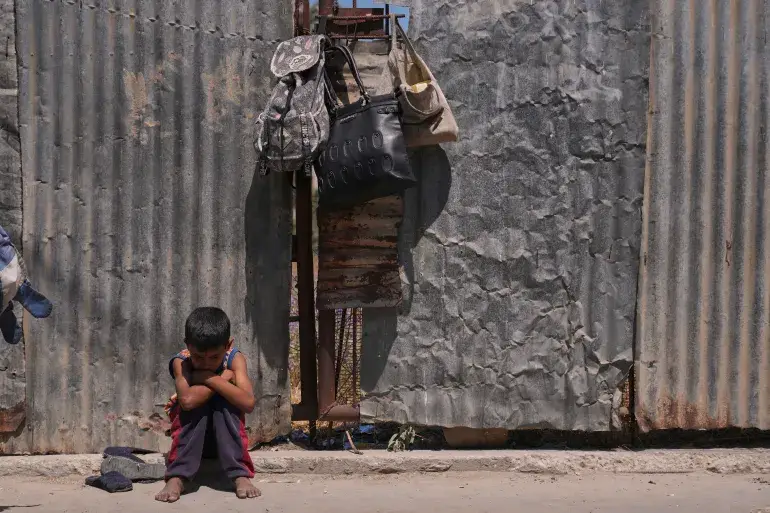
Worsening Access to Water
- According to the water, sanitation and hygiene (WASH) Cluster, the water crisis in Gaza continues to deteriorate rapidly amid a severe fuel shortage, extensive infrastructure damage, and inaccessible water sources. As of 20 July, 82 per cent of public WASH facilities and assets (573 out of 696) are within the Israeli-militarized zone or under displacement orders since 18 March. With only 79 wells accessible and functional across the Gaza Strip, compared with more than 220 in April, groundwater well output has dropped sharply, declining from 100,000 cubic metres (m³) per day during the ceasefire to just 31,000 cubic metres (m³) per day at present – a 69 per cent reduction. Losses through the dilapidated and heavily damaged networks are critically high, ranging between 50 and 80 per cent, depending on the location, further reducing water availability. In addition, insufficient energy and the lack of spare parts have led to a significant decline in water production from public desalination plants, which are now producing only 4,700 m³ per day, despite having a potential capacity exceeding 22,000 m³ per day.
- Water supply from the three Mekorot lines from Israel has continued to shrink, with only the Khan Younis line currently operational, the WASH Cluster reported. The line was repaired on 19 July and water flow to As Sater reservoir has resumed; water trucking is expected to restart once access is granted. However, the Gaza city Mekorot line ceased functioning as of 20 July, aggravating water accessibility, which like other areas of the Gaza Strip, has already been constrained by widespread damage to water infrastructure and the inaccessibility of many water assets that remain functional. According to the Gaza Municipality, the main desalination plant in northern Gaza is completely non-functional and large portions of Gaza city have reportedly been without water for several consecutive days. The Municipality added that the still functional wells now provide less than 12 per cent of the city’s minimum daily water needs, with daily per capita water share at some displacement sites now as low as two litres, even in areas still served by functioning wells.
A Recent Displacement Order Further Strangles Humanitarian Operations
- The displacement order issued by the Israeli military on 20 July cuts through Deir al Balah all the way to the Mediterranean Sea, further fragmenting the Strip and pushing people into overcrowded, unsafe areas with no shelter or essential services. The Israeli military urged residents, including those in tents, to immediately relocate southwards to Al Mawasi. Initial estimates indicate that 50,000 to 80,000 people, including over 32,000 in 57 displacement sites, and 59 humanitarian sites are present in the area. In a matter of hours, over 1,000 families were displaced, with reports of subsequent waves of displacement taking place. While humanitarians were also asked to evacuate, the UN is sheltering in place in notified sites, spread across several UN premises. On 21 July, the Spokesperson for the UN Secretary-General António Guterres stated that this order “pushes people into more desperate conditions and further displacement and restricts the United Nations’ ability to deliver life-saving aid. UN staff remain in Deir al Balah, and two UN guesthouses have been struck, despite parties having been informed of the locations of UN premises, which are inviolable.”
- On 21 July, WHO reported that its main warehouse in Deir al Balah, which is in the area slated for displacement, was damaged after an attack caused explosions and fire and was subsequently looted by crowds. The WHO staff residence was also attacked three times and the Israeli military entered the premises, forcing women and children to evacuate on foot toward Al Mawasi. “Male staff and family members were handcuffed, stripped, interrogated on the spot, and screened at gunpoint. Two WHO staff and two family members were detained. Three were later released, while one staff member remains in detention. Thirty-two people, including women and children, were collected and evacuated to the WHO office in a high-risk mission, once access became possible,” WHO added. Most of WHO’s staff housing is now inaccessible and 43 staff and their families were already relocated from several staff residences to the WHO office, which is close to the area slated for displacement.
- On 21 July, the Executive Director of the UN Office for Project Services (UNOPS) stated that the UNOPS central Gaza premises in Deir al Balah have been hit; buildings are damaged, power lines from our generator and solar panels are cut, and there are no functioning water supplies. Thirteen UNOPS colleagues currently based at this location, have been working tirelessly in extremely difficult circumstances to deliver critical fuel and aid. UNOPS added that this is the same location struck by a tank round in March this year when a UNOPS colleague was killed.
- As many humanitarian facilities are located in or near the area slated for displacement in Deir al Balah, humanitarian operations have been further strangled. While the UN is sheltering in place in notified sites, many partners evacuated their facilities, interrupting the services provision. Affected facilities include the following:
- Nine medical points and Primary Healthcare Centers (PHCs) are located in the area, according to the Health Cluster. As of 21 July, at least three of the PHCs and one medical point were forced to suspend services. This includes the Solidarity Polyclinic operated by Medical Aid for Palestinians (MAP), which was treating 320 people every day. Furthermore, Premiere Urgence International (PUI) teams were forced to evacuate two medical points they had been operating, where about 415 displaced people were receiving primary healthcare, mental health support, sexual and reproductive health services, and nutrition assistance on a daily basis.
- Four community kitchens out of seven located within or near the affected area have been temporarily closed as of 22 July, of which one re-opened on 23 July.
- Key WASH infrastructure has been impacted by the order, including the Southern Gaza Desalination Plant (SGDP) – a critical source of drinking water for displaced people in Al Mawasi, in Khan Younis, producing about 2,500 cubic metres per day. As of 21 July, the plant remained operational but was no longer accessible and all water trucking from this source ceased. If the plant goes out of service for more than 72 hours, the reverse osmosis membrane will be irreparably damaged, with a catastrophic impact for the population. Moreover, the only two solid waste dumping sites have become inaccessible, prompting the urgent need to identify alternative dumping areas to manage solid waste in Deir al Balah.
- At least nine Protection Cluster partners were directly affected, with over 100 staff members displaced, and several protection facilities rendered inaccessible. As a result, over 15,000 people are now facing fully suspended or severely disrupted services. This includes 700 displaced people sheltering in one safe space with dedicated services to persons with disabilities that had to be evacuated, and over 520 Palestinians receiving daily MHPSS, Phycological First Aid, case management, including in relation to gender-based violence, and structured awareness activities. Approximately 1,000 people were also affected by the suspension of food and hygiene kit distributions and 350 children were impacted by the suspension of psychosocial support in educational spaces. Protection partners, lacking fuel for over a month, have faced severe constraints in re-establishing any of the above services as mobile ones in new areas of displacement. The displacement order has also aggravated the psychological toll on protection staff, who like other aid workers, are facing ongoing starvation, accumulating fatigue and emotional distress.
- Three displacement camps, run by Action for Humanity, have been directly affected by the displacement order and intensifying military operations. Two of the camps were fully evacuated while in the third camp, where 56 families have their tents fixed and difficult to move, women and children have relocated to safer areas in Deir al Balah. Action for Humanity reported that all of its humanitarian activities in the area slated for displacement have been suspended.
- A Temporary Learning Space (TLS) consisting of 10 tents, which had been serving over 1,500 children, was destroyed. This site is one of seven TLS affected by the displacement order in the area. According to the Education Cluster, if families return, children previously enrolled will have no functional learning spaces to continue their education. Partners are severely constrained in re-establishing education services and ensuring continuity of learning for affected students.

Funding
- As of 21 July 2025, Member States have disbursed approximately US$783 million out of the $4 billion (19 per cent) requested to meet the most critical humanitarian needs of three million out of 3.3 million people identified as requiring assistance in Gaza and the West Bank, including East Jerusalem, in 2025, under the 2025 Flash Appeal for the OPT. Nearly 88 per cent of the requested funds are for humanitarian response in Gaza, with just over 12 per cent for the West Bank. Moreover, during June 2025, the oPt Humanitarian Fund managed 122 ongoing projects, totalling $70.1 million, to address urgent needs in the Gaza Strip (87 per cent) and the West Bank (13 per cent). Of these projects, 58 are being implemented by international non-governmental organizations (INGOs), 48 by national NGOs and 16 by UN agencies. Notably, 42 out of the 74 projects implemented by INGOs or the UN are being implemented in collaboration with national NGOs. For more information, please see OCHA’s Financial Tracking Service webpage and the oPt HF webpage.
1617.


23 juli 2025
Congress Members are elected to represent Americans, not to encourage genocide
Florida U.S. Representative Randy Fine, who currently represents Florida’s 6th Congressional District, has crossed an unthinkable line by publicly cheering for the mass starvation of Palestinians in Gaza. His words, “Release the hostages. Until then, starve away,” are not a misstep or poor phrasing. They are a calculated, dehumanizing endorsement of mass murder, hunger, malnutrition, and collective punishment against a population as legitimate tactics of war.
Fine’s statement actively aids and normalizes the actions of the Israeli government, which is intentionally starving the civilian population of Gaza. As widely reported by NBC News, The New York Times, and numerous international aid organizations, Israel has systematically blocked, bombed, and restricted humanitarian aid, resulting in catastrophic levels of malnutrition. Just this week, a six-week-old baby named Yousef died of starvation, and he was only one of at least 15 hunger-related deaths recorded in a single 24-hour period. Aid agencies continue to warn of the famine that remains a threat to thousands more.

That an American Congressman would not only excuse, but celebrate, this atrocity is beyond reprehensible. Fine’s rhetoric doesn’t just distort reality; it erases humanity. His words glorify the deaths of children like Youssef al-Safadi, endorse the suffering of millions, and amplify Israel’s genocidal campaign, one playing out in plain sight of the world. By dismissing this reality as nothing more than “Muslim terror propaganda,” he engages in blatant genocide denial and unabashed Islamophobia. He has now etched his name into a record of infamy. And he is not alone. Since October 2023, multiple members of Congress have denied the facts, defended and encouraged Israel’s war crimes, and parroted deeply racist, anti-Palestinian, and Islamophobic talking points. This isn’t just political negligence, it’s a moral failure at the highest level.
We demand an immediate and public apology from Congressman Randy Fine. But let us be clear: his language and the genocidal sentiment it conveys are far beyond the threshold of what censure can remedy. This is not merely offensive; it is a public endorsement of war crimes and genocide. We call for his immediate expulsion from the U.S. House of Representatives, and at the very minimum, for him to be censored. Furthermore, we urge every member of Congress, regardless of party, to clearly condemn his statement and take a public stand against Israel’s starvation campaign in Gaza. Anything less is complicity.
TAKE ACTION: Call Congressman Randy Fine’s offices and demand accountability:
(1) Call his Washington, DC, Office: (202) 225‑2706
- Israel is committing genocide and using starvation as a weapon of war.
There is overwhelming evidence from UN agencies, international aid groups, and major news outlets that Israel is deliberately starving Palestinians in Gaza.
- Congressman Fine’s words are permanently recorded in the historical record.
He has aligned himself with one of the most shameful, genocidal atrocities in modern history. His name is now tied to the mass suffering of children and families. History will remember his words, and those who remained silent around him.
- He must apologize and educate himself immediately.
He must publicly apologize, rescind his remarks, and educate himself on international law, the Geneva Conventions, and the realities of the siege on Gaza.
(2) Email him via his official website: https://fine.house.gov/contact
In solidarity,
Americans for Justice in Palestine Action
1616.


23 juli 2025
My name is Samah Zaher Zaqout and I am a Gaza-based Palestinian living under the current “war." I wrote this piece, "Famine, Fear, and the Fight for Bread" to shed light on what we are experiencing here, especially in Northern Gaza where we are experiencing the most difficult conditions.
A little about me: I am a writer, translator, and teacher. I graduated from the faculty of Arts, English literature, as one of the best students; I was a student of the late Dr Refa’at Al-Areer.
I write about life in Gaza. I have published some of my pieces on outlets such as Electronic Intifada, We Are Not Numbers, and Politics Today. I have also participated with my writings in some events and books abroad.
Thank you for reading my article. Please read until the end for a special announcement-- I am partnering with Eyewitness Palestine on an exciting event next month!
Famine, Fear, and the Fight for Bread
By Samah Zaqout
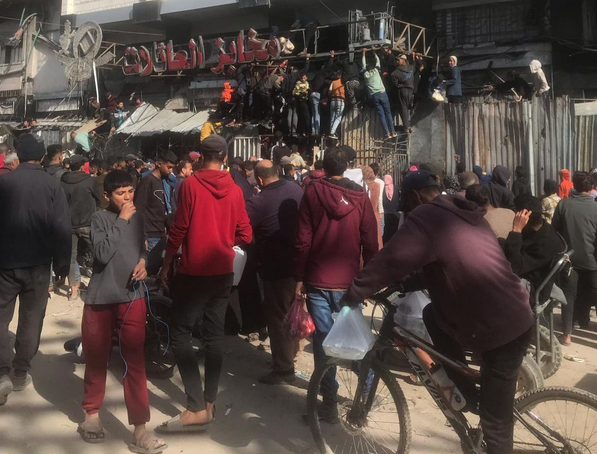
What If We Had Stayed?
In Gaza, getting white bread is a rare comfort — a gamble with your life.
Every morning in Gaza, people rush to reserve their spot in the bakery queues. By 6 a.m., bakery doors open, but the queues start hours earlier and continue stretching until nearly midnight, yet the crowd never thins. Some send their elderly mothers to the front — fragile hands and tired eyes given priority, a desperate attempt to secure them a loaf first.
But in Gaza, even bakeries are not safe from the bombs.
One day, my father took me and my two sisters to try our luck at a bakery. The women’s queue was often shorter, often faster. But when we arrived, the bakery was suffocatingly packed — people shoving, jostling, and shouting. Fists flew as some tried to snatch loaves from each other.
My father’s face turned grim. "Even if we wait until morning, we won’t get a turn. Let’s try somewhere else," he said.
We left tired and empty-handed.
Hours later, news broke: that bakery had been bombed. Dozens killed and injured. Bread and blood scattered across the street.
I couldn’t shake the thought: What if we had stayed?
From Feasts to Famine: The Ramadans We Lost
Not long after, the bakeries closed. No more endless queues, no more hours spent waiting just to get a bundle of bread. But the silence they left behind was heavier. All the crossings were closed, no supplies were coming in, and flour was completely off the market.
Flour became scarce, and prices soared — 60, sometimes 70 shekels per kilo. We’d buy what little we could, then spend hours baking over blackened coal, constantly tending the fire to keep it alive. But the struggle didn’t end there. When white flour vanished completely, we turned to wheat.
I remember one day at the market. It was chaos — crowds pushing, shouting, desperate for food. Makeshift stalls everywhere, no proper shops, no order. People shouted over one another. Then we found an elderly man selling flour for 35 shekels. “Take it for 35,” he said, scooping flour into our bag. We grabbed it and rushed home.
But it wasn’t just flour. Everything was gone — meat, chicken, vegetables, fruit — even snacks. We survived on canned food. Every day we’d open new tins — beans one day, lentils the next, rice, whatever we could turn into a meal.
By Ramadan 2024, famine loomed. Markets emptied fast.
In Ramadan 2024, we’ve been displaced for the tenth time. We had taken shelter in a relative’s home in western Gaza, “the safe zone”, after being forced to leave Jabalia camp due to threats of ground invasions. Fifty people crammed under one roof. Children, women, and elderly alike.
But the crowding wasn’t the worst part. The shelling that echoed — even in this “safe” zone — was terrifying. But famine eclipsed them both.
Everything was scarce, even clean water. We relied on salty water for cooking, drinking, and bathing.
One day, my cousin managed to find a few bottles of fresh water. Our family’s share was half a bottle — a precious gift in desperate times.
My father, responsible for nine of us, went to the market every day, desperately searching for something to break our Ramadan fast. Most days, he returned with nothing but a small bag containing perhaps two cans of lentils or a tray of rice. The market was stripped bare.
I remember the day my father came home with a handful of dried fruits and nuts—there wasn’t a single fresh one left in the market. He divided them between us, making scarcity feel like a feast.

I don’t know if it was intentional to block aid entry in Ramadan — perhaps it was — because even in Ramadan 2025, the blockade returned. Since the second day of the holy month, Israeli forces had sealed off Gaza, cutting off all aid, food supplies, and cooking gas. Famine returns!
The markets fell silent again. The few remaining shops stood empty, their shelves gathering dust.
We turned once again to cans — those cold, lifeless tins that now defined our suhoor and iftar.
I kept thinking of past Ramadans — tables crowded with dishes, our rush to prepare the table, as each person adds their own appetizer, and the smell of Mama’s cooking filling our home, which now turns to rubble. Evenings felt different — we’d all go to the mosque for Taraweeh prayers, then head home to make desert, usually Qatayef, and sit together or visit my aunts.
Now, the air felt colder, the evenings quieter.
Instead, we huddled around tins of food, our hands busy feeding the fire with bits of wood and scraps of paper just to get a flame going. By evening, we found ourselves brushing away the layers of ash that settled across the room.
The streets were silent, stripped of Ramadan’s usual glow. No Ramadan decorations, no lights, no joyful chants, just deafening silence, interrupted only by the sudden terrifying blasts. Each explosion shattered our fragile hope that this nightmare would end, that the fear would ease. Instead, it reminded us that fear was something we could never escape.
One night, we needed some bread for suhoor, but it was already late. My father insisted on going to the bakery so we could eat before fasting. Every passing second stretched with fear.
Currently, all bakeries in Gaza are closed. All vegetables, fruits and flour have almost vanished. One sack of flour is worth its weight in gold. And again, we are back, spinned endlessly in this vicious circle.
But even in those moments of despair, we clung to what we could — to prayers, to memories, and to hope that next Ramadan would be different.
Blood-stained Bread
The price of flour skyrocketed from $10 to $1,000 in the black market before disappearing completely. Desperate, thousands had no solution but to gather at Nabulsi checkpoint, the gateway for flour trucks, hoping to bring home a sack to feed their children.
One evening, my father and three cousins set out, determined to return like everyone else—with a sack of flour. But what awaited them was beyond anything my father had imagined.
They left at dusk on a Thursday, chasing whispers that the trucks would arrive after sundown, Maghrib prayer. “The air was bitterly cold, so people gathered wood from the ruins of bombed homes, lighting small fires to keep warm,” my father said.
“Thousands stood there, waiting,” he added.
My father and 3 cousins stood in a place set apart from the checkpoint, a spot that felt safer—at least for a while.
Hours passed. Midnight. Then dawn.
The trucks finally appeared, so did the gunfire, so did death!
Those closer to the checkpoint shouted, spreading the news—the flour had arrived.
My father and cousins split into pairs, hoping to navigate the chaos. The plan was simple: grab a sack and go home.
Then, the shooting began. Explosions echoed as the trucks pushed through. But by the time the trucks reached my father, they carried no flour—only the wounded and the dead.
“We do not want blood-stained flour,” my father told my cousin.
They abandoned their search and began looking for their other two missing kin as the crowd scattered. Hours passed. The sun rose, revealing an emptying battlefield. Some had carried home their dead. Some had carried home their wounds. And some had clutched their sack of flour worth more than life itself.
Compelled, my father returned home, praying the missing had done the same. But they were not there!
Eventually, he found them at Al-Shifa Hospital, erased within the expanse of the injured and the martyred. By morning, at least 112 were killed, 760 injured.
My mom, my sisters, my female cousins and I had spent the night paralyzed with fear, unable to sleep, clinging to our whispered prayers. When news of the massacre reached us, terror consumed our hearts. With no communication, all we could do was pray.
Finally, they returned.
Days later, my father bought a sack of flour from a man who had survived that night. He paid a thousand shekels—three hundred dollars.
When he carried it through the door, we were ecstatic!
“I never thought things would come to this, but the weight of hardship left no other choice," my father said.
1615.


23 juli 2025
Gaza is the "hungriest place on earth."

Palestinians in Gaza are being starved to death and risking their lives to collect what meager rations Israel allows into Gaza.
Dozens of Palestinians, the vast majority of them children, have died of starvation since the beginning of the genocide. But now, Israel’s campaign of mass starvation has reached a tipping point: Over 50 children died of malnutrition in the four and a half months since Israel imposed a total blockade on Gaza.
Desperate to feed their families, Palestinians are trekking for hours under the hot sun — and being gunned down or crushed under stampedes — in the hopes of collecting bags of flour and other basic necessities at Israeli and U.S.- run aid sites...
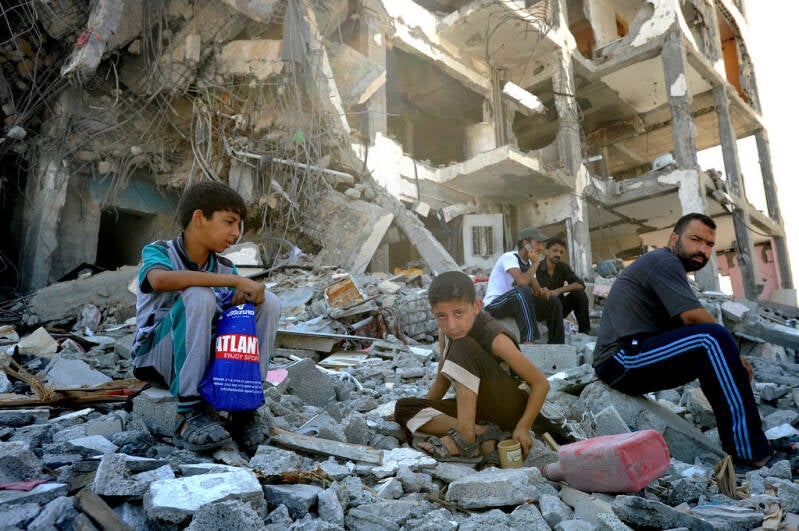
Take Action: Block the Bombs.

As an Israeli-manufactured famine ravages Gaza, it’s more urgent than ever that our elected officials demand an end to the flow of U.S. weapons to Israel.
Use the action tool provided by our sister organization, JVP Action, to email your representative now and tell them to support the historic Block the Bombs Act.
Interview: How did the largest labor union in the U.S. vote to break with the ADL?

JVP’s Digital Director Jason Farbman sat down with a member of the National Education Association, the largest labor union in the country, to discuss the NEA delegation’s recent vote to cut all ties with the ADL.
What we're reading: "Why is the U.N. not declaring famine in Gaza?"

Former UN official Moncef Khane argues that U.S. pressure has trumped the U.N.’s “sense of duty and professional imperatives.”
Power Half-Hours for Gaza.

Join us at Power Half-Hour Monday through Thursday as we take collective action to end U.S. complicity in Israeli genocide, apartheid, and occupation.
1614.


23 juli 2025
Earlier this month, the Palestinian-led nonviolent and anti-racist BDS movement turned 20. Over these last two decades of building intersectional people power the Apartheid Free Zone (AFZ) campaign has played a pivotal role in empowering meaningful grassroots solidarity with Palestinian liberation.
Click here to learn more about the campaign and get involved!
People of conscience everywhere want to ensure that the spaces in which they participate or socialize do not contribute to maintaining, benefit from or promote, Israel’s grave human rights violations and genocidal regime of apartheid and settler-colonialism.
Israel’s genocidal war against 2.3 million Palestinians in the occupied and besieged Gaza Strip has increased the importance of expanding AFZs: there should never be business as usual with a regime of apartheid and genocide or with the corporations and institutions that are complicit with it.
We are thrilled to share with you our interactive AFZ map, updated and improved!

1613.


23 juli 2025

Hello. This week, we focus on Israel’s latest air attacks on Syria after an outbreak of violence in Suwayda involving the Druze, local Bedouins and government forces. Israel said it acted to protect the Druze minority, but Syria’s government called it an attempt to "inflame tensions, spread chaos and undermine security and stability".
We also look at the escalating forced starvation crisis unfolding in the besieged Gaza Strip, where an increasing number civilians are dying of hunger or are being shot dead by the Israeli army while trying to access limited food supplies. Our Gaza-based colleague, Maram Humaid, writes about trying to care for her children while fearing her family may starve.
Finally, we turn to India, where the testimony of a former temple worker revealing hundreds of rapes, murders and secret burials has thrust the pilgrimage town of Dharmasthala into the centre of a national scandal.

What's behind Israel's attacks on Syria?
Israel has framed its attacks as in defence of the Druze – but the country has more self-serving reasons.
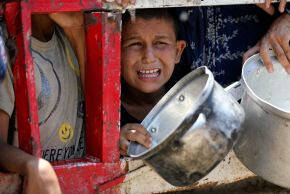
‘Flour, fire and fear as I try to parent in a starving Gaza’
Al Jazeera’s Maram Humaid writes about trying to take care of her children while worrying her family will starve.
1612.


23 juli 2025
Today's headlines
How one Israeli company controls – and cuts off – Palestinians’ access to water in the West Bank
Qassam Muaddi

Palestinians in the West Bank are facing an unprecedented crisis in accessing enough water. But drying water resources isn’t the problem — it's the fact that Israel extracts and controls all of the water from under their feet.
1611.


22 juli 2025
Gaza Humanitarian Response Update
6 - 19 July 2025

An emergency medical team in action. Photo: World Health Organization.
Food Security
Response
- As of 20 July, 16 partners delivered 158,000 cooked meals through 64 kitchens – 100,000 meals in the north and 58,000 meals in central and southern Gaza. This is a drop of more than 70,000 daily meals compared with 19 July due to the suspension of operations by the World Central Kitchen (WCK), a key Food Security Sector (FSS) partner, after running out of supplies and the issuance of a displacement order on 20 July in Deir al Balah that forced four community kitchens to close, leaving only three operational in the affected area.
- On 20 May, the World Food Programme (WFP) resumed the collection of cargo from both Zikim crossing in northern Gaza, which had been last paused since 13 July, and Kerem Shalom crossing in southern Gaza, which had been last paused since 4 July. In northern Gaza, according to WFP, the 25-truck convoy encountered large crowds of civilians waiting to access food supplies and, as the convoy approached, the surrounding crowd came under fire from Israeli tanks, snipers and other gunfire, resulting in a large number of casualties. On 21 July, WFP paused convoy movements through Zikim crossing.
- Partners continue to deliver key messages through community leaders and other stakeholders in response to continued looting and offloading of cargo by desperate crowds along aid convoy routes that have disrupted deliveries to partners’ warehouses. Messages emphasize the role of communities’ support and trust in safe and secure aid delivery, including through encouraging civilians not to approach convoy routes to allow for the safe and uninterrupted movement of trucks to warehouses to enable proper distributions. Once supplies reach warehouses, distributions can take place through established mechanisms to eventually reach all households as incoming supplies are insufficient to address all needs at once. Overall, only a massive scale-up in food aid distributions can stabilize the situation and rebuild trust within communities
Challenges
- Available data from FSS partners shows a continued deterioration in food insecurity, with a persistent risk of famine. Families generally survive on a single nutritiously poor meal per day, and in some cases, people go entire days without eating. To survive, people are forced to resort to increasingly desperate and undignified coping strategies ranging from fasting to reducing meal size, rationing bread for children, borrowing, begging, and scavenging for food from garbage. Despite this, families are increasingly unable to protect their most vulnerable members from the impacts of food deprivation. Alarmingly, many interviewed households reported that family members risked their lives trying to secure food from militarized distribution sites or humanitarian convoys, often without success. Food availability remains limited and access to these limited quantities remains challenging due to disruptions of deliveries to warehouses (see above) and exorbitant prices. For example, at one point during the reporting period, a one-kilogram bag of flour surged to over US$100 in local markets and prices continued to fluctuate.
- The current volume and pace of deliveries remain critically insufficient to meet the needs of Gaza's entire population, who are facing deteriorating, prolonged and high levels of acute food insecurity. Combined with looting, offloading of cargo by civilians along aid convoy routes, and shooting at civilians along convoy routes and at militarized distribution points, these conditions continue to result in mass casualties, place community members, partners’ staff, drivers and assets at high risk, and disrupt deliveries to partners’ warehouses for their onward distribution safely and fairly to meet humanitarian needs. At the same time, cargo movement requires fuel, which remains available only in limited quantities across the Gaza Strip. Consistent, frequent and large-scale food deliveries through multiple crossings are urgently required to meet needs and stabilize availability, pricing, and affordability of wheat flour and other basic staples as well as reduce tensions and rebuild trust within communities. The sector also continues to advocate for no armed presence near convoy routes or civilian aid distribution points.
- Depletion of supplies, displacement orders and increased civil unrest continue to undermine the ability of partners to provide cooked meals through community kitchens. All UN-supported bakeries remain closed.
Nutrition
Response
- As of 20 July, a total of 218 children with severe acute malnutrition and medical complications were receiving treatment at stabilization centres in Gaza, Deir al Balah and Khan Younis governorates, including 29 admitted in July. Ten (10) child deaths from severe acute malnutrition have been reported by partners in July, increasing the overall death toll reported by partners in 2025 to 17. The number of child deaths from acute malnutrition is increasing daily. Malnutrition in children in Gaza is driven by poor diets, inadequate feeding and caregiving practices, and limited access to essential health and water, sanitation and hygiene (WASH) services – all of which are severely compromised in the current context. A severely malnourished child is over ten times more likely to die than a well-nourished peer. Beyond the immediate risk to life, the consequences for those who survive can be long-lasting: malnutrition during early childhood can impair brain development, weaken the immune system, reduce the body’s ability to absorb nutrients, and hinder both cognitive and physical growth – affecting their well-being far into the future.
- During the first two weeks of July 2025, nutrition partners screened 56,440 children for malnutrition across the Gaza Strip. Among them, 4,984 were identified with acute malnutrition, including 838 children suffering from severe acute malnutrition. This reflects a concerning upward trend; the overall rate of acute malnutrition among screened children increased from 2.4 per cent in February to 6 per cent in June and 8.8 per cent in July. Meanwhile, the rate of severe acute malnutrition cases rose from 1 per cent in June to 1.5 per cent in July. A particularly alarming situation was observed in Gaza city: out of 14,747 children screened in July, 16 per cent were identified to suffer from acute malnutrition, including 348 with severe acute malnutrition – this marks a sharp increase from the 4 per cent malnutrition rate in Gaza city in February 2025.
- Based on the most recent dietary diversity survey carried out in June, over 95 per cent of children consumed two or fewer out of eight food groups, an alarming deterioration when compared with 60 per cent of children in this situation in February.
- Acute malnutrition levels are rising, affecting not only children who are under five years of age and within the Nutrition Cluster’s scope, but also older children and adults. Proxy prevalence levels – or the indicator showing the percentage of children in a population considered acutely malnourished -- have reached critical thresholds, as evidenced by recent screening findings.
- The Nutrition Cluster, in collaboration with the FSS, is currently preparing to conduct an Integrated Food Security Phase Classification (IPC) Alert to reflect the current nutritional and food security situation. This is driven by the continued deterioration of key factors contributing to malnutrition and food insecurity since the last IPC analysis in May 2025.
Challenges
- Supply shortages are among the main challenges to sustaining nutrition programmes. On 19 July 2025, an attempt by UNICEF to deliver 10 trucks of ready-to-use infant formula, which can support over 3,600 babies for a month, was intercepted by desperate crowds en route from Kerem Shalom crossing to the warehouse in Deir al Balah.
- Recurrent displacement orders continue to disrupt sustained and continuous nutrition service delivery. The displacement order issued recently on 20 July forced four partners to suspend services at six sites providing malnutrition treatments and nutritional supplements in Deir al Balah, further hindering access to essential nutrition support.
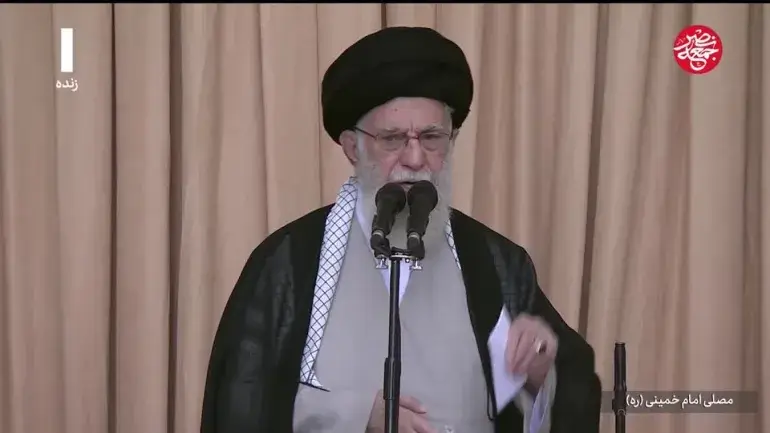
Health
Response
- Partners continue to provide primary and secondary health care services and responding to mass causality incidents across the Gaza strip with limited resources, including lack of medicine and medical supplies.
- A health cluster partner launched an awareness campaign on meningitis to educate families and caregivers on the signs, symptoms, and prevention of the disease.
- Between 7 and 13 July, 21 international and two national partner organizations deployed emergency medical teams (EMTs) across the Gaza Strip, working on surgery and emergency care.
- Al Shifa Hospital in Gaza city used high-performance tents to expand capacity by 60 beds in the hospital’s front yard. A cluster partner also supported the hospital in setting up an additional operating theatre.
- There are currently 82 active partners, of which 55 are managing 199 health service facilities across the Gaza Strip. These include 18 hospitals, 10 field hospitals, 62 primary health care centres (PHCs), and 109 medical points.
Challenges
- Between 13 and 19 July, there was an increase in reported acute watery diarrhea cases, now accounting for 44 per cent of all reported illnesses – up from 39 per cent in the preceding week – with hospital visits confirming a sharp rise in admissions for severe dehydration. It was also reported that cases of acute jaundice syndrome and bloody diarrhea are on the rise due to lack of vaccination, rising malnutrition, water scarcity, accumulation of solid waste, and overburdened or damaged sewage systems.
- Rehabilitation services have been significantly scaled back at all levels due to critical shortages of consumables and assistive devices, with rehabilitation patients prematurely discharged into overwhelmed community settings. For example, Al Amal hospital only has 20 rehabilitation beds, with a 300-person waitlist, reflecting an 11-month backlog.
- Between 11 and 20 July, multiple displacement orders in Gaza have severely impacted health services. In total, four hospitals, nine PHCs, and 11 medical points are located within designated displacement areas. Additionally, seven hospitals, one field hospital, three ambulance centres, 16 PHCs, and 19 medical points are located within 1,000 meters of these displacement zones, placing them at high risk of disruption. Subsequently, six PHCs, including three that provided sexual and reproductive health (SRH) services, and three medical points were forced to suspend services.
- Fuel shortages are critically impacting the health system. Out of 36 hospitals in the Gaza Strip, 18 (50 per cent) are partially functional, in addition to 10 field hospitals, with capacity of 1,913 inpatient beds and 83 ICU beds, serving two million people. These facilities are heavily dependent on fuel to operate generators that power essential medical equipment required for the delivery of critical and life-saving secondary healthcare services. Hospitals such as Al Shifa are beginning to shut down some services due to the lack of fuel for generators, which power essential medical equipment. Moreover, less than 50 ambulances remain operational, all of which rely on fuel for transporting patients and injured people.
- The comprehensive emergency obstetric and newborn care facilities and neonatal intensive care units are operating far beyond capacity, particularly in Gaza city. For instance, one facility reported a 200 per cent overcapacity in maternity and neonatal intensive care unit beds.
- SRH partners reported an increase in acute and severe malnutrition among pregnant and breastfeeding women, with one partner observing an increase in acute malnutrition among pregnant breastfeeding women at their clinic from 20 per cent to 27 per cent.
- Five new Acute Flaccid Paralysis (AFP) cases were reported last week, bringing the cumulative total in 2025 to 28 cases. Environmental samples were collected in July from three out of four designated sites in Gaza city and Deir al Balah while sampling from the Khan Younis site was not possible due to displacement orders. Environmental samples and samples collected from AFP cases were dispatched to the referral laboratories on 10 July.
Protection
Response
- Child Protection – Between 6 and 18 July, Child Protection Area of Responsibility (CP AoR) partners provided psychosocial support to approximately 7,000 children in Gaza city, Deir al Balah, and Khan Younis through individual and group sessions, counselling, and recreational activities. More than 2,000 caregivers were also reached with structured supportive parenting and psychosocial support sessions. During the same period, with support from UNICEF, CP AoR partners continued family tracing and reunification efforts, successfully reuniting 40 children with their families and caregivers. Moreover, between 14 and 19 July, CP AoR and UNICEF conducted a five-day child protection case management training in Gaza city, enhancing the capacities of 30 frontline caseworkers. On 15 July, CP AoR released a report entitled "Children in Crisis" to highlight the critical risks facing children in the Gaza Strip and advocate for the urgent need for child protection interventions.
- Mine Action – During the reporting period, Mine Action (MA) partners only carried out activities critical to programing. However, to support humanitarian efforts and reduce safety risks in affected communities, MA partners participated in one inter-agency mission and conducted one explosive hazard assessment during the reporting period, offering technical expertise to ensure safer humanitarian operations. Furthermore, MA partners conducted 519 Explosive Ordnance Risk Education – Conflict Preparedness and Protection (EORE – CPP) sessions, reaching 16,306 people (8,797 women and 7,509 men) in Gaza, Deir al Balah, and Khan Younis governorates. Since October 2023, 108 EO-related incidents have been documented, resulting in 14 fatalities and 126 injuries, of whom 70 (both killed and injured) were children.
- Housing, Land and Property - The Housing, Land and Property Technical Working Group (HLP TWG) is launching a service mapping exercise in collaboration with all clusters to identify and compile a comprehensive list of actors currently providing HLP-related legal and other services in Gaza. This mapping aims to strengthen coordination and information sharing, identify service gaps, and inform advocacy. The official HLP TWG webpage serves as a central reference point for all technical guidance, tools, meeting minutes, and key documents.
- Between 27 June and 10 July, UNRWA's protection teams carried out 35 protection observations, 38 key informant interviews and 26 focus group discussions in Khan Younis (including Al Mawasi), Deir al Balah, and Gaza city as well as remotely (via phone) in North Gaza. The teams also continued to facilitate referrals to specialized services. During the same period, UNRWA teams delivered 88 awareness-raising sessions on child protection, EORE, mental health and psychosocial support (MHPSS), and protection from sexual exploitation and abuse (PSEA), reaching 2,875 displaced people.
- Gender-based violence – During the reporting period, gender-based violence (GBV) AoR partners reached 7,800 women through activities held at 17 Women and Girls Safe Spaces (WGSS) in Gaza, Deir al Balah and Khan Younis governorates, offering women and girls a safe environment for stress relief, informal peer support, and accessing GBV-related information. This included 998 participants reached with group counselling, 200 women supported with cash assistance through the case management process, and the rest supported with psychosocial support activities, including peer-to-peer support, drawing, painting and listening sessions, to relieve stress and facilitate recovery from traumatic experiences. To better support partners in navigating the disrupted service environment, updated referral maps were disseminated. During the same period, 990 men were reached with awareness raising sessions focused on GBV risk mitigation and referral pathways. Furthermore, a youth hub managed by a national NGO in Khan Younis delivered 13 life skills training sessions to 62 young people aged 18 to 24 years, covering communication, decision-making, gender equality and self-awareness. The Arabic version of the Guidance Note for GBV Case Managers in Gaza: Understanding and Responding to the Link between Food Scarcity and Gender-Based Violence was published and was accompanied by an orientation session to caseworkers. Another orientation session was organized on the integration of GBV risk mitigation into shelter programming.
Challenges
- Protection risks facing displaced families remain acute. According to monitoring conducted by UNRWA teams, families continue to face insecurity, repeated waves of displacement, overcrowding, chronic hunger, restricted access to health care services, and ongoing shortages of adequate shelter, clean water, and essential non-food items. Prolonged exposure to violence, instability, and displacement continue to have a cumulative impact on the psychosocial wellbeing of both adults and children.
- Overcrowded shelters, inadequate privacy, and lack of basic supplies are increasing GBV risks, including harassment and intimate partner violence, especially for women and adolescent girls. Severe food insecurity continues to drive negative coping mechanisms, including exploitation and early marriage. Many survivors remain unable to access services due to displacement, relocation, and interrupted referral pathways.
- Children are increasingly at risk of neglect, child labour, and other forms of exploitation. CP AoR partners report a marked increase in incidents of physical abuse, public accusations, and severe domestic violence, with some children requiring hospitalization. A notable case occurred in Gaza city involving a seven-year-old child falsely accused of theft and severely beaten. Negative coping mechanisms are also increasing significantly, including child labor, street begging, and hazardous activities, such as rubble clearing, carrying heavy loads, scavenging in unsafe areas, crossing into militarized zones to access basic needs, chasing or approaching moving aid trucks to retrieve supplies, and standing in long queues at volatile distribution points. Children have also been killed or injured during looting incidents, at militarized distribution sites and while offloading humanitarian aid cargo from trucks along convoy routes.
- The ability to distribute in-kind assistance by UNRWA teams is rapidly deteriorating due to the depletion of supplies, including sanitary pads, baby diapers, water cans and soap. During the reporting period, only four people received assistance, compared with seven in the previous reporting period, and 236 people one month ago.
- Staff providing essential services are experiencing extreme physical and mental exhaustion due to ongoing military operations, recurrent displacement, limited coping mechanisms, and insufficient access to basic necessities, such as food and clean water. CP caseworkers and MHPSS facilitators report fainting due to the lack of food, inability to access office spaces or reliable internet, and loss of peer support and coping spaces. Aid workers also continue to face risks to their personal safety. A critical incident occurred during the reporting period when a child protection facilitator was severely injured by a bullet, resulting in paraplegia.
- Access constraints continue to hinder service provision and the ability of aid actors to operate safely and effectively. During the reporting period, MA actors reported that eight inter-agency missions they were part of were denied and four had to be withdrawn for logistical, operational, or security reasons.
- Fuel shortages continue to disrupt service delivery. Vehicles remain largely grounded, severely restricting rapid response capacity, compromising access to essential services, and limiting group activities (e.g. MHPSS sessions, awareness raising, parenting support). CP partners report that over 300 caseworkers now walk for hours to access more than 220 sites across the Strip and have restricted their movement to twice per week to carry out urgent in-person follow-ups and referrals.

Shelter
Response
- During the reporting period, Shelter Cluster partners distributed Emergency Shelter Kits to 59 families in Gaza city, with technical assistance provided to support proper installation. Another partner distributed clothing vouchers to support 2,900 newly displaced families in Gaza city, out of the planned target of 7,200 families, enabling them to purchase adult and children's clothing from local markets.
- Cluster partners continue to carry out assessments of priority needs at displacement sites. In Gaza city, a partner completed a remote assessment by phone to assess needs at 44 displacement sites hosting 6,597 households in Gaza city. Site focal points at 43 out of 44 sites reported serious shelter needs, with about 11 per cent of households (683 households) lacking any form of shelter. In addition to food and water, the top three non-food priority needs highlighted by focal points are hygiene kits, tents, and tarpaulins. In Deir al Balah, the same partner carried out remote assessments at 43 displacement sites, where hygiene kits and household items, particularly bedding and kitchen sets, were identified as the most urgently needed items after food and where the number of reported cases of families without any form of shelter was significantly lower than in Gaza city.
Challenges
- There are no shelter items available in stock across the Gaza Strip, preventing partners from addressing needs and growing requests for assistance. Since 2 March, no shelter or non-food items have been allowed to enter Gaza through crossing points, leaving partners with no means to replenish depleted stocks. The few shelter materials that are available on the local market are prohibitively expensive and limited in quantity, placing them out of reach for most families. At the same time, overcrowded displacement sites and restricted physical access to affected areas further hinder the ability of shelter cluster partners to deliver aid.
- The situation is compounded by ongoing airstrikes, displacement orders, and growing insecurity, which have not only displaced families repeatedly but have also forced many humanitarian workers to relocate, reducing operational capacity at a time of rising need.
- Several factors are driving a rapid expansion of the gap in coverage of shelter needs, including: the short lifespan of previously distributed shelter items (3-6 months); growing displacement, the repeated disassembly and reassembly of shelters, and the associated loss or abandonment of shelter items; overcrowding in already fragile shelters; and harsh weather conditions and humidity that accelerate the deterioration of shelter materials. According to the most recent assessment carried out by the Shelter Cluster on 7 July, an estimated 1.35 million people require emergency shelter items and 1.4 million need essential household items .. This is compared with 1.3 million estimated to require emergency shelter items and 1.3 million who needed essential household items in the last week of June (see dashboard).
Education
Response
- With the support of Education Cluster partners, the Ministry of Education (MoE) carried out the first phase of the General Secondary Education Examinations (Tawjihi) on 19 July 2025, targeting students who missed their exams in 2023. Out of 1,816 registered students, 1,513 attended the first session, and another 595 attended the second session on the same day. The ability to roll out subsequent phases of the Tawjihi exams for about 78,000 students from 2023/2024 and 2024/2025 cohorts remain contingent on a ceasefire or humanitarian pauses. There is also a critical need to improve internet connectivity and facilitate the entry of tablets required to administer these exams.
- To support the access of children with disabilities to essential services, including Temporary Learning Spaces (TLS), one partner is operating a workshop in Gaza city that repairs and maintains assistive devices. With the ongoing blockade limiting the import of new devices into Gaza, this local repair capacity remains essential. The partner previously deployed a mobile team to conduct on-site repairs of wheelchairs and crutches for children, based on their condition and the availability of spare parts, but was forced to discontinue this service in early July due to fuel shortages. Over the past month, the partner has repaired seven out of 27 collected devices.
- The Cluster issued guidelines to support the integration of summer programme activities with informal learning. This blended approach aims to help children continue learning while benefiting from structured summer activities that promote routine and stability amid ongoing hostilities and displacement. The guidelines are available here.
Challenges
- Displacement orders continue to disrupt access to learning and summer programmes, putting children's well-being at risk and straining partners’ limited resources to establish alternative learning spaces. Between 6 and 19 July, 58 operational TLS, hosting 18,000 learners supported by 567 teachers, were forced to suspend activities due to new displacement orders; these include 13 TLS in Gaza governorate, four in North Gaza, and 41 in Khan Younis. This is in addition to the 56 TLS (serving 22,000 learners) already non-operational due to earlier displacement orders. Overall, 114 TLS are currently non-operational due to displacement orders and 161 due to the lack of funding. A total of 292 TLS serving 111,000 students remain operational, including 106 TLS in Gaza governorate, eight in North Gaza, 87 in Deir al Balah, and 91 in Khan Younis.
- The fuel crisis continues to severely hinder partners’ mobility and ability to carry out monitoring and supervision of TLS. Fuel shortages are also limiting the ability to pump and truck water to operational learning sites and to power generators.
- Strikes on schools continue to cause civilian casualties, infrastructure damage, and deter participation in learning activities due to fear of attacks. Between 6 and 19 July, at least 10 incidents involving airstrikes, shelling, and quadcopter strikes on schools were recorded, including one in North Gaza, four in Gaza city, four in Deir al Balah, and one in Khan Younis. Between 7 October 2023 and 22 July 2025, according to MoE, 16,237 students and 719 education personnel were killed, and 24,217 students and 3,064 education personnel were injured, some with severe, life-altering disabilities, further impacting their ability to access learning and essential services.
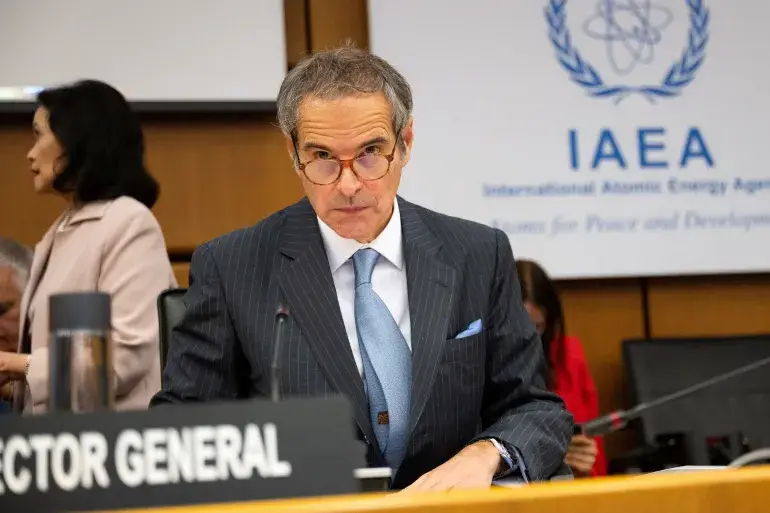
Logistics
Response
- Since 13 July, a very limited number of trucks carrying nutrition items has crossed from Egypt and offloaded aid cargo at the Kerem Shalom/Karem Abu Salem crossing. For the first time, Israeli customs clearance has been imposed on this route.
- Following the Israeli authorities’ re-authorisation on 7 July of the Erez West (Zikim) crossing for the entry of Government-to-Government (G2G) convoys from Jordan, three G2G convoys comprising 111 trucks carrying food aid have transported cargo to the Erez West (Zikim) crossing.
Challenges
- Since 27 June, due to continued severe insecurity across the Gaza Strip, the Logistics Cluster has not been able to facilitate partners’ cargo collection from crossing points. Very few partners have autonomously collected aid cargo from the crossings amid a deepening of the humanitarian crisis.
- Authorisations by Israeli authorities to move aid cargo from Jordan and the West Bank remain sporadic and unpredictable, with last-minute truck denials. Moreover, the processing capacity for trucks from Jordan at the King Hussein Bridge/Allenby and that at the Sheikh Hussein Bridge/Jordan River crossings fluctuates and is limited to a maximum of 29 trucks per day at the two crossings. With the resumption of G2G direct convoys through King Hussein Bridge/Allenby, the number of Back-to-Back convoys has become further limited.
- Israeli authorities continue to impose severe limitations on the type of cargo permitted for entry and the number of organizations authorized to move cargo to Gaza. Only seven organizations have been able to manifest cargo. Thus, humanitarian partners have paused the internal cargo prioritisation process, so that all cargo currently permitted for entry by Israeli authorities (health, nutrition, food, water treatment and hygiene supplies) can be manifested for Israeli authorities' approval.
Emergency Telecommunications (ETC)
Response
- On 17 July, ETC teams facilitated the entry of 24 Very High Frequency (VHF) radios (20 handheld and four vehicle radios) to enhance communication and coordination and improve staff security during UN field missions.
- On 20 July, the ETC assigned two additional satellite-based tracking devices for use by the United Nations to strengthen the monitoring of mission movements and enhance the safety and security of UN staff members.
- The ETC continues to advocate for the entry of sufficient fuel for the telecommunications sector in Gaza.
- For more information on ETC activities, please visit:Palestine: Conflict | Emergency Telecommunications Cluster (ETC) (etcluster.org).
Challenges
- The availability of fuel and engine oil remains limited, placing key telecommunications infrastructure at risk of shutting down and threatening to further disrupt humanitarian operations, jeopardize staff safety, and limit public access to emergency information. Despite limited fuel entry, as of 19 July, the two national telecommunications providers reported critically low fuel reserves, with remaining stocks expected to run out imminently.
- Continued restrictions on the entry of aid and other essentials have hindered the import of critically needed Information and Communications Technology (ICT) equipment. Combined with insufficient funding, this is severely constraining ETC's ability to deliver services needed to support humanitarian operations and access to life-saving information in Gaza.
- Access constraints within Gaza continue to impede access to vital telecommunications sites to conduct maintenance and repair activities.

Protection against sexual abuse and exploitation (PSEA) remains a cross-cutting priority for all clusters. Aid distribution must be delivered with dignity and respect. Any wrongdoing can be reported through SAWA’s toll-free number 164. SAWA will assist and provide services free of charge and with the utmost confidentiality.
To promote accountability to affected people, the online Humanitarian Service Directory provides information on aid services, helplines, and key messages, and is available via hyperlink and QR code.
1610.


22 juli 2025
Right now, children are being deliberately starved to death in Gaza by Israel, wasting away in front of all the world’s eyes.
It’s been nearly 5 months of Israel’s blockade of life-sustaining aid into Gaza. Palestinians who have managed to survive Israel’s genocidal bombardment over the past 22 months are now dying in the street from acute malnutrition as Israel continues to block the entry of food and medicine into the Strip. More than 50 children have died from malnutrition since March, and more than 5,500 children under the age of five are suffering from acute malnutrition according to UNRWA.
As we watch the horrific scenes coming out of Gaza of emaciated children crying due to their all-consuming hunger, we must act to demand that food and aid be allowed entry into Gaza.
Call Congress now and tell them to demand the immediate opening of ALL border crossings for unrestricted humanitarian aid delivery.
What we are seeing in Gaza today is not just a humanitarian crisis – it is starvation used as a weapon of genocide by Israel.
Over the past two months alone, more than 1,000 Palestinians have been murdered while seeking food and water from militarized aid distribution sites controlled by Israel and U.S. mercenary groups. On Sunday, more than 70 Palestinians were killed and 150 injured by Israeli soldiers while attempting to get food from a World Food Program convoy in northern Gaza. Already overwhelmed hospitals are being inundated with gunshot victims sniped down while seeking aid, without the necessary medical supplies to help them.
Palestinian families are facing the impossible choice of risking being shot dead by Israeli soldiers at these death traps, or starving to death with their loved ones.
Thousands of trucks of food and medicine are currently standing by in the neighboring countries of Egypt and Jordan, ready to deliver life-saving aid to millions of Palestinians suffering from Israel’s forced famine in Gaza.
Tell your representatives in Congress to demand that life-saving aid be allowed into Gaza NOW.
Our elected officials in D.C. have the leverage and access to media attention that can pressure Israel to open border crossings and allow the entry of unrestricted aid. If enough of us sound the alarm, we can force them to act.
The action we take now not only determines the future of millions of Palestinians facing starvation in Gaza, but also the future of our own humanity. We must do everything in our power to stop the starvation, stop the bombs, and end Israel’s genocide now.
Take 5 minutes to call Congress to demand an end to Israel’s forced famine now.
With determination,
Alia El-Assar
Director of Media Organizing
Adalah Justice Project
1609.


22 juli 2025
Gaza is on the brink of irreversible famine, the United States must END its support for Israel’s use of starvation as a weapon against Palestinians
Americans for Justice in Palestine Action (AJP Action) strongly condemns the Israeli government’s systematic use of mass starvation against the Palestinian population in Gaza. With deliberate and precise measures, including the blockade and militarized distribution of humanitarian aid, Israel is intentionally inflicting catastrophic suffering upon over two million Palestinians, most of whom are children, and are now facing imminent death from starvation. Just yesterday, a Palestinian man died while standing in line waiting for food.
TAKE ACTION NOW, demanding:
- President Trump and Congress immediately compel Israel to allow unrestricted emergency food aid into Gaza, exclusively managed by the United Nations and credible humanitarian organizations.
- The immediate termination of the immoral, mercenary “Gaza Humanitarian Foundation.”

According to reporting on an upcoming report from Forensic Architecture, Gaza is experiencing “minutely engineered, closely monitored, precisely designed mass starvation.” This brutal, inhumane, genocidal policy is devastating the population, killing at least 19 Palestinians through starvation just this week, among them infants and young children deprived of basic nutrition and essential infant formula.
“We call on the United Nations and the Trump administration to fulfill their legal and moral obligations to intervene urgently,” said Dr. Osama Abu Irshaid, Executive Director of AJP Action. “The starvation of millions of innocent Palestinians is an intentional atrocity unfolding before the world’s eyes. Any further delay in action by the international community constitutes complicity.”
Crucially, this aid must be exclusively managed by the United Nations and credible humanitarian organizations. The current so-called "Gaza Humanitarian Foundation" (GHF), which has forcibly replaced the UN’s system, is clearly functioning as a proxy for Israeli and U.S. military interests, resulting in hundreds of deaths and thousands of injuries among Palestinians merely attempting to access desperately needed aid.
Testimonies gathered by Amnesty International from medical professionals and victims underscore the horrific impact of Israel’s militarized aid system. Nearly 1,100 Palestinians have been killed at GHF-controlled sites since May 2025, with thousands more injured. Amnesty International’s Secretary-General Agnès Callamard stated clearly, “Israel has continued to use starvation as a weapon of war against Palestinians…and deliberately impose conditions of life calculated to bring about their physical destruction.”
International humanitarian laws and the Fourth Geneva Convention explicitly prohibit the use of starvation as a method of warfare and mandate that an occupying power provide for the essential needs of the occupied population. Israel’s actions in Gaza constitute grave violations of these legal standards and represent a moral crisis that demands immediate international accountability.
Take action now, our elected officials shouldn’t go a day without hearing about this.
In solidarity,
Americans for Justice in Palestine Action
1608.

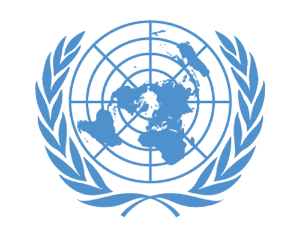
22 juli 2025
Statement attributable to the Spokesperson for the Secretary-General – on the deteriorating humanitarian situation in Gaza
Stéphane Dujarric, Spokesman for the Secretary-GeneralNew York, 21 July 2025
The Secretary-General is appalled by the accelerating breakdown of humanitarian conditions in Gaza, where the last lifelines keeping people alive are collapsing.
He deplores the growing reports of children and adults suffering from malnutrition.
The Secretary-General strongly condemns the ongoing violence, including the shooting, killing, and injuring of people attempting to get food for their families.
Civilians must be protected and respected, and they must never be targeted. The population in Gaza remains gravely undersupplied with the basic necessities of life.
Israel has the obligation to allow and facilitate by all the means at its disposal the humanitarian relief provided by the United Nations and by other humanitarian organizations.
The Secretary-General notes that the intensification of hostilities in recent days comes as the humanitarian system is being impeded, undermined and endangered.
A new evacuation order in parts of Deir al Balah – home to tens of thousands – pushes people into more desperate conditions and further displacement and restricts the United Nations’ ability to deliver life-saving aid. UN staff remain in Deir al Balah, and two UN guesthouses have been struck, despite parties having been informed of the locations of UN premises, which are inviolable. These locations – as with all civilian sites – must be protected, regardless of evacuation orders.
The Secretary-General reiterates his urgent call for the protection of civilians, including humanitarian personnel, and for the provision of essential resources to ensure their survival.
He once again calls for the immediate and unconditional release of all hostages.
The UN stands ready to significantly scale up our humanitarian operations. The time for a ceasefire is now.
1607.


22 juli 2025
Today's headlines
When the bodies of starving children in Gaza reach a ‘point of no return’
Mondoweiss Palestine Bureau
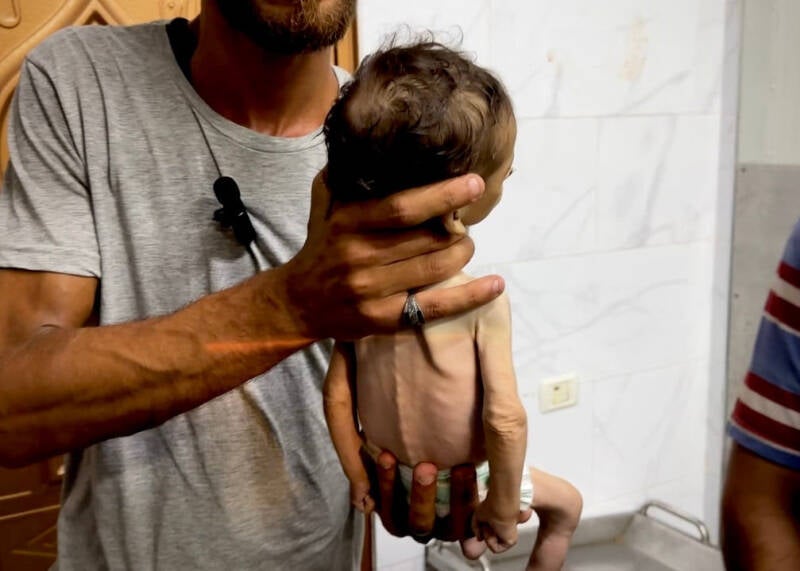
Children in Gaza have begun to die of severe malnutrition in increasing numbers as Israel continues to starve the people of Gaza. Infants are the most severely affected, as hunger devours their bodies until they reach "a point of no return."
NEA leadership rejects member vote to sever ties with ADL, but teachers hail rising member support for Palestine
Sam Carliner

On July 18, the NEA Board of Directors voted to ignore a vote by 7,000 NEA members to end ties with the ADL. Still, union members are celebrating the original vote as a major shift among the rank and file toward Palestine and pledge to move forward.
1606.


22 juli 2025
BREAKING: In a historic move, Belgian police arrested and interrogated two Israeli soldiers at Tomorrowland following a legal complaint by the Hind Rajab Foundation and GLAN, citing credible allegations of war crimes in Gaza. The suspects were later released, but Belgium has officially opened a criminal investigation — marking a major breakthrough in the application of universal jurisdiction.
This is more than an isolated action. It sets a powerful precedent:
Western soil is no longer guaranteed impunity
Universal jurisdiction is becoming a reality
Governments can no longer ignore credible evidence of atrocity crimes
Read the full press release below.
Brussels – 21 July 2025
In what may become a turning point in the global pursuit of accountability, Belgian federal police have arrested and interrogated two Israeli soldiers credibly accused of war crimes in Gaza. The action came in response to an urgent legal complaint filed by the Hind Rajab Foundation and the Global Legal Action Network (GLAN) earlier this week.
The suspects were identified and arrested with a clear show of force at the Tomorrowland festival in Boom. After being taken into custody, they were formally interrogated and released. The Belgian Federal Prosecutor’s Office has confirmed that a criminal investigation is now underway.
This development is a significant step forward. It signals that Belgium has recognized its jurisdiction under international law and is treating the allegations with the seriousness they deserve. At a time when far too many governments remain silent, this action sends a clear message: credible evidence of international crimes must be met with legal response — not political indifference.
We do not claim that justice has been served — not yet. But we believe something important has begun. For the first time in Europe, Israeli suspects linked to crimes in Gaza have been subjected to formal arrest and questioning. This would not have been possible without the strength of the law and the will to apply it.
To the victims and survivors in Gaza: we see you, we hear you, and we carry your demands for justice forward.
To those who believed impunity was permanent: this moment shows that it is not.
And to states watching around the world: universal jurisdiction is not just a principle — it is an obligation.
The Hind Rajab Foundation and GLAN welcome this breakthrough with determination and humility. We will continue to support the ongoing proceedings and call on Belgian authorities to pursue the investigation fully and independently. Justice must not stop here — and we are committed to seeing it through.
1605.

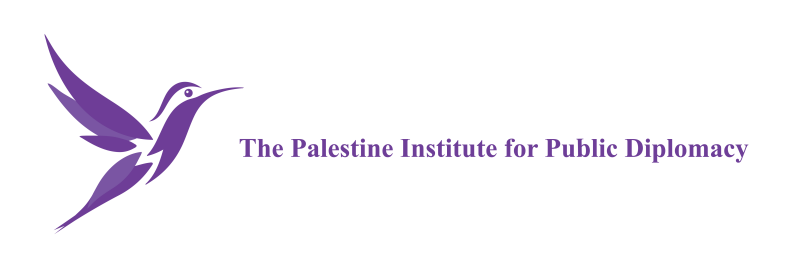
21 juli 2025
We are just back from Bogota, where we contributed to the Hague Group urgent Conference of States on Palestine, as part of a group of Palestinian movement organizations representatives who worked behind the scenes with partners towards this moment.
Only urgently ending impunity can break the siege and put an end to the crimes we have no more words for.
Below is our collective call to action based on the Conference Conclusions and what needs to happen next. We are already working to ensure the pressure continues and commitments are implemented.
Gaza is being exterminated by starvation time is running out.
We, representatives of Palestinian civil society, welcome the Joint Statement of the Hague Group Emergency Conference on Palestine, endorsed by 12 states committed to advancing concrete measures to uphold obligations under international law as a crucial step to end Israel’s ongoing genocide, apartheid, and occupation.
Israel's genocide and apartheid supported by the US, UK, Germany and other Western states is threatening the existence of the Palestinian people in our homeland while simultaneously destroying the multilateral system based on the rule of international law. The joint statement of the Hague Group Emergency Conference, initiated and signed by Global South countries, if translated into action provides a defence of both: the inalienable rights of the Palestinian people and the system of international law put in place since the Second World War. The statement marks a shift away from rhetorical support and politically stagnant processes, toward a principled, action-oriented approach grounded in the rights of the Palestinian people: the right to self-determination, to return, to reparations, to freedom and equality.
The joint statement outlines six specific measures that aim to translate third-state responsibilities under international law into meaningful practice. It is not a forum for political negotiations or solutions —it is a space for concrete action.
1604.


21 juli 2025

BREAKING: In a historic move, Belgian police arrested and interrogated two Israeli soldiers at Tomorrowland following a legal complaint by the Hind Rajab Foundation and GLAN, citing credible allegations of war crimes in Gaza. The suspects were later released, but Belgium has officially opened a criminal investigation — marking a major breakthrough in the application of universal jurisdiction.
This is more than an isolated action. It sets a powerful precedent:
🔹 Western soil is no longer guaranteed impunity
🔹 Universal jurisdiction is becoming a reality
🔹 Governments can no longer ignore credible evidence of atrocity crimes
Read the full press release below.
SUPPORT OUR WORK
Brussels – 21 July 2025
In what may become a turning point in the global pursuit of accountability, Belgian federal police have arrested and interrogated two Israeli soldiers credibly accused of war crimes in Gaza. The action came in response to an urgent legal complaint filed by the Hind Rajab Foundation and the Global Legal Action Network (GLAN) earlier this week.
The suspects were identified and arrested with a clear show of force at the Tomorrowland festival in Boom. After being taken into custody, they were formally interrogated and released. The Belgian Federal Prosecutor's Office has confirmed that a criminal investigation is now underway.
This development is a significant step forward. It signals that Belgium has recognized its jurisdiction under international law and is treating the allegations with the seriousness they deserve. At a time when far too many governments remain silent, this action sends a clear message: credible evidence of international crimes must be met with legal response — not political indifference.
We do not claim that justice has been served — not yet. But we believe something important has begun. For the first time in Europe, Israeli suspects linked to crimes in Gaza have been subjected to formal arrest and questioning. This would not have been possible without the strength of the law and the will to apply it.
To the victims and survivors in Gaza: we see you, we hear you, and we carry your demands for justice forward.
To those who believed impunity was permanent: this moment shows that it is not.
And to states watching around the world: universal jurisdiction is not just a principle — it is an obligation.
The Hind Rajab Foundation and GLAN welcome this breakthrough with determination and humility. We will continue to support the ongoing proceedings and call on Belgian authorities to pursue the investigation fully and independently. Justice must not stop here — and we are committed to seeing it through.
1604A.


21 juli 2025
Today's headlines
Scenes from the end of Zionism: Reflections on the Jewish Anti-Zionist Congress in Vienna
Daniel Friedman

The first Jewish Anti-Zionist Congress, which drew 1,000 anti-Zionist Jews and their allies to Vienna, marked a significant moment in the rising tide against the settler-colonial state of Israel.
1603.


21 juli 2025
I recently had the opportunity to interview author Ta-Nehisi Coates about his reflections on Palestine and his powerful essay in The Message. Our conversation brought to mind Edward Said’s haunting words:
“Palestine is a thankless cause... if you truly serve, you get nothing back but abuse and ostracism.”
Said knew the cost of speaking out and the silence of those too afraid to risk it. But for him, silence was never an option. So I asked Coates why he chose to speak now, knowing the consequences.
His answer was unforgettable. With humility and deep conviction, he gently challenged Said’s view.
The Palestinian freedom struggle, Coates said, is not thankless; it is blessed.
In struggling alongside Palestinians, he had found profound purpose and deep community. He said he had been changed by his new comrades’ courage, and he would never turn back.
That truth stays with me: our struggle is a path to transformation. And solidarity, even in the face of repression, is how we cultivate a better future.
Over the last two years, the movement for Palestinian freedom has gained unprecedented levels of support and solidarity as billions of people have witnessed the horrors of Israel’s genocidal campaign against the people of Gaza.
Millions of people have learned about the Palestinian struggle and want to challenge Israel’s genocidal regime, but don’t know how.
That’s where we need your help.
Adalah Justice Project has a plan to meaningfully shift power by modeling successful economic campaigns that strike at the core of Israel’s apartheid economy; introducing pro-active, pro-Palestinian legislation at the local and state level to serve as a model under a hostile federal administration; and challenging the complicity of our educational and cultural institutions in the U.S.-Israel war economy.
1602.


21 juli 2025
This is the week of our annual awards event, and we're looking forward to presenting the awards to some amazing people. We're also getting close to starting our new online course -- about law. Why learn about laws when nobody is obeying them? For the same reason we learn about peace when everybody's waging wars: most people are, in fact, not waging wars or violating laws, and we need to bring a small number of powerful people into line with the rest of us.
- David Swanson, Executive Director, World BEYOND War
Upcoming Events
Visit WBW's Global Events Calendar to find events and add your own events!


1601.


20 juli 2025
Today's headlines
A father’s obituary for his martyred son in Gaza
Mahmoud Al-Ghefari and Saleh Al-Rantisi
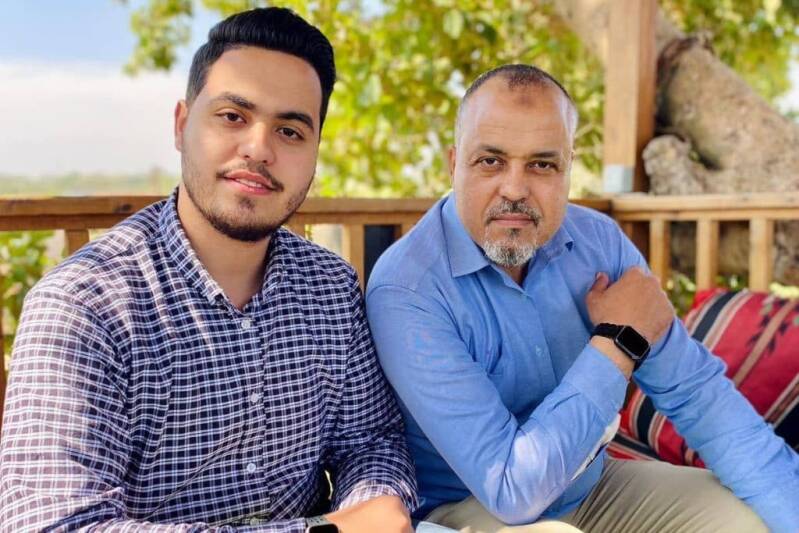
Mahmoud Al-Ghafari remembers his son, Yousef, who was killed in the Gaza genocide. "Israel killed Yousef, snuffed out his dreams, and silenced his beautiful spirit," he writes. "For no crime other than the fact that fate decreed he be born in Gaza."
1600.

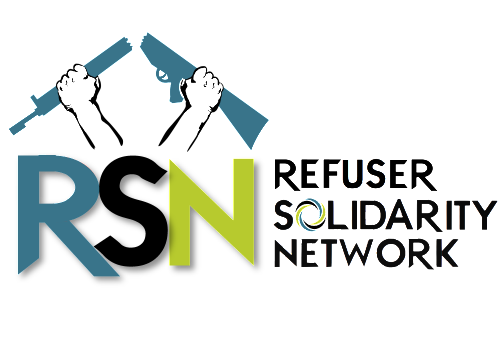
20 juli 2025
Atalya Ben-Abba here, media manager at Refuser Solidarity Network. Last week, the Israeli daily Haaretz published a brutal yet predictable exposé: Israeli soldiers were given explicit orders to shoot at unarmed Palestinians waiting at Gaza aid distribution sites. Soldiers are now coming forward to share what they witnessed and what they were told to do. These orders, to shoot into crowds at humanitarian aid drop points, are not accidental misfires. They are part of a pattern. And now, the truth is rising to the surface. This moment matters, because what we do with these cracks will shape what comes next. Which is why you should send this email to a friend who should be paying attention. Ask them to sign up to our subscribers list and follow this movement.
Support Gaza War Refusers
The latest reports remove any room for doubt: "It's a killing field," one soldier said. "Where I was stationed, between one and five people were killed every day. They're treated like a hostile force – no crowd-control measures, no tear gas – just live fire with everything imaginable: heavy machine guns, grenade launchers, mortars. Then, once the center opens, the shooting stops, and they know they can approach. Our form of communication is gunfire."
The soldiers speaking out in Haaretz aren’t radicals. They’re not activists. Many of them are still in uniform. But they are disturbed by the war crimes and abuses many of them have taken part in carrying out, and they are beginning to talk. This is exactly where disobedience begins: when orders no longer make sense, and when conscience becomes louder than nationalist illusion.
These testimonies point to something deeper: The war is unraveling. The official narratives are collapsing. Soldiers are losing faith in the mission. What we’re seeing isn’t just a moral rupture, it’s an operational one. It’s in these cracks that refusal can take hold. But only if we are organized enough to respond.
At RSN, we are working every day to meet this moment: tracking these stories, sharing them in international media, translating soldier testimonies, and supporting the emotional and legal needs of those willing to take the next step and refuse.
As we’ve said from the beginning: there is no occupation without soldiers. And as soldiers speak out, and begin to resist—publicly or quietly—they need to know they’re not alone. Despite the outrage and anger directed at them for their participation in a livestreamed genocide, we believe in providing them a way out, to refuse service, and to participate in resistance to the war. We’re ready to support any new refusers, and we need you to support us.
Thank you for helping us build the structures that make that possible.
In solidarity,
Atalya Ben-Abba
Media Coordinator
Refuser Solidarity Network
1599.


19 juli 2025

Two individuals accused of committing war crimes and genocide in Gaza are currently attending the Tomorrowland festival in Boom, Belgium. The Hind Rajab Foundation, in collaboration with the Global Legal Action Network (GLAN), has filed urgent legal complaints demanding their immediate arrest and prosecution.
Evidence shows their involvement in torture, mass killings, forced displacement, and the destruction of civilian infrastructure—acts that meet the legal definition of genocide.
Belgium, bound by the Genocide Convention and Rome Statute, has a legal duty to act under its universal jurisdiction laws. The suspects are planning to leave the country on Sunday. Action is needed now!
Read the full press release below.
SUPPORT OUR WORK
Brussels, Boom –
Two individuals responsible for grave international crimes—including war crimes and genocide committed in the Gaza Strip—are currently on Belgian soil, attending the Tomorrowland music festival in Boom. The Hind Rajab Foundation, in association with GLAN, has submitted urgent legal complaints to the Federal Prosecutor, calling for their immediate arrest and prosecution under Belgium’s universal jurisdiction laws.
These individuals are not fringe actors or incidental participants. They are directly implicated in some of the most egregious crimes committed during Israel’s ongoing military campaign in Gaza, including:
-
Indiscriminate attacks on civilian areas, homes, and hospitals;
-
The use of torture and human shields;
-
Mass arbitrary detention and forced displacement of civilians;
-
And the deliberate infliction of conditions calculated to destroy the Palestinian population, consistent with genocide under Article 6 of the Rome Statute and the Genocide Convention.
Givati Brigade Flag Waved
A group of young Israeli men were yesterday seen at Tomorrowland while waving the flag of the Israeli Givati Brigade—a unit extensively documented for its role in the systematic destruction of civilian infrastructure in Gaza and for carrying out mass atrocities against the Palestinian population.
The Givati flag, publicly displayed in the heart of Belgium, is not just a military symbol. It has become, for millions, a symbol of impunity, destruction, and ethnic cleansing. Its appearance in Boom raises urgent political questions:
Why are those involved in grave international crimes able to walk freely, celebrate in public, and glorify their actions without consequence?
The situation is not isolated. Just days ago, in Dirkputstraat in Boom, a Palestinian flag was forcibly torn down from a private residence by a group of young Israeli men of military age, in an act the resident described as deeply intimidating. The symbolism is stark: while war crimes suspects display their military insignia freely, the symbols of their victims are attacked.
This convergence—of impunity, intimidation, and silence—demands a clear response from Belgian society and its legal institutions.
A Legal Obligation, Not a Political Option
Belgium is bound by international law to investigate and prosecute individuals suspected of genocide and war crimes when they are present on its territory. These obligations arise from:
The Genocide Convention (1948),
The Rome Statute of the International Criminal Court (ratified by Belgium in 2000),
And the Belgian Penal Code, which incorporates universal jurisdiction over war crimes, crimes against humanity, and genocide.
A State Party is legally required to prosecute or extradite genocide suspects the moment they are found on its soil—regardless of nationality or rank.
The evidence presented by the Hind Rajab Foundation is clear, credible, and legally sound. The individuals currently in Belgium are accused of acts that:
Destroyed entire neighborhoods in Gaza under the guise of “security”;
And deliberately targeted Gaza’s capacity to survive—its water systems, agriculture, housing, and medical infrastructure.
"These actions were not incidental. They were executed with intent—to destroy a people, to erase a future" Said HRF's Chairman Dyab Abou Jahjah. "If Belgium allows these individuals to leave unchallenged, it will be complicit in granting impunity to the perpetrators of genocide" he added.
Belgium Must Act Now
Tomorrowland, a global stage of culture and celebration, must not become an unwitting sanctuary for war criminals.
Belgium has long prided itself on supporting international justice. That legacy is on the line.
We therefore urge:
-
The immediate arrest of the individuals named in the complaints;
-
The opening of formal investigations and prosecutions;
-
And measures to prevent any departure from Belgian territory, including the seizure of travel documents and devices.
There is still time to act. But that time is quickly running out.
1598.


19 juli 2025
Today's headlines
Israeli settler violence leaves Ramallah-area villages reeling after five Palestinians killed in two weeks
Qassam Muaddi
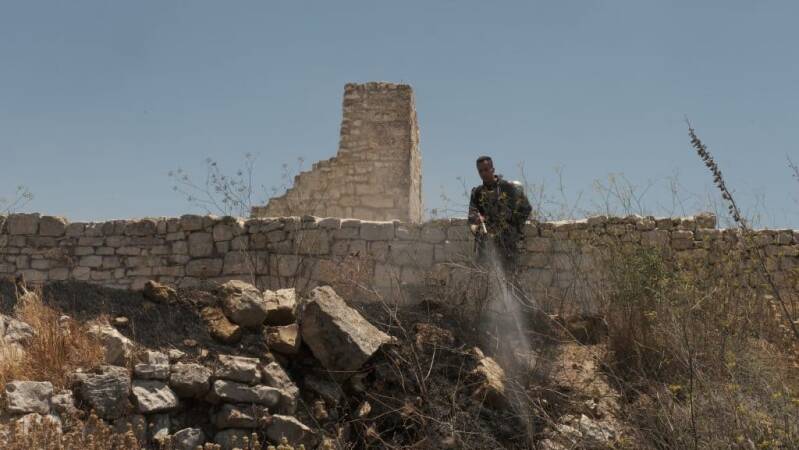
Israeli settlers have been targeting villages on the eastern slopes of Ramallah for months, with the latest attacks turning deadly. Villagers say it's all part of Israel's plans to drive Palestinians out of the area and pave the way for annexation.
How Israel’s energy diplomacy is fueling the Gaza genocide
Energy Embargo for Palestine

Energy exports play a central role in Israel's campaign to normalize relations with its neighbors and avoid accountability for its ongoing genocide of Palestinians. An energy embargo on Israel should go hand-in-hand with calls for an arms embargo.
Film Review: James Gunn’s Superman cements Israel’s villain status in the American imagination
Mitchell Plitnick

James Gunn’s new Superman movie, which draws an analogy between Israel and the villainous country of Boravia, demonstrates how Israel's idealized image in American culture has been shattered by the widespread acknowledgment of Palestinian oppression.
Against ‘Jewish Safety’
Alana Lentin
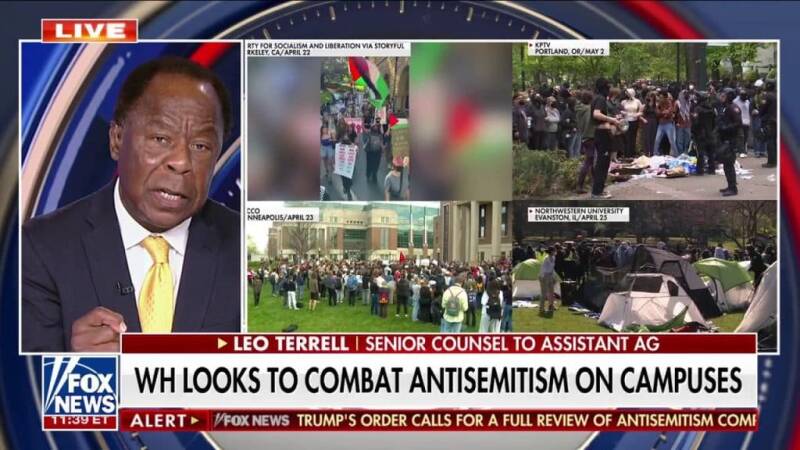
Claims that "antisemitism" is being weaponized to support Israel miss that its function has always been to bolster European supremacy. Today, the chimera of “Jewish safety” is used to justify Western dominance through Israel’s genocide in Palestine.
As Zohran Mamdani ascends New York politics, liberal Zionists are helping pave the way
Philip Weiss
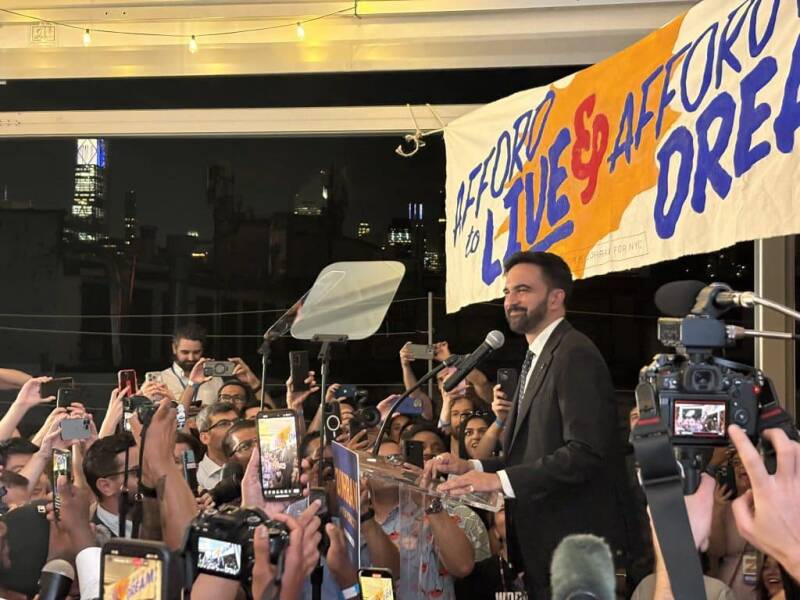
Zohran Mamdani will need the Jewish establishment to become New York mayor, and liberal Zionists are paving the way. Although this means there will be Zionists in City Hall, they will be playing by new rules set by ascendant pro-Palestine Democrats.
1597.


19 juli 2025
This article is not antisemitic. The people saying it is are cowards.
This week, the U.S. House of Representatives held its ninth hearing on antisemitism on college campuses. Like the others before it, the hearing was political theater. Politicians were performing their faux concern for the safety of Jews while eagerly throwing basic free speech rights into the trash. Terrified university leaders were ready to say whatever it takes to avoid being targeted for career execution next.
One focus this time was a tweet by historian Ussama Makdisi. It linked to a Mondoweiss article titled "I could have been one of those who broke through the siege on October 7." Republican members of Congress called the tweet antisemitic.
Rich Lyons, the Chancellor of UC Berkeley, where Makdisi teaches, and where the Free Speech Movement launched in 1964, gave them what they wanted. When asked about the tweet, and by extension, the article, he said, "I believe it was a celebration of the terrorist attack on October 7."
It was not. And I doubt Lyons or anyone on the panel even read it.
The article was written by Salman Abu Sitta, one of the most respected historians of the Nakba, the mass expulsion and ethnic cleansing of Palestinians in 1948. Abu Sitta was ten or eleven years old when Zionist militias destroyed his village and forced his family into Gaza to live as refugees. His life’s work has focused on preserving the history that Israel desperately wants to erase. His article does not praise violence. It is about loss. It asks readers to imagine what it means to grow up in a cage, stripped of dignity and denied a future.
That is not antisemitism. That is the history of the Zionist colonial project. That is truth.
We are proud to have published Salman Abu Sitta’s writing over many years. His voice and life’s work challenge the foundational lies that Israel and its supporters use to justify their oppression of Palestinians. And that is why we are being targeted.
Also, this week, Hillel International claims there has been a rise in antisemitic "incidents" on college campuses, while the number of antisemitic assaults or vandalism dropped. An example of these "incidents?" Another article we published.
Last November, we ran a lengthy piece by Beshara Kehdi arguing that UC Davis should end its veterinary medicine exchange program with Hebrew University because of its ties to the Israeli military. He called on other professionals to support the academic boycott. According to Hillel, this opinion piece is itself an antisemitic act.
Let’s be honest about what is happening.
These attacks are not about keeping Jewish students safe. They are about protecting Israel from accountability. They are about labeling any support for Palestinian freedom as dangerous. And they are about silencing anyone, especially Palestinians, who refuse to stay quiet.
If we’re honest, the strategy is working. Professors are being fired. Students are being suspended and deported. News outlets are being pressured to stay silent. And organizations like Mondoweiss, which continue to publish the truth, are being smeared as threats.
What we are seeing is a coordinated campaign to control what can be said and who can speak. This is not just about Palestine. It is about the future of free speech, academic freedom, and independent journalism in this country and around the world.
I know we just wrapped up a fundraising campaign, but if you believe our work matters, we need your support now more than ever. The attacks will keep coming. And we are determined to keep publishing, no matter what.
Read these articles. Share them. Speak out. And if you can, make a donation today.
David Reed, Publisher
Must Read: In a historic gathering, 12 countries announce Israel sanctions and renewed legal action to end Gaza genocide
María F. Fitzgerald: Meeting in Bogotá, Colombia, representatives of Bolivia, Cuba, Indonesia, Iraq, Libya, Malaysia, Namibia, Nicaragua, Oman, and South Africa announced sanctions against Israel to cut the flow of weapons facilitating genocide and war crimes in Gaza.

Representatives of over 30 states from Africa, Asia, Europe, as well as North America and South America met at the Emergency Conference of The Hague Group in Bogota, Colombia on July 15 and 15, 2025. (Photo: Progressive International)
Catch-up
Qassam Muaddi: Israeli warplanes killed one and wounded at least 20 in a series of airstrikes on Damascus, Syria, on Wednesday. Israel claimed the attack was to ‘protect’ the minority Druze community in Syria. But there’s more to the story.
Tareq Hajjaj: Israel shelled Gaza’s only Catholic church on Thursday, killing three and wounding several others. Israeli Prime Minister Benjamin Netanyahu later said it was a “mistake.”
Michael Arria: The Trump administration is calling on Israel to investigate the killing of Sayfollah Musallet, but Israel rarely holds soldiers or settlers accountable for violence against Palestinians.
Tareq Hajjaj: “This was not aid distribution,” said Ahmed Abu Amra, who witnessed gas bombs being fired at aid seekers at a Gaza Humanitarian Foundation site. “It was a real massacre committed against the hungry who came hoping to get some food.”
Michael Arria: Muhanad J. M. Alshrouf, a 22-year-old Palestinian man, was detained by immigration authorities at Houston’s Bush Intercontinental Airport for nine days. Attorneys say his detention is just one part of the Trump administration’s broader crackdown.
Qassam Muaddi: The villagers of Taybeh have lived in harmony with the nearby Bedouins for generations. Israeli colonization and the shrinking land available to these communities are now straining social relations, as Israeli settler violence threatens both.
Tareq Hajjaj: On Sunday, Israel bombed a water distribution point in the central Gaza Strip, as dozens of civilians, mostly women and children, waited in line for water. Twelve people were killed, eight of them children. It was not the first time.
Tara Goodarzi: A growing movement is calling on Illinois to divest $100 million in Israel Bonds, and has filed an ethics complaint against Treasurer Michael Frerichs, alleging abuse of authority, corruption, improper use of state time, and misuse of public assets.
Muhammad Ali Khalidi: The Trump administration is attacking academia because it threatens existing power structures and dominant elites. This is seen most clearly when it comes to Palestine.
Muhannad Ayyash: Haidar Eid’s “Banging on the Walls of the Tank” reveals a disturbing but irrefutable reality: the world has abandoned the Palestinian people to be annihilated as a people in the most calculated and brutal fashion possible.
Tareq Hajjaj: Israeli forces carried out another massacre at an aid center in southern Gaza run by the Gaza Humanitarian Foundation. Witnesses described Israeli tanks shooting toward the crowds with machine guns and soldiers sniping aid-seekers in the head.
1596.


18 juli 2025

As Israel violently lashes out, forcibly starving Palestinians in Gaza while bombing Syria, we know Israel is escalating because it’s running out of time to commit atrocities with impunity.
Palestinians are here to stay: remaining on, returning to, and rebuilding their native land. Justice is coming. We’ll keep fighting for as long as it takes. Read the latest updates below.
Your Activist Scoop
OUR GOVERNMENT'S GUILT

- Israel bombed the Holy Family Catholic Church in Gaza, one of many places of worship it has targeted, while shooting and gassing starved Palestinians at U.S./Israeli-run concentration camp sites.
- Armed with U.S. weapons and military funding, Israel bombed Syria in an aggressive escalation and an ambition to colonize the region.
- War criminals Trump and Netanyahu met at the White House, discussing Israel’s genocidal plan to build a concentration camp city in Rafah. But Palestinians are here to stay: remaining on, returning to, and rebuilding their native land.
SHARE THIS MESSAGE
YOUR IMPACT
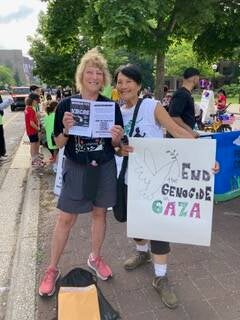
Local activists flyer to stop arming Israel on July 4th in Ann Arbor, MI.
- 19,000+ people emailed their representative about the Block the Bombs Act, driving 5 more representatives to support for a total of 26 cosponsors.
- The National Education Association, the largest labor union in the country, voted to cut ties with the racist ADL. Read more about why the ADL is not an ally.
- The Hague Group convened global majority countries in Colombia, committing to an arms and energy embargo on Israel to end the genocide.
- The Freedom Flotilla’s Handala is sailing to deliver urgent humanitarian aid to Gaza. Onboard is Palestinian-American attorney Huwaida Arraf, Amazon labor union founder Chris Smalls, and more. Follow the live tracker and demand safe passage.
FOLLOW THE HANDALA
WHAT YOU CAN DO NEXT

- Demand justice for 20-year-old Palestinian American Saif Musallet, who was beaten to death by Israeli settlers, and every person murdered by Israel.
- Upcoming webinars: Join the "Stop ICE Abductions & Block the Bombs" webinar on Tues. July 22 and "Civil Rights & Resiliency: Navigating Attacks, Risks, and Compliance" online workshop on Wed. July 30. Also check out this organizing training from MASGD.
- Join the , Aug. 29-31 in Detroit, led by Palestinian Youth Movement and endorsed by USCPR.
- If your representative hasn’t signed on to the Block the Bombs Act yet, then mobilize your community to pressure them now.
DEMAND JUSTICE FOR SAIF
Thank you for taking action with us.
Onward to liberation,
CAT KNARR
Communications Director
USCPR Action
1595.

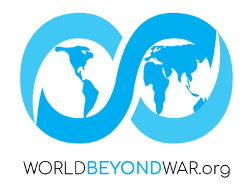
18 juli 2025

World BEYOND War has announced the awardees for its fifth annual War Abolisher Awards: Ralph Nader, Roger Waters, and Francesca Albanese.
The awardees will accept their awards in an online event on July 24. The event is free and open to the public. Those wishing to attend the event on Zoom can register here.
The Artistic War Abolisher of 2025 award goes to Roger Waters for his incredibly powerful combination of song-writing, singing, speaking, and performing against the horrors of war. During the event, we will play a new 8-minute song pre-recorded by Roger Waters called Sumud.
The David Hartsough Lifetime Individual War Abolisher of 2025 award — named for the late co-founder of World BEYOND War — goes to Ralph Nader for his brilliant and relentless advocacy, educating, organizing, analyzing, and criticizing war and related crimes and abuses.
The Individual War Abolisher of 2025 award goes to Francesca Albanese, the United Nations Special Rapporteur on the Palestinian territories occupied since 1967, for her fearless, incisive, and eloquent reporting on the genocide in Gaza.
Moderating the event will be WBW Board Member and Secretary Robert Fantina, and presenting the awards will be WBW Board Members Alicia Cabezudo and Edward Horgan, and RootsAction Senior Partnerships Coordinator Hanieh Jodat Barnes.
World BEYOND War thanks RootsAction for helping spread the word about the War Abolisher Awards.
The timing of the online awards event will be July 24 at 18:00 UTC, which is 8:30 a.m. in Honolulu, 11:30 a.m. in Los Angeles, 12:30 p.m. in Mexico City, 2:30 p.m. in New York, 7:30 p.m. in Yaoundé, and 8:30 p.m. in Berlin.

The purpose of the awards is to honor and encourage support for those working to abolish the institution of war itself. With the Nobel Peace Prize and other nominally peace-focused institutions so frequently honoring other good causes or, in fact, wagers of war, World BEYOND War intends its awards to go to educators or activists intentionally and effectively advancing the cause of war abolition, accomplishing reductions in war-making, war preparations, or war culture. World BEYOND War received hundreds of impressive nominations. The World BEYOND War Board, with assistance from its Advisory Board and Staff, made the selections.
The awardees are honored for their body of work directly supporting one or more of the three segments of World BEYOND War’s strategy for reducing and eliminating war as outlined in the book A Global Security System, An Alternative to War. They are: Demilitarizing Security, Managing Conflict Without Violence, and Building a Culture of Peace.
Register Here.
Onward toward a world beyond war!
World BEYOND War is a global network of volunteers, chapters, and affiliated organizations advocating for the abolition of the institution of war.
1594.

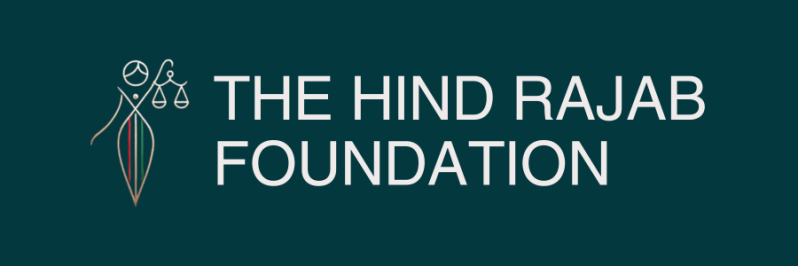
18 juli 2025
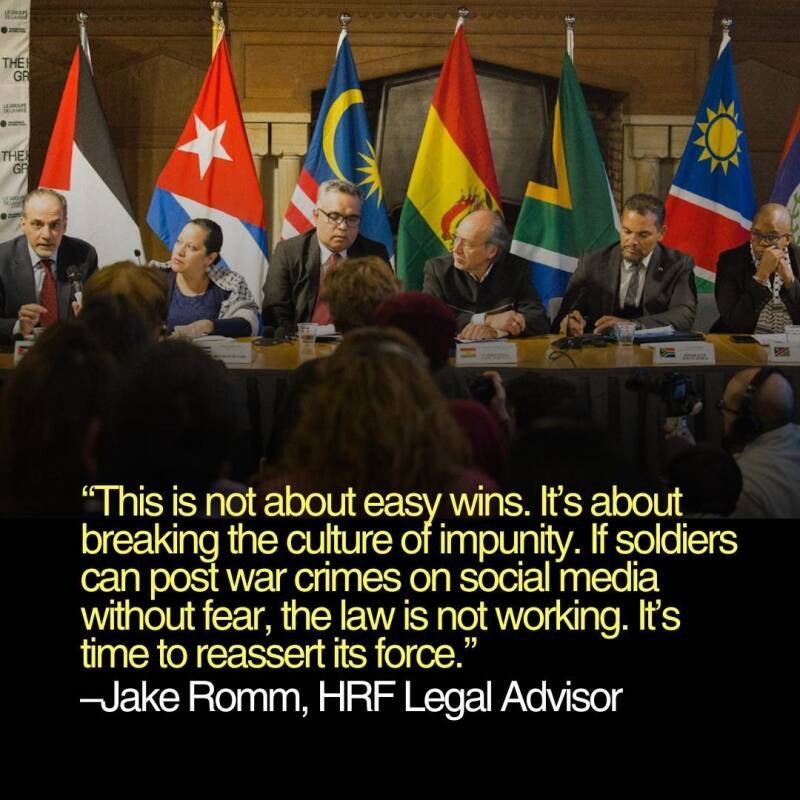
The Hind Rajab Foundation (HRF) has proudly taken part in this week’s Emergency Conference of States of The Hague Group in Bogota, Colombia.
We called on the 30+ states present - including Spain and Ireland - to work with the HRF to prosecute Israeli war criminals - including rank-and-file soldiers. We asked that they fulfil their international obligations in pursuit of ending the genocide and the occupation and specifically to:
- Open direct channels with HRF
- Review cases quickly before suspects flee
- Coordinate efforts on complex cases (e.g. arms suppliers and enablers)
- Use domestic legal systems to give real teeth to international law
Read / Share: What Is the Hague Group, and why does the participation of the Hind Rajab Foundation matter?
The HRF can track the Israeli military as it commits crimes across Palestine, but only states can make arrests. We know where and when these crimes are occurring, and we know, down to the individual soldier, who is committing them but only states can initiate prosecutions.
We are able to identify and track perpetrators as they move across the globe and have even established the dual nationality of a number of soldiers, many of whom are nationals of some of the states presently gathered at this week’s Conference, but we need the help of every state present at The Hague Committee.
“If soldiers can post war crimes on social media without fear, the law is not working. It’s time to reassert its force. Justice demands prosecutions; it demands the reassertion of the force of law.” HRF’s Legal Advisor, Jake Romm
Colombian President, Gustavo Petro described The Hague Group as a new path:
not just declarations, but collective enforcement. That’s where HRF’s role is essential: We bring cases, evidence, names and legal pathways. But only states can make arrests, only states can prosecute.
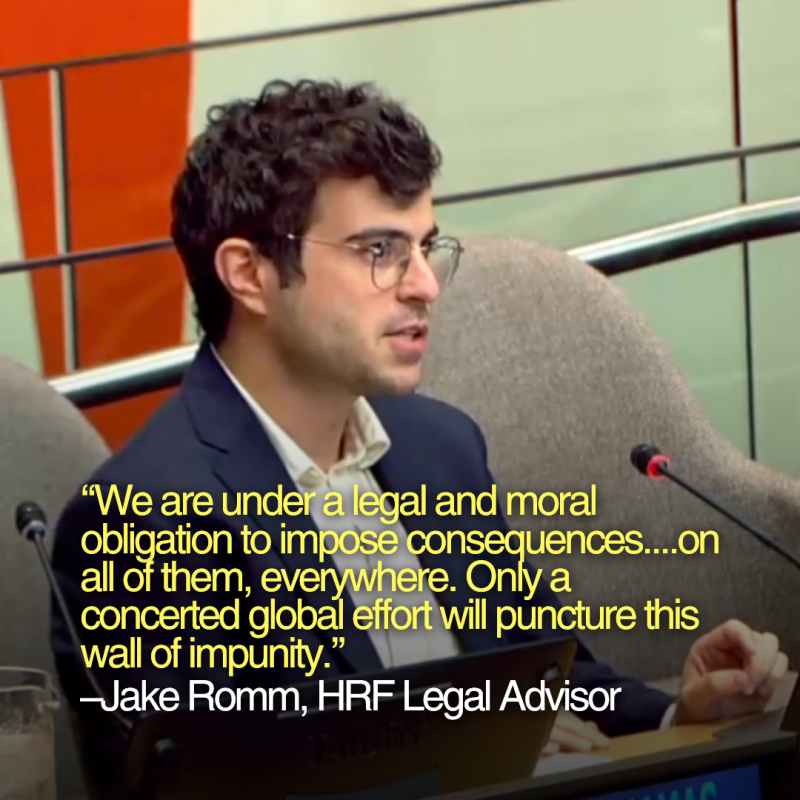
Whilst we applaud the work of the International Criminal Court, we recognise that the court moves slowly and presently lacks the resources necessary to pursue anyone except the highest-level perpetrators. This is why international mechanisms are not, and ought not be the primary means for seeking accountability.
Perpetrators are continuing to flee jurisdictions - evidence that the HRF’s filings are having an effect and making the world inhospitable to these criminals - but this is not justice; this is not about easy wins; it’s about breaking the culture of impunity.
Read / Share: What Is the Hague Group, and why does the participation of the Hind Rajab Foundation matter?
The HRF reminded the delegation of the 2007 ICJ ruling on the genocide of Srebrenica, whereby State parties were obligated “to employ all means reasonably available to them” to prevent genocide. Furthermore, the ruling disregarded the pretence that individual actions may prove insufficient to abate the genocide, stating that “since the possibility remains that the combined efforts of several States—each complying with its obligation to prevent—might have achieved the result… which the efforts of only one State were insufficient to produce.”
The HRF reiterated that states that fail to undertake prosecutions, a readily available and easily actionable step, can be held legally responsible for their failure to act, as in the Srebrenica case.
“One arrest. One conviction. That’s all it takes to shift the tide. Law is expressive: it says what we tolerate—and what we no longer will. A single prosecution can create irreversible momentum toward justice”. Jake Romm, HRF Legal Advisor
We further called on the delegation to work with us to begin building cases against those who aid and abet war crimes and crimes against humanity: from multinational arms companies, intelligence and logistics suppliers, to suppliers of fuel and energy - without whom this genocide would not be possible. We note the complex evidentiary nature of these cases and hence the need for extensive collaboration between states and civil society - it is well past time to begin this process.
Bogotá may be remembered as a turning point - a moment when states, finally, began to act. The Hind Rajab Foundation is ready—with evidence, legal teams and a global network. We will do our part.
In solidarity & strength,
The Hind Rajab Foundation
1593.


18 juli 2025
West Bank Monthly Snapshot
Casualties, Property Damage and Displacement
June 2025
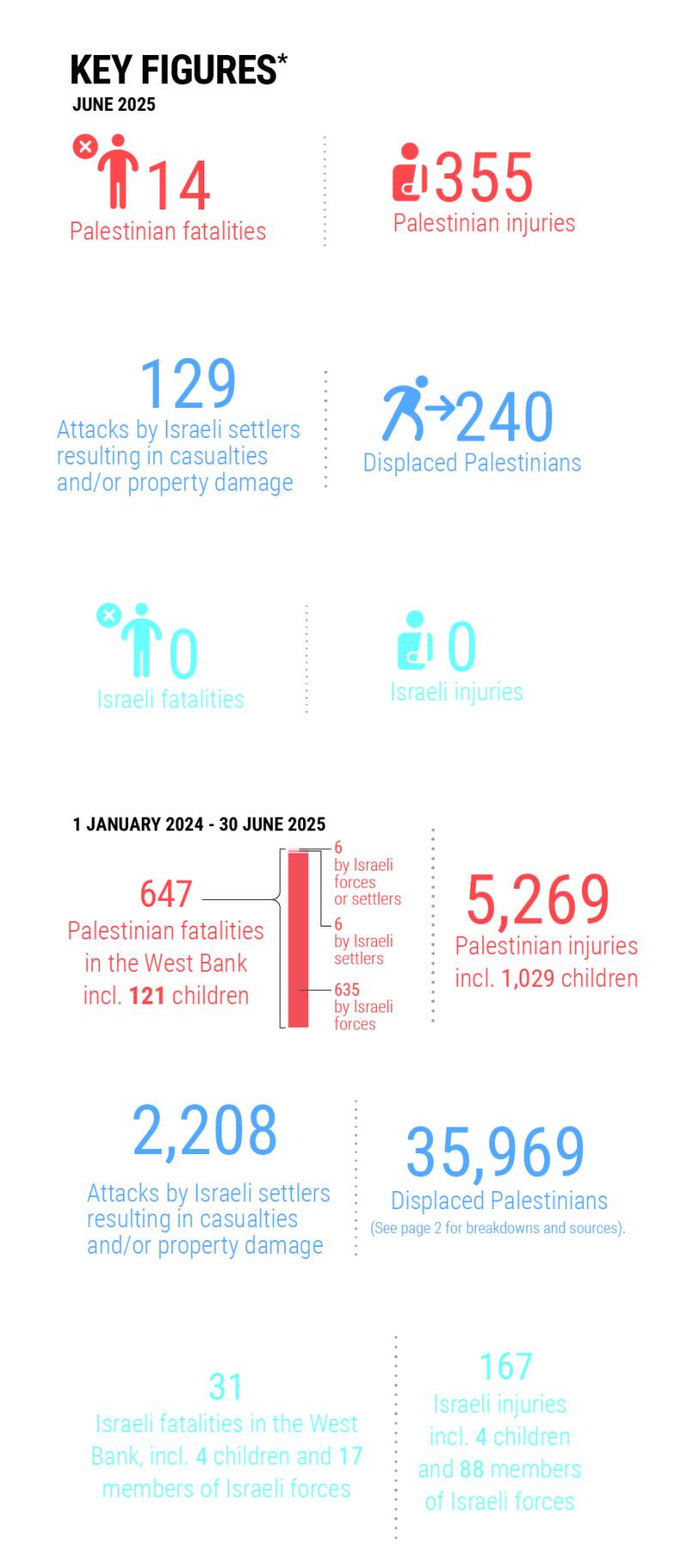

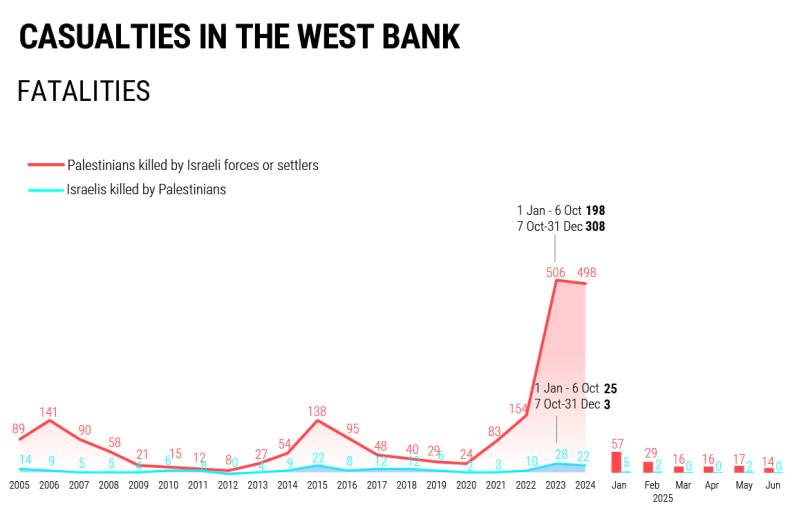





1592.


18 juli 2025
Today's headlines
Israel’s latest bombing of Syria, explained
Qassam Muaddi

Israeli warplanes killed one and wounded at least 20 in a series of airstrikes on Damascus, Syria, on Wednesday. Israel claimed the attack was to 'protect' the minority Druze community in Syria. But there's more to the story.
In a historic gathering, 12 countries announce Israel sanctions and renewed legal action to end Gaza genocide
María F. Fitzgerald

Meeting in Bogotá, Colombia, representatives of Bolivia, Cuba, Indonesia, Iraq, Libya, Malaysia, Namibia, Nicaragua, Oman, and South Africa announced sanctions against Israel to cut the flow of weapons facilitating genocide and war crimes in Gaza.
Israel attacked Gaza’s Catholic church, killing 3, then said it was an accident.
Tareq S. Hajjaj

Israel shelled Gaza's only Catholic church on Thursday, killing three and wounding several others. Israeli Prime Minister Benjamin Netanyahu later said it was a "mistake."
1591.


18 juni 2025
Kenniscentrum SOMO heeft deze week een nieuw rapport gepubliceerd waarin de economische relatie tussen EU-landen en Israël in kaart wordt gebracht. De cijfers maken duidelijk dat de Europese Unie via het geheel of gedeeltelijk opschorten van het EU-Israël Associatieverdrag, dat Israël voorziet van vrijhandelsvoordelen met de EU, significante economische druk kan uitoefenen op Israël. Maar na 21 maanden genocide weigert de EU nog altijd deze middelen te gebruiken.
Hoe ziet de handel van Israël met de EU er uit?
Een derde van de totale buitenlandse handel van Israël drijft het met de EU. Het gaat om 42,9 miljard euro in 2024, veel meer meer dan de handel tussen de VS en Israël. En, nog frappanter, 1 miljard euro meer dan de waarde van de handel tussen de EU en Israël in 2023. Sinds het begin van de genocide zijn de handelsrelaties aangehaald, zo blijkt.
Deze stijging komt voornamelijk door de toegenomen export van producten uit de EU naar Israël. De economische relatie werkt overigens twee kanten op: de EU is ook de belangrijkste afzetmarkt voor Israëlische producten.
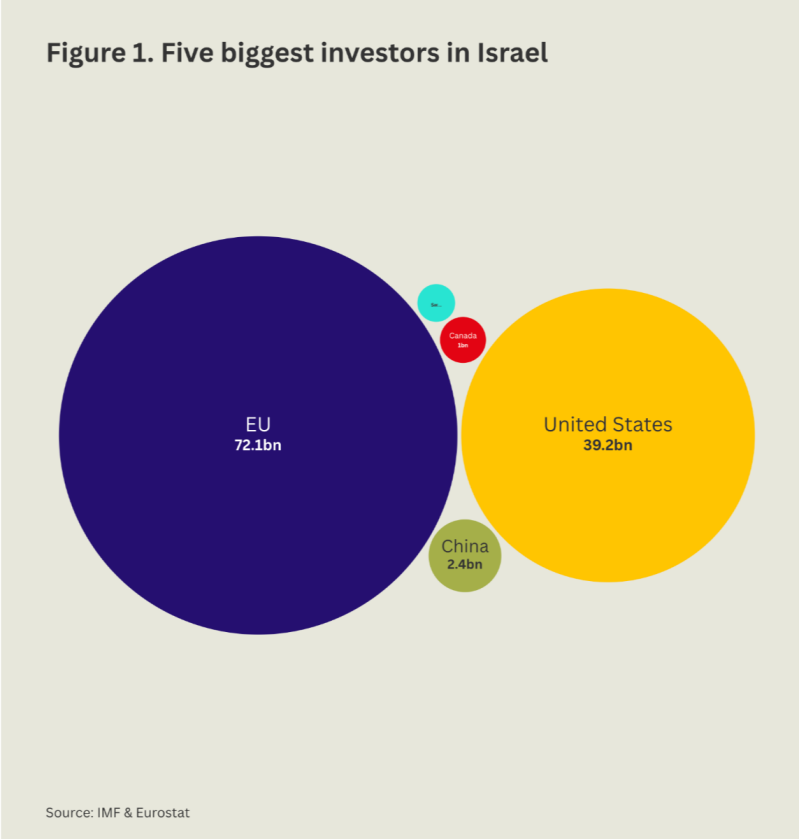
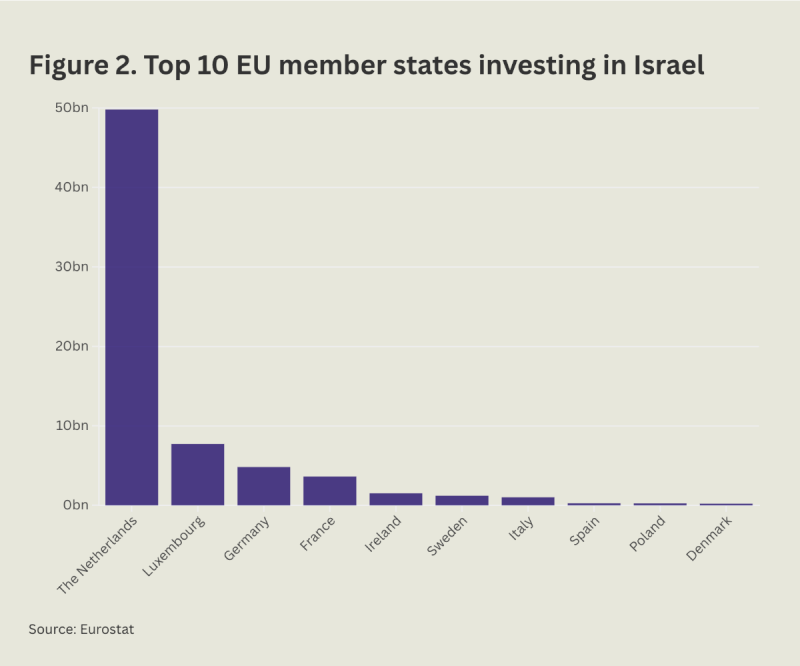
Grafieken uit het SOMO-onderzoek.
Nederland topinvesteerder in Israël
Naast handelspartner is de EU ook de belangrijkste investeerder in de Israëlische economie: het gaat om 72,1 miljard euro aan investeringen. Nederland is op dit punt de absolute koploper. Het neemt twee derde van de totale EU-investeringen in Israël voor zijn rekening. In Nederland gevestigde bedrijven investeerden in 2023 bijna 50 miljard euro in Israël.
EU moet ingrijpen
‘Dit is een cruciaal moment voor de EU om een rode lijn te trekken tegen Israël en te stoppen […] met het aanwakkeren van genocide en bezetting’, aldus SOMO. ‘De EU moet haar associatieovereenkomst met Israël onmiddellijk opschorten en uitgebreide economische sancties opleggen.’
Wat kan Nederland doen?
De Nederlandse minister van Buitenlandse Zaken Caspar Veldkamp wimpelt suggesties van Nederlandse maatregelen tegen Israël doorgaans af met het argument dat hij samen met andere EU-landen op wil trekken, omdat de impact anders minimaal zou zijn. Gezien de belangrijke rol van Nederland als investeerder in Israël blijkt dat toch niet waar. Nederland kan wel degelijk invloed uitoefenen op Israël via de economische relaties, ook al doet het dat alleen.
Lees ons hele artikel over het rapport >
En weer laat de Europese Unie Israël zijn genocidale gang gaan in Gaza
SOMO publiceerde zijn rapport in aanloop naar een vergadering van de 27 Europese ministers van Buitenlandse Zaken, de zogeheten Raad Buitenlandse Zaken, op 15 juli. Naar verluidt lagen er tien mogelijke sancties tegen Israël op tafel. Sommige daarvan vereisen unanimiteit om te worden aangenomen, andere een meerderheid.
Maar tot stemming kwam het niet eens. De ministers besloten dat de tien sancties ‘op tafel blijven’, en dat de Raad ‘na de zomer’ een nieuwe beoordeling maakt. Dat de EU met het opschorten van het hierboven genoemde Associatieverdrag een ijzersterk middel in handen heeft om Israël onder druk te zetten, maakt het uitblijven van actie extra pijnlijk.
‘Als het niet lukt om op de grond echt verandering teweeg te brengen voor 15 juli, en het dan nog niet zou lukken om tot Europese stappen te komen, dan zal ik zeker nationale maatregelen willen bezien’, zei minister van Buitenlandse Zaken Caspar Veldkamp begin deze maand in de Tweede Kamer. Dat Nederland sterke kaarten heeft om druk op Israël uit te oefenen via sancties, bewijst het onderzoek van SOMO. Dat moet nu gebeuren.
Lees hier ons verslag van de Raad Buitenlandse Zaken, en de rol die minister Veldkamp daar speelde >
Ons laatste nieuws over Gaza:


Dokter Abu Safiya verliest 40 kilo gewicht door onmenselijke omstandigheden in Israëlische cel
De Palestijnse dokter Hussam Abu Safiya heeft dringend medische hulp nodig. Sinds zijn gijzeling door het Israëlische leger in december 2024, wordt hij uitgehongerd, gemarteld en verwaarloosd, zegt zijn advocaat.
Lees het artikel >
Israël werkt aan gitzwarte ‘eindoplossing’ voor Palestijnen in Gaza
Concentratiekampen, deportaties en het vermoorden van Palestijnen ‘zoals in een videogame’. Dat zijn de contouren van Israëls gruwelijke plannen voor Gaza – en dat zou niemand moeten verrassen.
Lees het artikel >
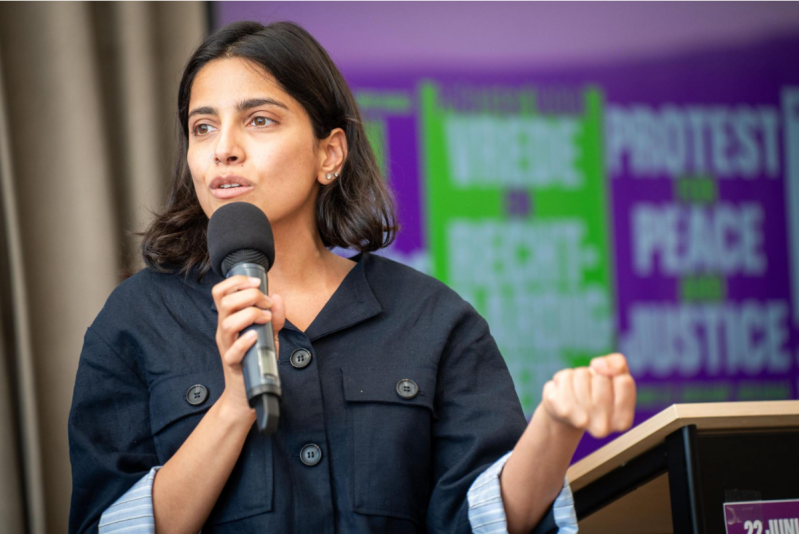
Interview | Voorzitter The Hague Group: ‘Het gaat ons om tastbare maatregelen tegen Israël’
Negen landen uit het mondiale Zuiden richtten dit jaar The Hague Group op, om gezamenlijk maatregelen te nemen tegen de straffeloosheid van Israël. Nu moedigen ze Europese landen aan om zich bij hen aan te sluiten. Voorzitter Varsha Gandikota-Nellutla: ‘Alleen door collectieve actie van regeringen kunnen we de genocide in Gaza stoppen.’
Lees hier ons interview met Gandikota-Nellutla >
Uit onze agenda
zaterdag 19 juli t/m zaterdag 26 juli
Demonstraties en wakes
• Wake voor Palestina op zaterdag 19 juli in Den Bosch, Burgemeester Loeffplein (12.00 uur)
• Wake op zaterdag 19 juli in Groningen, Waagplein (13.00 uur)
• Stil protest van gate48 - de organisatie van kritische Israëli's in Nederland op zondag 20 juli in Amsterdam, 't Spui (17.00 uur)
• Stilteprotest voor Palestina op maandag 21 juli in Utrecht, Neude, langs het fietspad (08.30 uur)
• Sit-in rijksambtenaren op donderdag 24 juli in Den Haag, Ministerie van Buitenlandse Zaken, Rijnstraat 8 (12.00 uur)
• Wekelijks protest van Achterhoek 4 Palestine op vrijdag 25 juli in Doetinchem, voor het gemeentehuis (10.00 uur)
• Wake op zaterdag 26 juli in Nijmegen, Koningsplein - Marienburg (14.00 uur)
Culturele evenementen
• Conferentie: Doing Justice, Loving Mercy. Palestinian Theology and Radical European Solidarity van vrijdag 25 juli tot en met zondag 27 juli in Helvoirt
1590.


17 juli 2025
Diederik Samsom
We kijken ernaar. En doen helemaal niets
Waarom laten we blinde razernij prevaleren boven recht? Is het ons historisch schuldgevoel dat hier opspeelt? Kunnen we niet bevatten, laat staan veroordelen, dat een land dat ontstond uit de as van de Shoah, nu overgaat tot het uithongeren, vermoorden en verdrijven van een volk? Of grijpen we niet in, omdat de geslachtofferde mensen niet op ons lijken?
1589.


17 juli 2025
Today's headlines
In the latest massacre, 15 Palestinians seeking food at GHF site die from suffocation after Israeli forces fire gas at aid seekers
Tareq S. Hajjaj
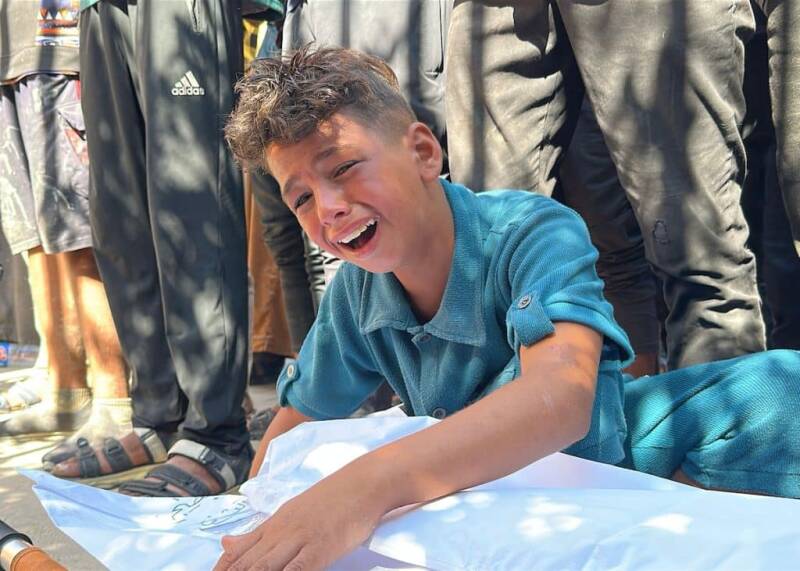
"This was not aid distribution," said Ahmed Abu Amra, who witnessed gas bombs being fired at aid seekers at a Gaza Humanitarian Foundation site. "It was a real massacre committed against the hungry who came hoping to get some food."
U.S. calls on Israel to investigate killing of Palestinian-American young man by Israeli settlers
Michael Arria
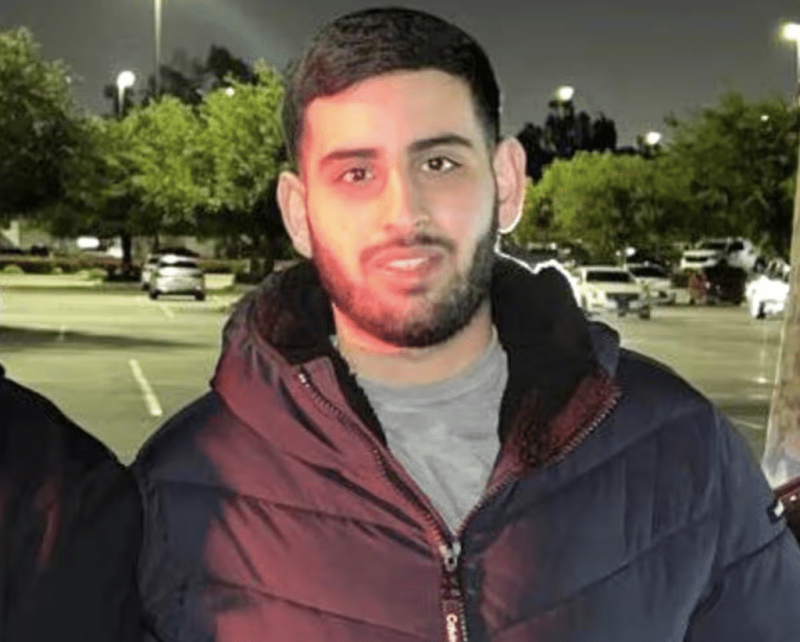
The Trump administration is calling on Israel to investigate the killing of Sayfollah Musallet, but Israel rarely holds soldiers or settlers accountable for violence against Palestinians.
Palestinian man detained at Houston airport for nine days, says attorney
Michael Arria

Muhanad J. M. Alshrouf, a 22-year-old Palestinian man, was detained by immigration authorities at Houston's Bush Intercontinental Airport for nine days. Attorneys say his detention is just one part of the Trump administration's broader crackdown.
1588.


17 juli 2025
My name is Mejd Azzeh, I'm the 1for3 Director in Palestine. 1for3 works with, and provides services to, Palestinian refugees living in UN-run camps in the West Bank. We employ Palestinians to provide education, food security and basic health care to the communities we serve, including water security and hydroponic agriculture projects.
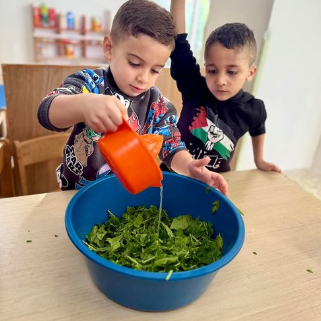
1for3 Water Security Program
Fighting for better water quality for Palestinian refugees was the reason that 1for3 started. Our first program, in 2012, established a water testing lab in the UN-run Aida refugee camp in partnership with a local community center, Lajee, and Tufts University’s Water: Systems, Science & Society program (WSSS).
Fighting Ecocide with Hydroponic Agriculture
Through our health & environment programs we support hydroponic urban
agriculture in West Bank camps, providing sustainable agriculture & enhanced local food sovereignty for Palestinian refugees. Since 2012 we've established 3 community hydroponic gardens & led four delegations to build water testing labs and train technicians to test and monitor water that has led to upgraded infrastructure.
We’re excited to announce a new project in partnership with the Lajee Center: the renovation and preservation of the Olive Grove on the Lajee Center campus.

This precious outdoor space, just over a quarter of an acre, serves more than 7,000 residents of the UN-run Aida refugee camp near Bethlehem. In a community that is densely populated and surrounded by concrete, this grove offers a rare and vital connection to nature.
Our goal is to raise $65,000 to breathe new life into this space—reviving the olive grove, creating community gardens, and rebuilding a playground. A unique element of this project is an international design competition involving students from Palestine and abroad—young architects, designers, and engineers coming together to imagine and build physical spaces that foster resilience and connection.
In an area where green space is almost nonexistent and access to surrounding land has been steadily lost, this park offers something essential: a place for people to gather, grow, and thrive.
We'll be participating in a webinar with Eyewitness Palestine as a part of their Mutual Aid program to raise funds for this project. Please join us on Wednesday, July 23, 2025 at 12pm EST to learn more about the project and help us restore a vital green space for this community. We hope to see you there!
Best wishes,
Mejd Azzeh, 1for3 Director in Palestine
1587.


17 juli 2025
The largest labor union in the U.S. just voted to cut all ties with the ADL. This is historic — and now, we need to let them know we have their back.
The 3 million-member National Education Association voted on July 6 to cut all ties with the ADL, stating that it “is not the social justice educational partner it claims to be.”
But the anti-Palestinian lobby is fighting this decision, attempting to keep the ADL’s biased and dangerous curriculum in schools.
The NEA needs to hear from us — email them now to protect this momentous decision.
Email now

In voting to cut ties with the ADL, the NEA delegation cited the ADL’s history of:
- Smearing Palestinian rights
- Purposely conflating anti-Zionism and antisemitism
- Attacking anti-racist organizing, including the Black Lives Matter and South African anti-apartheid movements.
“Allowing the ADL to determine what constitutes antisemitism would be like allowing the fossil fuel industry to determine what constitutes climate change,” said one NEA delegate.
We know that the ADL is not a civil rights organization, it only masquerades as one. In reality, it operates as a pro-Israel lobbying group, one that uses accusations of antisemitism to smear critics of Israel’s genocide and apartheid regime as bigots.
More and more, major institutions are recognizing that the ADL is not a legitimate or credible source. But the ADL, and the entire anti-Palestinian lobby, is fighting to browbeat them into compliance with their dangerous agenda.
That’s why it's crucial that the NEA’s vote is upheld — and why they need to hear from us.
Email the NEA now to show your support.
In solidarity,
Jason Farbman
Digital Director
P.S. Email the NEA now to support their vote to cut all ties with the ADL.
1586.


17 juli 2025
Humanitarian Situation Update #305
West Bank
16 July 2025

A Palestinian woman sits on the rubble of a building she nearly finished constructing when Israeli forces demolished it in Rafat village, west of Salfit. Photo OCHA.
Key Highlights
- Two Palestinians were killed and 58 were injured during a settler attack on the outskirts of Sinjil and Al Mazra’a ash Sharqiya towns, in Ramallah governorate.
- In the first two weeks of July, Israeli settlers injured 88 Palestinians, the majority of whom were physically assaulted. This follows a record high of 100 injuries in June – the highest number of Palestinians injured by Israeli settlers in a single month since OCHA began recording casualties two decades ago.
- Between 1 June and 14 July 2025, Israeli settlers carried out multiple attacks targeting vital water springs and water infrastructure in the Ramallah, Salfit, and Nablus governorates.
- Since January 2023, 2,895 Palestinians have been displaced due to settler violence and access restrictions, including 636 displaced so far in 2025.
Humanitarian Developments
- Between 8 and 14 July, seven Palestinians, including one child, were killed in the West Bank: five by Israeli forces, one by an Israeli settler, and one where it is unknown if the perpetrator was an Israeli soldier or a settler. Additionally, a Palestinian man succumbed to wounds sustained in 2024. One Israeli settlement guard was killed by two armed Palestinians, who were killed (counted above). During the same period, at least 115 Palestinians, including 10 children, were injured, the majority (78) by Israeli settlers and 40 by Israeli forces. The following are details of the incidents that resulted in fatalities:
- On 8 July, a Palestinian man from Hebron city succumbed to wounds sustained on 21 October 2024 when he was shot by Israeli forces, while they were accompanying Israeli settlers through the H1 area of Hebron. During the incident, the forces shot live ammunition and tear gas cannisters at Palestinians, who were throwing stones at the forces.
- On 9 July, a 12-year-old Palestinian boy succumbed to injuries sustained on 6 July when he was shot by Israeli forces on the main road of Askar refugee camp, in Nablus governorate. During the incident, Palestinian youth threw stones at Israeli military jeeps and Israeli forces opened fire toward them, injuring three boys, including the one who later died of his wounds.
- On 10 July, Israeli forces shot, killed and withheld the body of a Palestinian man during a raid in Rummana village, in Jenin governorate. Israeli forces entered and searched multiple homes, and according to the Israeli military, a man stabbed and injured one of the soldiers and was shot. The raid lasted for over six hours, during which Israeli forces imposed a curfew on the over 4,000 people residing in the village.
- On 10 July, an Israeli settlement security guard was shot at, stabbed and killed by two Palestinians, who were identified as Palestinian police officers, in the parking lot of a shopping centre in the Gush Etzion settlement block, in Hebron governorate. According to the Israeli military, the two Palestinians were shot by Israeli forces at the scene. The bodies of the Palestinians were withheld by Israeli forces. Following the incident, Israeli forces imposed access restrictions on the Bethlehem and Hebron governorates, by closing the main entrances of towns and villages with metal gates and flying checkpoints. A few hours after the incident, Israeli forces raided and searched the house of one of the Palestinian assailants in Halhul town.
- On 11 July, two Palestinians were killed, and 58 others were injured during an attack by Israeli settlers on the outskirts of Sinjil and Al Mazra’a ash Sharqiya towns, in the northern Ramallah governorate (see below).
- On 14 July, Israeli forces shot, killed and withheld the body of a Palestinian man near Mevo Dotan partial checkpoint, which controls access to five villages in the Jenin governorate. According to the Israeli military, they identified an armed individual and shot him.
- Between 8 and 14 July, OCHA documented the demolition of 29 Palestinian-owned structures for lacking Israeli-issued building permits, which are almost impossible to obtain. These included 23 structures in Area C and six in East Jerusalem. In total, nine households comprising 34 Palestinians, including eight children and 14 women, were displaced, and the livelihoods of more than 100 others were affected. Four households (15 people, including three children) were displaced in Ath Thuri and Silwan areas of East Jerusalem. The other five households (19 people, including five children) were displaced in Area C of Al Ma’sara in Bethlehem governorate, Shuqba in Ramallah governorate, and Rujeib in Nablus governorate. So far in 2025, there has been a sharp increase in displacement across Area C by lack-of-permit demolitions; between 1 January and 14 July, 796 Palestinian-owned structures have been demolished, resulting in displacement of 779 people, including about 396 children. This compares to 499 structures demolished and 478 people displaced in the same period in 2024, and 316 structures demolished and 260 people displaced in 2023.
- On 8 July 2025, the Palestinian District Coordination and Liaison Office (PAL DCO) requested access from the Israeli military for 50 Palestinian women to collect their belongings before their homes would be demolished in Jenin refugee camp. Israeli forces permitted 22 Palestinian women to access and collect personal belongings from the Hawasheen neighbourhood. The access window lasted nearly one hour, during which most of the women were subjected to extensive searches by female soldiers. Meanwhile, the demolition of homes in the camp continued to be reported and residents have observed bulldozers entering and exiting the camp. In parallel, road rehabilitation works, mainly asphalting, have commenced in Jenin city; several road sections in the western, eastern, and northern parts of the city have already been resurfaced after they were damaged by Israeli forces.
- On 15 July, the United Nations Human Rights Office (OHCHR) released a statement calling on Israel to stop the killing of Palestinians and demolition of homes in the West Bank. The Office said that Israeli settlers and forces “have intensified their killings, attacks and harassment of Palestinians in the occupied West Bank, including East Jerusalem, in the past weeks. This includes the demolition of hundreds of homes and forced mass displacement of Palestinians, contributing to the ongoing consolidation of annexation of West Bank territory by Israel, in violation of international law... [Israeli forces] have often used unnecessary or disproportionate force, including lethal force against Palestinians who did not pose an imminent threat to life,” including “unarmed Palestinians… attempting to go back to their homes in the refugee camps of Jenin, Tulkarem and Nur Shams.”
- For key figures and additional breakdowns of casualties, displacement and settler violence between January 2005 and May 2025, please refer to the OCHA West Bank May 2025 Snapshot.
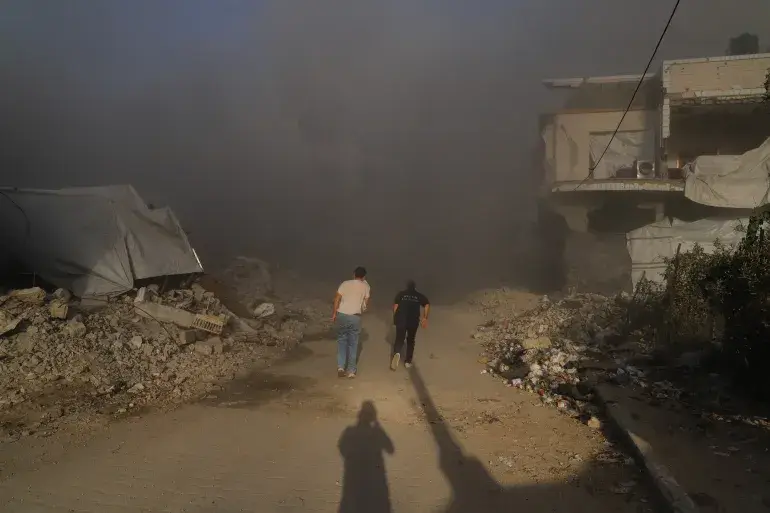
Intensification of Israeli Settler Attacks and Settlement Activities
- Between 8 and 14 July, OCHA documented at least 30 Israeli settler attacks against Palestinians that resulted in casualties, property damage, or both. These attacks led to the death of two Palestinians, one by settlers and one where it is unknown if he was killed by settlers or Israeli forces. Another 92 Palestinians were also injured during these attacks: 14 by Israeli forces and 78 by Israeli settlers. In addition, more than 450 olive, almond and apricot trees were vandalized. Key incidents included:
- On 9 July, a group of Israeli settlers, believed to be from Gitit settlement and a new nearby outpost, injured 19 Palestinian herders in Tell al Khashaba herding community, near Aqraba town, southeast of Nablus city. According to the municipality, about 100 settlers attacked the community after Israeli forces who were in the area, closed all the entrances to Aqraba town and the road to Tell al Khashaba community. The settlers opened fire and injured three Palestinians with live ammunition and physically assaulted and injured 16 others, including two children (boys aged 10 and 11 years). The settlers also stole about 500 sheep and shot and killed several others.
- On 11 July, Israeli settlers threw stones and injured a three-year-old Palestinian girl in the head during a raid on Um al Butum area of Sair village, in Hebron governorate. The settlers attacked residents as they gathered to celebrate a wedding.
- On 11 July, two Palestinians, including one who is a US citizen, were killed, and 58 others were injured during an attack by Israeli settlers on the outskirts of Sinjil and Al Mazra’a ash Sharqiya towns, in the northern Ramallah governorate. Palestinian farmers were working on their land when a group of Israeli settlers attacked them with stones and live ammunition and scuffled with them. The attack continued for several hours, during which the settlers vandalized an ambulance and obstructed its access. When Israeli forces arrived, they fired live ammunition and tear gas canisters, injuring 13 Palestinians due to tear gas inhalation. Israeli forces then escorted the settlers out of the area after Palestinians reported that two men were missing, including one who had been seen beaten by the settlers. The bodies of the two men were found by community members, including one who was found with gunshot wounds and it is unclear whether he was shot by the settlers or by Israeli forces; In addition, 45 Palestinians were injured by settlers, including 44 as a result of physical assault and one was run over by a vehicle, and two Israeli settlers were physically assaulted and injured by Palestinians. Most recently, in the same area, on 25 and 27 June, Israeli settlers physically assaulted and injured four Palestinians, and damaged agricultural structures, vandalized one vehicle and stole another, and caused damage to agricultural lands.
- On 13 July, Israeli settlers physically assaulted and injured three Palestinians during a raid on Um al Butum area in Sair village, in Hebron governorate. After midnight, hundreds of settlers stormed the village and, while Israeli forces were present at the entrance, they were unable to prevent the attack, according to the community. The settlers threw stones at homes, damaging the windows of eight homes, and set a vehicle on fire. Six solar panels, nine water tanks, the concrete foundation of an under-construction house, 2,200 seasonal vegetable plants and 27 almond trees were also damaged by settlers.
- In June 2025, Israeli settlers injured 100 Palestinians—the highest monthly figure recorded since OCHA began documenting casualties in 2005. This alarming rise continued into the first two weeks of July, during which settlers injured an additional 88 Palestinians, the majority of whom were physically assaulted. Half of these injuries (44 out of 88) occurred during a single settler attack in Sinjil town, in Ramallah governorate, on 11 July 2025, where two Palestinian man was killed and dozens of others were injured (see above). Since the beginning of 2025, two-thirds of Palestinians injured by Israeli settlers in attacks perpetrated by settlers (123 out of 184) have been concentrated in the northeastern part of the Ramallah governorate, particularly in Al Mazra’a ash Sharqiya, Deir Dibwan, Silwad, and Sinjil — towns situated near Road 60.
- On 8 July, Israeli settlers installed two mobile housing units on Palestinian land owned by the Islamic Waqf, situated along the borderline of the closed military zone of the H2 area in Jabal ar Rahma neighbourhood in Hebron city. The caravans were placed adjacent to a government school and Palestinian homes. On 13 July, the military installed a gate at the main entrance of the neighbourhood, used daily by approximately 100 people living there; as of today, the gate remains open. In addition, the gate and the caravans are expected to affect about 640 students and 35 staff at the school when the new academic year commences in mid-August.
- Between 1 June and 14 July 2025, Israeli settlers carried out multiple attacks targeting water springs and vital water infrastructure in the Ramallah, Salfit, and Nablus governorates.
- In Ein Samiya, where a Bedouin community was fully displaced due to settler violence in May 2024, in Ramallah governorate, settlers have infiltrated the water spring on a near-daily basis and vandalized infrastructure belonging to the Palestinian Water Authority on 27 June and on 6, 13 and 14 July. The incidents included the destruction and theft of surveillance cameras, removal of a signboard, cutting and theft of gate locks, and the damage to a water well unit. In the most severe incident, on 13 July, settlers reportedly stole the main gate, destroyed camera systems, cut data and electricity cables, and severed the connection between the well unit and the central monitoring system. The water supply to 20 villages (approximately 100,000 people) in the eastern Ramallah governorate was not disrupted due to rapid intervention by the Palestinian Water Authority, however the repeated attacks have significantly increased operational risks and the ability of staff to provide water-related services.
- In Farkha village in Salfit governorate, settlers reportedly from a newly established outpost bulldozed land on 6 June to construct a one-kilometre road connecting two outposts. The bulldozed land passes through Palestinian-owned agricultural land and leads to a key water spring used by residents for drinking and irrigation. According to the Village Council, settlers have repeatedly attempted to take over the spring and have restricted Palestinian farmers’ access to the surrounding land, affecting more than 1,900 residents in the village.
- In Majdal Bani Fadel village in Nablus governorate, settlers believed to be from an outpost near Migdalim settlement have carried out multiple acts of vandalism and obstructions affecting access to water and telecommunication. On 10 July, settlers bulldozed land and damaged the main water and telecommunication lines serving seven villages including, Majdal Bani Fadel, Duma, Qusra, Jurish, Talfit, Qaryut, and Jalud villages, resulting in widespread disruptions to water and telecommunication connectivity for six days between 10 and 16 July. The municipality reported that Israeli forces prevented repair teams from accessing the site, prolonging the outage, and affecting about 22,000 residents of these seven villages.
- On 13 and 14 July 2025, Israeli human rights organizations Ir Amim and Peace Now reported that Israeli authorities have resumed advancement of the long-stalled Israeli E1 settlement expansion plan, which aims to expand Ma’ale Adumim settlement and connect it to Jerusalem, after four years of suspension. The plan includes the construction of 3,412 settlement housing units over 2,100 dunams (513 acres) between East Jerusalem and Ma’ale Adumim settlement. Earlier in July, those who had previously submitted objections – including affected Palestinian communities and Israeli NGOs – were notified by the courts that the final hearing would take place on 22 July or 6 August. This development comes in parallel with broader Israeli measures advancing settlement expansion. In June 2025, Peace Now reported that the Israeli Security Cabinet had approved the establishment of 22 new settlements, bringing the total since 7 October 2023 to 49 and significantly exceeding the annual average of seven. Additionally, on 29 March, the Israeli Security Cabinet approved the construction of a road between Az Za’ayem and Al ‘Eizariya in the Jerusalem governorate, which is part of a wider network intended to divert Palestinian traffic between the central and southern West Bank away from Road 1 that links Jerusalem to Jericho via the area slated for the E1 settlement. The same area is planned to be encircled by the Barrier, approved by the Israeli Cabinet in 2006. The humanitarian community has long raised concerns that these measures would fragment the West Bank, severing the geographic contiguity between Jerusalem and the Jordan Valley and between the central and southern West Bank, and heighten the risk of forcible transfer facing 18 Palestinian Bedouin communities in the area. Since 2009, OCHA has documented the demolition of 504 structures, including 75 homes, in the 18 Bedouin communities in the area, resulting in the displacement of 929 people, including 518 children, some of whom were displaced more than once.
- Between January 2023 and mid-July 2025, at least 2,895 Palestinians from 69 communities across the West Bank – primarily herding and Bedouin communities – have been displaced due to a coercive environment driven by intensifying settler violence and access restrictions. Overall, 45 per cent of displaced families have been in the Ramallah governorate (1,309 out of 2,895), followed by Hebron, Bethlehem, Nablus, Tubas, Salfit, Jerusalem, and Jericho – in areas where Israeli settlers, believed to be from nearby outposts, have perpetrated attacks against surrounding Palestinians communities. Among the 636 displaced within this context so far in 2025, a third were in the Jordan Valley area (215 out of 636).
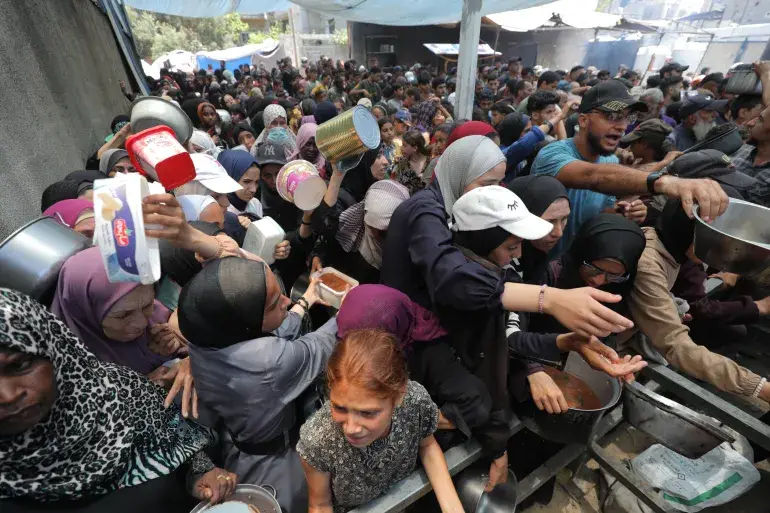
Funding
- As of 16 July 2025, Member States have disbursed approximately US$782 million out of the $4 billion (19 per cent) requested to meet the most critical humanitarian needs of three million out of 3.3 million people identified as requiring assistance in Gaza and the West Bank, including East Jerusalem, in 2025, under the 2025 Flash Appeal for the OPT. Nearly 88 per cent of the requested funds are for humanitarian response in Gaza, with just over 12 per cent for the West Bank. Moreover, during June 2025, the oPt Humanitarian Fund managed 122 ongoing projects, totalling $70.1 million, to address urgent needs in the Gaza Strip (87 per cent) and the West Bank (13 per cent). Of these projects, 58 are being implemented by international non-governmental organizations (INGOs), 48 by national NGOs and 16 by UN agencies. Notably, 42 out of the 74 projects implemented by INGOs or the UN are being implemented in collaboration with national NGOs. For more information, please see OCHA’s Financial Tracking Service webpage and the oPt HF webpage.
1585.


17 juli 2025
Humanitarian Situation Update #306
Gaza Strip
16 July 2025

Children fill drinking water that was desalinated using backup generators powered by fuel, a resource in critically short supply in Gaza. Photo by PRCS
Key Highlights
- Palestinians in Gaza continue to be killed amid ongoing reports of strikes on tents, schools and people seeking food, water, nutrition supplies, or other assistance; among them are children, journalists, medical workers, and humanitarian relief personnel.
- Despite limited entries, fuel availability is still critically low, threatening to force the shutdown of hospitals and ambulances, water and sanitation systems, bakeries and kitchens, telecommunication services, aid operations, and other lifesaving services.
- Current operational challenges are unsustainable, WFP warns, as the risk of famine persists, acute water diarrhoea and other diseases spread, garbage accumulates, and people are squeezed into less than 14 per cent of the Gaza Strip.
- Children continue to face a range of risks, including due to the collapse of civil systems and insecurity, that have left many without care, family reunification, or legal identity due to disrupted birth registration.
- Persons with disabilities and older persons experience severe denial of their basic rights to safety, protection, and autonomy while their coping capacities are steadily eroding amid growing barriers.
Humanitarian Developments
- Over the past week, Israeli forces have continued to carry out heavy bombardment from the air, land and sea across the Gaza Strip, issued additional displacement orders, and further expanded ground operations. Rocket fire by Palestinian armed groups into Israel and fighting with Israeli forces have also taken place. On 12 July, the Israeli military reinstated the ban on entry to the sea across the Gaza coast, prohibiting swimming and fishing activities. Between 11 and 15 July, the Israeli military issued two displacement orders for parts of North Gaza and Gaza governorates, covering 9.6 square kilometres. Since 18 March, the Israeli military has issued 55 displacement orders for 297.6 square kilometres (81 per cent of the Gaza Strip). According to the Site Management Cluster (SMC), more than 737,000 Palestinians in Gaza were newly displaced between 18 March and 15 July. This includes over 11,600 people displaced between 8 and 15 July. With no safe place to go, many people have sought refuge in overcrowded displacement sites, makeshift shelters, damaged buildings, streets and open areas. People have been confined to ever-shrinking spaces; as of 16 July, over 86 per cent of the Gaza Strip is within Israeli-militarized zones or placed under displacement orders (they largely overlap) since 18 March.
- According to the Ministry of Health (MoH) in Gaza, between 9 and 16 July, 648 Palestinians were killed, and 2,198 were injured. Between 7 October 2023 and 16 July 2025, the MoH in Gaza reported that at least 58,573 Palestinians were killed, and 139,607 Palestinians were injured. This includes 7,750 people killed and 27,566 injured since the re-escalation of hostilities on 18 March 2025, according to MoH. The Ministry said that the cumulative figure, since October 2023, includes 240 fatalities who were retroactively added on 14 July 2025 after their identification details were consolidated and approved by a ministerial committee. The MoH further noted that the number of casualties among people trying to access food supplies has increased to 851 fatalities and more than 5,634 injuries since 27 May 2025.
- On 16 July, the MoH in Gaza published a list of its records of 58,380 Palestinian fatalities in Gaza between 7 October 2023 and 15 July 2025, out of the total number of reported fatalities (see above). According to the list, 17,921 children (31 per cent), 9,497 women (16 per cent), 26,655 men (46 per cent) and 4,307 elderly persons (seven per cent) have been killed.
- Between 9 and 16 July, five Israeli soldiers were killed in Gaza, according to the Israeli military. Between 7 October 2023 and 16 July 2025, according to Israeli forces and official Israeli sources cited in the media, more than 1,649 Israelis and foreign nationals were killed, the majority on 7 October 2023 and its immediate aftermath. This includes 449 soldiers killed, in addition to 2,803 soldiers injured, in Gaza or along the border in Israel since the beginning of the ground operation in October 2023. As of 16 July, it is estimated that 50 Israelis and foreign nationals remain captive in Gaza, including hostages who have been declared dead and whose bodies are being withheld.
- Strikes on people sheltering in schools and tents, on people seeking food, water, nutrition supplies or other assistance, on medical and humanitarian relief personnel, and on journalists continue to be reported, resulting in mass casualties, including among children. Key incidents include the following:
- On 10 July, an airstrike hit a civilian area in Gaza in front of Project HOPE’s Altayara health clinic in Deir al Balah, where patients had gathered to “receive treatment for malnutrition, infections, chronic illnesses, and more.” According to the Executive Director of the UN Children’s Fund (UNICEF), the incident reportedly resulted in the killing of 15 Palestinians, including nine children and four women, and the injury of 30 others, including 19 children. She described the killing of families trying to access life-saving aid as “unconscionable,” adding: “This is the cruel reality confronting many in Gaza today after months of insufficient aid being allowed into the territory, and parties to the conflict failing to uphold basic responsibilities to protect civilians.” Three days later, on 13 July, 17 people, including at least seven children were reportedly killed and others were injured while queuing to receive water at a distribution point in An Nuseirat, in Deir al Balah.
- On 10 July, an airstrike struck the Orphans Department on the second floor of Human Appeal’s office in North Gaza, killing three staff members who were at their desks supporting vulnerable orphan care programmes. Three additional Human Appeal team members were injured and are receiving medical care. Human Appeal condemned this attack on humanitarian workers and civilian operations. On 16 July, the International Committee of the Red Cross (ICRC) reported that one of their staff members had been killed near his home around 4 July while attempting, along with relatives, to reach and assist an injured family member. Since 7 October 2023, at least 483 aid workers, including 326 UN staff, 48 Palestine Red Crescent Society (PRCS) staff, four ICRC staff and another 105 staff of humanitarian organizations, have been killed.
- On 10 July, a notified and coordinated rescue mission by ICRC and PRCS to evacuate a wounded ICRC staff member and his family came under attack while travelling in illuminated and clearly marked vehicles bearing the red cross and red crescent emblems. As a result, an ICRC staff member and a PRCS medic were injured with gunshots. ICRC expressed outrage at the numerous such incidents faced by both PRCS and ICRC over the past few months, emphasizing that medical and humanitarian relief personnel must never be attacked and that all “possible steps must be taken to search for, collect, and evacuate the wounded and provide them with the medical care they require.”
- Between 8 and 10 July, at least three schools sheltering internally displaced people (IDPs) were reportedly hit, including some that had already been struck in the previous week. The attacks resulted in the reported killing of 17 people, the injury of others, and the displacement of dozens of families. However, many have returned to some of the damaged schools due to the lack of alternative shelters. For example, on 9 July, at about 11:30, a school serving as an IDP shelter was hit in eastern Khan Younis, reportedly killing seven Palestinians, including five females, and injuring others. Moreover, on 10 July, at about 22:30, another school sheltering IDPs was hit in Jabalya, in North Gaza, reportedly killing eight Palestinians, including at least two women and several children, and injuring others. According to the Education Cluster, in addition to the physical damage, these incidents continue to perpetuate trauma and fear among children, preventing them from participating in learning opportunities, mental health and psychosocial support activities, and other structured play activities delivered in such spaces.
- On 11 July, 10 Palestinians were reportedly killed and 60 injured in the area of a militarized distribution site in northwestern Rafah, according to the UN Human Rights Office (OHCHR). On 12 July, the Red Cross Field Hospital in Rafah received 132 patients suffering from weapon-related injuries, of whom 31 were declared dead upon arrival or subsequently succumbed to their wounds and responsive patients reported that they were attempting to access food distribution sites. ICRC said that this was the largest influx of fatalities since the hospital began operations in May 2024 and that, since the establishment of the militarized distribution sites on 27 May 2025, the field hospital has treated over 3,400 weapon-wounded patients and recorded more than 250 fatalities. Between 27 May and 10 July at noon, OHCHR had recorded more than 634 Palestinians killed near militarized food distribution sites, where, amid starvation, large groups of civilians continue to seek food supplies and face lethal force, including shooting and shelling.
- On 11 and 13 July, three journalists were reported killed across Gaza Strip. On 10 July, a Palestinian journalist was killed and others injured in an airstrike near his house in An Nuseirat, in Deir al Balah. In another incident on 13 July, a journalist was reportedly shot and killed while checking on his house in Az Zaytoun neighbourhood, southeast of Gaza city. On the same day, a journalist, his pregnant wife, their adult son, and two daughters (children) were reportedly killed when an IDP tent was hit in Al Mawasi area, in northwestern Khan Younis. In June, according to the Palestinian Journalists Syndicate (PJS), seven journalists were killed in Gaza Strip and 16 others were injured.
- Over the past week, other incidents resulting in fatalities include the following:
- On 10 July, at about 2:10, five Palestinians were reportedly killed and others injured when a residential building was hit in Al Bureij Camp, in Deir al Balah.
- On 11 July, at about 22:30, at least six Palestinian males were reportedly killed when a petroleum station, where a displaced family was sheltering, was hit in Deir al Balah.
- On 11 July, at about 23:10, nine Palestinians, including four children, were reportedly killed and others injured when an IDP tent was hit in western Khan Younis.
- On 12 July at about 15:30, at least 15 Palestinians, including at least three women, were reportedly killed, while between 20 and 40 went missing under the rubble, when two residential buildings were hit in Jabalya an Nazla, in North Gaza.
- On 12 July, at about 14:49, seven Palestinians were reportedly killed and others injured when a home was hit in Az Zaytoun neighbourhood, southeast of Gaza city.
- On 13 July, at about 12:30, 17 Palestinians, including a surgeon, were reportedly killed and others injured when a market was hit in central Gaza city.
- On 14 July, at about 16:20, many people were trapped under the rubble when a five-storey residential building was hit south of Jabalya, in North Gaza. According to the Palestinian Civil Defense (PCD), rescue workers faced challenges in rescuing survivors and retrieving the dead from under the rubble, due to intense shelling and lack of a permit to access the area, amid many appeals to intervene to save the lives of survivors. On 15 July, at about 11:45, PCD announced that they reached the area following coordination to find that 14 people had died.
- On 14 July, at about 19:00, 12 Palestinians, mostly women and children, were reportedly killed and about 30 others injured when a residential building, sheltering IDPs was hit in Tal al Hawa, south of Gaza city.
- On 16 July, MoH stated that 21 people were killed, including 15 who died from suffocation due to gas firing and stampede at a militarized distribution site in southern Khan Younis. According to the Ministry, this was the first time whereby fatalities were recorded as a result of suffocation and stampedes at these sites.
- “The Israeli military continues to kill and gravely injure hundreds of Palestinians as they desperately seek the little shelter and food available, raising further concerns that Israel is inflicting on Palestinians conditions of life increasingly incompatible with their continued existence in Gaza,” stated OHCHR on 11 July. Among 21 attacks on tents sheltering displaced Palestinians that were documented by OHCHR on 8 and 9 July, nine were in the Al Mawasi area of Khan Younis, where families shelter in close quarters such that “any strike on them often results in the killing of entire families,” the Office added. OHCHR further highlighted the unlawful limitations on the entry of food and other items essential for the survival of the civilian population, the poor modes of operation at militarized distribution sites where people, mainly young men and boys, continue to be shot and killed, and the rising violence involving Palestinian armed groups and different criminal groups within a context of largely destroyed law enforcement and judicial systems. Regarding “reported plans by Israeli authorities to concentrate much of the population in a so-called ‘humanitarian city’ in Rafah,” OHCHR called on Israel to “refrain from taking any steps aimed at, or which may result in, the forcible transfer of the Palestinian population within Gaza or its deportation outside of the strip.”
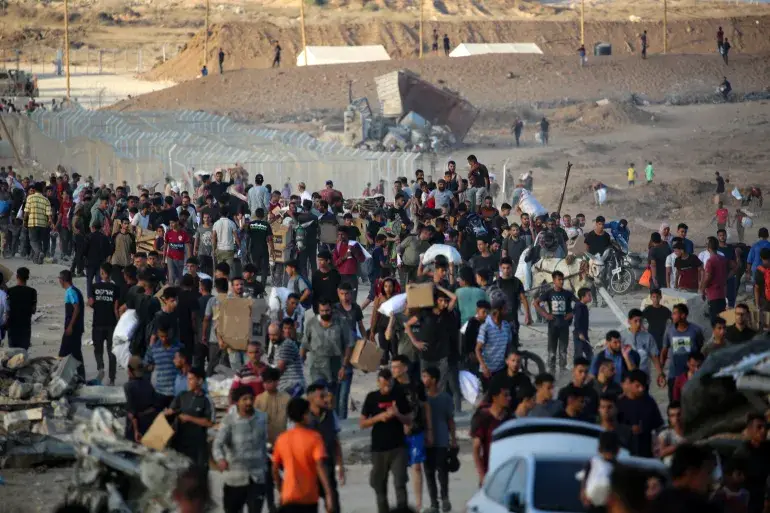
Mounting Challenges Facing Humanitarian Operations
- Since 9 July 2025, following 130 days of a full blockade on the entry of fuel, Israeli authorities have allowed the entry of two trucks of fuel per day, five days a week, through Kerem Shalom crossing. This amount is a fraction of what is required to run essential life-saving services in Gaza, where every aspect of life depends on fuel, from hospitals to water and sanitation systems, ambulances, humanitarian operations, telecommunications, bakeries and kitchens, and road transport. The Israeli authorities cut off electricity supply in October 2023 and have since only temporarily restored one electricity line that feeds the Southern Gaza Desalination Plant. In a joint statement on 12 July, OCHA, OHCHR, the UN Development Programme (UNDP), the UN Population Fund (UNFPA), UNICEF, the UN Office for Project Services (UNOPS), UNRWA, the World Food Programme (WFP) and the World Health Organization (WHO) said that the fuel shortage has reached critical levels that threaten the continued operation of all essential lifesaving services. “Without fuel, bakeries and community kitchens cannot operate. Water production and sanitation systems will shut down, leaving families without safe drinking water, while solid waste and sewage pile up in the streets. These conditions expose families to deadly disease outbreaks and push Gaza’s most vulnerable even closer to death,” the UN agencies added, warning that – without adequate fuel – they will likely be forced to stop their operations entirely.
- In vast areas across the Gaza Strip, humanitarian teams are required to coordinate their movements with the Israeli authorities. Between 9 and 15 July, out of 66 attempts to coordinate planned aid movements across the Gaza Strip, nearly 17 per cent were denied by Israeli authorities. An additional 33 per cent were initially accepted but faced impediments, including blocks or delays on the ground potentially resulting in missions being aborted or partially accomplished. Another 45 per cent were fully facilitated, and the remaining five per cent had to be withdrawn by the organizers for logistical, operational, or security reasons. All these include 28 attempts to coordinate aid movements in or to northern Gaza, of which 54 per cent (15) were facilitated, 11 per cent (three) were denied, 32 per cent (nine) faced impediments, and three per cent (one) were withdrawn. In southern Gaza, out of 38 attempts, 40 per cent (15) were facilitated, 21 per cent (eight) were denied, 34 per cent (13) faced impediments and five per cent (two) were withdrawn.
- A retrospective mortality survey of about 2,500 Médecins Sans Frontières (MSF) staff and their families in Gaza revealed that the mortality rate among them was 0.41 deaths per 10,000 per day, or five times higher than the MoH mortality rate estimates prior to 7 October 2023. More than two per cent of MSF staff and their families had died, including 74 per cent due to war injuries, of whom 98 per cent were from blast injuries. Of the deaths caused by blast injuries, 40 per cent were among children under the age of 10 and the overall mortality rates for children under five and neonates were, respectively, 10 and six times higher than pre-war levels. Among those diagnosed with a chronic illness, approximately two thirds experienced one or more interruptions in treatment since October 2023, with the longest interruption lasting 120 days. Only two per cent of staff had a house that remained untouched, 39 per cent had damaged homes, and 59 per cent had destroyed homes. Half of MSF staff families were forced to change their residence five or more times and 41 per cent lived in tents at the time of the survey. MSF clarified that the survey, which covered the period between October 2023 and March 2025 and was carried out between 29 January and 26 March, cannot be generalized to the whole population given that “medical staff and their families, including MSF, could be considered as having better access to healthcare than the rest of the people in Gaza.”
Deteriorating Food Insecurity and Malnutrition
- According to the Food Security Sector (FSS) and the Nutrition Cluster, partners reported a continued deterioration in food security across Gaza, with persistent famine risks and serious challenges in accessing available food supplies, particularly those who are the most vulnerable, due to limited aid entry and ongoing looting and militarized distributions. Families generally survive on a single nutritiously poor meal per day, and in some cases, people go entire days without eating. To survive, people are using coping strategies ranging from fasting to reducing meal size, rationing bread for children, borrowing, begging, and scavenging for food from garbage. Despite these efforts, families are increasingly unable to protect their most vulnerable members from the impacts of food deprivation. Alarmingly, many households reported that family members risked their lives trying to secure food from militarized distribution sites or humanitarian convoys, often without success.
- According to FSS, while cooked meal provision at community kitchens continues at a limited scale (about 240,000 to 250,000 meals daily on average), general food distribution remains paused as most humanitarian food cargo collection continues to be paused across the Strip. Most have been suspended in southern Gaza since 4 July as operational and access constraints, looting, and incidents of shooting at people waiting for aid convoys have put communities and partners' staff, drivers and assets at risk and led to civilian casualties. In the north, after a pause on 26 June, collection of food cargo from Zikim crossing resumed on 11 and 12 July. On 11 July, according to WFP, 20 trucks carrying food supplies departed from Zikim crossing, of which 11 were intercepted by desperate crowds while the remaining nine reached a WFP partner’s warehouse, which were distributed to approximately 8,500 people the following day. On 12 July, hungry people offloaded the food supplies on another 20 trucks that were travelling from Zikim crossing. Cargo collection has been paused again since 13 July. Warning that current operational challenges are unsustainable, WFP called on all parties to the conflict “to respect humanitarian operations, refrain from obstructing food convoys, and avoid dangerous interferences including shooting near convoys, and the presence of armed groups near or on aid convoys, to allow aid workers to deliver assistance safely.” WFP also urged “community members to maintain a safe distance from trucks to ensure orderly transport and distribution of food supplies.” FSS is currently working with various stakeholders to promote the safe and uninterrupted delivery of aid to distribution points by encouraging civilians not to approach convoy routes through enhanced community engagement and messaging.
- In a briefing to journalists about his latest visit to Gaza, WFP’s Deputy Executive Director and Chief Operating Officer, Carl Skau, stated that starvation is spreading in Gaza, with about 500,000 people in starvation. “I met many of those families who told me that there are days that their children are not eating at all and I heard mothers telling me how they're trying to have kids not play so that they don't draw more energy than they are able to provide them with through food,” Skau said. The WFP official noted that the fact that people are now dying every day trying to get food is “the starkest illustration of how desperate this situation is.” He added that after the full blockade was lifted [on 19 May], the amount of food that WFP has been able to bring into Gaza is just a fraction of what is required to meet needs, and this has driven up the prices of basic commodities. Describing the operating environment, he said that WFP teams are often stuck spending between 15 to 20 hours straight at checkpoints, fuel supplies and spare parts for vehicles are insufficient, and while there is enough food at the borders to feed the entire population for about two months, incoming supplies are not “enough to turn the tide of hunger.”
- MSF teams are witnessing a sharp and unprecedented rise in acute malnutrition among people in Gaza at two clinics, in Al Mawasi in southern Gaza and in Gaza city. More than 700 pregnant and breastfeeding women, and nearly 500 children with severe and moderate malnutrition, are currently enrolled in outpatient therapeutic feeding programmes at both clinics. Patient enrolment in the MSF Gaza city clinic almost quadrupled in under two months, from 293 cases in May to 983 cases at the beginning of July. Of this July cohort, 326 are children between six and 23 months. “This is the first time we have witnessed such a severe scale of malnutrition cases in Gaza,” said MSF deputy medical coordinator in Gaza.
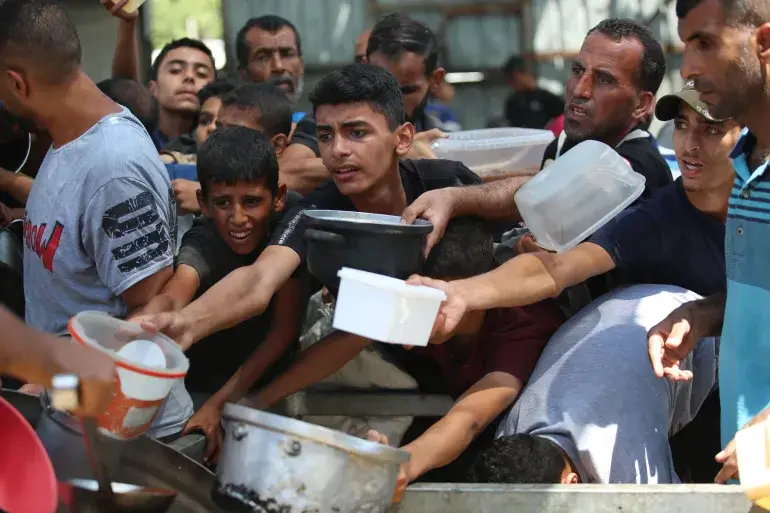
Deteriorating Food Insecurity and Malnutrition
- According to the Food Security Sector (FSS) and the Nutrition Cluster, partners reported a continued deterioration in food security across Gaza, with persistent famine risks and serious challenges in accessing available food supplies, particularly those who are the most vulnerable, due to limited aid entry and ongoing looting and militarized distributions. Families generally survive on a single nutritiously poor meal per day, and in some cases, people go entire days without eating. To survive, people are using coping strategies ranging from fasting to reducing meal size, rationing bread for children, borrowing, begging, and scavenging for food from garbage. Despite these efforts, families are increasingly unable to protect their most vulnerable members from the impacts of food deprivation. Alarmingly, many households reported that family members risked their lives trying to secure food from militarized distribution sites or humanitarian convoys, often without success.
- According to FSS, while cooked meal provision at community kitchens continues at a limited scale (about 240,000 to 250,000 meals daily on average), general food distribution remains paused as most humanitarian food cargo collection continues to be paused across the Strip. Most have been suspended in southern Gaza since 4 July as operational and access constraints, looting, and incidents of shooting at people waiting for aid convoys have put communities and partners' staff, drivers and assets at risk and led to civilian casualties. In the north, after a pause on 26 June, collection of food cargo from Zikim crossing resumed on 11 and 12 July. On 11 July, according to WFP, 20 trucks carrying food supplies departed from Zikim crossing, of which 11 were intercepted by desperate crowds while the remaining nine reached a WFP partner’s warehouse, which were distributed to approximately 8,500 people the following day. On 12 July, hungry people offloaded the food supplies on another 20 trucks that were travelling from Zikim crossing. Cargo collection has been paused again since 13 July. Warning that current operational challenges are unsustainable, WFP called on all parties to the conflict “to respect humanitarian operations, refrain from obstructing food convoys, and avoid dangerous interferences including shooting near convoys, and the presence of armed groups near or on aid convoys, to allow aid workers to deliver assistance safely.” WFP also urged “community members to maintain a safe distance from trucks to ensure orderly transport and distribution of food supplies.” FSS is currently working with various stakeholders to promote the safe and uninterrupted delivery of aid to distribution points by encouraging civilians not to approach convoy routes through enhanced community engagement and messaging.
- In a briefing to journalists about his latest visit to Gaza, WFP’s Deputy Executive Director and Chief Operating Officer, Carl Skau, stated that starvation is spreading in Gaza, with about 500,000 people in starvation. “I met many of those families who told me that there are days that their children are not eating at all and I heard mothers telling me how they're trying to have kids not play so that they don't draw more energy than they are able to provide them with through food,” Skau said. The WFP official noted that the fact that people are now dying every day trying to get food is “the starkest illustration of how desperate this situation is.” He added that after the full blockade was lifted [on 19 May], the amount of food that WFP has been able to bring into Gaza is just a fraction of what is required to meet needs, and this has driven up the prices of basic commodities. Describing the operating environment, he said that WFP teams are often stuck spending between 15 to 20 hours straight at checkpoints, fuel supplies and spare parts for vehicles are insufficient, and while there is enough food at the borders to feed the entire population for about two months, incoming supplies are not “enough to turn the tide of hunger.”
- MSF teams are witnessing a sharp and unprecedented rise in acute malnutrition among people in Gaza at two clinics, in Al Mawasi in southern Gaza and in Gaza city. More than 700 pregnant and breastfeeding women, and nearly 500 children with severe and moderate malnutrition, are currently enrolled in outpatient therapeutic feeding programmes at both clinics. Patient enrolment in the MSF Gaza city clinic almost quadrupled in under two months, from 293 cases in May to 983 cases at the beginning of July. Of this July cohort, 326 are children between six and 23 months. “This is the first time we have witnessed such a severe scale of malnutrition cases in Gaza,” said MSF deputy medical coordinator in Gaza.
Water and Sanitation Crisis
- Limited fuel supplies that entered Gaza in recent days remain deeply insufficient to operate water, sanitation and hygiene (WASH) facilities, with distribution and access challenges creating further bottlenecks, according to the WASH Cluster. Sanitation and wastewater management are at critical levels, with ongoing sewage overflow reported in Gaza city and southern areas.
- On 15 July, the Municipality of Gaza issued a warning about an imminent threat of overflow of the rainwater collection pond in the Sheikh Radwan neighbourhood. Infrastructure damage and fuel shortages have led to the inflow of untreated sewage into the Sheikh Radwan Lagoon, significantly increasing the risk of flooding, environmental contamination, and public health hazards. The water level in the pond has risen to approximately 6.10 metres, increasing by about 30 centimetres daily due to the continuous inflow of wastewater, which poses a significant threat to the lives of residents living near the pond. The municipality added that the operating hours of the pond’s drainage pumps have been reduced due to limited fuel supplies, further hindering the discharge of incoming wastewater and contributing to the rising water level.
Risks Facing Persons with Disabilities and Older Persons
- On 15 July, the Protection Cluster issued its Protection Analysis Update, focusing on the risks and barriers faced by persons with disabilities and older persons. According to the update, persons with disabilities, older persons, their families and caregivers are experiencing severe denial of their basic rights to safety, protection and autonomy, amid steadily eroding coping capacities to meet their needs. Repeated displacement has posed growing risks and challenges for persons with disabilities and older persons to access critical information, devices, services, and essential goods for their safety, dignity, and survival. Additionally, interrupted care and separation from caregivers through displacement is heightening mental health concerns and exposure to neglect, abuse, and exploitation. The update identified five key protection risks for persons with disabilities and older persons: attacks on civilians and civilian objects; discrimination and stigmatization, denial of resources, opportunities, services and/or humanitarian access; gender-based violence; psychological/emotional abuse or inflicted distress; and presence of explosive ordnance.
Challenges Facing Family Unification and Birth Registration
- According to Child Protection Area of Responsibility (AoR), unaccompanied and separated children (UASC) as well as those without parental care are among the most vulnerable groups in Gaza, facing heightened risks of neglect, exploitation, abuse, emotional distress, and social isolation. Separation from parents or primary caregivers – often due to death, detention, evacuation, or forced displacement – has devastating consequences on children's mental health and development. Conflict-related events, including the loss of family members, recurrent displacement and medical evacuations, are the key drivers for separation, with alarming reports of newborns separated at birth during hospital evacuations now living with substitute caregivers who may be injured, disabled or unable to provide adequate care. These separations compound both physical vulnerability and psychological trauma. Many UASC are now in the care of adults who themselves are facing health challenges or disabilities, placing both children and caregivers in fragile situations. Family reunification is a lifesaving priority, yet movement restrictions and security risks have severely limited the ability of families to reunite independently. UNICEF remains one of the few actors with capacity to facilitate reunifications, but delays and the denial of such missions by the Israeli authorities prolong separation and retraumatize children. At the same time, temporary alternative care is critically limited, with the only functioning care centre nearing full capacity and at risk of shutting down due to the lack of food, fuel, and basic services.
- The Child Protection AoR also reported that the ongoing escalation in Gaza and the collapse of key civilian infrastructure have severely disrupted the birth registration system, leaving thousands of children without official documentation (i.e. identification numbers or birth certificates). While some functionality remains and a limited number of registrations continue, the system is under extreme pressure. Hospitals have been destroyed, government offices are largely non-functional, and widespread displacement has made it extremely difficult for families to complete birth registration procedures. Child Protection partners estimate that about 10,000 newborns may not have been registered since 7 October 2023. This lack of official documentation strips children of their legal identity, which could limit their access to basic services, such as health care, education, and humanitarian aid. Unregistered children are also more vulnerable to exploitation and trafficking, as they effectively exist outside the protection of the law. While there is at present limited data on how the lack of birth registration has affected children’s access to services, this critical issue can have profound long-term implications if it remains unaddressed; unregistered children may grow up without any formal recognition of their existence, deepening cycles of marginalization and statelessness in an already fragile society.
Funding
- As of 16 July 2025, Member States have disbursed approximately US$782 million out of the $4 billion (19 per cent) requested to meet the most critical humanitarian needs of three million out of 3.3 million people identified as requiring assistance in Gaza and the West Bank, including East Jerusalem, in 2025, under the 2025 Flash Appeal for the OPT. Nearly 88 per cent of the requested funds are for humanitarian response in Gaza, with just over 12 per cent for the West Bank. Moreover, during June 2025, the oPt Humanitarian Fund managed 122 ongoing projects, totalling $70.1 million, to address urgent needs in the Gaza Strip (87 per cent) and the West Bank (13 per cent). Of these projects, 58 are being implemented by international non-governmental organizations (INGOs), 48 by national NGOs and 16 by UN agencies. Notably, 42 out of the 74 projects implemented by INGOs or the UN are being implemented in collaboration with national NGOs. For more information, please see OCHA’s Financial Tracking Service webpage and the oPt HF webpage.
1584.

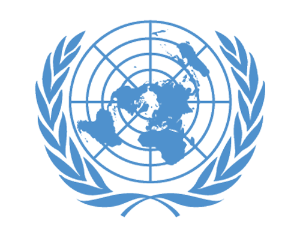
16 juli 2025
Security Council briefing by Tom Fletcher, Under-Secretary-General for Humanitarian Affairs, on the Middle East
New York, 17 July 2025
[AS DELIVERED]
Mr. President,
I want to remind this Council why we are briefing you today.
The General Assembly gave us a humanitarian mandate – in resolution 46/182 – and a set of principles that you as Member States have asked us to uphold: humanity, impartiality, neutrality and independence.
That means aid must go where needs are greatest and without discrimination. It means we answer to civilians in need, not the warring parties.
Our mandate is also to advocate for international humanitarian law – not just to report to you on what we witness, but so that you, this Council, can take action.
Even when those responsible would rather silence us.
Mr. President,
We are beyond vocabulary to describe conditions in Gaza. So let me instead share facts:
Food is running out. Those seeking it risk being shot. People are dying trying to feed their families. Field hospitals receive dead bodies, and medical workers hear stories firsthand from the injured. Day, after day, after day.
Starvation rates among children hit their highest levels in June, with over 5,800 girls and boys diagnosed as acutely malnourished.
Last week, amid this hunger crisis, children and women were killed in a strike while waiting for the food supplements to keep them alive.
And Hamas continue to hold hostages, and we have received reports of their attacks on aid workers.
The health system is shattered. Only 17 of 36 hospitals and 63 of 170 primary healthcare centres are functioning, all only partially, even as mass casualties arrive daily.
In some hospitals, five babies share one incubator. Seventy per cent of essential medicines are out of stock.
Half of all medical equipment has been damaged. Pregnant women give birth without medical care. Women and girls manage menstruation without basic sanitary supplies.
Water, sanitation systems are broken. Roughly four of every five of these facilities, including water points, are now located within militarized zones or areas under displacement orders – so, even if they are functional, they are out of reach for those who depend on them.
Mr. President,
The fuel crisis in Gaza remains at a critical threshold.
Last week, Israeli authorities agreed to allow two trucks of fuel to Gaza per day, five days a week, through the Kerem Shalom crossing, and we have some indication that approvals may increase slightly. We hope these will materialize.
This is the first time any fuel has been allowed to enter the Strip in 130 days, and still no petrol has been permitted, which fuels many ambulances and other critical services.
Two trucks provide a fraction of what’s required to run essential life-sustaining services.
And even when fuel is allowed in for humanitarian purposes, our access to storing and moving it to where it is needed is not guaranteed.
Mr. President,
Turning to the West Bank, there is continued loss of life and livelihoods, movement restrictions, growing displacement.
Over the weekend, two Palestinian youths were killed in a settler attack near Ramallah. One was beaten to death; another was fatally shot. Dozens were injured. And ambulances were blocked from reaching the wounded.
Settler violence is escalating at an alarming rate, and Palestinian communities are being displaced, injured and their property damaged.
Each day this year, the UN has documented an average of four incidents of settler violence against Palestinians and their property.
In June, 100 Palestinians were injured by Israeli settlers, the highest number in two decades.
Mr. President,
Gaza’s soaring humanitarian needs must be met without drawing people into a firing line.
Israel, as the occupying power, is obligated to ensure that people have food and medical supplies.
But that is not happening. Instead, civilians are exposed to death and injury, forcible displacement, stripped of dignity.
It is for you to draw your own conclusions. But surely, we do not need to debate whether killing civilians waiting in line for life’s essentials meets the responsibility to provide for civilian needs.
We are awaiting the outcome of Israel’s investigation into this, and earlier incidents. I hope that you will consider whether Israel’s rules of engagement incorporate all feasible precautions to avoid and minimize civilian harm in all circumstances.
This means, here as elsewhere, verifying targets, giving effective advance warnings, carefully choosing tactics and weapons, and canceling or suspending an attack if it would cause disproportionate civilian harm.
Mr. President,
Each time that we report on what we see, we face threats of further reduced access to the civilians we are trying to serve.
We face that tension everywhere, but nowhere is that tension between our advocacy mandate and delivering aid greater than in Gaza. Visas are not renewed or reduced in duration, explicitly in response to our work on protection of civilians. Security clearances are not granted for staff to enter Gaza to continue their work.
And humanitarian partners are increasingly denied entry to Gaza. In 2025, 56 per cent of the entries denied were for Emergency Medical Teams.
Of course, as you know, hundreds of aid workers have been killed; and those who continue to work endure hunger, danger and loss, like everyone else in the Gaza Strip.
Personal tragedies continue to echo through our teams and their families. This morning another ICRC colleague was killed.
I pay tribute to them all and to the courage of the work of UNICEF and other agencies inside Gaza.
Thousands, including many of our colleagues who are injured, are not able to leave to seek treatment.
Mr. President,
Let me walk you briefly through what it takes to deliver your aid – the aid you fund – into Gaza.
Something as simple as a bag of flour:
Before reaching the crossing into Gaza, it must clear multiple layers of approval, including customs involving several ministries.
Once approved, it is scanned, loaded onto Israeli trucks, and often re-inspected at Kerem Shalom.
From there, it is either moved by pre-approved Palestinian trucks up the fence road that runs along Gaza’s border or transferred to so-called sterile trucks which offload on the Palestinian side of the crossing and are picked up in different sized trucks from Gaza.
It’s why counting trucks is often misleading – because it’s not always a ratio of one-to-one.
Once inside Gaza, movement requires navigating an obstacle course of coordination with Israeli forces, through active hostilities, traveling on damaged roads, and often being forced to wait at holding points or pass through areas controlled by criminal gangs. And distribution is uncertain, as starving people often try to grab the flour off the back of our trucks.
With these obstacles in place, your generous contribution may never reach our distribution points. And even if it does, getting it at scale to those in need remains deeply uncertain.
And as I’ve said before, it doesn't have to be this way.
We have a plan that works. It requires predictable aid, of different types and at scale, entering multiple crossings where people do not come under fire, travelling on routes that we choose, without long delays, being delivered to our warehouses and distribution points according to established UN aid mechanisms and humanitarian principles – the principles that you have given us the mandate to uphold.
Mr. President,
Even as this broader plan remains stalled, and despite severe restrictions, thousands of colleagues on the ground – daily, at great personal risk – are still delivering life-saving aid.
Between 19th of May, when limited aid entry resumed, and the 14th of July, only 1,633 trucks – 62 per cent of the roughly 2,600 submitted to the Israeli authorities, 74 per cent of those approved for entry – reached Kerem Shalom and Zikim crossings.
They carried mainly wheat flour, alongside limited quantities of food for kitchens, nutrition supplies, medical supplies, chlorine. After multiple steps of cargo offloading and uploading on different vehicles, a total of 1,600 Palestinian trucks could be collected for distribution inside Gaza.
Last week alone, we had 21 Emergency Medical Teams deployed providing life-saving services and some relief to doctors in Gaza; 238 pallets of medical supplies entered, including 10 cold-chain pallets with 1,396 blood units and 1,550 plasma doses – enough for 10 days.
We supported 800 weekly medical consultations for women and girls, enabled 84 kitchens to serve 260,000 meals daily, and delivered 17,000 cubic metres of drinking water through 1,300 collection points. This is life-saving support provided with dignity.
But to be clear, it’s a drop in the ocean of what is needed, compared to the average of 630 truckloads that entered daily during the ceasefire.
The ceasefire proved what’s possible. And we need to return to those levels without delay.
Now, our work – the UN and its partners – is by no means perfect, but it is rooted in humanitarian principles, practices honed over decades of experience across the globe, steadfast commitment to saving lives. And we ask you again, please, let us work.
In this respect, I welcome the recent agreement between the European Union and Israel on humanitarian access. We look forward to hearing more of the detail, and to understanding how implementation will be assessed.
Mr. President,
Let me remind this Council that the International Court of Justice has demanded that Israel take immediate and effective measures to enable the provision of urgently needed basic services and humanitarian assistance.
With these facts before you, I ask you as a Council to assess whether Israel is meeting its international legal obligations and whether we humanitarians can fulfill our mandate.
Is this allowing and facilitating rapid, unimpeded passage of impartial humanitarian relief, as the rules of war demand? Or is it obstruction? You will draw your own conclusions.
Mr. President,
Weeks ago, an Israeli minister called allowing aid into Gaza a “disastrous decision,” while another implied that starvation might be “justified and moral” until hostages are freed – and they must be freed.
Intentionally using the starvation of civilians as a method of warfare would of course be a war crime.
Most recently, Israel’s Defense Minister talked openly about moving Palestinians into what he called a ‘humanitarian city.’
We understand that the proposal is to forcibly displace Palestinians to a designated zone near Rafah.
Now I don’t know how to describe this, but it is not humanitarian.
Mr. President,
States and armed groups must uphold the rules – forged because of the horrors of conflict and hatred – that protect civilians in war.
Today, across the world, we watch these rules being corroded and degraded.
Again, it is of course for you to decide how you act to ensure that all parties respect international humanitarian law.
But I agree with some members of the Israeli cabinet that you have consistently overestimated your powers of quiet persuasion.
We hold all parties to the standards of international law in this conflict. We don’t have to choose – and in fact, we must not choose – between demanding the end to the starvation of civilians in Gaza and demanding the unconditional release of all the hostages.
And we must reject antisemitism. We must fight it with every fiber of our DNA. But we must also hold Israel to the same principles and laws of all other states.
So civilians must be protected wherever they are. Hostages must be released – I say it again. Humanitarian aid must be allowed to enter at scale. And humanitarian workers must be protected.
You owe that to Israeli and Palestinian civilians, to the last hopes of a sustainable peace, and to the UN Charter.
All members of this Council have been unequivocal: ceasefire, ceasefire, ceasefire.
Thank you.
1583.


16 juli 2025
AMP Condemns Israel’s Violations of Syria’s Sovereignty With Bombings of Damascus and Suwayda As Syria Seeks To Rebuild
American Muslims for Palestine (AMP) condemns Israel’s illegal airstrikes in Syria, which have killed civilians and are contributing to the destabilization of Syria, following clashes in Suwayda. These attacks mark a flagrant violation of international law and an alarming expansion of Israel’s campaign of regional aggression.
Israel’s justification that it is protecting Syria’s Druze minority is both disingenuous and insulting. This is the same regime carrying out genocide in Gaza, where it is currently starving and killing Palestinians, while ethnically cleansing them for more than 75 years. The apartheid state has no moral authority to pose as a guardian of minority rights.

Despite being in a delicate situation, the Syrian state has the sovereign right to its territorial integrity and the responsibility to take the primary lead in pursuing reconciliation among its communities without foreign intervention. The recent ceasefire agreement reached between Syrian authorities and Druze leaders underscores this responsibility and is one that Israel’s airstrikes have directly undermined.
What Israel seeks is not to protect minorities but to fracture its neighbors along sectarian lines, destabilize countries, and maintain military dominance in the region. By bombing Damascus and Suwayda, Israel is not only seeking to escalate tensions between communities in Syria but is actively sabotaging Syrian efforts to restore peace and stability after years of civil war.
We are deeply alarmed by the crimes Israel is committing along the Syrian border, including its encouragement of Druze militias and its threats of further strikes unless Syrian troops withdraw.
AMP calls on the Trump administration to denounce Israel’s reckless violations of Syrian sovereignty and to prevent further U.S. complicity in destabilizing the Middle East and dragging this country into another war.
In solidarity,
American Muslims for Palestine
1582.


16 juli 2025
Join us on Saturday, September 13 in New York City for “Socialism in Our Time,” a one-day conference marking the 15th anniversary of Jacobin magazine.
Space is very limited — RSVP today

WHEN: Saturday, September 13 · 9:30 a.m. – 7:30 p.m. Doors at 8:30 a.m.
WHERE: The Church of the Village, 201 West 13th Street, New York, NY 10011
This all-day gathering will bring together organizers and scholars for a critical reckoning with the state of the socialist movement in the United States and beyond. Through a series of panels, we’ll take stock of what’s been built over the past 15 years and confront the challenges ahead for a renewed socialist theory and practice.
The program will span eight panels across four time blocks, covering topics like class dealignment, worker organizing, the limits of social democracy, and models of socialism beyond capitalism. Speakers include Bhaskar Sunkara, Adolph Reed, Meagan Day, Cedric Johnson, Aaron Benanav, Matt Karp, Sumaya Awad, and dozens of others. The day will culminate in a keynote address by Vivek Chibber advancing a renewed Marxist vision for class politics in the twenty-first century.
View the program and RSVP
Whether you’re a seasoned activist or newly politicized, this conference offers a space to reflect, strategize, and recommit to building a durable and democratic socialist movement.
1581.


16 juli 2025
Yesterday, more than 70 protestors – including current and former Google workers organizing with the No Tech for Apartheid campaign – took action at the UN Headquarters in New York to demand that the UN stop platforming big tech companies providing AI to the Israeli military for its genocide in Gaza.
The protestors were removed by UN security after officers attempted to coerce them into taking off their political clothing and profiled people with Arabic text written on their clothes. Despite these attempts to silence them, they remained and picketed outside the headquarters to demand: NO AI FOR GENOCIDE.
The actions of UN security reflect more troubling developments at the body tasked with holding nations accountable to protect the human rights of all peoples.
Earlier this month, United Nations Special Rapporteur Francesca Albanese released a report, exposing how technology companies have fueled Israel’s illegal occupation, apartheid regime, and its ongoing genocide against Palestinians in Gaza. The report concludes that AI, cloud and surveillance technologies provided by big tech corporations Alphabet (Google), Amazon, Microsoft, HP, IBM and Palantir are enabling Israel’s genocide in Gaza.
Despite the report, last week the United Nations hosted its annual AI for Good Summit in Geneva, honoring executives from across big tech, including those of companies named in the report. Through this event, the UN helped these companies sanitize their image and allowed them to evade responsibility for their complicity in the slaughtering of tens of thousands of Palestinians.
Tell UN leadership to stop platforming big tech companies complicit in Israel’s genocide and enact the recommendations of Albanese’s report.

Since the release of the report, UN Special Rapporteur Albanese has been sanctioned by the U.S. government for exposing the connections between AI, big tech, and the Israeli apartheid regime.
Instead of condemning this politically-motivated attack on their own legal expert, UN leadership have distanced themselves from Albanese and her findings – effectively protecting Israel from accountability and prioritizing the UN’s relationship with tech companies over their responsibility to uphold international law.
Tech workers from Google and Amazon have been organizing for years to end big tech’s complicity in Israel’s occupation of Palestine and genocide in Gaza, demanding accountability from their corporate executives.
Support the workers and community members who are putting their bodies and jobs on the line. Demand the UN stop platforming big tech companies aiding Israel in committing genocide in Gaza by writing UN leadership now.
Now more than ever, the UN must take decisive action to defend Albanese and the findings of her report. Tell them to lead by example and cut ties with corporations complicit in genocide and war.
With determination,
Audrey Bruner
Development & Digital Director
Adalah Justice Project
1580.


16 juli 2025
Displacement on a scale not seen since 1967.

While the genocide in Gaza rages, the Israeli military and Israeli settlers are not-so-quietly carrying out a massive, increasingly coordinated campaign of ethnic cleansing across the Occupied West Bank. Tens of thousands of Palestinians have been forced to flee their homes and entire towns have been emptied: mass displacement on a scale not seen in the West Bank since 1967.
But while the decimation of Gaza makes headlines in the U.S., the mainstream media has largely ignored skyrocketing Israeli violence and settlement expansion across the West Bank — obscuring that the two are deeply intertwined.
In this week’s Wire, we’ll break down a string of recent settler attacks and explain why violence in the West Bank is rising apace with Israel’s deepening genocide in Gaza...
The largest U.S. labor union is under attack. Show your support.

The National Education Association (NEA), the largest labor union in the U.S., voted this month to cut all ties with the ADL. They're already under attack by the anti-Palestinian lobby for their courageous stance.
Email now to let them know we have their back.
What we're doing: JVP-Seattle shuts down Palantir.

In Seattle this week, over 100 Jews and allies disrupted business as usual at the office of Palantir, one of the world's largest data mining companies, to demand that Washington state divest over $2 billion from genocide profiteers, including nearly $73.4 million from Palantir.
What we're reading: "Defending the indefensible"
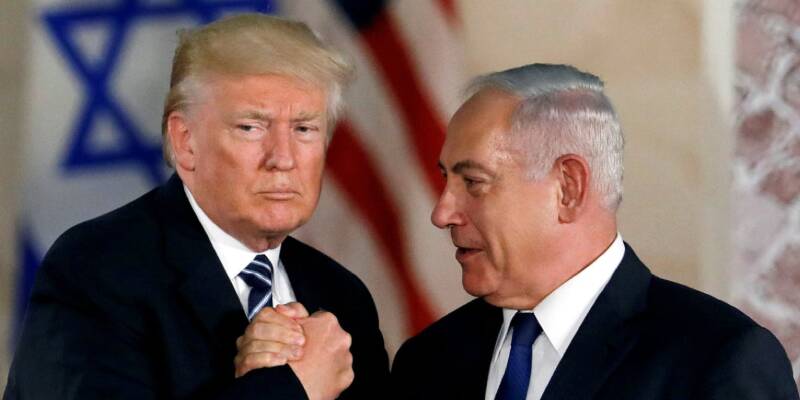
Alberto Toscano writes for In These Times: "By yoking themselves to a state that so enthusiastically celebrates its flouting of international law, Western governments have drastically undermined their moral legitimacy."
Power Half-Hours for Gaza.

Join us at Power Half-Hour Monday through Thursday as we take collective action to end U.S. complicity in Israeli genocide, apartheid, and occupation.
1579.

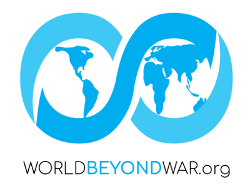
16 juli 2025
The rule of law is invoked more than ever—yet violated with growing impunity by governments, militaries, corporations, and political elites around the world. Rights are eroded. Justice is delayed. War is normalized, while peace is dismissed or declared unrealistic.
That is why we created War, Peace, and Law, an online course starting Monday, August 4, 2025.
Why this course matters
War is prohibited under the UN Charter and other international laws—yet it is escalating. Armed conflict, military buildup, and a global culture of violence continue to spread, fueled by a War System that defies the very norms it claims to uphold.
Peace is a right—but it is in decline. It remains fragile, violated by those who profess to protect it.
Law is a tool—and like any tool, it can be used for good or for harm. It can uphold systems of violence—or serve as a catalyst for positive change—depending on who defines it, how it is applied, and whether people are empowered to comply, challenge, or transform it.
Still, the promise of the rule of law endures. It can be reclaimed—demilitarized, democratized, and redirected toward peace, accountability, and structural change.
This course is an invitation to join that effort.
1578.


16 juli 2025
Today's headlines
Israel isn’t just killing Palestinians seeking food aid. It’s killing people waiting in line for water, too.
Tareq S. Hajjaj

On Sunday, Israel bombed a water distribution point in the central Gaza Strip, as dozens of civilians, mostly women and children, waited in line for water. Twelve people were killed, eight of them children. It was not the first time.
1577.

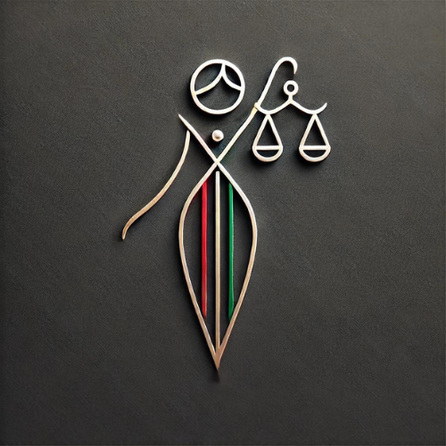
14 juli 2025

Israeli sniper Dani Adega, who bragged online about killing during a ceasefire in Gaza, is now walking freely in Lisbon. The Hind Rajab Foundation has filed a legal complaint in Portugal, led by human rights lawyer Carmo Afonso, calling for his immediate arrest. Adega served in a notorious IDF unit known for targeting civilians, and proudly posted images of himself armed and operating from inside Gaza's residential buildings. His presence in Europe is a test of Portugal's commitment to international justice. The message is clear: there will be no safe haven for war criminals.
Read the full press release below.
SUPPORT OUR WORK
Lisbon / Brussels – 14 July 2025
The Hind Rajab Foundation has filed a formal legal complaint in Portugal against Israeli sniper Dani Adonya Adega for his role in the Israeli genocidal campain in Gaza, which involved grave violations of international law, including targeted killings of civilians during a ceasefire and the appropriation of civilian property for military use.
The complaint was submitted by Portuguese human rights lawyer Carmo Afonso, and is based on extensive documentation gathered by the Foundation's legal and investigative teams over the past months.The Hind Rajab Foundation has verified Adega's presence in Lisbon, Portugal, where he was photographed and geolocated in July 2025.
Adega, a sniper affiliated with the 8114th Battalion of the Israeli army, served in Gaza under the 252nd Division, commanded by Brigadier General Yehuda Vach. This division has been widely condemned for establishing the Netzarim Corridor "kill zone", a deadly passage through central Gaza where civilians—many of them children—were systematically shot on sight by sniper teams and armored patrols.
Adega himself publicly boasted about lethal sniper activity, posting an image on social media with the caption:
"4 rounds, 0 misses 🎯🔥"
The post was made during a declared ceasefire in early 2025, at a time when Palestinian armed groups had suspended operations. During that ceasefire alone, over 170 Palestinian civilians were killed, with sniper fire accounting for many of the documented deaths. Adega's social media posts show him operating from inside civilian buildings in Gaza, smiling and posing in uniform while armed with a sniper rifle, often in destroyed residential areas.
"This is not only a matter of justice for Gaza—this is a test for Portugal," said a spokesperson for the Hind Rajab Foundation. "Adega is not hiding. He is walking freely in a European capital after boasting about sniper kills committed during a ceasefire. Portugal must act."
Under the principle of universal jurisdiction, Portugal has the legal authority—and obligation—to detain suspected war criminals found on its territory. The Hind Rajab Foundation is calling on Portuguese authorities to immediately arrest Dani Adonya Adega and initiate criminal proceedings in line with international law.
This complaint is part of the Foundation's broader campaign to hold Israeli military personnel accountable for war crimes and crimes against humanity committed during the 2023–2025 Gaza onslaught.
The Hind Rajab Foundation reiterates its unshakable commitment to pursuing all individuals involved in war crimes against the Palestinian people—wherever they may be, and regardless of rank or nationality. This case is not an isolated one. Our legal pipeline is full, with dozens of ongoing investigations and complaints being prepared for submission across multiple jurisdictions.
Impunity will no longer be the norm. Justice is coming.
1576.


13 juli 2025
Today's headlines
Gazan aid-seekers ‘sniped in the head’ at GHF distribution center, witnesses say
Tareq S. Hajjaj

Israeli forces carried out another massacre at an aid center in southern Gaza run by the Gaza Humanitarian Foundation. Witnesses described Israeli tanks shooting toward the crowds with machine guns and soldiers sniping aid-seekers in the head.
Film Review: ‘The Teacher’ offers a stirring look at resistance and resilience in the occupied West Bank
Benay Blend

While the world's attention is now focused on the genocide in Gaza, Farah Nabulsi’s film "The Teacher" offers a powerful story of resistance and resilience in the occupied West Bank.
1575.


12 juli 2025
Today's headlines
Gaza’s Nasser Hospital will turn into ‘silent graveyard’ if siege and fuel shortage persists, doctors say
Tareq S. Hajjaj

Nasser Hospital, the last medical center still operating in southern Gaza, is threatened with shutting down as the Israeli army tightens its siege on the area. The hospital warns that fuel shortages will turn the facility into a "silent graveyard."
As Trump and Netanyahu meet in Washington, Israel unveils a concentration camp in southern Gaza
Mitchell Plitnick
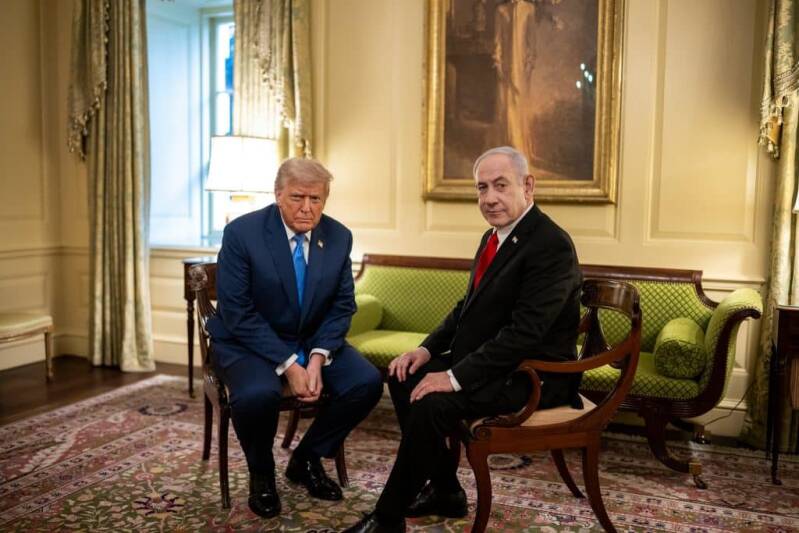
Benjamin Netanyahu visited Washington this week to meet with Trump administration officials following the countries' joint attack on Iran. The lack of transparency about what was actually discussed could be a very dangerous sign.
Israel’s plan to build Gaza ‘concentration camps’ was rolled out months ago
Qassam Muaddi
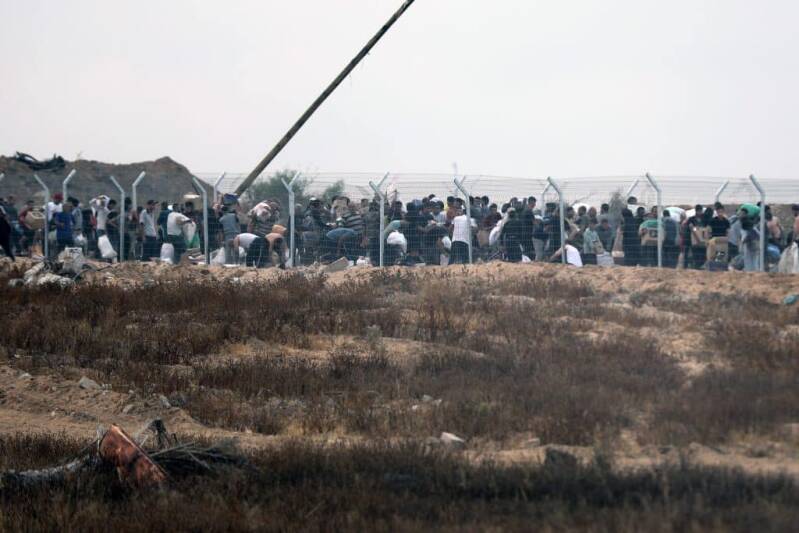
A recent announcement that Israel intends to "concentrate" Gaza's population into camps built on Rafah's ruins before forcibly displacing them has elicited widespread international condemnation. But Israel has already been rolling out this plan for months.
Mahmoud Khalil sues Trump for false imprisonment
Michael Arria

Mahmoud Khalil is seeking $20 million in damages from the Trump administration, alleging that he was falsely imprisoned. Khalil says he would use the funds to assist others targeted by Trump's crackdown.
1574.


12 juli 2025
The Business of Ethnic Cleansing
This week, the world saw even more clearly the brutal logic driving U.S. and Israeli policy in Gaza—and the moral clarity of the people who are rising to stop it.
Our top story, reported by Tareq Hajjaj, exposes how the U.S.-funded and run Gaza Humanitarian Foundation (GHF) is not a humanitarian project at all—it’s an instrument of control and displacement. Under the guise of aid, the GHF is building a parallel infrastructure of local collaborators and foreign mercenaries to distribute food under military guard. Palestinian organizations that refused to participate have been shut down. Civilians seeking aid have been fired upon or disappeared. These are not system failures. This is the system.
And now, thanks to investigative reporting from the Financial Times, we know that one of the world’s most powerful consulting firms—Boston Consulting Group—was at the center of it all. BCG didn’t just help design the GHF; they also created a financial model for a postwar Gaza where hundreds of thousands of Palestinians would be “relocated” with cash payouts. One scenario estimated $5 billion to push half a million Palestinians out of Gaza entirely, in what amounts to a spreadsheet for ethnic cleansing.
BCG claims they’ve disavowed this work and fired the partners and executives involved. But none of this could have happened without a political green light from the very top. Donald Trump suggested turning Gaza into a “Riviera” without Palestinians months ago. The GHF is part of that genocidal fantasy.
And yet, even as elite institutions lend their power to war and displacement, the global resistance to this violence continues to grow.
This week marks 20 years since the launch of the Boycott, Divestment and Sanctions (BDS) movement. In an interview with Mondoweiss, BDS co-founder Omar Barghouti reflects on the moral and strategic power of BDS as a nonviolent, grassroots response to Israeli apartheid and occupation. Just like the global campaign that helped end South African apartheid, the BDS movement is building pressure through people power. That’s why Israel—and its backers in Washington—are so desperate to criminalize it.
Here in the United States, we’re seeing how that desperation is backfiring. The National Education Association, the country’s largest teachers’ union, voted overwhelmingly this week to sever ties with the Anti-Defamation League. The NEA’s resolution makes clear that the ADL, despite its reputation, is not a partner in the fight for justice. This is a seismic shift in mainstream civil society—and a rebuke to those who have weaponized accusations of antisemitism to silence solidarity with Palestine.
Mahmoud Khalil, a former student leader and political prisoner detained by ICE, is suing the Trump administration for $20 million. His case is about more than one man’s unjust imprisonment—it is a direct challenge to the machinery of political repression being built to suppress Palestine advocacy in the U.S.
The common thread through all of these stories is this: Palestinians are being targeted not because they are weak, but because their struggle for liberation reveals the violence and hypocrisy of the powerful. And as that truth becomes harder to deny, more people—unions, journalists, students, teachers—are choosing to stand on the side of justice.
This week’s newsletter is full of stories that matter. Please read them, share them, and remember: this isn’t just about Gaza. It’s about whether we believe in freedom, justice, and dignity for all.
David Reed, Publisher
Must Read: This is how the U.S.-run GHF tried to build a local network of ‘aid collaborators’ in Gaza
Tareq Hajjaj: The Gaza Humanitarian Foundation has taken over the aid system in Gaza on behalf of the Israeli army by cultivating a local network of companies and organizations to collaborate in its operations. The organizations that refused have been shut down.
1573.

AVAAZ
12 juli 2025

De nominaties om Francesca Albanese een Nobelprijs voor de Vrede te geven, beginnen binnen te stromen. Intussen legt zij onverminderd de focus op de mensen die het grootste risico lopen: iedereen die in Gaza wordt belaagd.
Wij zijn met miljoenen mensen. Samen kunnen we dit moment gebruiken om te laten zien dat we aan haar kant staan en willen dat de meest prestigieuze prijs ter wereld naar haar en de artsen die actief zijn in Gaza gaat. Sluit je nu aan en deel dit met iedereen die je kent:
Zij heeft haar onafhankelijke platform gebruikt om op te staan voor anderen; laten wij nu opstaan voor haar. Door een symbolische daad te stellen en te laten zien hoeveel mensen ter wereld haar en de artsen de Nobelprijs voor de Vrede zouden gunnen, kunnen we een tegengewicht bieden voor de bedreigingen en intimidatie.
Sluit je aan om deze oproep oorverdovend te maken, dan zullen wij die overhandigen aan Albanese en de artsen, en verspreiden in de media:
Met hoopvolle groet,
Antonia, Ine, Marco, Huiting, Harriet en de rest van het Avaaz-team
- VS bestraffen VN-rapporteur Francesca Albanese met sancties vanwege haar felle kritiek op Israël (Volkskrant)
- Sancties VS tegen VN-rapporteur Albanese belediging van het internationale recht (Amnesty International)
- US issues sanctions against Francesca Albanese, UN official investigating abuses in Gaza (The Guardian)
- Rights defenders denounce US sanctions on UN expert on Palestinians (Reuters)
- Ó Ríordáin nominates Francesca Albanese for the Nobel Peace Prize with S&D colleagues (Labour - Ireland)
1572.


12 juli 2025
US citizen brutally beaten to death in West Bank town of Sinjil
Nearly 1,000 Palestinians have been murdered in the West Bank since October 2023. That’s a slight window into the horror of daily life under a violent apartheid regime. Settlers, backed by the Israeli military and U.S. political and financial support, kill with impunity.
Just today, they murdered two more Palestinians (including one with American citizenship). 20-year-old Saif Musallet was brutally beaten to death by Israeli settlers in the town of Sinjil, and hours later, Mohammed al-Shalabi was shot in the chest and left to bleed for hours in cold blood. Their crime? Protesting the establishment of yet another illegal outpost on Palestinian land. This is part of a broader strategy to seize land in phases and expand illegal settlements. It’s a coordinated ethnic cleansing, point blank, and it’s being rolled out and broadcast in real time to the entire world.

America’s complicity runs deep. U.S.-based nonprofits funnel millions of dollars (with tax-exempt status) to Israeli settler organizations building illegal outposts and arming extremists. These groups are directly funding the displacement and terrorization of Palestinian communities, all while breaking tax laws and receiving full legal shelter from the U.S. government. And while this is happening, the U.S. is actively targeting nonprofits that fight back - those working to expose and end apartheid - sending an unmistakable message: funding ethnic cleansing is tolerated, but fighting for justice is a punishable offense.
Saif and Mohammed were both so young. They had entire lives ahead of them, families who loved them, friends who will never stop mourning them, futures stolen in an instant simply for daring to protest their own dispossession. One of them held a U.S. passport, so we ask: will Trump demand justice for him the way he did for Edan Alexander? Will he uphold his “America First” promise when it’s a Palestinian-American whose life was taken? Or will he once again bow his head to Israel, no matter the cost in blood?
Saif and Mohammed are not the first, and they won’t be the last, until Israel is finally held accountable.
And let’s be unequivocally clear: whether a Palestinian holds American citizenship or not, every single murder committed by this regime must be explicitly prohibited, punished, and condemned. Human life is not negotiable merely because the victim is Palestinian, and American citizenship is not a condition for justice.
Palestinians have every right to defy their occupier. Every right to protest the theft of their land without being murdered or imprisoned for it. The West Bank, Gaza, and all of historic Palestine are not Israel’s to steal. Every outpost built is illegal. Every Palestinian life taken is a life stolen with full U.S. backing.
There is no neutral stance here. Continuing to fund and arm Israel while pretending to care about Palestinian lives is cowardice. It’s beyond complicity and partnership. We demand an immediate halt to all military aid, full sanctions on the Israeli government, and real accountability for the crimes being carried out with our tax dollars. This is the bare minimum. Anything less is a betrayal of justice and of the so-called “peace” this administration keeps preaching while enabling mass murder.
AMP has been advocating for settler accountability for years, calling out this violence long before it made headlines. Last year, after relentless pressure, the Biden administration finally sanctioned a handful of settler groups. It was a small but significant step. We won’t stop until full accountability is delivered; until every settler, every official, and every backer of this apartheid regime is held responsible.
In solidarity,
American Muslims for Palestine
1571.


11 juli 2025
Northern West Bank Humanitarian Response Update
21 January - 30 April 2025

Action Against Hunger (ACF) delivering and distributing 500 food parcels in cooperation with UNRWA to internally displaced people in Jenin, 3 February 2025. © Photo by Action Against Hunger.
Overview
Just after the Gaza ceasefire came into effect on 19 January 2025, Israeli forces launched on 21 January a major militarized operation in the West Bank, dubbed “Iron Wall”. The operation began in Jenin, but soon expanded across the northern West Bank, with the refugee camps of Jenin, Tulkarm and Nur Shams being at the centre of operations. Since its start, the operation has entailed helicopter gunfire, airstrikes, ground force operations and the deployment of tanks for the first time since the early 2000s. Tens of thousands of camp residents have been forcibly displaced and UNRWA has been forced to fully suspend services. In Tubas governorate, an operation was carried out between 2 and 12 February and was concentrated in Tammun town and El Fara’a refugee camp.
Of the 126 Palestinians, including 23 children and five women, killed by Israeli forces in the West Bank between 21 January and 30 June, nearly 60 per cent (74) took place in Jenin (41), Tubas (20), and Tulkarm (13) governorates. These included 12 children and three women. The majority (53) of people were killed in the first 40 days of the operation, 23 of whom were killed in airstrikes.
Overall, and for more than five months, the Israeli forces’ operation has generated what has become the longest and largest displacement crisis in the West Bank since 1967. By 10 February, UNRWA estimated that operations had displaced over 40,000 Palestine refugees from the camps and surrounding areas, including several thousand residents displaced during the earlier operation by Palestinian forces in and around Jenin and the rest during the Israeli forces’ operation. Displaced families have sought shelter in nearby cities, towns and villages, with over half renting temporary accommodation, 30 per cent staying with relatives and 20 per cent taking refuge in public shelters or seeking other temporary accommodation options. While verification of the number of displaced people remains ongoing, as of the end of May, UNRWA-verified displacement figures, based on self-registration of displaced families, indicates that at least 29,338 Palestine refugees have been displaced from the three refugee camps.
Israeli forces have established military posts in the Jenin, Tulkarm and Nur Shams camps and continued to carry out major bulldozing of housing units and other civilian infrastructure, including roads, water and stormwater infrastructure and telecommunications networks. Beyond the refugee camps, extensive damage was reported in surrounding areas, including in Jenin and Tulkarm cities. Despite limited access to assess the full extent of damage within the camps, municipal reports suggest that the ongoing operations in Jenin and Tulkarm have so far destroyed all functioning or recently repaired water and sewage infrastructure across the refugee camps and some of the surrounding urban areas.
In addition to barring access to the camps, Israeli forces have intensified movement restrictions, including through road closures and checkpoints. This has significantly disrupted access to schools, health centres, workplaces and markets, further heightened humanitarian needs, and posed additional challenges to humanitarian operations.
On 23 February, the Israeli Ministry of Defence announced that he had instructed the Israeli military to prepare for a “long stay” for the coming year in the three northern West Bank refugee camps that were emptied and that residents would not be allowed to return. To date, the Israeli military has issued demolition orders against 162 structures in Jenin camp and 241 structures in Tulkarm and Nur Shams camps, while notifying residents via the Palestinian District Liaison Offices to coordinate the evacuation of belongings from their homes ahead of their demolition. Dozens of homes have already been demolished, but not all were slated for demolition in advance nor were their residents allowed to retrieve their belongings. Access constraints have prevented aid agencies from carrying out needed assessments inside the camps.
In response to the crisis, and despite significant operational challenges, the UN and its partners have scaled up humanitarian assistance across the northern West Bank to ensure that displaced and affected families from refugee camps and surrounding areas have adequate access to shelter, food, health, protection, nutrition, education and WASH services. These interventions were guided by multi-sectoral and sector-specific needs assessments, in close coordination with local and national-level institutions to ensure complementarity and avoid duplication.
This update by Clusters and select Technical Working Groups operating in the Occupied Palestinian Territory (OPT) covers key response activities and challenges in the northern West Bank, focusing on Jenin, Tulkarm and Tubas governorates for the period between January and April 2025, unless otherwise specified. For an overview of priority needs and activities by cluster, please see the Flash Appeal.
>93,000 people reached with food parcels, hot meals, and cash- or voucher-based assistance.
27,000 people reached with emergency water trucking and hygiene kits.
12,000 people reached by sexual and reproductive health and maternal health interventions.
656 families received cash for nutrition, alongside nutrition counselling and growth monitoring.
36,000 people reached with psychological first aid.
~10,000 people reached with gender-based violence services, including case management.
>7,900 children reached with case management, rehabilitation, and other child protection services.
>9,300 displaced children reached with learning, recreational, and stationary kits. Accelerated remote learning launched by UNRWA.
3,960 displaced children reached with learning, recreational, and stationary kits. Accelerated remote learning launched by UNRWA.
>7,600 households received the first round of multi-purpose cash assistance.
1570.


11 juli 2025
Reminder: the 24-hour Peace Wave starts soon. Watch on Zoom.
Next week on Monday, July 14, join us for a Global Day of Media Action to #CloseBases! On the 14th, we'll be releasing a new global report about the devastating impact of military bases worldwide. We're asking you to join us on Zoom for an "actionar" to take coordinated online action together to amplify the Close Bases message through social media and writing letters to the editor.
The event details are below. Sign up and share this action opportunity with your networks!

How It Works:
On July 14, join us for a Zoom "actionar" to take coordinated action together to simultaneously post on social media and submit letters to the editor to local newspapers to amplify the #CloseBases message worldwide. We’ll provide you with templates and assistance in real time. We’ll also hear updates from leaders of anti-bases movements around the world, such as activists in California protesting the flow of weapons from Travis Air Force Base to Israel.
We’re hosting the online day of action at 2 times on Monday, July 14 to make it accessible to the most time zones: 10:00am ET and 8:00pm ET. Register for the time that works best for you!
Military bases fuel the war machine, heightening tensions and provoking war-making. Bases occupy stolen Indigenous lands, cause massive environmental damage, and cost billions of dollars a year. And bases make locations into targets for attack. If we are serious about stopping all wars, we need to shut down the military base infrastructure that facilitates war-making. Join us for the July 14 coordinated day of online action!
Towards peace,
Greta Zarro
Organizing Director
World BEYOND War
greta@worldbeyondwar.org
1569.


11 juli 2025
Het is als een val in een peilloze diepte. Ondanks alle vormen van sadisme die in Gaza zijn getoond, blijkt de bodem nog niet in zicht. Tekenend daarvoor is het deze week door de Israëlische minister van Defensie Israel Katz gepresenteerde plan voor een ‘humanitaire stad’, een eufemisme voor een gigantisch concentratiekamp op de ruïnes van de stad Rafah.
Israël wil in Rafah om te beginnen 600.000 Palestijnen opsluiten. Later komt daar de rest van de bevolking van Gaza – circa anderhalf miljoen Palestijnen – bij. Wie eenmaal binnen is, mag niet meer naar buiten – behalve om Gaza ‘vrijwillig’ te verlaten en niet meer terug te keren.
Maandag beschreef persbureau Reuters nog een ander plan. Daarin gaat het over de bouw van ‘humanitaire doorgangsgebieden’ binnen en buiten Gaza, waar de Palestijnse bevolking ‘tijdelijk kan verblijven, deradicaliseren, reïntegreren en zich voorbereiden op verhuizing naar elders als men dat wenst’.

Een team van de burgerbescherming in Gaza voert een zoek- en reddingsoperatie uit na Israëlische aanvallen in de wijk Sheikh Radwan in Gaza Stad, op 6 juli 2025. [c] IMAGO / Omar Ashtawy / apaimages
Experimenten
Het zijn stuk voor stuk angstaanjagende experimenten op een intussen compleet kapotgemaakte en getraumatiseerde bevolking. Experimenten die herinneren aan de zwartste bladzijden van de geschiedenis en die we beloofden ‘nooit meer’ te tolereren. Dat was een valse belofte, is nu duidelijk.
Voormalig premier Mark Rutte waarschuwde zijn Israëlische ambtgenoot Benjamin Netanyahu in februari 2024 om de stad Rafah niet binnen te vallen. Een Israëlische aanval op Rafah werd door Rutte ‘een game changer met grote politieke gevolgen’ genoemd, doelend op Nederlandse sancties.
Maar toen Israël Rafah in mei 2024 toch aanviel, zweeg Rutte en bleven sancties uit. Nu is de stad van de kaart geveegd en verrijst op zijn ruïnes een concentratiekamp.
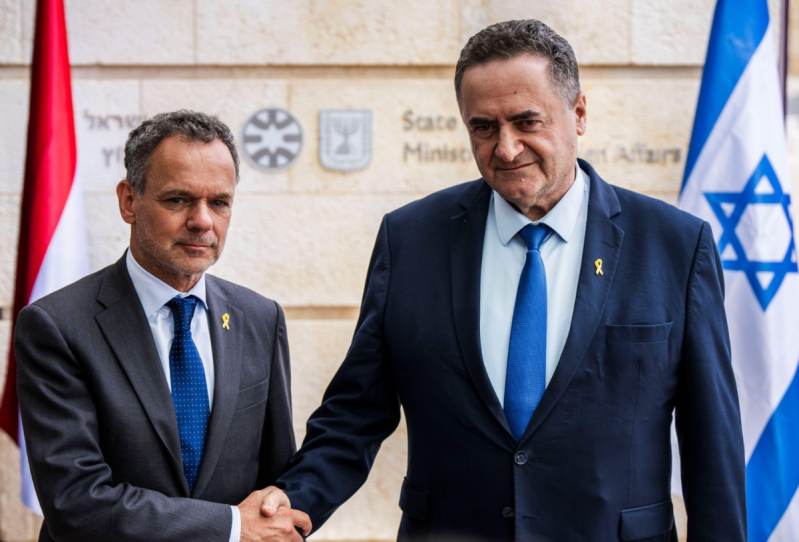
Minister Caspar Veldkamp van Buitenlandse Zaken tijdens zijn ontmoeting met de Israëlische minister Israel Katz in september 2024. Deze week presenteerde Katz een plan voor de bouw van een concentratiekamp in Gaza. © ANP / Alamy
Gekmakend
Het is gekmakend hoe de ene na de andere rode lijn kan worden overschreden, zelfs al dringen de beelden van verwoesting dagelijks onze huiskamers binnen. Op 18 mei en 15 juni trokken respectievelijk 100.000 en 150.000 Nederlanders een Rode Lijn in Den Haag. Hun boodschap: het Nederlandse kabinet moet Israël dwingen om zijn genocide in Gaza te staken en onbelemmerde toegang van humanitaire hulp door bekwame organisaties toe te staan.
‘We horen jullie’, reageerde demissionair premier Dick Schoof daarop op X. Maar opnieuw bleven politieke gevolgen – sancties tegen Israël – uit en gaat de vernietiging van Gaza en zijn inwoners een volgend dieptepunt tegemoet.
Genocide bleek voor Rutte geen rode lijn. Nu moet blijken of concentratiekampen dat voor Schoof wél zijn.

Word mede-eiser | Stop de bezetting van Palestina
De Israëlische bezetting van Palestina is illegaal en moet uiterlijk 18 september 2025 zijn beëindigd.
Dat had allang moeten gebeuren en is nu ook de eis van het Internationaal Gerechtshof en de Verenigde Naties. Alles wat de bezetting in stand houdt, is in strijd met het recht.
Toch gaat Nederland door met (wapen)handel en diplomatieke steun aan Israël. Nederland is daarmee medeverantwoordelijk voor zeer ernstige mensenrechtenschendingen.
Wij eisen – net als het Internationaal Gerechtshof – dat Nederland onmiddellijk stopt met steun aan de Israëlische bezetting en Palestina erkent als staat.
Ik word mede-eiser!
Amerikaanse sancties tegen Francesca Albanese: Nederland moet nú ingrijpen
De Verenigde Staten hebben sancties opgelegd aan Francesca Albanese, speciaal VN-rapporteur voor de bezette Palestijnse gebieden. Dat gebeurde op basis van dezelfde executive order waarmee de VS eerder rechters en de hoofdaanklager van het Internationaal Strafhof bestrafte vanwege hun werk rond mogelijke oorlogsmisdaden in Palestina en Afghanistan.
Nieuw rapport
De sancties komen een week na het verschijnen van Albaneses nieuwste rapport over de grootschalige mensenrechtenschendingen van Israël. Daarin zet ze uiteen hoe internationale bedrijven – waaronder de Amerikaanse techgiganten Google, Amazon en Microsoft – grof geld verdienen aan de Israëlische bezetting en de genocide in Gaza. Dat maakt deze bedrijven medeplichtig, stelt het rapport, waardoor ze strafrechtelijk vervolgd kunnen worden.

Francesca Albanese tijdens de Dries van Agt-lezing op 12 februari 2025. © The Rights Forum / Mona van den Berg
Nederland kan niet langer zwijgen
Wil Nederland als gastland van het Internationaal Strafhof nog iets van zijn geloofwaardigheid behouden, dan moet het nú publiekelijk afstand nemen van de sancties tegen Francesca Albanese.
Daarnaast moet er een onmiddellijk (strafrechtelijk) onderzoek komen naar de systematische en directe buitenlandse inmenging die Nederlandse burgers en medewerkers van het Strafhof in gevaar brengt. The Rights Forum roept daar met deze petitie al langer toe op.
Campagne
In antwoord op de sancties tegen Albanese is een petitie opgezet om haar te nomineren voor de Nobelprijs voor de Vrede. Albanese's reactie daarop is kenmerkend voor haar doelgerichte en onaflatende inzet voor de rechten van de Palestijnen: 'Please friends there is no need. Let's not get distracted. Let's use this moment to stop the genocide.'
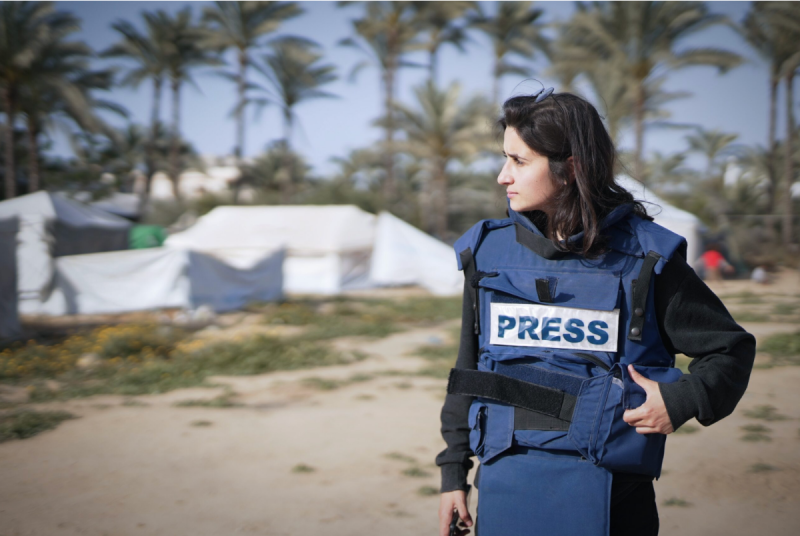
Journalist Rita Baroud vluchtte uit Gaza. ‘Zelfs vreugde is een vorm van verraad’
Na 570 dagen geweld kon journalist Rita Baroud Gaza ontvluchten, maar in Marseille kan ze geen vreugde voelen. Ze schrijft, spreekt, vertelt verhalen. ‘Ik kan schreeuwen met hún stem.’ Op onze website verscheen deze week een artikel van haar hand, dat eerder in de NRC werd gepubliceerd.
'In de kamer, bij het raam met uitzicht op weidse groene velden, probeer ik mezelf ervan te overtuigen dat ik veilig ben. Hier is geen puin, zijn geen brokstukken, geen geluid van explosies, geen stof van de dood dat in de lucht hangt.
'Het veld baadt in zacht zonlicht, stil, ordelijk. Alsof het niet weet dat de wereld in brand staat. Maar ik kijk ernaar met ogen die vernietiging hebben gezien. Het groen herinnert me aan het land dat verschroeid werd, de straten die in begraafplaatsen veranderden en de huizen die op hun bewoners neerstortten zonder dat zij afscheid konden nemen.'
Lees ook:
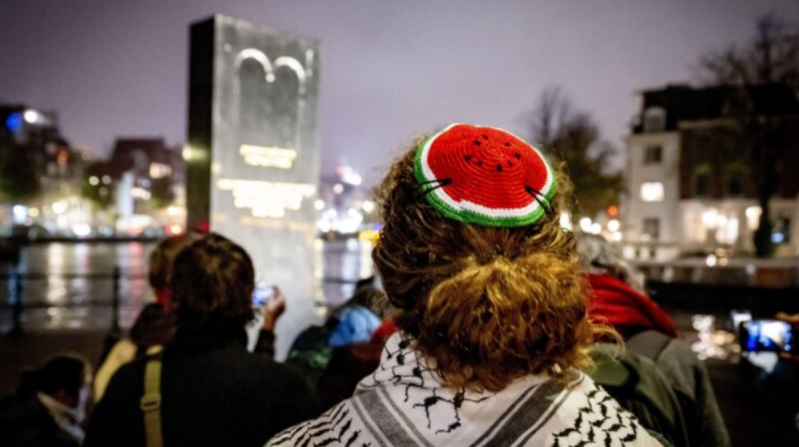

Opinie | Israël-kritische Joden uitsluiten is óók antisemitisme
Een zorgvuldig gesprek over antisemitisme is broodnodig. Juist daarom moeten we kritiek op Israël niet onder Jodenhaat scharen. En laten we vooral ook het institutionele antisemitisme in Nederland erkennen, schrijft Berber van der Woude, bestuursvoorzitter van The Rights Forum.
Opinie | Wij gaan door met het bepleiten van een rode lijn: stop, tot hier en niet verder!
Op de NAVO-top vorige maand stond Gaza niet op de agenda, evenmin als Israëls schendingen van het internationaal recht. Maar Nederlandse burgers blijven hun stem verheffen, aldus Jan Pronk, Raad van Advies-lid van The Rights Forum.
Uit onze agenda
zaterdag 12 juli t/m zaterdag 19 juli
Demonstraties en wakes
• Stil protest van gate48 - de organisatie van kritische Israëli's in Nederland op zondag 13 juli in Amsterdam, 't Spui (17.00 uur)
• Wake op zondag 13 juli in Haarlem, Grote Markt (14.00 uur)
• Actiebijeenkomst 'Albert Heijn apartheidvrij' op zondag 13 juli in Utrecht, locatie volgt na inschrijving (13.30 uur)
• Stilteprotest voor Palestina op maandag 14 juli in Utrecht, Neude, langs het fietspad (08.30 uur)
• Sit-in rijksambtenaren op donderdag 17 juli in Den Haag, Ministerie van Buitenlandse Zaken, Rijnstraat 8 (12.00 uur)
• Wekelijks protest van Achterhoek 4 Palestine op vrijdag 18 juli in Doetinchem, voor het gemeentehuis (10.00 uur)
• Wake voor Palestina op zaterdag 19 juli in Den Bosch, Burgemeester Loeffplein (12.00 uur)
• Wake op zaterdag 19 juli in Groningen, Waagplein (13.00 uur)
Culturele evenementen
• Palestine Café: de staat van de gezondheidszorg in Palestina en de rol van het Israëlische farmaceutische bedrijf Teva op zondag 13 juli in Amsterdam, Cinetol, Tolstraat 182 (13.30 uur)
• Mandela Day voor Palestina, met veel interessante sprekers, onder wie Mpho Tutu de dochter van Desmond Tutu, comedian Shariff Nasr en Esther van Plant een Olijfboom op vrijdag 18 juli in Amsterdam, Mandelahuisje, Sixhavenweg 27 (15.00 uur)
1568.


11 juli 2025
The U.S. Just Rolled Out the Red Carpet for a Genocidaire, Yet Again. What Are You Going to Do About It?
This week, Benjamin Netanyahu, the architect of Israel’s genocide in Gaza, was welcomed in Washington with open arms. Despite being internationally recognized as a war criminal, the U.S. is not only hosting him but is also scrambling to meet his weapon demands.
Senators from both sides of the aisle (even while on recess) made the time to be in D.C. to meet with him. The message is loud and clear: when it comes to the apartheid state, there is no atrocity too horrific, no law too sacred, that will stop our government from arming Israel to the teeth.
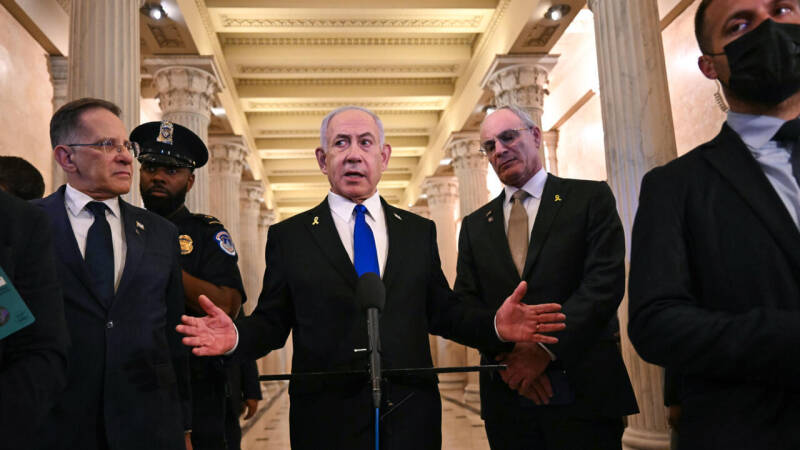
Are you tired of the U.S. continuing to reward Israel as opposed to holding it accountable? We are, too. Join us October 19–21 in Washington, D.C. to meet with lawmakers, demand an end to U.S. military aid to Israel, and push for accountability and a foreign policy rooted in justice, human rights, and international law.

To make matters worse, this is happening while Republicans just passed a bill that strips Americans of their rights and threatens to fundamentally alter life as we know it, gutting healthcare, doubling down on an inhumane immigration agenda, and further dismantling civil liberties. And still, both parties continue to funnel billions to Israel’s military machine at our expense.
This October will mark two whole years since Israel launched its ongoing genocidal assault on Gaza – bombing, starving, and besieging over two million Palestinians with U.S. support. That’s why this year’s Palestine Advocacy Days will bring people from across the country to D.C. to confront U.S. complicity head-on.
We refuse to be silent.

Let’s show Netanyahu and the American politicians who continue to enable him that we see what’s happening, and we will not let this genocide continue unchecked.
We look forward to seeing you in D.C. and continuing the fight together!
In solidarity,
Americans for Justice in Palestine Action
1567.


11 juli 2025
Today's headlines
This is how the U.S.-run GHF tried to build a local network of ‘aid collaborators’ in Gaza
Tareq S. Hajjaj
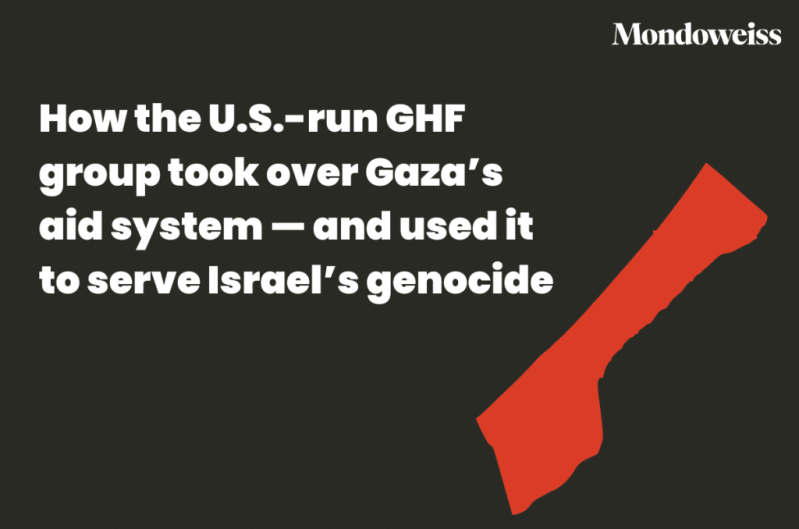
The Gaza Humanitarian Foundation has taken over the aid system in Gaza on behalf of the Israeli army by cultivating a local network of companies and organizations to collaborate in its operations. The organizations that refused have been shut down.
Trump sanctions on UN Special Rapporteur Francesca Albanese are illegal and represent further U.S. complicity in genocide
Craig Mokhiber

The Trump administration's sanctions against UN Special Rapporteur Francesca Albanese show how far the U.S. is willing to go to ensure impunity for Israel as it commits genocide.
CUNY suspends student activist leader, fires four faculty members in escalation of repression against Palestine activism
Billie Estrine

Activists say the City University of New York is escalating its repression against Palestine activism by suspending a student leader and terminating the positions of four faculty members who have been active in protesting Israel's genocide in Gaza.
1566.


11 juli 2025
Afgelopen 9 juli bestond de BDS beweging 20 jaar. Dat is nu geen reden voor een feestje. Daarvoor zijn we te verdrietig en te woest. Maar er is wel veel bereikt, en de BNC licht 20 successen uit. In een apart bericht halen wij een aantal recente overwinningen uit de grote mand met successen.
Op 30 juni heeft Francesca Albanese, VN Special Rapporteur voor de bezette Palestijnse gebieden, een rapport gepubliceerd. Daarin stelt dat ze Israël is verschoven van een bezettingseconomie naar een genocide-economie, een uitroeiingseconomie. Wij belichten een aantal belangrijke punten en vertellen over Nederlandse medeplichtigheid.
De strijd is nog lang niet gestreden dus we gaan hard door met boycotten en protesteren. Check ook onze boycotflyer op de site.
Een strijdbare groet van het docP team; blijf BDS-en!
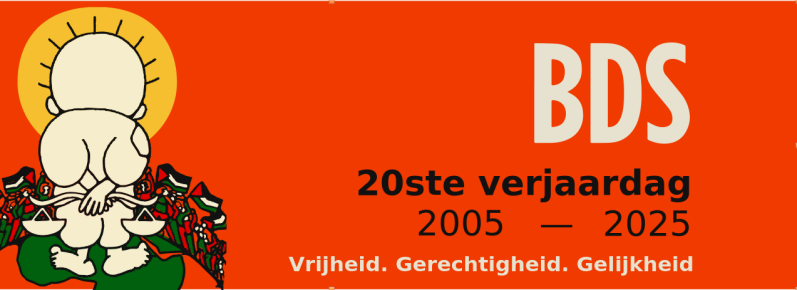
Internationale solidariteit herdefiniëren en wereldwijd people power mobiliseren voor bevrijdjng van Palestina
20 jaar BDS
Deze week markeren we een mijlpaal in de bevrijdingsstrijd van de inheemse bevolking van Palestina, nu de door Palestijnen geleide geweldloze, antiracistische BDS-beweging 20 jaar van basisorganisatie en het opbouwen van intersectionele people power voltooit.
Deze dag zal de geschiedenis ingaan als het begin van een principieel, strategisch en creatief proces dat Israëls 77 jaar oude regime van kolonisatie, apartheid en militaire bezetting aan de basis en op institutioneel niveau heeft geïsoleerd. Het heeft de betekenis van solidariteit [...]
Lees het artikel
De genocide-economie van Israël en het Westen
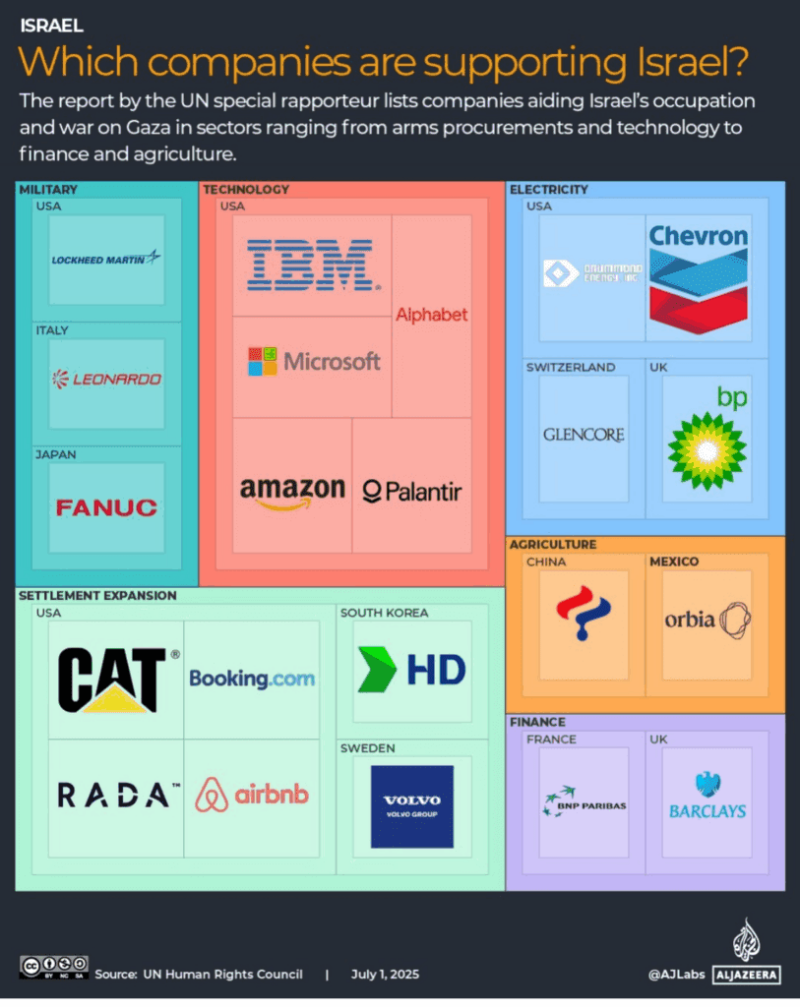
In haar nieuwste rapport over de wording van een economie van genocide, onthult VN special rapporteur voor de bezette Palestijnse gebieden, Francesca Albanese, welke grote bedrijven allemaal betrokken zijn bij de voortdurende genocide in Gaza. Gegeven de reacties van betrokken staten en corporaties doet dat pijn. Haar werk in het algemeen en het harde rapport […]
Steun aan BDS blijft groeien
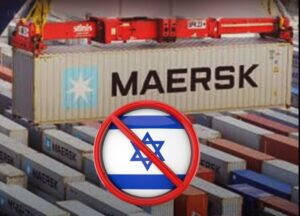
De voortdurende slachtingen door Israël met behulp van vooral Westerse regeringen en firma’s hebben nadat de regering Netanyahu Gaza tot de hongerdood veroordeelde langzaamaan geleid tot steeds meer officiële protesten. En tot steeds meer verbroken banden en boycotacties. Hieronder willen we een aantal successen van de laatste tijd delen. De laatste twee maanden zien we […]
1565.

AVAAZ
10 juli 2025
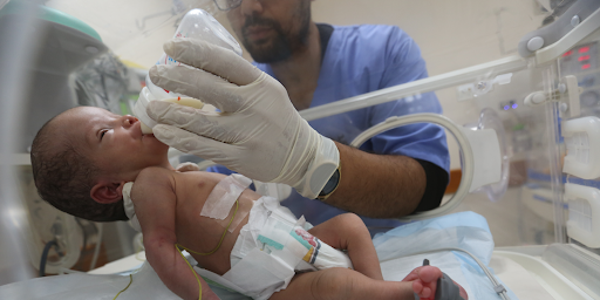
LAAT BABYVOEDING GAZA IN!
Moeders in Gaza zijn ondervoed en kunnen daardoor geen borstvoeding geven, en de voorraad babyvoeding in de ziekenhuizen begint op te raken, want Israël laat geen nieuwe voeding binnen.
Terwijl je dit leest lopen 580 te vroeg geboren baby’s het risico om te verhongeren. We moeten snel handelen en zorgen dat er geen enkel kind meer sterft!
Internationale druk heeft er al voor gezorgd dat Netanyahu beperkt noodhulp heeft toegelaten, waaronder een klein beetje babyvoeding. Maar het is verre van genoeg en ziekenhuizen in Gaza slaan alarm!
Voeg jouw naam toe, dan zal ik onze oproep samen met andere artsen en Avaaz rechtstreeks aan de belangrijkste overheden overhandigen.
Het is genoeg geweest! We moeten een einde maken aan deze nachtmerrie en het onvoorstelbare lijden van de mensen en kinderen in Gaza.
Sluit je nu aan! Artsen zullen onze oproep rechtstreeks aan de belangrijkste overheden overhandigen. Samen eisen we dat overheden sancties opleggen en de druk op Netanyahu opvoeren, om levensreddende humanitaire hulp toe te laten en voor eens en altijd een einde te maken aan de bezetting.
Met hoop en vastberadenheid,
Dr. Thaer Ahmad en het hele Avaaz-team
1564.


10 juli 2025
Today's headlines
ICE official: We used Canary Mission to find students to target for deportation
Michael Arria

A senior ICE official says the Trump administration used the shadowy, anti-Palestine website Canary Mission to find students to target for deportation.
20 years of BDS: An interview with Omar Barghouti, a co-founder of the movement
Michael Arria

On the 20th anniversary of the Boycott, Divestment, Sanctions (BDS) movement, Mondoweiss speaks with Omar Barghouti about the past, present, and future of the movement.
Palestinian testimonies of deliberate Israeli killings at U.S.-run ‘aid’ sites were ignored until the perpetrators admitted to it
Noor Alyacoubi

Palestinians have delivered testimony after testimony about the Israeli-backed and U.S.-run “death traps” masquerading as aid sites. But no one listened until Haaretz published direct testimony from the perpetrators.
1563.


10 juli 2025

“You are like the tent pole that holds the whole tent up.”
Suheir Barghouthi (Um Asef), known in her village as The Iron Woman, is the mother of a martyr and a political prisoner. Her husband was sentenced to life in prison before being released in a prisoner exchange. She herself has been arrested multiple times.
From a young age, Suheir chose to be anchored in the political reality surrounding her, with unwavering commitment to her people’s struggle for liberation.
Palestinian women teach life. Listen to this episode of Freedom Breakers to understand how.
1562.


10 juli 2025
Humanitarian Situation Update #304
Gaza Strip
9 July 2025
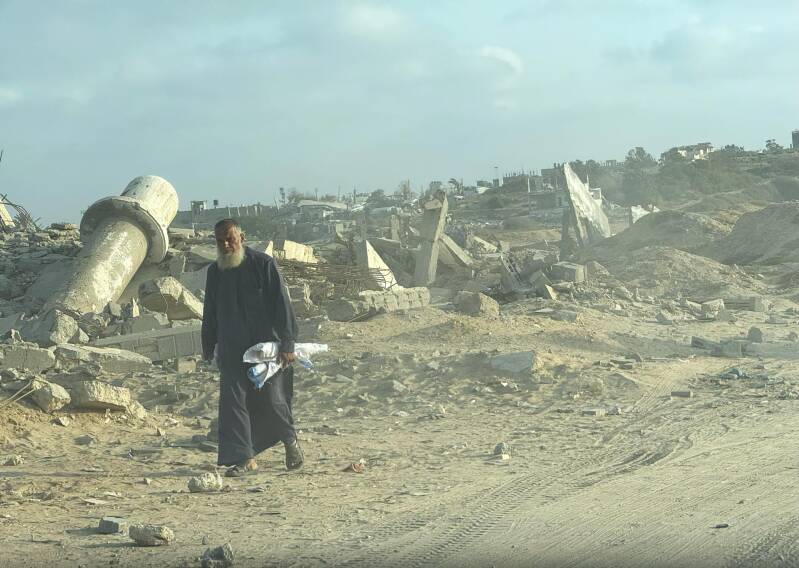
A Palestinian man walking through a devastated area of central Gaza. Photo by OCHA/Olga Cherevko
Key Highlights
- In Gaza, strikes on people sheltering in schools and tents and those seeking food, water and other assistance continue to be reported, resulting in mass casualties.
- Hospitals face imminent shutdown as fuel stocks run out, following a total ban on fuel entry for about 130 days.
- Nearly one in three people are going entire days without eating and more people are at risk of starvation, a new assessment finds.
- First responders, health workers, and aid workers continue to deliver food and other assistance under intolerable conditions, facing hunger, water scarcity and threats to their personal safety – just like everyone else in Gaza.
- Older persons face extreme risks amid ongoing hostilities, often left without protection, essential support, or access to necessities for survival.
- Water scarcity is deepening due to the lack of fuel, spare parts for repairs, ongoing insecurity, and the inaccessibility of most water and sanitation facilities.
Humanitarian Developments
- Over the past week, Israeli forces have continued to carry out heavy bombardment from the air, land and sea across the Gaza Strip, issued additional displacement orders, and expanded ground operations. Strikes on people sheltering in schools and tents and those seeking food, water and other assistance continue to be reported, resulting in mass casualties. Rocket fire by Palestinian armed groups into Israel and fighting between them and Israeli forces have also taken place. Destruction of civilian infrastructure and large-scale displacement have been reported.
- On 3 July, the Spokesperson for the UN Secretary-General, Stéphane Dujarric, stated that the Secretary-General is “appalled by the deepening humanitarian crisis in Gaza,” where “[m]ultiple attacks in recent days hitting sites hosting displaced people and people trying to access food have killed and injured scores of Palestinians.” With no fuel having entered Gaza for over four months, the UN Chief warned that "the last lifelines for survival are being cut off,” affecting the functioning of incubators, ambulances, water purification and the delivery of humanitarian assistance. He called for “full, safe and sustained humanitarian access so aid can reach people who have been deprived of the basics of life for far too long,” noting that the UN “has a clear and proven plan, rooted in the humanitarian principles, to get vital assistance to civilians – safely and at scale, wherever they are.”
- According to the Ministry of Health (MoH) in Gaza, between 2 and 9 July, 668 Palestinians were killed, and 2,817 were injured. Between 7 October 2023 and 9 July 2025, the MoH in Gaza reported that at least 57,680 Palestinians were killed, and 137,409 Palestinians were injured. This includes 7,118 people killed and 25,368 injured since the re-escalation of hostilities on 18 March 2025, according to MoH. The ministry further noted that the number of casualties among people trying to access food supplies has increased to 773 fatalities and more than 5,101 injuries since 27 May 2025.
- Between 1 and 8 July, at least seven schools sheltering internally displaced people (IDPs) were reportedly hit, including some that had already been struck in the previous week. The attacks resulted in the reported killing of 42 people, the injury of others, and the displacement of dozens of families. However, many have returned to some of the damaged schools due to the lack of alternative shelters. For example, on 3 July, at about 1:30, a school designated as an IDP shelter was hit in Al Rimal neighbourhood, in central Gaza city, reportedly killing 11 Palestinians, including five women, and injuring many others. Burned bodies were reportedly among the fatalities. Moreover, on 6 July, at about 14:00, a classroom in an UNRWA school, designated as an IDP shelter, was hit in Ash Shati’ (Beach) Camp, west of Gaza city, reportedly killing 20 Palestinians, including children and at least one woman, and injuring others. The strike caused significant damage to the school’s premises. According to the Education Cluster, in addition to the physical damage, these incidents continue to perpetuate trauma and fear among children, preventing them from participating in learning opportunities, mental health and psychosocial support activities, and other structured play activities delivered in such spaces.
- Medical workers in Gaza are operating under immense pressure, struggling to treat the daily influx of trauma patients amid critical shortages of fuel, medicines, supplies and bed capacity, while themselves facing hunger, insecurity, displacement and risks to their personal safety. On 2 July, a renowned cardiologist and director of the Indonesian Hospital, Dr. Marwan Al Sultan, was killed when a residential building in Gaza city was hit, reportedly killing the doctor along with his wife, sister, daughter, and son-in-law. On 2 July, Healthcare Workers Watch – Palestine reported that the doctor was the 70th health-care worker killed by Israeli forces over a 50-day period. On 5 July, an obstetrics and gynaecology consultant was reportedly killed, along with his three children, when their tent was hit in Al Mawasi, west of Khan Younis. On 4 July, the International Committee of the Red Cross (ICRC) reported that a staff member at the Red Cross Field Hospital, in Rafah, was injured by a stray bullet while on duty. In addition, two Palestine Red Crescent Society (PRCS) emergency medical technicians were injured after a nearby area was hit while they were providing emergency care to the wounded in Jabalya Al Balad, in North Gaza. According to PRCS, they narrowly escaped death and were transferred to the PRCS-operated Al-Saraya Field Hospital, in Gaza city. Commenting on the two incidents that resulted in the injury of ICRC and PRCS staff, ICRC noted that they underscore “the perilous security environment in Gaza and the intolerable risks first responders face while trying to reach those UNIC depend on their support.” As of 25 May 2025, MoH reported that about 1,580 health workers had been killed since October 2023.
- Between 2 and 6 July, other incidents resulting in fatalities include:
- On 2 July, at about 16:00, 16 Palestinians, including children, were reportedly killed and many others injured when a building, designated as an IDP shelter, was hit southeast of Gaza city.
- On 2 July, at about 19:30, at least nine Palestinians, including three boys and one girl, were reportedly killed when the front of a school was hit in the New Camp of An Nuseirat, in Deir al Balah.
- On 2 July, at about 22:30, at least 17 Palestinians, including four boys and five females, were reportedly killed and many others injured when IDP tents were hit in Al Mawasi area, west of Khan Younis. Casualties reportedly included a married couple and their four boys, a woman and her son, and a man and his daughter.
- On 3 July, at about 18:00, at least 21 Palestinians were reportedly killed and dozens were injured due to heavy artillery shelling on Palestinians waiting for food trucks near At Tahlia roundabout, in eastern Khan Younis.
- On 3 July, at about 23:15, nine Palestinians, including two boys and four females, were reportedly killed and several others injured when an IDP tent was hit west of Khan Younis.
- On 4 July, at about 14:00, 10 Palestinians were reportedly killed and others injured when a residential building was hit in Jabalya, in North Gaza.
- On 5 July, at about 18:00, six Palestinians, including children, were reportedly killed when a café was hit in western Az Zawaida, in Deir al Balah.
- On 5 July, at about 14:00, three Palestinians were reportedly killed and about 15 others injured when some people were trying to access water at a desalination plant in Al Rimal neighbourhood, west of Gaza city.
- On 6 July, at about 2:00, 12 Palestinians were reportedly killed and others injured when a building housing three displaced families was hit in northern Gaza city.
- Between 2 and 9 July, seven Israeli soldiers were killed in Gaza, according to the Israeli military. Between 7 October 2023 and 9 July 2025, according to Israeli forces and official Israeli sources cited in the media, more than 1,644 Israelis and foreign nationals were killed, the majority on 7 October 2023 and its immediate aftermath. This includes 444 soldiers killed, in addition to 2,781 soldiers injured, in Gaza or along the border in Israel since the beginning of the ground operation in October 2023. Of these, 37 soldiers were killed and 197 injured since the re-escalation of hostilities on 18 March 2025. As of 9 July, it is estimated that 50 Israelis and foreign nationals remain captive in Gaza, including hostages who have been declared dead and whose bodies are being withheld.
- Between 2 and 9 July, the Israeli military issued four displacement orders for parts of Khan Younis and Gaza governorates. Three of the orders, which were issued on 4, 6 and 8 July, affected the same areas in Khan Younis. Combined, the orders cover 12.9 square kilometres. Since 18 March, the Israeli military has issued 54 displacement orders, placing about 297 square kilometres under displacement orders (81 per cent of the Gaza Strip). With no safe place to go, many people have sought refuge in overcrowded displacement sites, makeshift shelters, damaged buildings, streets and open areas. People have been confined to ever-shrinking spaces; as of 9 July, 86 per cent of the Gaza Strip is within Israeli-militarized zones or placed under displacement orders (they largely overlap) since 18 March.
- In vast areas across the Gaza Strip, humanitarian teams are required to coordinate their movements with the Israeli authorities. Between 2 and 8 July, out of 69 attempts to coordinate planned aid movements across the Gaza Strip, nearly 30 per cent were denied by Israeli authorities. An additional 17 per cent were initially accepted but faced impediments, including blocks or delays on the ground potentially resulting in missions being aborted or partially accomplished. Another 36 per cent were fully facilitated, and the remaining 17 per cent had to be withdrawn by the organizers for logistical, operational, or security reasons. All of the above include 18 attempts to coordinate aid movements in or to northern Gaza, of which 50 per cent (nine) were facilitated, 33 per cent (six) were denied, 11 per cent (two) faced impediments, and six per cent (one) were withdrawn. In southern Gaza, out of 51 attempts, 31 per cent (16) were facilitated, 27 per cent (14) were denied, 20 per cent (10) faced impediments and 22 per cent (11) were withdrawn.
- The Ministry of Education and Higher Education (MoE) is preparing to administer the General Secondary Education Examinations (Tawjihi) in the Gaza Strip for the first time since October 2023. A pilot exam for 1,500 students, who were unable to complete their exams for the 2022-2023 academic year due to the escalation in hostilities, is scheduled on 17 July. If a ceasefire takes effect, the exams will be conducted online in three phases to ensure access for all eligible students from the past two academic years. It is estimated that over 76,600 students – some of whom may have been killed or have already left Gaza or dropped out – will sit for the official exams starting on 19 July. The Education Cluster is mapping temporary learning spaces to identify those suitable for administering the exams. To support students’ preparation, the MoE announced that two schools have been designated to offer online catch-up classes starting on 8 July 2025.
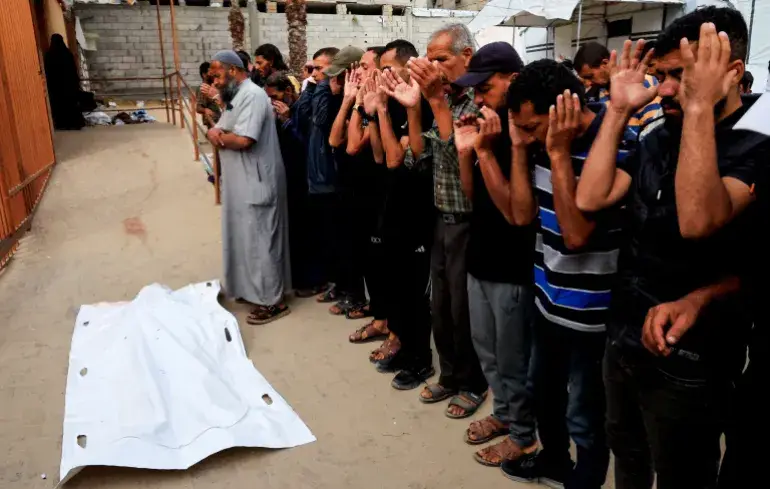
Protection Risks Facing Older Persons
- On 24 June, UNRWA issued a publication highlighting the heightened risks facing older persons amid the ongoing hostilities in Gaza, which have left many of them in without protection, support, or even access to the basics required for survival. Limited mobility, chronic health conditions, and the collapse of health and support systems, on which older persons previously depended, all contribute to their vulnerability during hostilities, while frequent forced displacement, chronic shortages of food and clean water, and overcrowded and unhygienic living conditions further exacerbate the risks they face. Restrictions on the import of assistive devices, classified as "dual-use" items by the Israeli authorities, pose additional challenges. One elderly woman in Rafah told UNRWA: “My husband fell ill at night. We just sat and cried... there was no ambulance, no one could hear us.” Older persons told UNRWA of the deep sense of loss they feel as they witness the destruction of everything they built and knew – from family members to homes and neighbourhoods. Repeated displacement and the struggle to survive have strained family units, often leading to the neglect of older relatives. Some reported verbal and psychological abuse, feeling like a burden. During displacement, this neglect leaves them isolated, with risks to their safety and health. As of 15 June 2025, MoH reported that 4,137 older persons (defined as men and women 60 years old or older) had been killed since October 2023. The number of older persons who have died of preventable causes due to a lack of access to basic services remains unknown.
Deteriorating Food Security
- Following his fourth visit to Gaza, the Deputy Executive Director and Chief Operating Officer of the World Food Programme (WFP), Carl Skau, stated: “The situation is the worst I’ve seen. Needs are higher than ever, and our ability to respond has never been more constrained. Starvation is spreading – people are dying just trying to find food.” He warned that WFP teams, who are running out of fuel, spare parts and basic communications equipment, were “often caught in crossfire, escorting food convoys through combat zones” and “facing the same dangers and hunger” as all people in Gaza. Calling for the opening of all routes and entry points into Gaza, for safety, and for a lasting ceasefire, he stressed that WFP has “the food, capacity, and readiness to deliver.”
- A recent WFP assessment finds that nearly one in three people is not eating for days and that more people are at risk of starvation. Since late May 2025, when the Israeli authorities started allowing limited amounts of aid into Gaza, most trucks carrying food assistance have been intercepted by hungry civilians. Despite the challenges, for the first time in weeks, food security partners have been able to distribute some food assistance directly, with approximately 13,000 households receiving food assistance between 26 and 30 June. Distribution took place in Gaza city but remained extremely limited given the low volume of stocks that could enter through Zikim crossing. As of 8 July, 260,000 daily meals were prepared and delivered by 11 partners through 84 kitchens, including 100,000 meals in northern Gaza and 160,000 meals in central and southern Gaza. The increased number of operational kitchens does not directly correspond to increased meal production as output largely depends on the size and available supplies at each kitchen. Although these are critical steps in delivering life-saving assistance, the needs remain immense, and the limited aid entering Gaza still falls far short of reaching the entire population of 2.1 million people – half of whom are children. The latest Integrated Food Security Phase Classification (IPC) brief, which was published on 6 June 2025, warned that the Gaza Strip remains at a critical risk of famine. According to the analysis, large-scale military operations and the persistent inability of humanitarian agencies to deliver essential goods and services suggest that the worst-case scenario of Famine (IPC Phase 5) occurring in the projection period between 11 May and 30 September is becoming more likely.
- On 9 July, UNRWA reported that a child under seven months of age who was suffering from severe acute malnutrition and receiving treatment by UNRWA health teams passed away on 8 July. UNRWA added: “She is one of thousands of malnourished children in Gaza. More cases are detected every day.”
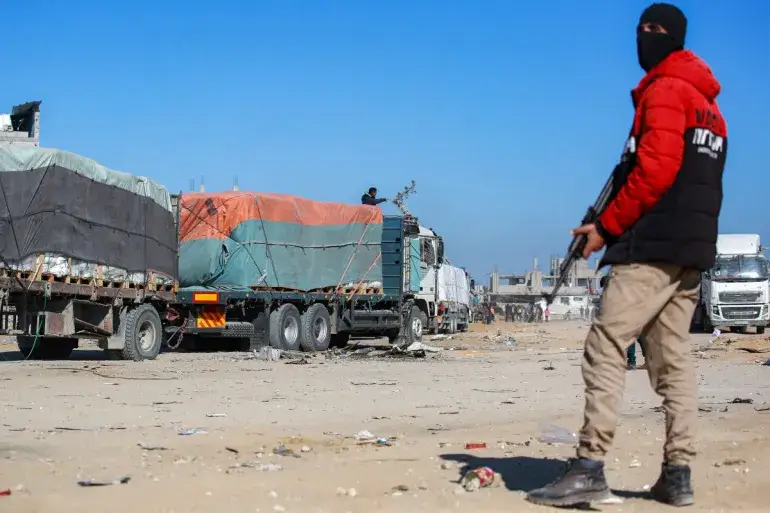
Worsening Access to Health Care
- Health facilities in Gaza are overwhelmed by an escalating surge of casualties amid ongoing insecurity and critical shortages of resources, putting both patients and medical staff at grave risk. The ICRC reported that, for weeks, stray bullets have disrupted normal operations at the field hospital, where medical personnel, caretakers, staff and patients regularly rush to areas that are identified as safer within the hospital at the sound of an alarm to avoid being shot. According to ICRC, when shooting occurs, “[w]omen in the maternity ward are forced to move to the floor because they cannot be moved while giving birth” and surgeons and staff continue working with the sound of gunfire around them, knowing that a bullet “could pierce the canvas of the operating theatre at any moment.” Describing the similarly overwhelming situation at Nasser Medical Complex, Dr. Rik Peeperkorn, the representative of the World Health Organization (WHO) in the Occupied Palestinian Territory, stated during a visit to the hospital that Nasser Medical Complex “is one massive trauma ward.” The hospital, which normally has a 350-bed capacity, is currently treating about 700 patients. The hospital director and team reported that hundreds of trauma patients have been received over the past four weeks, the majority linked to incidents around militarized distribution sites. Dr. Peeperkorn added that intensive care patients are in every area throughout the hospital due to the lack of space in the original intensive care unit (ICU). In addition, there is a shortage of nearly all critical supplies, especially those related to trauma care.
- On 6 July, the MoH stated that Gaza's laboratories and blood banks are facing a critical shortage of blood units and their components, with demand sharply increasing due to the growing number of severe injuries. Despite the urgent need, the amount of blood being supplied remains far below what is required each month; according to MoH, over the past month alone, 10,000 blood units and their components were dispensed, while only 3,500 units were collected. The Ministry added that efforts to encourage community blood donations have become ineffective, as widespread malnutrition and anaemia have left many people physically unable to donate, underscoring the deepening severity of the health crisis.
- On 8 July, PRCS announced the suspension of operations at Az Zaytoun Medical Clinic that it operates in Gaza city, following shelling in the surrounding area, which posed “a serious threat to the safety of medical teams and patients.” According to PRCS, the clinic had been a critical lifeline for thousands of people, especially as the area grew overcrowded with IDPs following the issuance of displacement orders, and its closure will force thousands of people to walk long distances to access basic medical services and essential vaccinations elsewhere. Since October 2023, 18 PRCS medical clinics have been forced out of service, PRCS stated.
- At a press conference held by MoH on 9 July, Dr. Mohammed Abu Selmiyah, Director of Al-Shifa Medical Complex in Gaza city, warned that the worsening fuel crisis is pushing the health and humanitarian sectors toward total collapse. He emphasized that the crisis is severely affecting hospital operations, desalination plants, and water supply systems. Dr. Abu Selmiyah said that hospitals in Gaza city, particularly Al-Shifa, will imminently cease operations, noting that the hemodialysis unit had already been shut down to preserve electricity for ICUs and operating rooms amid a continued flow of casualties. Dr. Abu Selmiyah reported that 13 ICU patients mostly on ventilators, about 100 babies in incubators, and 350 patients relying on kidney dialysis services are currently at critical risk. Dr. Abu Selmiyah stressed that the hospital is already overwhelmed with hundreds of injured people and will no longer be able to perform surgeries. “Operating rooms will shut down, and we will not be able to treat the large influx of injured people. Our oxygen stations will also stop functioning, and a hospital without oxygen is no longer a hospital,” he concluded.
- On 9 July, Nasser Medical Complex warned of an imminent humanitarian disaster due to a critical fuel shortage, stating that the facility is very close to a complete shutdown as fuel supplies are nearly exhausted. Despite significant efforts to reduce power consumption and restrict electricity to only the most critical departments, including ICUs, operating rooms, neonatal units, and maternity and dialysis services, the hospital’s generators are expected to function for one additional day, according to the hospital. If the power goes out completely, the lives of dozens of patients, particularly those dependent on ventilators, “will be in immediate danger and face certain death,” the hospital emphasized.
Water and Sanitation Crisis
- The continued blockade on the entry of fuel into Gaza and access constraints are severely constraining water, sanitation and hygiene (WASH) services, with devastating impacts on public health. Throughout May and June, WASH Cluster partners received, from available humanitarian supplies, only 25 per cent of the fuel required to sustain effective emergency operations. Meanwhile, as of 4 July, 80 per cent of WASH assets and facilities now fall within the Israeli-militarized zone or in areas that have been placed under displacement orders since 18 March. As a result, multiple water wells have ceased functioning and desalination plants are operating at minimal capacity, which has significantly reduced the volume of water available for distribution. WASH partners estimate that most people are receiving less than the emergency standard of 15 litres per person per day, amounting to a human-made drought crisis. Between 22 June and 5 July, based on available data, 27 WASH Cluster partners distributed a daily average of about 17,000 cubic metres of drinking water through trucking to 1,357 water collection points. Fuel shortages have further limited solid waste collection; on 9 July, the Joint Service Council south of Wadi Gaza suspended waste collection services due to the lack of fuel. Fuel shortages have also restricted sewage pumping to only emergency interventions, primarily in high-risk flood zones such as Ash Sheik Radwan Pond.
- On 7 July, the Mekorot Bani Suhaila water supply line from Israel stopped working at noon due to a malfunction that require repairs. The line had suffered repeated damage and disruptions over time and was most recently restored on 30 June. Yet, the area was placed under a displacement order on 1 July, rendering the line largely inaccessible and has since only allowed for limited water collection. The current halt in water flow via the Bani Suhaila line, which feeds As Satar water tank west of Khan Younis and provides approximately 12,000-14,000 cubic metres of water per day, will severely impact the water supply to the overcrowded, displaced communities in Al Mawasi area of Khan Younis. Trucks that were transporting water from As Satar water reservoir have now been redirected to the Southern Gaza Desalination Plant (SGDP), which itself has only enough fuel to operate for a limited number of additional days, providing a daily average of about 1,500 cubic metres of drinking water.
- In Gaza city, the municipality announced that large areas of the city are facing water outages due to precarious security conditions that are preventing its teams from accessing and carrying out repairs of the main water distribution valves connected to the Mekorot water line coming from Israel. The municipality also reported that lack of access to As Safa water wells along Salah ad Din Road is preventing their operation and further contributing to the water outages. According to the WASH Cluster, these shortages are having a critical impact on drinking water availability, increasing community tensions and putting safe drinking water out of reach for the most vulnerable groups.
- The WASH and Health clusters warn that water-borne diseases are on the rise, with acute watery diarrhea accounting for 39 per cent of reported illnesses, alongside emerging cases of bloody diarrhea and acute jaundice syndrome reported at overcrowded displacement sites. Key drivers include overcrowded shelters, limited access to clean water, poor sanitation, and rising malnutrition, all of which weaken immune systems and increase vulnerability to disease and morbidity. Ensuring access to food, safe drinking water, and the availability of freely distributed hygiene items through secure and accessible humanitarian corridors is critical to preventing further disease outbreaks, according to the clusters. Despite the immense needs, since the end of phase one of the ceasefire, the Israeli authorities have been denying the entry of hygiene items – including kits and cleaning supplies essential for protecting public health. Recently, Israeli authorities have approved such items, but the details regarding permissible content and authorized entry routes remain unclear. As such, no hygiene items have entered Gaza over the past four months.
Funding
- As of 8 July 2025, Member States have disbursed approximately US$738 million out of the $4 billion (18 per cent) requested to meet the most critical humanitarian needs of three million out of 3.3 million people identified as requiring assistance in Gaza and the West Bank, including East Jerusalem, in 2025, under the 2025 Flash Appeal for the OPT. Nearly 88 per cent of the requested funds are for humanitarian response in Gaza, with just over 12 per cent for the West Bank. Moreover, during June 2025, the oPt Humanitarian Fund managed 122 ongoing projects, totalling $70.1 million, to address urgent needs in the Gaza Strip (87 per cent) and the West Bank (13 per cent). Of these projects, 58 are being implemented by international non-governmental organizations (INGOs), 48 by national NGOs and 16 by UN agencies. Notably, 42 out of the 74 projects implemented by INGOs or the UN are being implemented in collaboration with national NGOs. For more information, please see OCHA’s Financial Tracking Service webpage and the oPt HF webpage.
1561.


9 juli 2025
Their ceasefire vs our ceasefire.

International fugitive Benjamin Netanyahu is in Washington, D.C. this week, his third visit with President Trump since January. His stated purpose is to discuss a ceasefire agreement in Gaza.
This is a moment rife with contradiction, and as Palestine solidarity activists we must hold two truths:
1. After over twenty months of genocide, Palestinians are desperate for any relief from Israel’s relentless bombardment and daily massacres at Israel and U.S.-run aid sites.
2. Netanyahu is seeking a ceasefire on his terms: allowing Israel to continue the genocide and carry out a massive campaign of ethnic cleansing that would expel remaining Palestinians from their homes forever.
As a movement, we must remain determined to fight for — and win — a lasting ceasefire, one in which Palestinians can determine their own futures...
Take Action: Largest U.S. labor union rejects the ADL.

The 3 million-member National Education Association voted on July 6 to cut all ties with the Anti-Defamation League (ADL), stating that it “is not the social justice educational partner it claims to be.”
The ADL only pretends to be a civil rights organization. In reality, it operates as a pro-Israel lobbying group, focused on co-opting and abusing accusations of antisemitism to smear criticism of the Israeli government as bigotry.
Tweet at the NEA now to thank them for taking this historic step.
Upcoming event: Special Power-Half Hour for Gaza.

Join us at Power Half-Hour this Thursday for a special conversation between JVP Executive Director Stefanie Fox and Hala Alyan on motherhood, writing and organizing through genocide.
What we're reading: “They Went to Get Flour With Their Mother in Gaza. ‘She Came Back in a White Shroud.’”
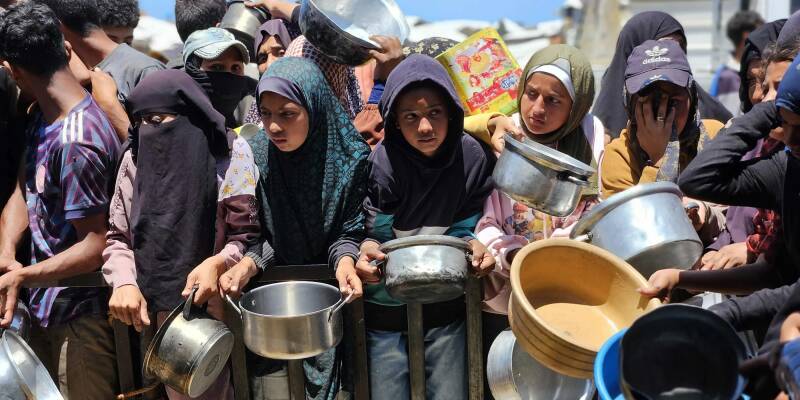
Aseel Mousa reports for The Intercept about the massacres of Palestinians at Israel and U.S.-run aid sites.
1560.


9 juli 2025
Humanitarian Situation Update #303
West Bank
9 July 2025

Volunteers from the Palestine Red Crescent Society assist residents of Tulkarm Camp in retrieving belongings from their homes ahead of their announced demolition by Israeli forces. Photo by PRCS
Key Highlights
- In the first week of July, Israeli forces in the West Bank killed five Palestinians, including a child and an elderly man, bringing the total number of Palestinians killed by Israeli forces since the beginning of 2025 to 153.
- Israeli settlers injured nine Palestinians in the first week of July, with 350 injured so far in 2025, or an average of nearly two per day.
- About 120 Palestinians, over half of them children, were forcibly displaced from Al Mu’arrajat East Bedouin community due to Israeli settler attacks; this is the ninth community to be fully displaced in the Ramallah and Jericho areas since January 2023.
- Over 200 students are at risk of losing access to education in Area C, following the displacement of Al Mu’arrajat East where Al Ka’abneh school served 74 students and the issuance of a demolition order against the only school in Jurat al Jamal in the southern Hebron hills that serves 130 students.
- Demolitions continued in Tulkarm and Nur Shams refugee camps despite a temporary freeze of demolitions in Tulkarm Camp by the Israeli High Court.
Humanitarian Developments
- Between 1 and 7 July, five Palestinians, including a child, were killed by Israeli forces in the West Bank. During the same period, at least 87 Palestinians, including 15 children, were injured, the majority (78) by Israeli forces and nine by Israeli settlers. The following are details of the incidents that resulted in fatalities:
- At dawn on 1 July, Israeli forces shot and killed a 17-year-old Palestinian boy during an operation in Ramallah city. According to eyewitnesses and medical sources, Israeli forces raided multiple homes and carried out extensive searches and interrogations. Confrontations erupted, during which Israeli forces opened fire at Palestinians who threw stones at the forces. According to local sources, the boy was not involved in the confrontations and was crossing a nearby road with a relative when he was shot. Four Palestinians were arrested from their homes.
- On 1 July, Israeli forces shot and killed a Palestinian man near Adh Dhahiriya town, in Hebron governorate, while he was trying to enter Israel through an informal opening in the Barrier near Meitar checkpoint. Since October 2023, at least 13 Palestinians have been killed and 129 others injured by Israeli forces while attempting to cross through informal openings in the Barrier to access East Jerusalem and Israel. These casualties occurred in 100 documented incidents following the revocation or suspension of most Israeli-issued permits for Palestinian workers and others since 7 October 2023. Of these incidents, 37 have been recorded since the beginning of 2025 alone, resulting in three fatalities and 47 injuries.
- On 3 July, Israeli forces shot and killed a Palestinian man in his sixties in Tulkarm city. The man was a Palestinian refugee who had been displaced at the onset of the Israeli operation in Tulkarm Camp. According to a relative, Israeli forces, positioned in a Palestinian building they had turned into a military post, shot the man on the road between Anabta town and Nur Shams refugee camp while he was riding an electric bicycle on his way to the building where he and his family were temporarily residing. Israeli soldiers then transferred the man to an area known as Mall Ghazal, near Nur Shams Camp. Following coordination with the Palestinian District Coordination Office, the man was transported by the Palestine Red Crescent Society (PRCS) to a hospital, where he was pronounced dead.
- On 7 July, Israeli forces shot and killed two Palestinian men and injured an elderly man during a raid in Salim village, in Nablus governorate, where they surrounded a house and used loudspeakers to call on a man wanted by the Israeli army to surrender. According to eyewitnesses, the man's father-in-law opened the door and was shot. A neighbour and relative who attempted to assist the injured man was shot and killed. According to eyewitnesses, Israeli forces then opened fire, sent a drone into the house, and forced another Palestinian to enter the home to reportedly locate the wanted Palestinian, who was later found killed outside the house and his body was withheld by Israeli forces. According to the Israeli military, they shot and killed two men during the operation.
- Between 1 and 7 July, OCHA documented at least 27 Israeli settler attacks against Palestinians that resulted in casualties, property damage, or both. These attacks led to the injury of 40 Palestinians, including 31 by Israeli forces (all in Beita town in Nablus governorate) and nine by Israeli settlers. In addition, more than 150 olive, almond and apricot trees and grapevines, and 11 vehicles, were vandalized. Key incidents included:
- Israeli settlers, believed to be from Evyatar settlement outpost, twice raided Beita town, south of Nablus city. On 4 July, Israeli settlers, accompanied by Israeli forces, threw stones toward Palestinians near an agricultural room on the southeast side of the town. When Palestinians gathered to protect the property, Israeli forces opened fire and tear gas cannisters, resulting in the injury of 30 Palestinians due to tear gas inhalation. Israeli settlers subsequently attacked and caused damage to a Palestinian ambulance. The following day, Israeli settlers, accompanied by Israeli forces, threw stones at Palestinian houses on the western side of the town and set fire to vehicles. One Palestinian was injured by a rubber bullet fired by Israeli forces.
- On the outskirts of Sinjil town and Jiljiliya village, in Ramallah governorate, Israeli settlers, believed to be from a settlement outpost established on Tell Mountain in Area B, attacked Palestinians on at least five occasions between 1 and 5 July, resulting in the injury of seven Palestinians and damage to homes, vehicles, and agricultural structures. On 1 July, Israeli settlers broke into agricultural lands in southern Sinjil and blocked Palestinian access, in the presence of Israeli forces. On 4 July, during one of the most serious incidents, settlers attacked farmers from Sinjil and Al Mazra’a ash-Sharqiya, injuring seven and damaging several agricultural structures and four vehicles. Confrontations ensued, during which some settlers’ tents were set on fire by Palestinians. Israeli forces intervened, firing live ammunition into the air as well as sound grenades and tear gas canisters to disperse Palestinians. On the same day, settlers uprooted vegetable saplings from farmland on the outskirts of Sinjil. Also on 4 July, video footage showed an Israeli settler vehicle blocking a Palestinian ambulance on Road 60, while settlers blocked the access of Palestinians on the same road near Sinjil for two hours. On 5 July 2025, Israeli settlers threw Molotov cocktails and stones at houses in Jiljiliya village, damaging three houses and setting fire to an electrical supply unit. Since Israeli settlers re-established a previously dismantled settlement outpost on Tell Mountain by building a wooden structure in early June 2025, the site has been linked to a series of settler attacks, access restrictions, and severe damage to agricultural lands belonging to residents of Sinjil town and Jiljiliya village.
- On 2 July, Israeli settlers raided Susiya community, in southern Hebron, and threw stones at Palestinians and their homes, injuring two people, including a child. The settlers fled the area when the Israeli police, called by the Palestinian residents, arrived. The Susiya community has experienced a steady rise in settler-related incidents – from five in 2020 to 33 in 2024, and to 26 so far in 2025. Of the 103 incidents documented since 2020, 80 per cent resulted in casualties or property damage. The most significant increase has been in incidents causing property damage, particularly to agricultural and animal-related structures and olive groves. Over the past two years, the community has faced near-daily intimidation, night raids, threats, and destruction of property, contributing to a coercive environment that pressures Palestinians to leave their homes.
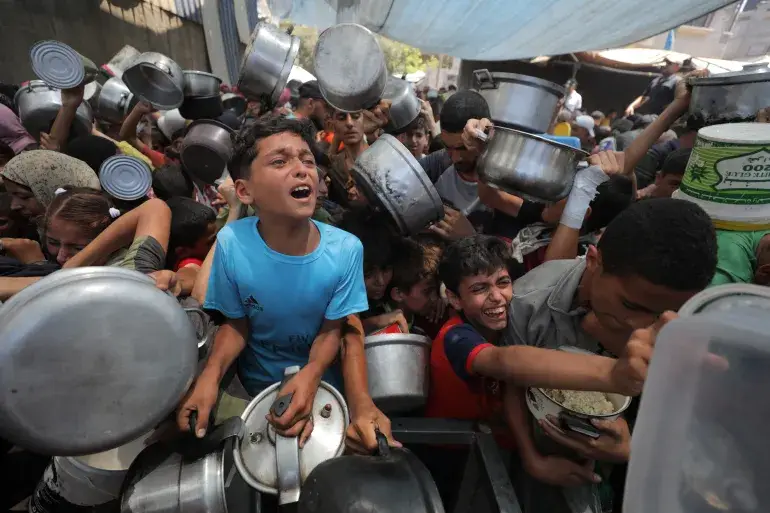
- On 2 and 3 July, Israeli settlers attacked Palestinian families in Al Mu’arrajat East (also known as Arab al Ka’abneh or Arab al Muleihat) Bedouin community, in Jericho governorate in the central Jordan Valley, forcibly displacing 20 households comprising about 120 residents, including 66? children. Combined with seven other families who lived in the community on a seasonal basis and were not present this week, the entire community of about 170 people is now fully depopulated. This is the ninth community (following ‘Ein Samiya, Al Baqa’a, Ras al Tin, Al Mu’arrajat Centre, Wadi as Seeq, ‘Ein ar Rashash, Khallet al Maghara and Maghayer ad Deir) to be fully displaced in the area between Ramallah and Jericho governorates along roads 457, 458 (Allon Road) and 449 (Al Mu’arrajat Road) in the past two and a half years, following recurrent attacks by Israeli settlers. The remaining four communities in the area are at high risk of displacement due to recurrent settler attacks and access restrictions, namely: East Tayba Bedouins; Dar Faza’a; Mikhmas Bedouins; and Ras ‘Ein al ‘Auja. The forced displacement of the Al Mu’arrajat East community highlights the deepening protection crisis facing Palestinian herding communities in Area C, where a coercive environment, characterized by settler violence, land confiscation, restricted freedom of movement and lack of law enforcement, continue to deprive families of safety, accountability, and any real prospect of return. The impact is severe and multifaceted; families are experiencing heightened insecurity, psychological distress, and loss of livelihoods, with women, children and older persons facing the greatest vulnerabilities due to forced displacement.
- Between 1 and 7 July, OCHA documented the demolition of 38 Palestinian-owned structures for lacking Israeli-issued building permits, which are almost impossible to obtain. These included 32 structures in Area C and six in East Jerusalem. As a result, 13 households comprising 55 Palestinians, including 24 children and 12 women, were displaced, and the livelihoods of over 90 others were affected.
- Over half of people displaced (31 out of 55) were reported in two incidents in Area C of Ramallah governorate, on 2 and 7 July, in the villages of Ni’lin and Kharbatha al Misbah, where three- and four-storey residential buildings were demolished, respectively. In both cases, the families’ furniture and personal belongings were destroyed.
- In two additional incidents in Area C of Jerusalem governorate, on 3 and 7 July, Israeli authorities demolished 14 structures in Az Za’ayyem Bedouin community and five in Abu Nuwar, mainly consisting of animal shelters, affecting the livelihoods of some 60 people. Both communities are located adjacent to the Israeli E1 settlement plan area, which aims to expand the Ma’ale Adumim settlement and connect it to Jerusalem. They have been subjected to coercive measures, including demolitions and repeated displacement threats. Since 2009, OCHA has documented the demolition of 219 structures, including 41 homes, in both communities due to the lack of building permits, resulting in the displacement of 230 people, including 141 children, some of whom were displaced more than once.
- In East Jerusalem, six structures were demolished, including three by their owners, in the Old City, Beit Hanina and Silwan, displacing 11 people, including six children. According to the displaced families in Silwan (two families of six, including three children), they received the first demolition order in 2019, were fined over 60,000 NIS (US$ 1,800), and have been appealing in Israeli courts against the execution of the demolition order for more than five years. However, their legal appeals were rejected, and in June 2025, a final demolition order was issued, and Israeli forces and the Jerusalem Municipality pressured the family to carry out the demolition under the threat of heavy fines and arrest. Given the near-impossibility of obtaining Israeli-issued building permits and the limited success of legal challenges, many families in East Jerusalem have been increasingly forced to demolish their own homes to avoid further fines and penalties. The number of Palestinian homes demolished by their owners in East Jerusalem has increased significantly in recent years, reflecting growing pressure on residents. Between 1 January and 7 July 2025, OCHA documented the demolition of 103 structures in East Jerusalem for lacking Israeli-issued building permits, 64 of which (62 per cent) were carried out by the owners. This marks a notable rise compared with the annual average of 104 structures demolished by their owners between 2020 and 2024, which itself was a four-fold increase over the 25 structures demolished annually by their owners between 2009 and 2019.
- Today, 9 July, marks the 21st anniversary of the International Court of Justice’s (ICJ) Advisory Opinion on the Legal Consequences of the Construction of a Wall in the Occupied Palestinian Territory (OPT), also known as the "Wall Opinion". The ICJ stated that the sections of the Barrier route that run inside the West Bank, including East Jerusalem, violated Israel’s obligations under international law. The ICJ called on Israel to cease construction of the Barrier “including in and around East Jerusalem”; dismantle the sections already completed that are situated within the OPT, including in and around East Jerusalem; and “repeal or render ineffective forthwith all legislative and regulatory acts relating thereto.” Nevertheless, to date, the Barrier remains standing and its humanitarian consequences on the lives of Palestinians persist.
- For key figures and additional breakdowns of casualties, displacement and settler violence between January 2005 and May 2025, please refer to the OCHA West Bank May 2025 Snapshot.
Access to Education in Area C
- Al Ka’abneh Bedouin Basic School, in Al Mu’arrajat East Bedouin community (see above), was originally built in the 1960s as a tent and as a cement structure by the Israeli Civil Administration (ICA) in the mid-1980s. In the 1990s, with support from the Palestinian Authority and donors, the school expanded further. Since then, it has received 10 demolition orders on the grounds of lacking an Israeli-issued building permit in Area C. According to the Education Cluster, it was one of the most targeted schools by demolitions in Area C of the West Bank. In recent years, the school suffered repeated attacks by Israeli settlers; in an especially grave attack on the school in September 2024, Israeli settlers, accompanied by Israeli forces, broke into the school during classes and assaulted and injured two female teachers with sticks. Most recently, during the 2-3 July settler attack that led to the forced displacement of the community, settlers raided the school, ransacked property, and sprayed anti-Palestinian graffiti, including defacing a Palestinian flag mural with an Israeli star. Al Ka’abneh school, which now stands empty, previously served 74 students, including 37 girls, supported by 15 teachers.
- Among the 54 schools in Area C of the West Bank that face the threat of full demolition is the Palestine Basic Mixed School, in Jurat al Jamal community in the southern Hebron hills. On 1 July, Israeli forces, accompanied by the ICA, issued another demolition order against the school for lacking an Israeli-issued building permit. This follows a previous stop-work order in March 2025. The school, established in 2020, consists of six classrooms, two administrative rooms, a kitchen, four toilets, two outdoor shaded areas, and two playgrounds. Built with concrete blocks and insulated tin roofs, the donor-supported school currently serves 130 students (72 boys and 58 girls) from kindergarten to grade four. The school is the only education facility serving this remote herding community, and its potential demolition would severely impact children's access to education in the area.
- According to the Education Cluster, 84 schools across the West Bank, including East Jerusalem, are currently subject to pending demolition orders issued by Israeli authorities. Of these, 54 schools face the threat of full demolition, while 30 are subject to partial demolition orders. Ten of the affected schools are located within the Israeli-defined municipal boundaries of East Jerusalem, and the remaining 74 are in Area C. These schools serve 12,855 students, including 6,557 girls, and are supported by 1,076 teachers. In addition to demolition threats, settler violence against schools has intensified, with 44 incidents recorded between 2023 and May 2025.
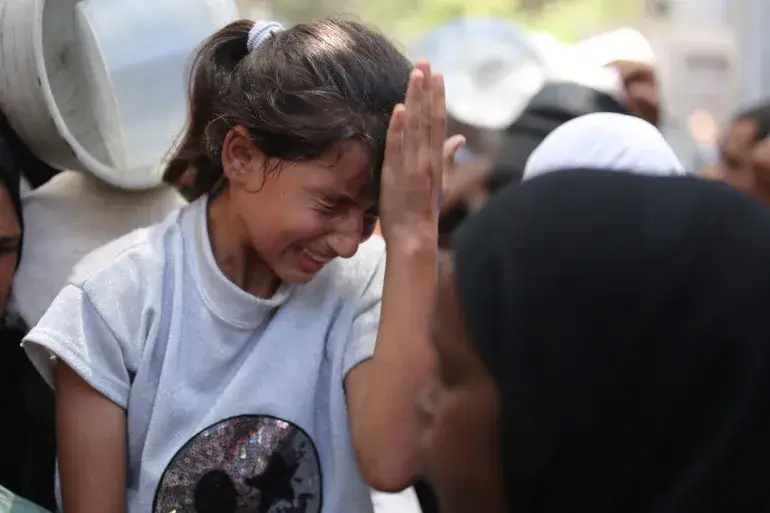
Northern West Bank Operations
- Demolitions continue in Tulkarm and Nur Shams refugee camps. On 7 July, Israeli forces began demolishing homes in Tulkarm Refugee Camp, despite a 2 July Israeli Supreme Court injunction that temporarily froze demolition orders issued on 30 June (following a petition by 11 residents from Tulkarm Camp), which targeted 104 residential buildings. In Nur Shams Camp, residents near the camp reported that a building was set on fire by Israeli forces within the camp. Two days earlier, on 5 July, Israeli forces informed residents of 54 buildings – housing at least 200 households – that they could briefly retrieve belongings. On 6 July, the Palestinian General Authority for Civil Affairs coordinated with the Israeli military the access of residents between 14:00 and 18:00. During this time window, an Israeli military drone struck and injured a woman and a man as they were retrieving their belongings. On 6 July, the Court submitted an amended decision where the Israeli military could continue the demolitions in cases of “urgent combat needs or overriding security considerations.”
- Israeli forces continued conducting short-term operations in Nablus governorate. During these operations, Israeli forces shot and killed two Palestinians in Salem village (see above) and injured eight others, including one child. On 1 July, Israeli forces physically assaulted a child and injured three men during a raid in Sabastiya town, northwest of Nablus city. According to the municipality, Israeli forces imposed a curfew, and conducted searches in at least five homes, during which they reportedly broke furniture, physically assaulted and injured a girl and two men, and shot and injured one man. On 6 July, Israeli forces shot and injured three Palestinian boys who threw stones at Israeli military jeeps that were passing through Askar Camp, east of Nablus. Since 1 January 2025, about 40 per cent of Palestinians injured by Israeli forces in the West Bank have been recorded in the Nablus governorate.
Funding
- As of 8 July 2025, Member States have disbursed approximately US$738 million out of the $4 billion (18 per cent) requested to meet the most critical humanitarian needs of three million out of 3.3 million people identified as requiring assistance in Gaza and the West Bank, including East Jerusalem, in 2025, under the 2025 Flash Appeal for the OPT. Nearly 88 per cent of the requested funds are for humanitarian response in Gaza, with just over 12 per cent for the West Bank. Moreover, during June 2025, the oPt Humanitarian Fund managed 122 ongoing projects, totalling $70.1 million, to address urgent needs in the Gaza Strip (87 per cent) and the West Bank (13 per cent). Of these projects, 58 are being implemented by international non-governmental organizations (INGOs), 48 by national NGOs and 16 by UN agencies. Notably, 42 out of the 74 projects implemented by INGOs or the UN are being implemented in collaboration with national NGOs. For more information, please see OCHA’s Financial Tracking Service webpage and the oPt HF webpage.
1559.


9 juli 2025

This weekend, Israel issued a sanctions list that targets 50 individuals. At the very top of this list are the Hind Rajab Foundation (HRF), Chairman Dyab Abou Jahjah and co-founders Karim Hassoun and Haroon Raza, followed by three lawyers who have worked with the HRF.
The timing for this escalation is not a coincidence. It comes following the success of our legal filing in Peru in May this year, where, for the first time, a criminal investigation against an Israeli national was formally initiated.

Across the globe, the HRF is at the forefront of a historic wave of legal actions, calling for accountability for war crimes committed against the Palestinian people. Israeli officials, military leaders, and soldiers alike are being pursued in over 40 countries for violations of international law.
The Israeli government is having to reallocate millions of dollars from its national budget to defend those accused of war crimes – money that they could be spending on weaponry, the military and furthering their crimes against the Palestinian people. Israeli media have reported how the government is scrambling to hire lawyers, lobby foreign governments, and build legal teams—especially in countries where they've never faced accountability before.

HRF has reliable information that this is just the beginning. We are expecting a large-scale Hasbara (propaganda) campaign that aims to delegitimize the Hind Rajab Foundation, sow doubt, and create confusion.
These threats are nothing new for the HRF and our leadership. On January 6, 2025, Israel's Minister for Diaspora Affairs and the Fight Against Antisemitism, Amichai Chikli, made what constitutes terrorist threats under Belgian law against HRF Chairman Dyab Abou Jahjah, also a Belgian national. The clear intent was to threaten and intimidate Mr. Abou Jahjah and suppress the foundation's advocacy for justice and accountability for war crimes.
"Hello to our human rights activist. Watch your pager,"
Chikli's message on social media, "Hello to our human rights activist. Watch your pager," referencing Israel's detonations of 5,000 pagers across Lebanon in September 2024 that killed 12 people - including 2 children and 2 healthcare workers and injured at least 2,800 people. An attack that could "constitute war crimes of murder" according to UN human rights experts. Fortunately, the Belgium justice system upheld the rules of international law by refusing to grant Chikli immunity from arrest if he visits Belgium, based on a complaint filed against him by Mr. Abou Jahjah and the Hind Rajab Foundation - a clear warning to those who believe they can continue to act with impunity.
SPREAD THE WORD - THEY WANT TO SILENCE US
The legal system is beginning to do what politics has failed to: hold power to account. It is now unmistakably clear who Israel sees as a serious threat to its impunity—and who it seeks to silence.
While Israel scrambles to defend the indefensible, we will remain focused on justice. Every case filed, every courtroom entered, brings us one step closer to the accountability long denied to Palestinian victims.
We will not be intimidated. We will not be divided.
In solidarity & strength,
The Hind Rajab Foundation
PLEASE SUPPORT OUR WORK

1558.


9 juli 2025


BRICS condemns attacks on Iran, Gaza war, Trump tariffs
Bloc takes firm positions at summit on key global conflicts while avoiding criticism of Russia for the Ukraine war.
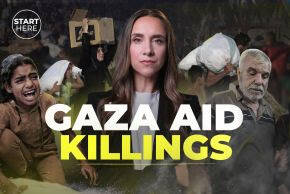
WATCH: Why are people being killed while seeking aid in Gaza
Hundreds shot dead while trying to get food from Israeli- and US-backed aid hubs.

The Take : Netanyahu meets Trump: Could a Gaza ceasefire deal emerge?
What does Netanyahu’s latest US visit mean for Palestinians in Gaza?
1557.


9 juli 2025
Today's headlines
How the Wall Street Journal fell for the trap of the Hebron ‘emirate’
Qassam Muaddi

The Wall Street Journal would have you believe its report on a "sheikh" who wants to form a Hebron "emirate" under Israeli control, is a groundbreaking political revelation. But anyone with basic knowledge of Palestine will tell a different story.
Eyewitness accounts at U.S.-run Gaza aid site say accusations of Hamas attacking GHF employees are fabricated
Tareq S. Hajjaj

After the U.S.-run Gaza Humanitarian Foundation accused Hamas of attacking two American employees at its distribution center, eyewitnesses and local journalists say the GHF fired grenades on the crowd first before aid-seekers threw them back at them.
1556.

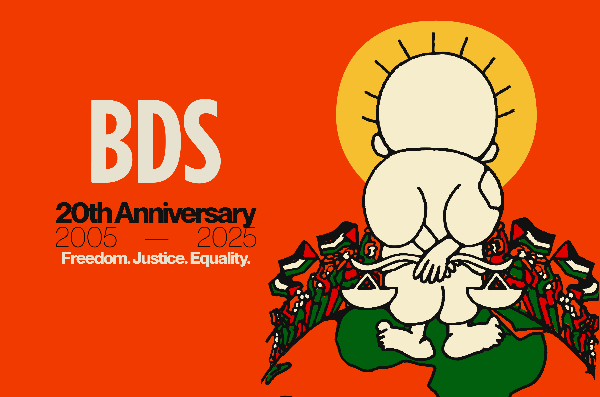
8 juli 2025
Today, we mark a milestone in the liberation struggle of the Indigenous people of Palestine, as the Palestinian-led nonviolent, anti-racist BDS movement completes 20 years of grassroots organizing and building intersectional people power.
In the midst of Israel’s livestreamed genocide against 2.3 million Palestinians in the occupied and besieged Gaza Strip, we are too grieved and too enraged to celebrate the phenomenal BDS impact. But we owe it to every single Palestinian, especially our people in Gaza, to reaffirm our unbreakable commitment to march on until Israel’s regime of oppression is dismantled.
This obliges us to recognize and share with the world the immense people power we have collectively built over these two decades and the many milestones we have reached towards isolating genocidal Israel as a rogue state that threatens humanity at large.
On the 20th anniversary of the BDS movement, we have much to share, but we’ll highlight only 20 of the most inspiring impacts the movement has achieved, or contributed to, in coalition with and active participation of our cherished global partners and allies.
BDS works! Get inspired by 20 of our most powerful impacts.
The BDS movement has created an unprecedented level of global solidarity coordination and pressure to end Israel’s impunity and global complicity in its crimes.
The legendary resistance and resilience (sumud) of our people, especially in Gaza, but also in Jerusalem, Jenin, Akka, Haifa, and in refugee camps across historic Palestine and in exile, nourish our hope and boundless determination.
We must escalate pressure and peacefully disrupt all forms of complicity to contribute to ending Israel’s unspeakable genocide and to dismantling its regime of settler-colonial apartheid. Only then, can we enjoy freedom, justice, equality, and what Desmond Tutu calls “our full menu of rights.”
Share our20 impacts on social media now!
1555.


8 juli 2025
Gaza Humanitarian Response Update
22 June - 5 July 2025

An aid worker standing in front of a truck carrying fortified wheat flour to people in Gaza. Photo by the World Food Programme.
Food Security Sector (FSS)
Response
- As of 6 July, 269,000 meals were prepared and delivered by 12 partners through 84 kitchens, including 105,000 meals in northern Gaza and 164,000 meals in central and southern Gaza. The increased number of operational kitchens does not directly correspond to increased meal production as output largely depends on the size and available supplies at each kitchen.
- Considering the severe shortage and unaffordability of cooking fuel, partners have set up community clay ovens for bread baking, hired women as bakers, and supplied firewood to more than 30 sites. Partners’ assessments will inform the establishment of additional sites.
- Between 26 and 30 June, partners assisted about 13,000 households with food assistance. Distributions took place across Gaza but were extremely limited in Gaza city given the small volume of stocks that entered through Zikim crossing.
- After truckloads of food were forcefully intercepted by armed groups on 25 June, WFP, supported by OCHA and community leaders, recovered 51 per cent of the diverted commodities and distributed the aid. The remaining supplies were reportedly rerouted by armed groups and hit by an airstrike on 27 June.
Challenges
- The current volume and pace of deliveries remain critically insufficient to meet the needs of Gaza's entire population, who are facing deteriorating high levels of acute food insecurity. Consistent, frequent, large-scale deliveries through multiple crossings are urgently required to meet needs and stabilize availability, pricing, and affordability of wheat flour and other basic staples as well as reduce tensions and rebuild trust within communities. All UN-supported bakeries remain closed.
- The lack of fuel is severely constraining the ability of partners to sustain operations, including cargo collection, distributions, and kitchen operations.
- Attacks on people attempting to collect food supplies along humanitarian aid convoy routes or from militarized distribution sites continue to be reported, resulting in mass casualties. According to the Ministry of Health (MoH) in Gaza, since 27 May and as of 7 July, casualties among people trying to access food supplies have increased to 758 fatalities and more than 5,005 injuries.
- An increase in incidents of organized looting and secondary theft is severely constraining food delivery and distribution and posing significant risks to the population and humanitarian partners. As a result, on 4 July, key FSS partners have again paused the collection of cargo from crossings until further notice.
- The current absence and denied entry of veterinary kits, including insecticides, are preventing vector control to address ectoparasite infestation, aggravating public health risks.
- Security conditions have also severely affected partners’ storage capacities, preventing access to many functioning storage facilities in the Gaza Strip.
Water, Sanitation and Hygiene (WASH)
Response
- During the reporting period, WASH partners continued to distribute water through trucking, albeit at reduced volumes, primarily due to the lack of fuel. Between 22 June and 5 July, based on available data, 27 WASH Cluster partners distributed a daily average of 17,045 cubic metres of drinking water to 1,357 water collection points, compared with a daily average of 22,000 cubic metres distributed to 1,914 water collection points in the preceding two weeks.
- Building on the findings of a recent study on chlorination effectiveness in Gaza, the WASH cluster in collaboration with the World Health Organization (WHO), the Palestinian Water Authority, and the Coastal Municipalities Water Utility conducted the first Chlorination in Emergencies training to 35 WASH Cluster partners on 2 and 3 June. The training provided practical orientation for field staff and supervisors to enhance knowledge about how to conduct chlorination, the water safety chain, emergency water standards, and monitoring water quality.
- A WASH partner has established a new drinking water production point in central Gaza city, using reverse osmosis treatment units to pump water from a well. It currently provides about 550 cubic metres of drinking water per day area residents, including internally displaced people (IDPs), with plans to expand the volume to 750 cubic metres (full capacity).
- In June, the WASH Cluster together with partners, developed a communication brief to support advocacy on the impacts of reduced fuel supplies on the WASH response.
Challenges
- The continued blockade on the entry of fuel into Gaza is severely restricting WASH services, with devastating impacts on public health, such as a rise in waterborne diseases and preventable deaths. Throughout May and June, WASH partners received only 25 per cent of the fuel required to sustain effective emergency operations. This has resulted in shorter pumping hours, reduced water production and delivery rates, limited solid waste collection, and sewage pumping being restricted to areas at high risk of flooding (e.g. Sheikh Radwan pond).
- As of 4 July, 80 per cent of WASH assets and facilities now fall within the Israeli-militarized zone or in areas that have been placed under displacement orders (often overlapping) since 18 March. This includes 97 out of 121 desalination plants (80 per cent), 52 out of 58 water reservoirs (90 per cent), 302 out of 392 water wells (77 per cent), and 58 out of 70 wastewater pumping stations (83 per cent). Overall, at present, WASH actors are only able to produce from water wells, Mekorot lines and desalination plants less than 50 per cent of the water produced during the ceasefire period in February.
- Hygiene items – including hygiene kits and cleaning supplies essential for protecting public health – have been denied entry since the end of the ceasefire. While these items are theoretically approved, the details regarding permissible content and authorized entry routes remain unclear. As such, no hygiene items have entered since 2 March.
- The lack of water and hygiene items are constraining the ability of WASH partners to improve household-level WASH services and aggravating public health risks. Currently, 39 per cent of reported illnesses are linked to acute watery diarrhea (AWD).

Health
Response
- As of 7 July, a total of 21 emergency medical teams (EMTs), including two national and 19 international EMTs, were operational across Gaza, down from 27 during the ceasefire.
- During the reporting period, WHO facilitated the entry of 27 trucks carrying 238 pallets of medical supplies, including 10 pallets of cold chain items comprising 1,396 blood units and 1,550 plasma units supplied by the Ministry of Health in the West Bank. Delivered blood units are estimated to meet needs for seven to 10 days, while the plasma supplies are expected to last for about a month.
- On 2 July 2025, WHO completed the medical evacuation of 23 patients, including 19 children, and 46 companions to Jordan and Türkiye for specialized care.
- During the reporting period, UNFPA distributed five types of reproductive health kits, along with oxytocin (used to induce labour and prevent or manage postpartum hemorrhage), to six partners in Khan Younis, Deir al Balah and Gaza city, enabling care for approximately 3,050 women.
- During the reporting period, WHO conducted a training session on integrated maternal and child illnesses for 23 healthcare providers in Gaza city.
- UNRWA is providing approximately 800 consultations weekly for women and girls across Gaza.
- Health partners continue to adapt services due to ongoing hostilities and the issuance of displacement orders. For example, an INGO has relocated all rehabilitation activities from Nasser Medical Complex to a field hospital in Deir al Balah.
Challenges
- Hospitals are under severe strain, facing critical shortages of fuel, medicines, and medical supplies, as well as blood and blood products. Overwhelmed by the surge in trauma cases, emergency departments at hospitals and field hospitals are full and the bed occupancy rate has surpassed 100 per cent, with some facilities forced to convert standard inpatient units into makeshift Intensive Care Units (ICUs), often without adequate Infection Prevention and Control (IPC) measures. This has forced many patients to stay in emergency departments while waiting for inpatient beds or becoming stuck in operating theaters due to the lack of post-operative care capacity.
- Access to Nasser and Al Amal hospitals has been intermittent due to their location in areas placed under displacement orders. As a result, other hospitals in Khan Younis and Deir al Balah are experiencing a growing load of childbirths while facing shortages in delivery beds, cardiotocography (CTG) monitors, and other essential equipment.
- Overcrowded shelters, limited access to clean water, poor sanitation, and rising malnutrition due to food scarcity, are contributing to weakened immunity, increased morbidity, and a rise in water-borne and other diseases.
- Cases of AWD comprise 39 per cent of all reported illnesses. New cases of bloody diarrhea and acute jaundice syndrome have also been reported at overcrowded displacement sites.
- Inadequate nutrition and poor hygiene have contributed to adverse maternal and neonatal outcomes, including anemia, infections, and high-risk pregnancies.
- A total of 484 suspected meningitis cases were reported across the Gaza Strip in June 2025. While seasonal peaks in meningitis are typically observed during June and July, the current surge is significantly higher than in previous years. Khan Younis and Gaza city remain the most affected governorates, reporting the highest number of suspected cases. At the same time, accurate case classification has been challenging due to limited access to tests that can confirm the diagnosis or identify the bacteria causing the disease.
- Rehabilitation services have been scaled back across all levels – from outreach and primary healthcare to specialized facilities – due to critical shortages of rehabilitation consumables and assistive devices.
- The small number of available ambulances and the lack of fuel have limited the timely availability of ambulances for obstetric emergencies.
Protection
Response
- During the reporting period, Gender-based violence (GBV) Area of Responsibility (AoR) partners:
- Provided 500 women with individual counselling to promote the well-being and recovery of survivors, and 80 GBV survivors with cash assistance.
- Continued to manage support for 2,987 women and girls at 17 Women and Girls Safe Spaces (WGSS) across the Gaza Strip, including 587 women in Gaza city, Deir al Balah and Khan Younis governorates who were reached with therapeutic activities (e.g. painting) and awareness raising sessions on GBV, sexual and reproductive health (SRH) and Prevention of Sexual Exploitation and Abuse (PSEA).
- Organized sessions on non-violence and active male engagement in GBV prevention, reaching 685 men and boys in Deir al Balah and Khan Younis governorates.
- Held community dialogue sessions on GBV concerns with 155 men and 100 women in Deir al Balah and Gaza city, promoting a collective approach to GBV prevention and mitigation.
- Between 24 and 26 June, the GBV AoR conducted online capacity-strengthening sessions for all 20 active GBV case-workers to enhance their skills in delivering survivor-centered support to GBV survivors.
- Published a GBV Trends Analysis, covering April and May, to bring attention to a range of GBV risks, including a rise in intimate partner violence, which are largely fueled by stress and tensions linked to food scarcity and economic hardship.
- During the reporting period, UNRWA's protection teams carried out 26 protection observations, 32 key informant interviews and 42 focus group discussions (FGDs) in Khan Younis (including Al Mawasi), Deir al Balah and Gaza city. UNRWA has continued to facilitate referrals to specialized services and distribute limited in-kind assistance; due to the depletion of supplies, only seven people received material support (e.g. sanitary pads, baby diapers, toilet paper, soap), down from 236 in the preceding two weeks. Additionally, UNRWA teams conducted 110 awareness-raising sessions between 13 and 26 June on child protection, Explosive Ordnance Risk Education, mental health and psychosocial support (MHPSS) and PSEA, reaching 2,289 displaced people.
- During the reporting period, Child Protection (CP) AoR partners reached over 30,000 children and caregivers through direct service provision and community outreach, including:
- Delivered MHPSS services to more than 3,600 children and 2,500 caregivers.
- Organized recreational and community-based activities, such as safe play, peer group sessions, and community initiatives to strengthen social bonds and promote emotional well-being, reaching over 1,200 children.
- Provided case management and emergency care to about 60 children, including unaccompanied, separated, injured, or exploited children. A total of 32 children were reunified with their families in coordination with health and other sectors.
- Carried out community-based child protection and psychosocial activities at 32 locations across Gaza, reaching over 21,500 caregivers and community members with key messages on the prevention of family separation, child safety at distribution points, explosive ordnance risks, and hotlines for missing or at-risk children.
- On 24 June, the CP AoR conducted an online, four-hour refresher training on CP information management plus for 75 CP case workers across Gaza, aimed at strengthening their capacity in effective case management.
Challenges
- Displaced communities across the Gaza Strip continue to face significant protection risks due to acute insecurity, repeated displacement and overcrowded living conditions, and critical shortages of adequate shelter, non-food items (NFIs), dignity kits, hygiene items, food, water and medications. Risks include: widespread psychological distress, among adults and children alike; heightened risks of GBV, including harassment and intimate partner violence; and growing vulnerability of children to exploitation, including child labor and neglect. Older persons and people with disabilities are among the most at-risk, often unable to access services or assistance due to mobility challenges and other structural barriers.
- Fuel shortages remain a significant challenge for both GBV and CP partners, severely hindering mobility, the transport of materials and the ability to reach remote or newly displaced communities, thereby constraining the implementation of outreach, awareness-raising and case management activities. With frontline staff conducting outreach and case management on foot, some operations have been scaled back and many staff report feeling demoralized and hungry themselves.
- Severe insecurity continues to undermine CP efforts across Gaza. In Gaza city, services at one Child Friendly Space located at Al-Samer Clinic were suspended after nearby shelling posed an immediate threat to children, families, and staff. In Khan Younis, operations at a WGSS were suspended following a violent family conflict that raised serious safety concerns. In northern Gaza, two temporary CFSs in Al Zaytoun area of Gaza city were destroyed in direct strikes, resulting in the tragic death of a child protection facilitator. These incidents highlight the extreme risks facing both children, their families, and frontline workers, and the urgent need for enhanced protection measures and safe humanitarian access.
- Alternative care providers continue to face overwhelming challenges due to critical shortages in shelter capacity, food, clean water, fuel for basic operations, and cash liquidity – particularly for families providing kinship care. Children with disabilities face heightened risks due to the lack of assistive devices, inclusive services and accessible infrastructure.
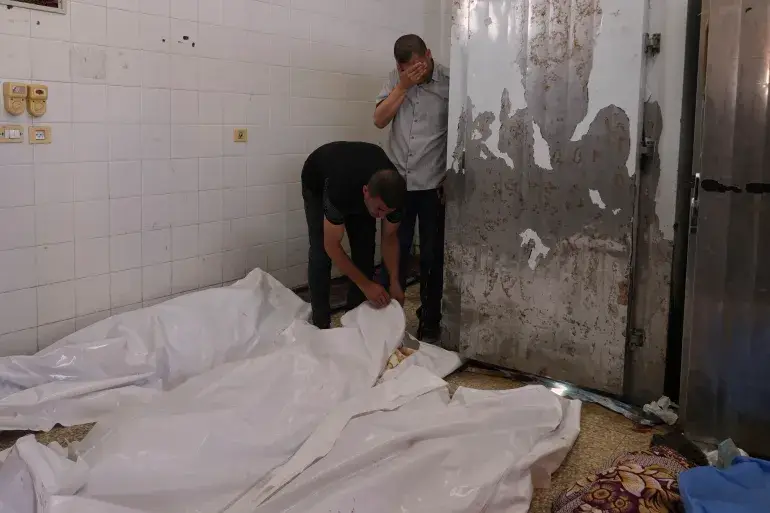
Education
Response
- As of 30 June, there are 298 functional Temporary Learning Spaces (TLS), serving approximately 113,000 learners, including: 106 TLS in Gaza city, 93 in Deir al Balah, 91 in Khan Younis, eight in North Gaza and none in Rafah. Currently served students comprise 17 per cent of the 658,000 children in need of educational support. Compared with the end of May, there was an increase of 78 TLS, which is attributed to the reopening of TLS that had been suspended and then re-opened due to security concerns, including displacement orders.
- Two Education Cluster partners are currently preparing to provide the Ministry of Education and Higher Education with technical and logistical support to facilitate the administration of the General Secondary Education Examinations (Tawjihi) in the Gaza Strip for the first time since October 2023. A pilot exam, targeting 1,500 students, will be held between 17 and 19 July. In the event that a ceasefire takes effect, the remaining 90,000 students will take the exams. Given the exceptional circumstances, they will be conducted online in three phases, starting in July, to ensure access for all eligible students from the past two academic years. The Cluster is also mapping TLS to identify those suitable as venues for administering the exams.
Challenges
- Attacks on schools continue to cause additional damage to the already fragile education infrastructure. During the reporting period, 14 attacks on schools have been recorded across the Gaza Strip, affecting 11 public and three UNRWA schools and resulting in casualties among displaced civilians, including children, who were sheltering in school buildings. The incidents included 10 that involved airstrikes, two drone strikes, and two shelling. Of the total, 11 occurred in Gaza city, two in North Gaza and one in Deir al Balah.
- As of 1 July, the Ministry of Education (MoE) reports that at least 15,811 students and 703 education personnel have been killed, while 23,612 students and 3,15 education staff have been injured, many with lifelong physical or psychological impacts. These figures further underscore the devastating impact of the ongoing crisis on the education sector, including students and staff, severely undermining efforts to maintain and restore safe learning environments for children.
- During the reporting period, seven displacement orders forced the suspension of 41 functional TLS supported by 447 teachers and serving approximately 15,000 learners, marking a setback in expanding access to learning and MHPSS. Since 22 June, 85 TLS have closed in total, disrupting access to learning for more than 33,000 learners.
- The ongoing critical fuel shortages in Gaza continue to disrupt education response in Gaza. Partners are unable to transport water to TLS and mobile assets, such as tents. Staff movement for monitoring and supervision of TLS has also been significantly limited, so were group activities that require powered equipment, such as loudspeakers. Moreover, recurrent internet connectivity outages are limiting children’s remote learning opportunities.
- Funding for the education response remains critically low, with less than 10 per cent of the 2025 Flash Appeal requirements met. The Education Cluster urges donors to increase their support, particularly ahead of any potential ceasefire, to facilitate a scale-up of the response. Immediate priorities include expanding TLS, providing teacher incentives, and facilitating the entry of essential education supplies, many of which remain stuck at crossings awaiting approval for entry into Gaza.
Shelter
Response
- During the reporting period, a Shelter Cluster partner distributed 116 emergency shelter kits (ESKs), including framing kits, tool kits, sealing-off kits, and solar lamps, reaching 116 households in Al-Mawasi, in Khan Younis. These distributions included the last available ESKs in the central and southern areas. One partner distributed clothing vouchers to help 1,000 newly displaced households in Gaza city purchase adult and children's clothing available in local shops.
- During the reporting period, one partner conducted a remote assessment of 33 displacement sites by phone due to safety concerns. The assessment highlighted that tarpaulins, hygiene kits, and tents remain the top three priority needs after food and water. In 97 per cent of the assessed sites, some people are sleeping in the open without any form of shelter protection, reaching up to 20 per cent households in certain locations. The critical need for latrines was also underscored by the key informants. Additionally, key informants at 75 per cent of the assessed sites reported that they do not have sufficient space to set up new shelters or tents.
- During the reporting period, the Shelter Cluster and the Norwegian Refugee Council’s (NRC) NORCAP programme published a new report revealing the devastating impact that the absence of reliable energy has on daily life and essential services in Gaza.
Challenges
- Most of the shelter items distributed in Gaza, such as tents, have a short lifespan of only three to six months, creating a repetitive cycle of demand for shelter assistance. This is further compounded by repeated waves of forced displacement, often resulting in the loss or abandonment of essential shelter items. As a result, and despite previous aid distributions, unmet shelter needs remain widespread across the Gaza Strip. An estimated 1.3 million people require emergency shelter items, while around 1.3 million people are estimated to require household items, according to the most recent assessment by the Shelter Cluster conducted in July (see dashboard).
- Ongoing displacement continues to drive growing needs for shelter assistance and NFIs while available resources remain scarce. Many people have been forced to flee without their belongings and have sought shelter in every possible space, including in already overcrowded displacement camps, damaged buildings, streets and open areas, leaving their shelter needs largely unmet.
- The inability to bring in shelter items and NFIs through crossings since 2 March, prohibitively expensive shelter items that remain available in limited quantities on the market, and overcrowded displacement settings are further constraining response efforts. This is exacerbated by ongoing airstrikes targeting displacement sites, repeated displacement orders, social tensions and unrest, and the displacement of many aid workers. Movement restrictions and insecurity are also limiting the ability of partners to access people in need in some areas.
- The immense needs far outweigh available resources, complicating prioritization efforts during aid distributions and contributing to tensions within communities.

Logistics
Response
- The Logistics Cluster team continues to coordinate with partners to submit the daily truck manifest to the Israeli authorities.
- During the reporting period, the Logistics Cluster facilitated the transport of one truck from Jordan via the Back-to-Back (B2B) convoy modality to Kerem Shalom/Karem Abu Salem crossing. The Cluster B2B transport service from Amman, provided at no cost to users, has been extended until 31 July. Future extensions will be considered based on evolving operational conditions and authorizations.
- During the reporting period, the Cluster facilitated the transport of 25 trucks inside Gaza from Kerem Shalom/Karem Abu Salem on behalf of one partner. Transport and storage services at no cost for users inside Gaza are available to all partners, subject to security conditions.
Challenges
- Although Israeli authorities have confirmed there is no restriction on the number of trucks that can be included in the daily manifest, the list of permitted items remains unchanged, including limited health, nutrition, food, water treatment items, and hygiene kits. Additionally, the number of authorised organisations permitted to deliver cargo remains restricted, limiting the flow of aid.
- Despite Israeli authorities’ approval of the movement of certain medical items from the West Bank to Gaza on 19 June, the crossings in the West Bank designated for use are frequently closed. As a result, during the reporting period, only three out of seven attempted movements via the West Bank route were able to cross and offload health supplies at the Kerem Shalom/Karem Abu Salem crossing.
- Cargo positioned in the Egypt corridor continues to be denied entry into Gaza. As of 30 June, 687 trucks for UN and international NGOs, 57 per cent of which carry food supplies, are in Al Arish.
- Fuel shortages and connectivity disruptions continue to hamper operations, including cargo pick-up, coordination, and information sharing.
Emergency Telecommunications (ETC)
Response
- The ETC continues to coordinate with telecommunications operators and relevant authorities to ensure safe access by technical teams to carry out the necessary repairs of fiber cables as needed. On 7 July, a telecommunication service provider confirmed that the Erez fibre route was repaired, restoring connectivity reliability on this line. This follows the 27 June disruption that had left the Khan Younis route as the sole operational link. With the Erez line now functional, the risk of a total Internet blackout has been reduced.
- On 4 July, the ETC conducted a training session on strengthening the management of tracking devices and enhancing staff safety for six members of the UN-led Gaza Security Operations Centre (GSOC). This was the first of three planned sessions.
- For more information on ETC activities, please visit:Palestine: Conflict | Emergency Telecommunications Cluster (ETC) (etcluster.org).
Challenges
- As of 7 July, telecommunications and internet service providers reported critically low fuel reserves, with remaining supplies expected to be exhausted soon. Without the immediate entry of fuel and engine oil to operate generators that power key infrastructure, telecommunications services are expected to shut down, with severe consequences for the continuity of humanitarian operations, staff safety and the ability of affected people to access lifesaving information and emergency services.
- Continued restrictions on the entry of aid and other essentials have hindered the import of critically needed Information and Communications Technology (ICT) equipment. Combined with insufficient funding, this is severely constraining ETC's ability to deliver services needed to support humanitarian operations and access to life-saving information in Gaza.
Protection against sexual abuse and exploitation (PSEA) remains a cross-cutting priority for all clusters. Aid distribution must be delivered with dignity and respect. Any wrongdoing can be reported through SAWA’s toll-free number 164. SAWA will assist and provide services free of charge and with the utmost confidentiality.
To promote accountability to affected people, the online Humanitarian Service Directory provides information on aid services, helplines, and key messages, and is available via hyperlink and QR code.
1554.


7 juli 2025
The world is moving on, but Israel refuses to change
This week, Zohran Mamdani’s victory as New York City’ as the’s Democratic nominee for mayor was certified, handing a decisive defeat to the political establishment, corporate donors, and the mainstream media. The New York Times launched an all-out smear campaign against Mamdani, and prominent Democrats refused to endorse him. Some even spread lies and Islamophobic fear-mongering in the final days of the race. But none of it worked, because the public is changing, even if the institutions that claim to represent them are not. As Phil Weiss reported, the Times’s failure to grasp the depth of anti-genocide sentiment among Democratic voters reveals just how out of step elite opinion has become. And Michael Arria documented the lengths to which Mamdani’s opponents went, proving once again that smear campaigns are no match for a movement grounded in justice.
Mamdani’s victory reflects a growing political reality that has been years in the making. People across the United States are no longer willing to support politicians who justify or ignore Israel’s apartheid system. The Democratic base is overwhelmingly opposed to Israel’s genocide in Gaza and the U.S. support of it. That opposition is beginning to appear at the ballot box. That opposition, and even anger, isn’t confined to “activist circles” anymore. It’s finally beginning to reshape U.S. politics on this issue.
As I write this newsletter, there is a chance that conditions in Gaza may improve, at least temporarily. Reports suggest a 60-day ceasefire could be within reach, during which humanitarian aid would finally be allowed in, coordinated by the United Nations and the Palestinian Red Crescent. Of course, it is obscene that Palestinians must rely on fragile deals to receive the bare minimum of humanitarian relief. But a sustained pause in Israel’s assault could save lives, and it’s being driven by the very pressure Israel and its U.S. backers are struggling to contain.
That pressure isn’t just diplomatic, it’s political. On Monday, Donald Trump and Benjamin Netanyahu will meet to discuss how to "reshape the Middle East." Their vision includes disarming resistance groups, expanding normalization deals with authoritarian regimes, and crushing the possibility of Palestinian freedom. It’s a strategy that’s increasingly out of step with global opinion.
But while people around the world are waking up to the truth about Israel’s abhorrent behavior, the Israeli public is moving in the opposite direction. A recent Hebrew University poll shows that a vast majority of Jewish Israelis now believe there are "no innocent people in Gaza." Let that sink in. This is not a fringe position; it’s a consensus view in Israel today. And it’s horrifying.
It also signals something deeper: Israelis are living in a completely separate reality. In the United States, support for Israel has collapsed among key demographics, especially young people and people of color. The images and stories coming out of Gaza are shifting public opinion faster than most establishment leaders can process. Yet in Israel, public opinion is marching in lockstep with a government carrying out ethnic cleansing in real time.
This disconnect matters. It shows why appeals to "shared values" or "peace processes" are so empty. Israeli society isn’t just indifferent to Palestinian life; it has been conditioned to deny it entirely. And as support for apartheid weakens in the U.S., Israel is doubling down, hoping it can outlast the outrage and maintain impunity with help from the White House and the political establishment in both the Republican and Democratic parties.
But Mamdani’s win is proof that something is changing. The ground is shifting under the feet of those who thought the old rules would always apply. A ceasefire in Gaza, even a temporary one, will not reverse the destruction. But it could mark the beginning of a new political era, where complicity comes with consequences and resistance comes with momentum.
David Reed, Publisher

Catch-up
Phil Weiss: The New York Times completely failed in its effort to upend Zohran Mamdani. They are unable to understand his wide support because they refuse to acknowledge the rage surging through the Democratic base over Israel’s genocide in Gaza.
Michael Arria: Despite his decisive primary victory and impressive campaign, many Democratic lawmakers are refusing to endorse Zohran Mamdani and are spreading baseless lies and smears in the process.
Hassan Herzallah: I have risked my life to get food from the Gaza Humanitarian Foundation centers in Gaza, where Israel opens fire on aid seekers from every direction. I have an impossible choice: slow death from hunger, or gambling my life for a chance of survival.
Qassam Muaddi: The Palestinian communities of Masafer Yatta have been in Israel’s crosshairs for 40 years. Its inhabitants now fear that a recent Israeli military order is a bid to expel them from their lands once and for all.
Mohammad Hesham Huraini: A recent Israeli military order threatens to displace 1,200 Palestinians from our homes in Masafer Yatta, but we refuse to be erased.
Jonathan Ofir: A Hebrew University poll shows an overwhelming majority of Jewish Israelis agree with the genocidal idea that there are “no innocents in Gaza.”
Carrie Zaremba: Counterinsurgency against U.S. social movements has evolved since the 1960s. What was once the exclusive domain of state agencies has now been privatized. This is seen perhaps most clearly in the ongoing campaign to neutralize the Palestine movement.
The Mondoweiss Podcast: What really happened during the so-called “12-Day War” between Israel, the U.S., and Iran — and why it’s not about nuclear weapons.
John Klopotowski: Much of my family left Turkey after my great-grandfather was murdered in the Armenian Genocide. Turkey, Israel, and many other countries still deny that this genocide occurred. It’s a denial that enables genocides like that in Gaza to take place today
1553.


7 juli 2025
Readers’ Recommendations
- BCG modelled plan to ‘relocate’ Palestinians from Gaza (Financial Times)
- Israeli settlers attack German journalists reporting on West Bank violence (Middle East Eye)
1552.


9 juli 2025
The precedent is set: justice-aligned organizations must cut ties with those who undermine it
American Muslims for Palestine (AMP) congratulates and commends the National Education Association (NEA), a 7,000-member policymaking body, for voting to cut all ties with the Anti-Defamation League. This decision reflects a growing refusal to compromise on values of justice, equity, and liberation, especially from one of the nation’s most influential educators’ unions.
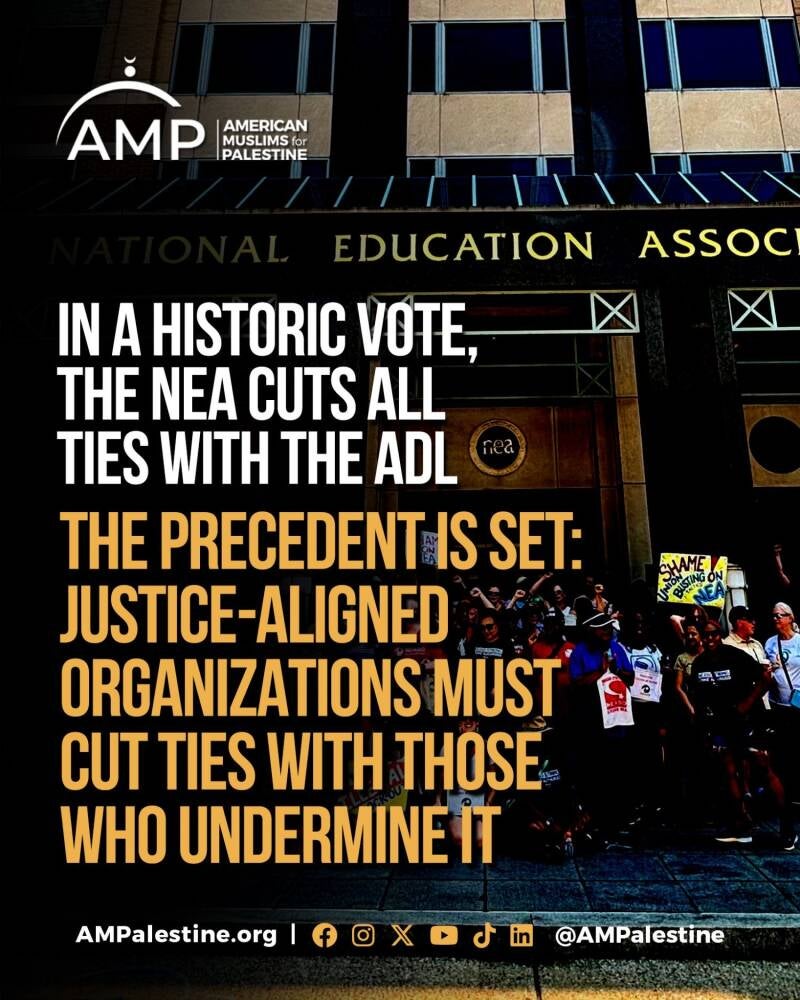
The ADL has a long and well-documented history of undermining social justice movements led by Black, Indigenous, and other communities of color, as well as immigrants, Muslims, and Arabs. Its partnerships with law enforcement, including Israeli military training for U.S. police officers, and its targeting of progressive movements have positioned the organization as a gatekeeper of state violence and colonial interests. As detailed in a report we published ten years ago, “The Anti-Defamation League: A History of Defending Israel at All Costs,” the ADL has routinely attempted to silence critics of Israel and has smeared activists working for Palestinian rights, while aligning itself with Islamophobic and anti-immigrant agendas. We’ve seen that front and center over the last two years amidst Israel’s genocide in Gaza. But this time, the ADL failed, completely, to suppress U.S. advocacy on Palestine or any other progressive issue. On the contrary, it went down, exposing itself during the early stages of the genocide.
Despite branding itself as a civil rights organization, the ADL has consistently aligned with police departments, right-wing figures, and the Israeli government, all institutions of systemic violence, while attempting to disguise its actions as “fighting hate.” Organizations that truly stand for justice and a democracy for all can no longer afford to partner with those who actively work against it.
This vote is a necessary and powerful step in breaking ties with institutions that undermine our collective liberation. We applaud the NEA for setting this precedent and urge other unions, civil rights groups, elected officials, and educational institutions to follow suit.
In solidarity,
American Muslims for Palestine
1551.


8 juli 2025
Readers’ Recommendations
- Israeli plan for forced transfer of Gaza’s population ‘ a blueprint for crimes against humanity’ (The Guardian)
- What readers clicked on most yesterday: BCG modelled plan to ‘relocate’ Palestinians from Gaza (Financial Times)
1550.


8 juli 2025
Today's headlines
The National Education Association just voted to cut all ties to the Anti-Defamation League
Emmaia Gelman

In a momentous vote, the National Education Association voted to cut all ties with the Anti-Defamation League. The reason? “Despite its reputation as a civil rights organization, the ADL is not the social justice educational partner it claims to be.”
‘New York Times’ Mamdani smear shows how out of touch the paper is with progressives, especially on Palestine
Philip Weiss
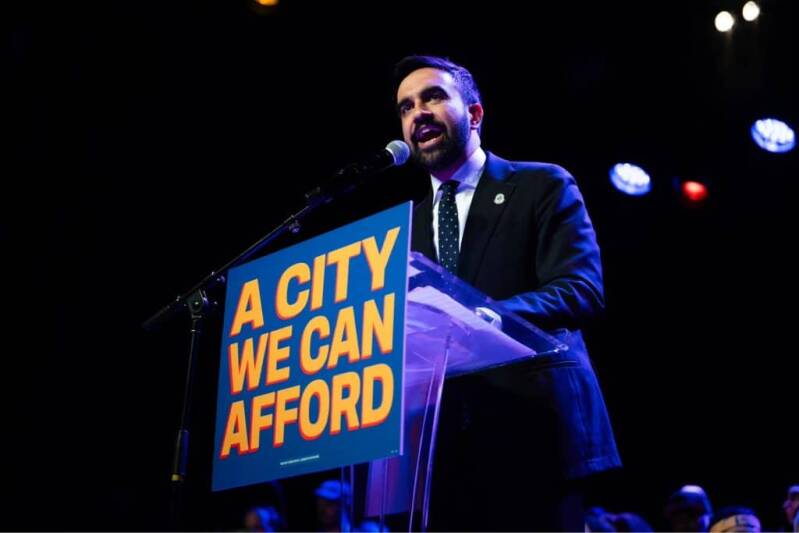
The New York Times's shocking race-science investigation into Zohran Mamdani shows the paper will stop at nothing to upend the progressive star. It is a clear sign of how the paper is stuck in the worst muck of the Israel lobby.
1549.


7 juli 2025
Today's headlines
New UN report reveals the companies getting rich off Israeli occupation and genocide
Jonathan Ofir

A new report from UN Special Rapporteur Francesca Albanese uncovers the economic interests benefiting from Israel's genocide in Gaza.
Every child is precious unless that child is Palestinian
Dina Elmuti
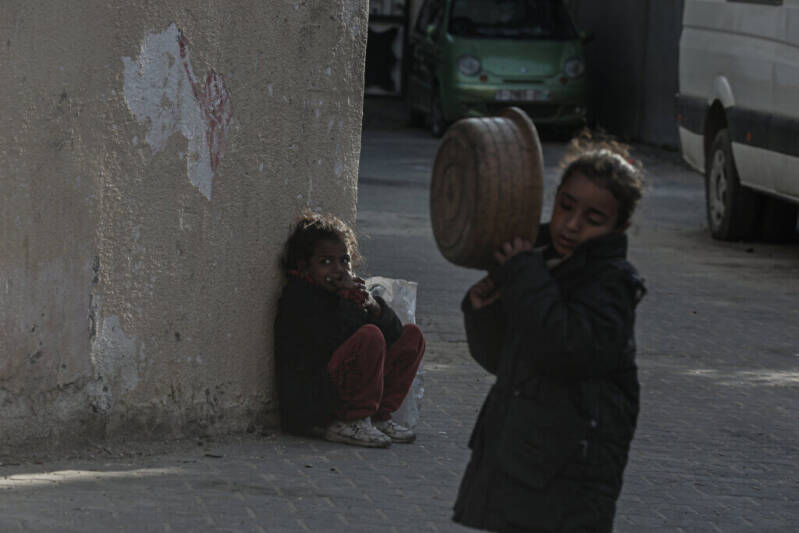
The world professes reverence for childhood, but hollow platitudes about universal children's rights aren't meant for the colonized.
1548.


1547.


6 juli 2025
Internationale bedrijven verdienen grof geld aan de vernietiging van Palestina, laat een nieuw rapport van VN-rapporteur Francesca Albanese zien. Deze bedrijven zijn medeplichtig aan de Israëlische bezetting en de genocide in Gaza, en kunnen strafrechtelijk worden vervolgd.
Rapporten over mensenrechtenschendingen
Sinds haar aanstelling als speciaal rapporteur voor de bezette Palestijnse gebieden drie jaar geleden, heeft Francesca Albanese een serie rapporten uitgebracht die de omvang van de mensenrechtenschendingen gepleegd door Israël in detail aan het licht brengen. Haar nieuwste rapport gaat in op de internationale structuren die schuilgaan achter die schendingen, en richt zich met name op de rol van bedrijven.
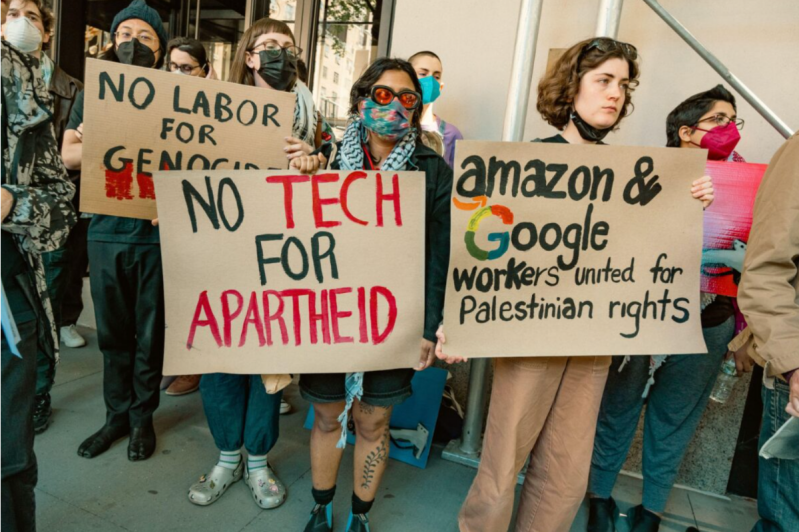
Medewerkers van Google, Meta en Amazon eisten in april 2024 dat de techgiganten hun banden met Israël verbreken. © Sipa USA / Alamy Stock Photo
De economische dimensie van genocide
Het rapport doet dat op baanbrekende wijze. Niet eerder is de economische dimensie van de genocide in Gaza zo duidelijk blootgelegd. Het laat zien hoe internationale bedrijven, die al decennia van groot belang zijn voor het instandhouden van de bezetting, zich na 7 oktober 2023 hebben ontpopt tot aanjagers van genocide.
‘Dit is niet business as usual’, schrijft Albanese op X. ‘[Mijn rapport] laat zien hoe bedrijven de vernietiging van Palestina hebben aangewakkerd en gelegitimeerd. Genocide, zo blijkt, is winstgevend. Dit kan niet doorgaan, er moet verantwoording komen.’
Analyse
Wat is de rol van techreuzen als Microsoft, Google en Amazon in de Israëlische genocide? En die van Nederlandse bedrijven en organisaties als Booking.com en Christenen voor Israël? En welke aanbevelingen doet Albanese om in te grijpen tegen Israël, en welke rol is daarbij weggelegd voor The Rights Forum?
Hier leest u onze analyse van het rapport voor een antwoord op deze en meer vragen.Wij strijden tegen oorlogsmisdaden, annexatie, bezetting en onderdrukking.
Helpt u mee?
Nee, ik steun The Rights Forum niet. Zolang TRF niet keihard in het veld treedt voor sancties jegens Israel
Ondanks genocide leggen ook Europese regeringsleiders Israël geen sancties op
Op donderdag 26 juni kwamen de regeringsleiders van de EU-lidstaten bijeen in de Europese Raad om te reageren op een recent EU-onderzoek. Uit dat onderzoek is gebleken dat Israël de mensenrechten schendt – en daarmee de voorwaarden van het EU-Israël Associatieverdrag.
Hoewel de EU-leiders het Israëlische geweld in Gaza en op de Westelijke Jordaanoever in hun conclusies scherp veroordelen, bleven concrete sancties uit. Vooral Ierland, Spanje en Slovenië drongen aan op opschorting van het Associatieverdrag, maar voor een groep landen, onder aanvoering van Duitsland en Hongarije, zijn sancties onbespreekbaar.

Demissionair premier Dick Schoof in gesprek met de Roemeense president Nicușor Dan tijdens de Europese Raad op 26 juni 2025.
Kallas aan zet
Het is nu aan EU-buitenlandchef Kaja Kallas, onder wiens verantwoordelijkheid het recentste rapport verscheen, om het sanctietraject voort te zetten. Zij zegde toe om druk uit te oefenen op de regering-Netanyahu om het Israëlische geweld te staken en ongelimiteerde humanitaire hulp tot Gaza toe te laten.
Blijft dat zonder resultaat, dan zal zij tijdens de volgende Raad Buitenlandse Zaken op 15 juli concrete voorstellen doen voor opschorting van (delen van) het EU-Israël Associatieverdrag. Of er dan voldoende steun bestaat voor die maatregelen, valt te betwijfelen.
Ondertussen gaat Nederland eenzijdige maatregelen tegen Israël overwegen als het er in de EU niet van komt. Dat zei demissionair minister van Buitenlandse Zaken Caspar Veldkamp deze week in de Tweede Kamer. Concrete stappen wilde hij niet noemen. ‘Daar heb ik nog niet over nagedacht’, zei hij.
Lees meer >
Lees ook:


Palestina-onderzoeker van het Internationaal Strafhof stapte op na bedreigingen
Anonieme dreigtelefoontjes, een kogelvrije deur en mogelijke bevriezing van zijn banktegoeden. Na een half jaar als Palestina-onderzoeker bij het Internationaal Strafhof kon advocaat Andrew Cayley de druk niet meer aan. Cayley omschrijft zijn periode bij het Internationaal Strafhof in Den Haag als 'de ergste maanden van mijn leven'.
Lees het artikel >
Linkedin-pagina van voorzitter The Rights Forum tijdelijk offline gehaald
Het Linkedin-account van de bestuursvoorzitter van The Rights Forum, Berber van der Woude, werd maandag zonder opgaaf van redenen offline gehaald. Dinsdag kwam het weer online. In het huidige klimaat van onderdrukking van Palestijnse en andere stemmen die zich uitspreken tegen de Israëlische genocide en bezetting, is het aannemelijk dat de opschorting van het account van Van der Woude géén technische fout is.
Lees het artikel >
Nieuw onderzoek | Bijna 100.000 doden in Gaza
Begin vorige week bracht het Gazaanse ministerie van Gezondheid een lijst met namen naar buiten. Daarop staan de persoonsgegevens van de 55.202 Palestijnen die tussen 7 oktober 2023 en 15 juni 2025 gedood werden.
Alleen 'directe' doden geteld
Maar het Gazaanse ministerie telt alleen de geïdentificeerde doden die zijn omgekomen door direct Israëlisch geweld. Ze houdt geen rekening met de tienduizenden die onder het puin liggen en ongeïdentificeerd blijven. Ook niet geteld worden de mensen die omkomen door de steeds minder leefbare omstandigheden in Gaza.
100.000 doden
Uit steeds meer onderzoeken van gezaghebbende medische bladen, wetenschappers en ngo's blijkt dat het werkelijke aantal doden daarom veel hoger ligt. Op basis van gedegen onderzoek berekenen zij dat het dodental van de genocide in Gaza de 100.000 nadert. Bijna honderdduizend individuen met elk een eigen verhaal, die door Israëls genocidale geweld van het leven beroofd zijn.
Het grote aantal veelal jonge slachtoffers maakt ook dat de levensverwachting dramatisch is afgenomen. Die is in de eerste twaalf maanden na 7 oktober 2023 met 35 jaar gedaald: van 75,5 naar 40,5 jaar.
Lees meer over de onderzoeken >
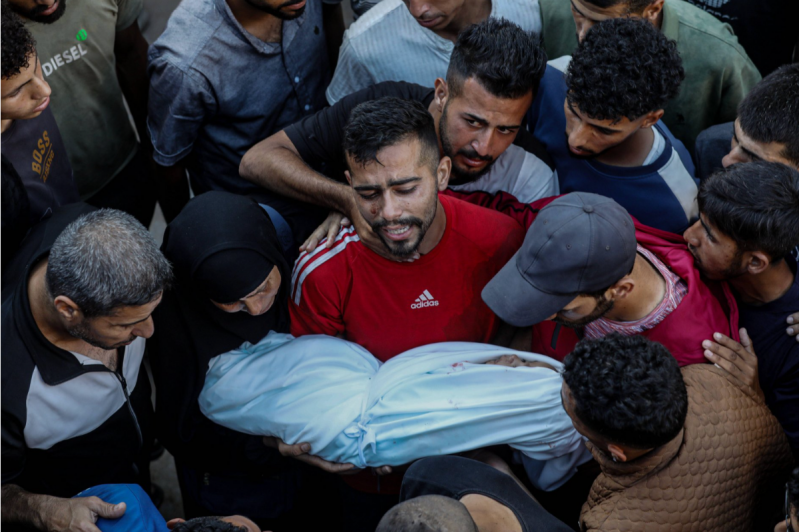
Palestijnen rouwen om hun vermoorde dierbaren na een Israëlische aanval in Gaza-stad, 19 juni 2025. © Imago / Omar Ashtawy apaimages / Alamy
Baby’s sterven in Gaza door Israëlische blokkade van melkpoeder
Eén van de belangrijkste oorzaken voor het grote aantal doden in Gaza is de inmiddels vier maanden durende Israëlische blokkade van hulpgoederen. Ook het melkpoeder voor pasgeboren baby's raakt op. Artsen waarschuwen daarom al lang dat baby’s hierdoor zullen overlijden. Die waarschuwingen zijn vorige week pijnlijk waarheid geworden.
Twee baby’s, de vijf maanden oude Nidal en de tien dagen oude Kinda, stierven vorige week in het Nasser-ziekenhuis in Khan Yunis aan ondervoeding. ‘Het probleem is door mensen gecreëerd. De oplossing is simpel. Laat hulp binnen’, zegt de Amerikaanse arts Aziz Rahman in het Nasser-ziekenhuis.
Honderden pasgeboren baby’s zullen volgen, zolang Israël geen hulp toelaat. Het Gazaanse ministerie van Gezondheid zegt dat 580 vroeggeboren baby’s in Gaza het acute risico lopen te sterven van de honger. Volgens Unicef werden er afgelopen mei ruim 5.000 kinderen in ziekenhuizen opgenomen vanwege ondervoeding, ten opzichte van 3.400 in april en 2.000 in februari van dit jaar.
Lees verder >
Petitie | VVD-leider Yeşilgöz: Wij veroordelen uw roekeloze ophitsing tegen zanger Douwe Bob
VVD-leider Dilan Yeşilgöz moet haar valse beschuldigingen aan het adres van zanger Douwe Bob intrekken en daarvoor excuses maken. De VVD moet zich van die beschuldigingen distantiëren. Dat zijn de eisen van een nieuwe petitie die is opgezet door Een Ander Joods Geluid.
'Wij veroordelen de roekeloze ophitsing van Dilan Yeşilgöz tegen zanger Douwe Bob. Dat de Telegraaf een dergelijke hetze voert, mag niemand verbazen. Dat de leider van de VVD dit doet, is stuitend en onverteerbaar,' aldus de organisatie.
Steun jij deze boodschap? Teken dan de petitie.
Uit onze agenda
zaterdag 5 juli t/m zaterdag 12 juli
Demonstraties en wakes
• Wake op zaterdag 5 juli in Groningen, Waagplein (13.00 uur)
• Wake op zaterdag 5 juli in Maastricht, Markt, bij het standbeeld van J.P. Minckelers, aan de kant van de Boschstraat (16.00 uur)
• Getuigen van Gaza: van woensdagochtend 2 juli tot en met maandag 7 juli worden in Nijmegen non-stop de namen voorgelezen van de ruim 55 duizend mensen die in Gaza zijn omgekomen. Klik op de link voor meer informatie.
• Wake op zondag 6 juli in Haarlem, Grote Markt (14.00 uur)
• Stil protest van gate48 - de organisatie van kritische Israëli's in Nederland op zondag 6 juli in Amsterdam, 't Spui (17.00 uur)
• Rode Lijn-demonstratie bij de Protestantse Kerk op dinsdag 8 juli in Utrecht, Landelijk dienstencentrum PKN, Joseph Haydnlaan 2a (12.00 uur)
• Sit-in rijksambtenaren op donderdag 10 juli in Den Haag, Ministerie van Buitenlandse Zaken, Rijnstraat 8 (12.00 uur)
1546.


6 juli 2025
Today's headlines
Why I quit the U.S. Air Force and went on a hunger strike to stop the Gaza genocide
Joy Metzler

Joy Metzler left the Air Force as a conscientious objector over U.S. support for Israeli atrocities in Palestine and joined a 40-day Veterans for Peace hunger strike for Gaza. She says it is crucial we escalate our protest to stop genocide.
A meal fit for a famine
Eman Abu Zayed
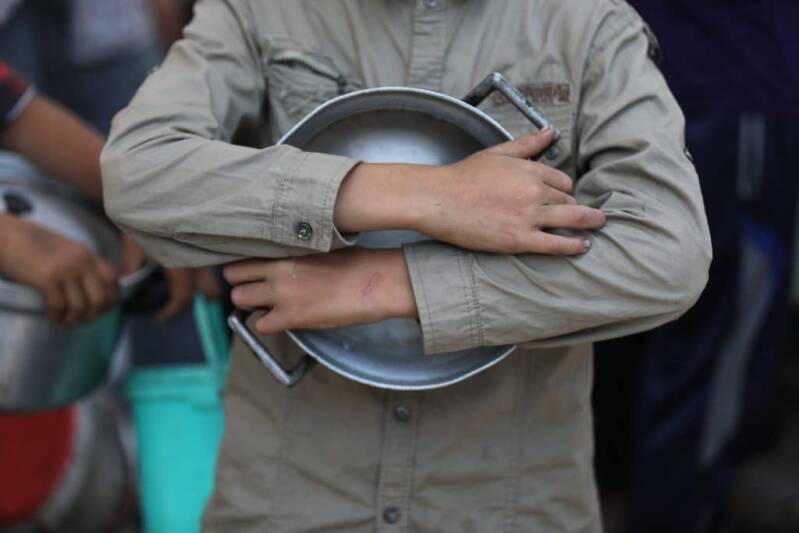
Hunger in Gaza is making us long for food that reminds us of ordinary days. A bowl of thin lentil broth might temporarily fill the stomach, but not the soul
1545.


5 juli 2025
Today's headlines
Every time I go to a U.S.-run ‘aid’ center in Gaza, I know I might not come back
Hassan Herzallah
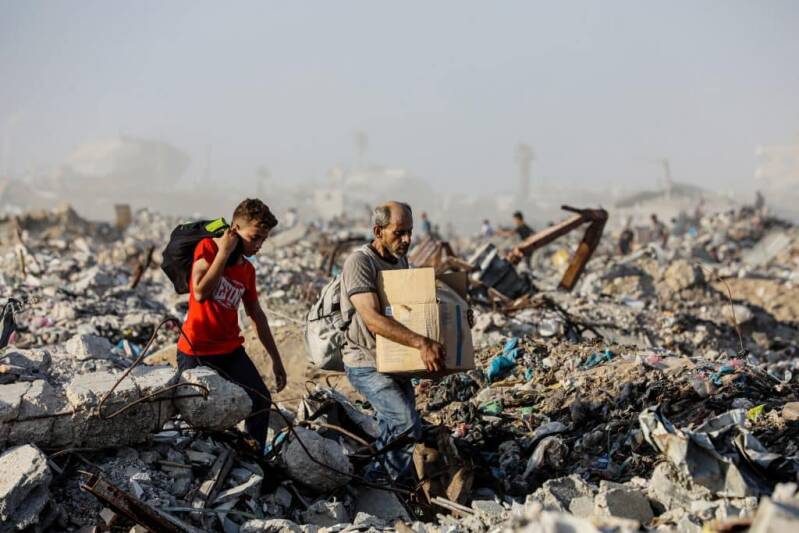
I have risked my life to get food from the Gaza Humanitarian Foundation centers in Gaza, where Israel opens fire on aid seekers from every direction. I have an impossible choice: slow death from hunger, or gambling my life for a chance of survival.
Read more
New week, Trump and Netanyahu will meet at the White House to plan their ‘New Middle East’
Mitchell Plitnick

On Monday, Donald Trump and Benjamin Netanyahu will meet to discuss the next steps in their plan to reshape the Middle East. Their vision includes expanding normalization, disarming adversaries, and ending any Palestinian aspirations for freedom.
1544.


4 juli 2025
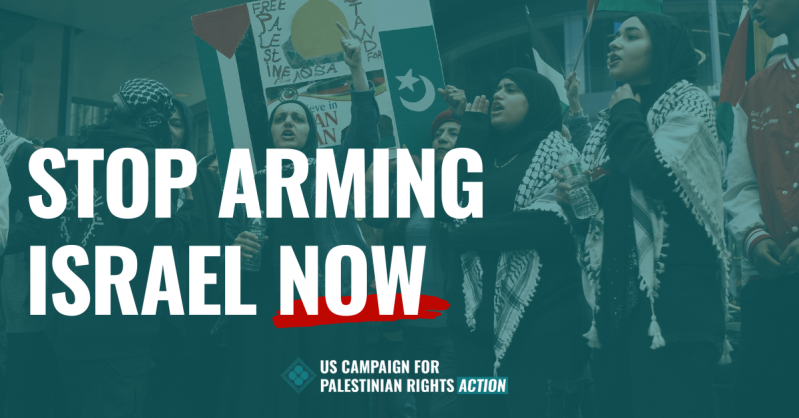
Your Activist Scoop
OUR GOVERNMENT'S GUILT

= U.S./Israeli-run concentration camps have distributed flour found to contain dangerous opioids to starved Palestinian families. Lacing humanitarian aid is bioterrorism, and a genocidal tactic to sicken and kill the population.
= At or near these U.S./Israeli-run sites, Israel has been shooting Palestinian people seeking aid on a near-daily basis for over five weeks, killing 600+ and wounding thousands. 19 members of Congress spoke up on U.S. complicity.
= Horrifying accounts reveal that U.S. private contractors have also fired live ammunition at Palestinian aid seekers.
= While claiming to negotiate a ceasefire, Trump armed the aggressor: He approved a $510 million weapons sale to Israel including 7,000 precision-guided bomb kits.
YOUR IMPACT
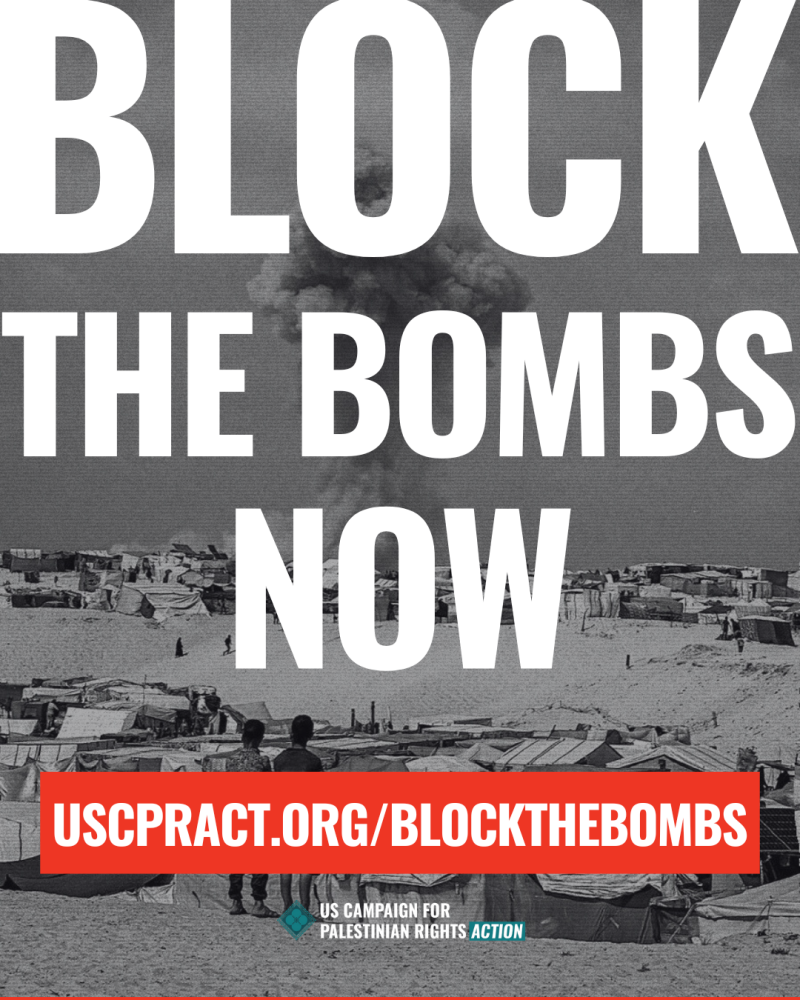
= In a major victory despite monied, racist opposition, Zohran Mamdani won the NYC Democratic mayoral primary. He’s known for supporting BDS and introducing the Not On Our Dime! Act. = You helped pressure Maersk, one of the largest shipping companies in the world, to stop transporting goods from illegal Israeli settlements. = A new UN human rights report has exposed corporations profiting from genocide, including Maersk, Chevron, Microsoft, and Palantir, in unprecedented detail. See the full report. READ MORE ABOUT THE UN REPORT
WHAT YOU CAN DO NEXT
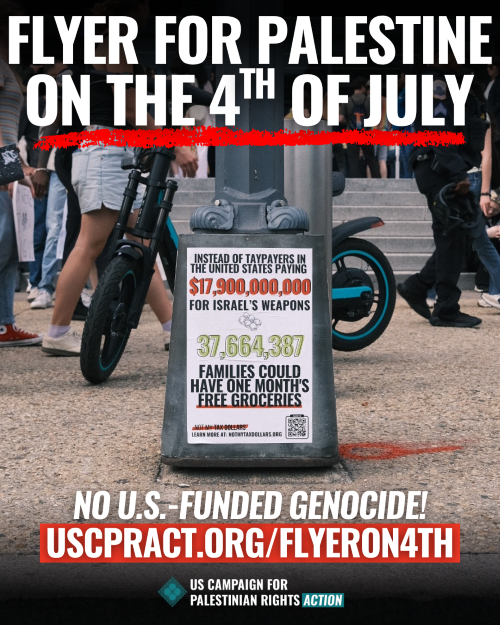
Onward to liberation,
AHMAD ABUZNAID
Executive Director
USCPR Action
1543.


4 juli 2025

Israel is waging a campaign to erase Palestine.
Massacres become “chaos.” Settler attacks are framed as “clashes.” Roads that divide Palestinian life are described as “infrastructure.” This is how Israel sanitizes its violence, and corporate media help it happen.
Mondoweiss breaks through the noise.
Our journalism is led by Palestinians, reporting directly from the ground. Our newsroom helps create our own narrative — one rooted in truth and justice.
Faris Giacaman, Palestine News Director
1542.


4 juli 2025
Today's headlines
Overwhelming majority of Jewish Israelis share genocidal belief there are ‘no innocent people in Gaza’
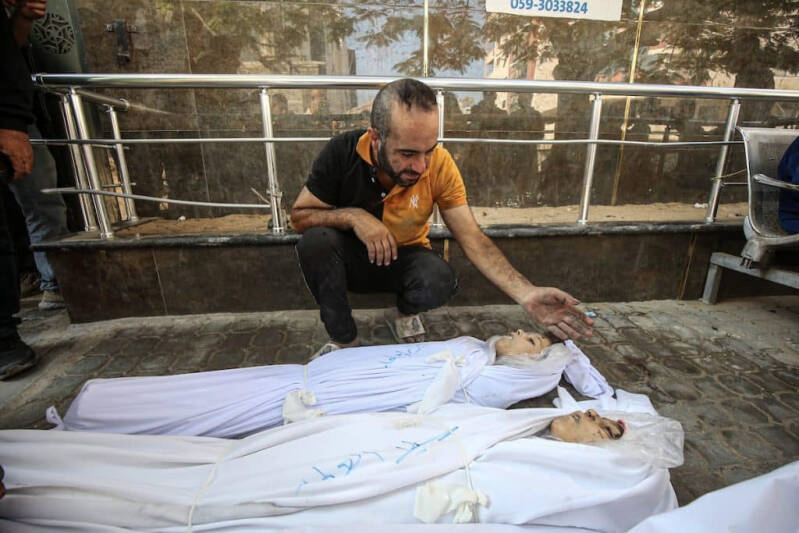
A Hebrew University poll shows an overwhelming majority of Jewish Israelis agree with the genocidal idea that there are “no innocents in Gaza.”
1541.


3 juli 2025

When the Trump administration came to power, it wasted no time attacking immigrant communities, racial justice organizers, and social movements fighting for liberation. And among its earliest targets was the Palestine movement.
The repression was swift and brutal—student activists rounded up by militarized police, protests criminalized, and campuses surveilled. But just as shocking was the justification offered: a fight against antisemitism.
What we witnessed was the U.S. government weaponizing Jewish suffering to silence those speaking out against genocide. The same language used to remember Jewish persecution was twisted to protect an apartheid state, and to punish who dared to name it.
Even more disturbing was the role of mainstream Jewish institutions, which lined up behind this effort. In the name of defending Israel, they cheered as people were censored, blacklisted, and arrested.
We simply can’t let them dominate the narrative.
Since the beginning, Mondoweiss has been clear: we reject Zionism, and we reject the idea that Jewish safety can only be secured through the domination and dispossession of another people.
In a media landscape where even progressive outlets avoid criticizing "Zionism," at Mondoweiss we publish what others are afraid to. And we provide the moral clarity that this moment demands: that antisemitism is not criticism of Israel, and that true solidarity means standing with Palestinians in their fight for liberation.
Over the years, our platform has helped shift the discourse, offering a political home for anti-Zionist Jews, building bridges between communities, and fueling a movement that refuses to accept silence, repression, or false equivalencies.
The scale of destruction in Gaza, the repression of students and journalists, and the moral bankruptcy of the mainstream response have opened more eyes than ever before. A growing number of Jews, and people of all backgrounds, are refusing to be silent. The chorus of dissent is louder, broader, and more courageous than it has ever been.
In solidarity,
Adam Horowitz
Mondoweiss
P.O. Box 442380, Detroit
1540.


3 juli 2025
The worst stage of 20 months of genocide.

As talk of a ceasefire deal continues, the Israeli military is intensifying its genocide across Palestine.
The Israeli government continues to starve all of Gaza, bombing those struggling to live among the rubble over and over. More than 600 Palestinians seeking food aid have now been massacred at U.S.-backed aid sites — an egregious war crime that has become a daily occurrence.
In the occupied West Bank, the Israeli military is accelerating its attacks and ethnic cleansing of Palestinian homes and villages, working in close coordination with violent far-right settlers.
Israeli politicians have made clear their intentions to continue the genocide regardless of whether a ceasefire deal is in place. But to read mainstream Western media, you would have no idea that this U.S.-backed genocide is in its worst stage of the last 20 months…
ACT NOW: Stop arming Israel.

The Israeli military is carrying out its genocide across Palestine with the full backing and funding of the U.S. government.
Right now, historic legislation has been introduced in the House that would block U.S. bombs to the Israeli military. Use this tool from our sister organization JVP Action to make sure that every single elected official hears from us: BLOCK THE BOMBS NOW.
What we're doing: JVP-Philadelphia occupies weapons manufacturer HQ.

On Wednesday, over 250 protesters with JVP-Philadelphia took over the headquarters of weapons manufacturer Day & Zimmerman, whose weapons are used by the Israeli military against Palestinians in Gaza. Dozens were arrested as they called for the U.S. to stop arming Israel.
What we're doing: JVP-Chicago hunger strike continues.

JVP-Chicago members are on Day 17 of their hunger strike to Stop Starving Gaza and Stop Arming Israel. Each day, they're holding community events to uplift their demands and call on their elected officials to stop U.S. support for genocide of the Palestinian people at the hands of the Israeli military.
Support the strikers
What we're reading.


No Other Land directors and activists Basel Adra and Yuval Abraham report on the latest in the Israeli government's accelerating ethnic cleansing of Palestinian villages in Masafer Yatta.
Read now
With nearly 100,000 subscribers, the Wire is one of the largest American publications dedicated to justice. Every week, we cover important news from Palestine, the United States, and the Palestine solidarity movement — and provide ways to take action.
Jewish Voice for Peace
P.O. Box 589
Berkeley, CA 94701
United States
1539.


3 juli 2025
Readers’ Recommendations
- ‘Death or food ’: The Palestinians killed by Israel at Gaza’s aid centers (Al Jazeera)
- US contractors say their colleagues are firing live ammo as Palestinians seek food in Gaza (AP)
1538.


3 juli 2025
American Muslims for Palestine Documents Mass Incarceration and U.S. Support for Israel’s Carceral Policies
American Muslims for Palestine (AMP) has released a new, data-driven report titled The Carceral History of Occupied Palestine, offering one of the most statistically comprehensive analyses to date of Israel’s incarceration practices in Palestine. Drawing on more than five decades of arrest records, military court data, demographic trends, aid appropriations, and prison statistics, the report provides an evidence-based account of how incarceration has functioned as a central pillar of Israel’s occupation.
Since 1967, Israeli authorities have arrested more than one million Palestinians—an average of 47 per day. Yet, prison populations have remained relatively stable, with the current number of Palestinian detainees at 10,068 as of May 2025. Despite these arrests, only 1,455 are currently serving time based on a conviction. Over 3,500 Palestinians are being held in administrative detention without formal charges or trial, based on secret evidence. The report documents a sharp increase in administrative detention since October 2023, with detainee numbers rising nearly sevenfold following the start of the war in Gaza.
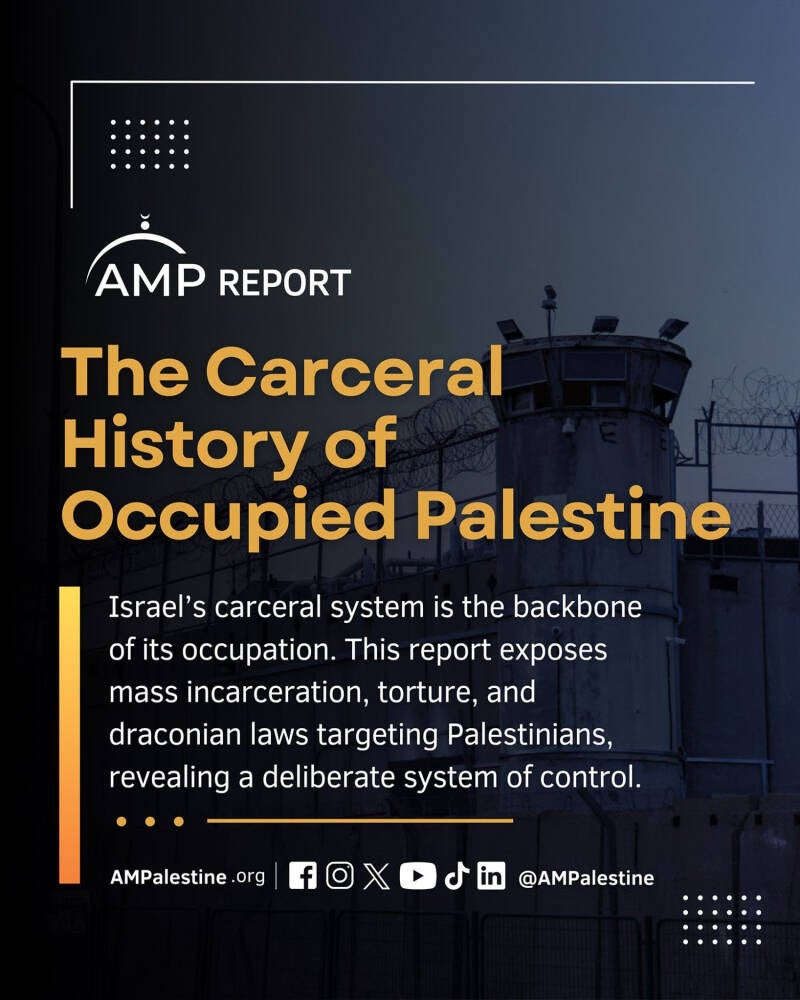
The report also outlines the dual legal systems that govern the occupied Palestinian territories. Palestinians are subject to Israeli military law, while Israeli settlers in the same areas fall under Israeli civilian law. Military courts for Palestinians operate with a conviction rate of 99.7 percent; meanwhile, their legal proceedings are conducted in Hebrew, without the promise of adequate translation or even the basic right to access evidence.
“This report demonstrates how incarceration is a core component of Israel’s harassment of the Palestinian population, and an essential element of Israel’s occupation infrastructure,” said Dr. Osama Abu Irshaid, Executive Director of AMP. “Policies that deny due process, detain children, and target civilians are not consistent with democratic values or international law. The continued use of American tax dollars, of which we've given more than $300 billion to date, to sustain these practices is an affront to human rights and basic sense.”
Since 1948, Congress has appropriated over $383 billion in inflation-adjusted aid to Israel, including a recent $14.1 billion supplemental package in April 2024. U.S. military financing enables weapons purchases through expedited commercial sales, with limited oversight or restrictions tied to human rights compliance.
The report also covers:
- The use of administrative detention, often renewed indefinitely and without trial.
- The detention and prosecution of children as young as 12, including legislation allowing life sentences for minors.
- Reports of torture and mistreatment in detention facilities, including cases of abuse documented by human rights organizations.
- The impact of Israel’s carceral policies on movement, family life, and access to education and healthcare.
The full report, "The Carceral History of Occupied Palestine," is now available. It includes citations, methodology sections, and access to the historical data collected for the report covering arrest rates, prison conditions, legislation, and U.S. aid.
In solidarity,
American Muslims for Palestine
Download Report
American Muslims for Palestine (AMP) is a nonprofit organization dedicated to engaging & educating Americans on Palestinian rights and the Israeli occupation.
1537.


3 juli 2025
Today's headlines
Israel is trying to expel us from Masafer Yatta. We refuse to leave our homes.
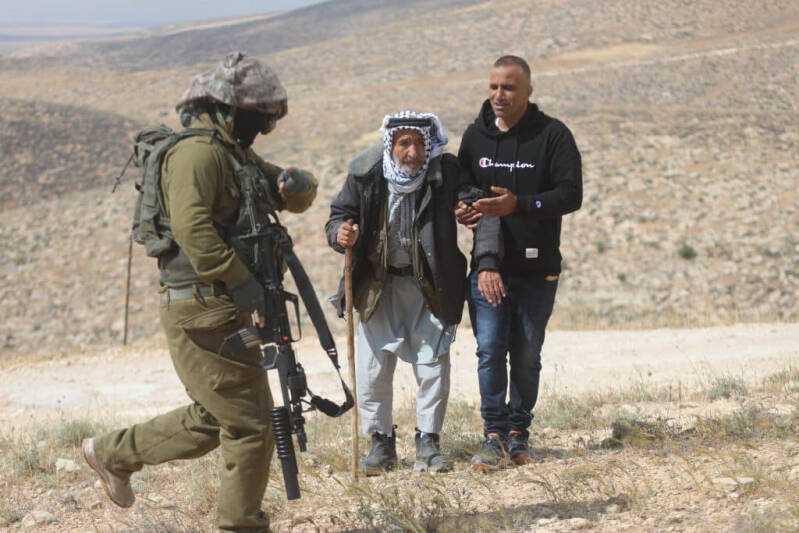
A recent Israeli military order threatens to displace 1,200 Palestinians from our homes in Masafer Yatta, but we refuse to be erased.
Palestinians in Masafer Yatta brace for what could be their final displacement
Qassam Muaddi

The Palestinian communities of Masafer Yatta have been in Israel's cross hairs for 40 years. Its inhabitants now fear that a recent Israeli military order is a bid to expel them from their lands once and for all.
1536.


3 juli 2025
Humanitarian Situation Update #302
Gaza Strip
2 July 2025
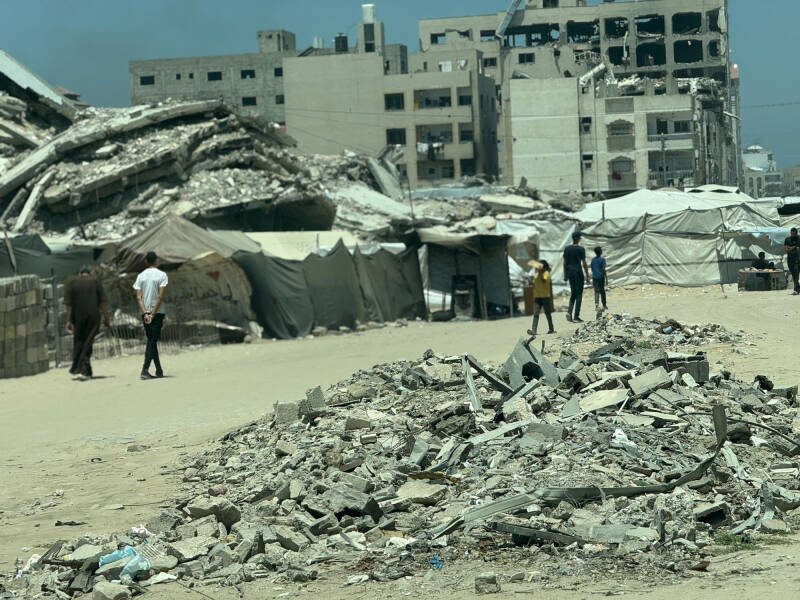
People carry drinking water at a displacement site in central Gaza. Without more fuel to power back-up generators, water extraction and desalination could soon grind to a halt. Photo by OCHA/Olga Cherevko
Key Highlights
- Attacks on tents and schools hosting displaced people and on people trying to access food continue to be reported, resulting in mass casualties.
- Over 714,000 people, or a third of Gaza’s population, have been displaced over the past three months.
- Fuel is running out, placing lifesaving services, including intensive care units and water production facilities, at risk of shutting down imminently.
- Without fuel, child protection workers have been forced to operate on foot, which delays urgent missions and places unaccompanied, separated and other vulnerable children at heightened risk.
- At least 107 aid workers have been killed since the start of 2025, including nine in the past week, bringing the total to 479 since October 2023, among them 326 UN staff.
Humanitarian Developments
- Since 18 March 2025, Israeli forces have escalated bombardment from the air, land and sea across the Gaza Strip and expanded ground operations. Fighting between Israeli forces and Palestinian armed groups has been reported. Attacks on tents and schools hosting internally displaced people (IDPs), and on people trying to access food continue to be reported (see below). Combined, this has resulted in hundreds of casualties, continued destruction of civilian infrastructure, and large-scale displacement.
- On 27 June, UN Secretary-General António Guterres said that people in Gaza “are being killed simply trying to feed themselves and their families,” with bombs “falling – on tents, on families, on those with nowhere left to run” and families “now confined to less than one-fifth of Gaza’s land.” At the same time, humanitarian operations are being strangled, “[d]octors are forced to choose who gets the last vial of medicine, or the last ventilator [and] aid workers themselves are starving,” he added. The UN Chief stressed that “we cannot allow the suffering of Palestinians in Gaza to be pushed into the shadows” and that “Israel, as the occupying Power, is required by international law, to agree to and to facilitate humanitarian relief.”
- On 1 July, more than 160 non-governmental organizations (NGOs) operating in Gaza issued an urgent call for immediate action to end the military-controlled food distributions, describing them as “deadly.” The NGOs warn that “Palestinians in Gaza face an impossible choice: starve or risk being shot while trying desperately to reach food to feed their families.” The statement describes how, under this scheme, “starved and weakened civilians are being forced to trek for hours through dangerous terrain and active conflict zones, only to face a violent, chaotic race to reach fenced, militarized distribution sites with a single entry point. There, thousands are released into chaotic enclosures to fight for limited food supplies.” The NGOs urge a return to the existing coordination mechanisms and call for the immediate lifting of the Israeli government’s blockade on aid and commercial supplies. The statement also cites concerns raised by the Sphere Association – the body that sets minimum standards for humanitarian aid – which has warned that the new distribution scheme does not adhere to core humanitarian standards and principles.
- On 2 July, the International Committee of the Red Cross (ICRC) expressed deep alarm at the intensification of hostilities over the past three days in Jabalya, in North Gaza, and Gaza city, noting that “Gaza’s already-decimated healthcare system [is struggling] to absorb the relentless surge in critical cases,” amid dangerously low levels of essential supplies, fuel and body bags that compromise the “ability to treat the wounded or ensure dignified management of the dead.” Reiterating its call for the protection of medical personnel and medical facilities in Gaza, ICRC added that displacement orders not only contribute to family separation and give little time for people to gather their few belongings, but they also hamper the ability of first responders to reach those in need and overwhelm the capacity of health centres located outside of those areas.
- According to the Ministry of Health (MoH) in Gaza, between 25 June and 2 July, 630 Palestinians were killed, and 2,353 were injured. Between 7 October 2023 and 2 July 2025, the MoH in Gaza reported that at least 57,012 Palestinians were killed, and 134,592 Palestinians were injured. This includes 6,454 people killed and 22,551 injured since the re-escalation of hostilities on 18 March 2025, according to MoH. The Ministry said that the cumulative figure, since October 2023, includes 223 fatalities who were retroactively added on 2 July 2025 after their identification details were consolidated and approved by a ministerial committee. According to MoH, casualties among people trying to access food supplies has increased to 640 fatalities and more than 4,488 injuries since 27 May 2025.
- Between 26 June and 1 July, nine aid workers were reportedly killed in Gaza, including three on 26 June, bringing the total number of aid workers killed to 107 since the start of 2025 and 479 since October 2023. This includes 326 UN staff, 48 PRCS, three ICRC and another 102 staff of humanitarian organizations. On 26 June, the Palestine Red Crescent Society (PRCS) reported that a nurse working at a PRCS clinic in Deir al Balah, was killed by an Israeli airstrike in the central Gaza Strip. On the same day, Action Against Hunger stated that two of its members were killed by an Israeli airstrike that occurred in a highly populated area in southern Gaza. On 27 June, the Palestinian Agricultural Relief Committees (PARC) reported that one of its staff was killed in an airstrike in Deir al Balah. Moreover, Fares Al Arab for Development, a Protection Cluster partner, stated that a female aid worker was killed on 30 June. On 1 July, another female working at PARC was reportedly killed along with 23 members of her family when their house was hit in North Gaza.
- The Israeli military continues to conduct intense military attacks on Al Mawasi area in western Khan Younis, many of which “appear to target directly makeshift tents” and kill entire families, while ordering Palestinians from other parts of Gaza to move to “known shelters” (in Al Mawasi), stated the UN Human Rights Office (OHCHR) in the OPT. The population of Al Mawasi, an area of roughly nine square kilometres, has more than tripled over the past three months, from about 115,000 to over 425,000, due to the continued issuance of displacement orders and intensified military operations in Rafah and Khan Younis. It currently has an estimated population density of nearly 48,000 people per square kilometre, almost all of whom are living in makeshift tents assembled with very basic materials. Between 18 March and 16 June 2025, OHCHR recorded 112 attacks on Al Mawasi, killing 380 people, including at least 158 women and children. Strikes on Al Mawasi area over the past week include:
- On 26 June, at about 1:00, five Palestinians were reportedly killed when an IDP tent was hit in western Khan Younis.
- On 28 June, at about 2:50, six Palestinians, including three females, were reportedly killed when an IDP tent was hit in western Khan Younis.
- On 29 June, at about 0:20, five Palestinians, including two females, were reportedly killed and others injured when a tent was hit in southwestern Khan Younis.

- Between 26 and 1 July, at least 10 schools sheltering IDPs were reportedly hit, including two that received a warning before being hit. The attacks resulted in the reported killing of 29 people, injuries, and the displacement of tens of families. However, many families have returned to some of the damaged schools due to the lack of alternative shelters. Key incidents include:
- On 26 June, a school sheltering IDPs was hit in Ash Sheikh Radwan neighbourhood in northern Gaza city, reportedly killing nine Palestinians, including a woman and several of her children, and injuring others.
- On 27 June, a school sheltering IDPs in As Saftawi in North Gaza was hit, reportedly killing eight Palestinians, including five children, and injuring others.
- On 30 June, an UNRWA school-turned-shelter in Gaza city was hit by Israeli forces, destroying one of the school's buildings and causing damage to another building and the medical point inside the school.
- On 1 July, an UNRWA school-turned-shelter, sheltering 550 people, was hit in Deir al Balah, reportedly killing two people and injuring others.
- Mass casualties have continued to be reported daily over the past five weeks, as people approached or gathered near militarized, non-UN distribution sites or waited on routes designated by the Israeli authorities for the UN to collect trucks carrying aid. On 1 July, MoH in Gaza reported that between 27 May and 28 June, 583 people have been killed including children (16 per cent), women (two per cent) and the elderly (two percent). This includes 408 people killed in incidents linked to the militarized distribution sites and 175 killed while waiting for aid convoys. Describing the violence that Palestinians are subjected to at these distribution sites, Médecins Sans Frontières (MSF) noted that its medical teams have noticed a stark increase in the number of patients with gunshot wounds following frequent violence and attacks at and around the aid distribution sites. MSF emergency coordinator in Gaza added: “If people arrive early and approach the checkpoints, they get shot. If they arrive on time, but there is an overflow and they jump over the mounds and the wires, they get shot. If they arrive late, they shouldn't be there because it is an ‘evacuated zone,’ so they get shot.”
- Between 25 June and 1 July, other incidents resulting in fatalities include:
- On 25 June, at about 17:00, eight Palestinians, including women and children, were reportedly killed and others injured when a residential building was hit in Ash Shuja’iyyeh area, in eastern Gaza city.
- On 27 June, at about 10:30, at least 10 Palestinian males were reportedly killed, and others injured near a school in At Tuffah neighbourhood, in eastern of Gaza city. The location was reportedly hit again when people had gathered to provide first aid.
- On 27 June, at about 14:40, 10 Palestinians were reportedly killed and others injured when a house was hit in Jabalya al Balad, in North Gaza.
- On 27 June, at about 22:00, 13 Palestinians were reportedly killed and others injured when multiple apartments in a building were hit in central Gaza city.
- On 28 June, at about 14:00, 11 Palestinians, including four children, were reportedly killed and others injured when a makeshift market stand in a public market was hit in At Tuffah neighbourhood, in eastern Gaza city.
- On 27 June, at about 20:00, at least 14 Palestinians, comprising a family of 10, a married couple and their children and including eight females, were reportedly killed when an IDP tent was hit in Al Rimal neighbourhood, in western Gaza city.
- On 29 June, at about 16:50, at least 17 Palestinians, including 11 females and of whom 12 are from the same family, were reportedly killed and dozens were injured when two adjacent residential buildings were hit in Jabalya an Nazlah, in North Gaza.
- On 30 June, at about 10:30, at least 10 Palestinian males were reportedly killed and others injured when a commercial barrack was hit in Az Zaytoun neighbourhood, in Gaza city.
- On 30 June, at about 14:30, some 33 Palestinians, including at least 10 females, a journalist and other social media influencers, were reportedly killed and dozens were injured, many critically, when a café, located on the beach of Gaza city was hit. The café is a well-known public venue, widely recognized as a social and cultural gathering place for residents of Gaza city.
- On 1 July, at about 11:10, 10 Palestinians, including at least four females and one child, were reportedly killed and 15 others were injured when a residential building was hit in western Khan Younis.
- On 1 July, at about 15:00, at least 23 Palestinians, including children and 15 females, were reportedly killed and others injured when a residential building was hit in Az Zaytoun neighbourhood, in southern Gaza city.
- Between 25 June and 2 July, two Israeli soldiers were killed in Gaza, according to the Israeli military. Between 7 October 2023 and 2 July 2025, according to Israeli forces and official Israeli sources cited in the media, more than 1,637 Israelis and foreign nationals were killed, the majority on 7 October 2023 and its immediate aftermath. This includes 437 soldiers killed, in addition to 2,745 soldiers injured, in Gaza or along the border in Israel since the beginning of the ground operation in October 2023. Of these, 30 soldiers were killed and 161 injured since the re-escalation of hostilities on 18 March 2025. As of 2 July, it is estimated that 50 Israelis and foreign nationals remain captive in Gaza, including hostages who have been declared dead and whose bodies are being withheld.
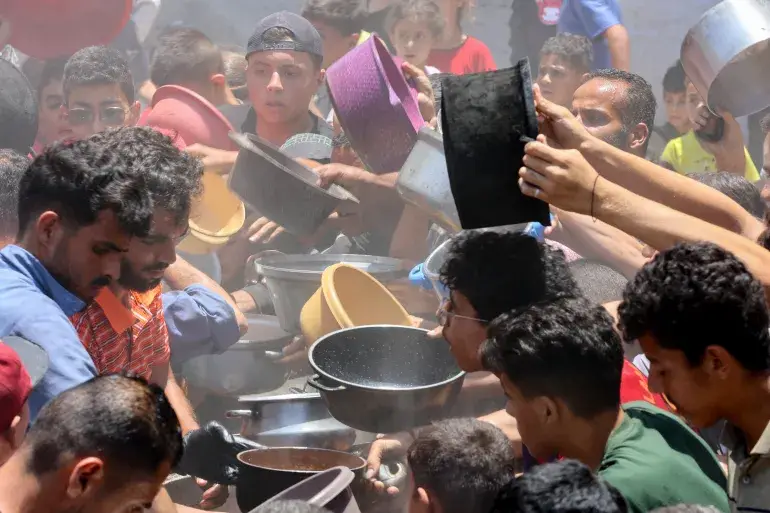
Shrinking Humanitarian Space
- In vast areas across the Gaza Strip, humanitarian teams are required to coordinate their movements with the Israeli authorities. Between 25 June and 1 July, out of 85 attempts to coordinate planned aid movements across the Gaza Strip, nearly 27 per cent were denied by Israeli authorities, 14 per cent were initially accepted but faced impediments, including blocks or delays on the ground potentially resulting in missions being aborted or partially accomplished, 47 per cent were fully facilitated, and 12 per cent were withdrawn by the organizers for logistical, operational, or security reasons. These include 41 attempts to coordinate aid movements in or to northern Gaza, of which 44 per cent (18) were facilitated, 34 per cent (14) were denied, five per cent (two) faced impediments, and 17 per cent (seven) were withdrawn. In southern Gaza, out of 44 attempts, 50 per cent (22) were facilitated, 20 per cent (nine) were denied, 23 per cent (10) faced impediments and seven per cent (three) were withdrawn.
- A total collapse of humanitarian operations is imminently expected if no fuel enters the Gaza Strip. All the quantities of retrieved fuel from accessible reserves within Gaza have been allocated to humanitarian partners and operations, leaving no fuel supplies currently available for distribution. As a result, life-saving services, including health, water and sanitation, telecommunications and protection services are at imminent risk of shutting down, including inter alia:
- Food supply delivery and distribution, heightening the risk of famine.
- 72 of 90 health facilities and 25 ambulances points, jeopardizing the continued operation of Intensive Care Units (ICU), neonatal ICUs, and dialysis, ambulance and vaccine services. The remaining facilities are reducing their operations, relying on the very limited remaining stock of fuel.
- Water production, sewage, and solid waste management services, with many already scaled down, threatening public health.
- A telecommunications blackout, threatening aid delivery, coordination and civilian safety.
- Lifesaving rescue missions and road clearance operations.
- Collection of aid cargo from crossings.
- Between 25 June and 2 July, the Israeli military issued three displacement orders for parts of Khan Younis, Deir al Balah, North Gaza and Gaza governorates. Combined, the orders cover 14.4 square kilometres. The Site Management Cluster (SMC) reported that 28,660 people were displaced between 29 and 30 June. Since 18 March, the Israeli military has issued 50 displacement orders, placing about 282.4 square kilometres under displacement orders (78 per cent of the Gaza Strip). According to the SMC, more than 714,000 Palestinians in Gaza were displaced between 18 March and 1 July. With no safe place to go, many people have sought refuge in overcrowded displacement sites, makeshift shelters, damaged buildings, streets and open areas. People have been confined to ever-shrinking spaces; as of 2 July, 85 per cent of the Gaza Strip is within Israeli-militarized zones or placed under displacement orders (they largely overlap) since 18 March.
- Since 18 March, 61 attacks on schools have been reported, according to the Education Cluster. In addition to the physical destruction, the attacks have intensified fear among parents, children, and teachers, eroding confidence in the safety of school environments and discouraging participation in ‘education in emergency’ activities. Recurrent attacks on school infrastructure, ongoing bombardment and the issuance of displacement orders have also constrained the ability of education partners to operate and expand alternative learning spaces. Since 18 March, partners have been forced to suspend or relocate services at 139 temporary learning spaces (TLS) serving 24,316 students due to funding constraints. In addition, 190 TLS suspended operations due to hostilities since 18 March, affecting over 73,000 learners. While the number of functional TLS and learners’ enrolment continue to fluctuate given the volatile conditions, as of 2 July, 298 TLS serving 113,000 students are operating across the Gaza Strip, including eight in North Gaza, 106 in Gaza, 93 in Deir al Balah, 91 in Khan Younis and none in Rafah. This is compared with 570 TLS that were operational during the ceasefire in February, serving 249,000 learners. TLS not only offer the possibility of continued informal education, but they also serve as spaces for carrying out structured recreational activities to provide children with moments of relief and joy, nurture hope, and reinforce their resilience amid ongoing adversity. As such, according to the Education Cluster, the prolonged disruption of education in Gaza, worsened by the destruction of learning spaces, is having severe short- and long-term effects on children. In the immediate term, thousands are missing out on essential learning, losing routine and protection, and facing heightened risks to their mental health and safety. Over time, these setbacks will limit access to higher education and employment, threatening to create a lost generation and further entrenching hardship and inequality across communities.
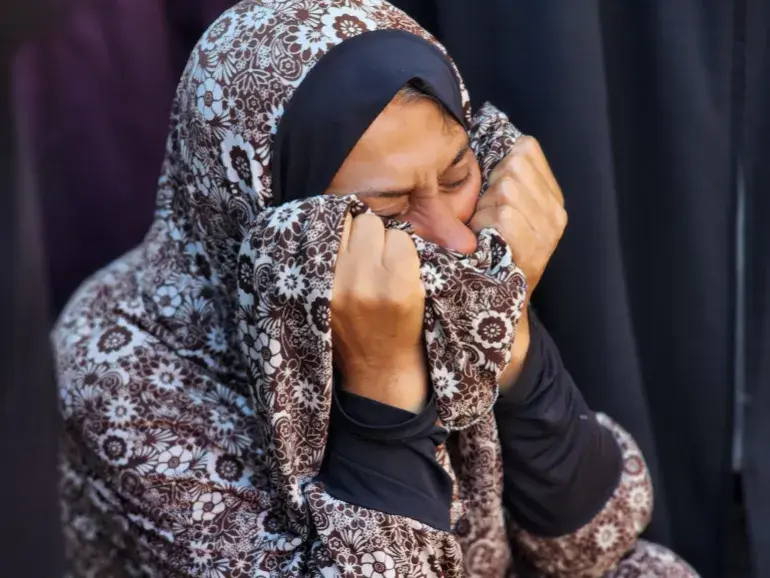
Worsening access to health care
- The Head of the Paediatrics Department at Al-Nasr Al-Rantisi Children's Hospital in Gaza, Dr. Ragheb Wersh Agha, has warned of a sharp rise in meningitis, with hundreds of cases recorded at the hospital in recent weeks. MoH General Director, Dr. Munir Al Bursh, reported that 337 meningitis cases have been recorded, including 259 viral cases. Dr. Wersh Agha indicated that this increase is deeply concerning, particularly amid the collapse of Gaza’s health system and the catastrophic living conditions. “We are seeing a daily rise in meningitis infections, driven by severe shortages of clean water and hygiene supplies – conditions that are fuelling the spread of disease, especially in overcrowded shelters lacking the most basic public health standards,” Dr. Wersh Agha stated. He added that health-care facilities in Gaza are under unprecedented strain due to the ongoing blockade, the systematic destruction of health infrastructure, and the mass displacement into overcrowded areas, where even basic life essentials and health care are unavailable. Dr. Warsh Agha stressed that this overcrowding significantly increases the risk of infectious diseases outbreaks, including meningitis, while hospitals and clinics face acute shortages of medicines, antibiotics, and protective supplies.
- On 25 June, for the first time since 2 March, the World Health Organization (WHO) supported a total of 12 trucks from WHO and health partners carrying essential medical supplies, including blood units, to be distributed to priority health services points in Gaza. According to the Health Cluster, the blood (1,396 units) and plasma (1,550 units) were delivered to the Nasser Medical Complex’s cold storage facility for onward distribution to hospitals facing critical shortages, while the other supplies will be distributed to priority hospitals in the coming days. However, this represents only a fraction of what is needed to meet the overwhelming health needs on the ground.
- On 30 June, a tent sheltering IDPs in the courtyard of Al Aqsa Hospital in Deir al Balah was reportedly hit, injuring five people, including two journalists, according to WHO. The hospital’s internal medicine department and its oxygen supply line sustained damage.
- On 1 July, the MoH announced that Shifa Medical Complex suspended dialysis services due to a critical fuel shortage, limiting its operations to only a few hours of intensive care and putting patients’ lives at severe risk. On 2 July, WHO delivered 3,000 litres of diesel from its remaining reserve in northern Gaza to Al-Shifa Hospital, aiming to prevent the shutdown of critical services. According to MoH, the received fuel would allow the resumption of dialysis services for the coming days. WHO added that one operating theatre is down, dialysis sessions have been cut from 3 to 2 days per week per patient, and the oxygen plant has stopped, forcing reliance on cylinders. MoH General Director, Dr. Munir Al-Bursh, described this as one of the most difficult decisions a doctor can face – deciding who will die first. He added that patients unable to receive haemodialysis will suffer from toxin buildup in their bodies, leading to death. Dr. Marwan Al-Hams, Director of Gaza Hospitals, stated that there are 1,200 kidney failure patients currently in Gaza, and that nearly 50 per cent of kidney failure patients have died since October 2023.
- After three weeks of no medical evacuations, on 2 July, WHO completed the evacuation of 19 child patients and 39 companions to Jordan and four patients and seven companions to Türkiye. WHO Director-General, Tedros Adhanom Ghebreyesus, stated that “during the evacuation, strikes near the convoy damaged the bus, ambulances and vehicles transporting the patients, their companions, and WHO staff,” but no injuries were reported. Since October 2023, WHO has supported the evacuation of more than 7,300 patients from Gaza to receive critical medical care outside the Strip. However, since 18 March, only 338 patients have been medically evacuated abroad, which represents just a small fraction of the more than 10,000 patients who remain in urgent need of medical evacuation.

Deteriorating food security
- The World Food Programme (WFP) field monitors continue to report overwhelming desperation for food amid deteriorating food security facing Gaza’s 2.1 million people, and limited aid entry, with many surviving on one meal or less per day. Widespread hunger and scarcity have led people to offload food supplies from convoys before they reached their intended destinations, while attacks on large crowds of people trying to access food continue (see above). Between 26 and 30 June, WFP and its partners assisted about 6,000 households in Gaza city with a food parcel or a bag of flour each. During the same period, the United Arab Emirates, through its bilateral aid programme and in coordination with partners, reached 7,000 additional households with food parcels. As of 30 June, with limited food stock recently brought into southern and central Gaza through Kerem Shalom crossing, 260,000 meals were being prepared and delivered daily through 81 kitchens – 107,000 meals in the north and 153,000 in central and southern Gaza.
- Amid ongoing shortages, the food production and food systems in Gaza have been decimated. For instance, a new factsheet by the Palestinian NGOs Network (PNGO) highlights the devastating impact of the crisis on Gaza’s beekeeping sector. Over 76 per cent of the vegetation that bees depend on for nourishment has been destroyed, while 27,000 out of 30,000 beehives – over 90 per cent of total capacity – have been lost. As a result, annual honey production has plummeted from approximately 250 to just 20-25 metric tons. The severe shortage has driven local honey prices up; when available on the market, a kilogramme of honey costs more than 150 shekels (US$44), up from about 70 shekels ($21) prior to October 2023. The destruction of this vital sector underscores the broader collapse of Gaza's food systems and the urgent need for unimpeded humanitarian access to save livelihoods and food production.
Rising acute malnutrition levels
- The nutrition situation in the Gaza Strip continues to deteriorate, in line with the dire food security situation. The latest analysis of the mid-upper arm circumference screenings among children aged six to 59 months indicate an increase in acute malnutrition rates across all governorates between May and mid-June. Since March, proxy rates of acute malnutrition have been multiplied by two to four times, depending on the governorate, with the most severe increases observed in Deir al Balah and Khan Younis. In the absence of large-scale entry of food, the depletion since the end of June of nutrition supplies, including supplements and ready-to-use complementary food, is expected to aggravate these conditions. Moreover, health surveillance system reports show a sharp increase in acute watery diarrhea and other diseases, which could further contribute to secondary malnutrition. The deaths of two children linked to secondary malnutrition were confirmed in the past week.
- Hospitals have also warned of the depletion of infant formula and other breast milk substitutes for infants who cannot be breastfed, despite their efforts to maintain breastfeeding. Hospitals and health centres play a central role in supporting these children, as infant formula must be used only in controlled circumstances. Incorrect use of infant formula – especially in settings with limited access to safe water and basic hygiene supplies – can lead to serious illness, increase the risk of secondary malnutrition (which occurs not primarily due to insufficient food intake, but because of disease or medical conditions that impair the body's ability to absorb or utilize nutrients), and raise the risk of death. To protect infants, mothers who are experiencing breastfeeding difficulties or using formula, bottles or teats have been advised to refer to qualified health workers for counselling and support. The Nutrition Cluster urges that any procurement of breastmilk substitutes should be coordinated through relevant clusters and channeled through the health system, noting that such products should never be distributed freely to the general population.
Energy crisis
- A new report, based on an assessment conducted by the Shelter Cluster and the Norwegian Refugee Council’s (NRC) NORCAP programme at the end of 2024, reveals the devastating impact that the absence of reliable energy has on daily life and essential services in Gaza. “In Gaza, energy is not about convenience – it’s about survival,” says Benedicte Giæver, Executive Director of NORCAP. “[E]nergy is one of the invisible threads that hold together family life and essential services—powering kitchens, hospitals, water pumps, food preparation, and humanitarian logistics. Without it, even the most basic forms of assistance become impossible." The report notes that prior to the escalation of hostilities in October 2023, an average household consumed 200-300 kilowatt-hour (kWh) per month for lighting, cooking, and running appliances, according to the Palestinian Central Bureau of Statistics in 2023. Since then, that figure has dropped to less than 50 kWh per month, reflecting widespread dependence on limited and often unreliable alternative energy alternatives, such as small solar home systems, car batteries, and shared generators, insufficient to meet even the most basic household needs. For many, energy use is now limited to essentials, such as mobile phone charging for communication or powering basic lighting. More than 90 per cent of households report having access to electricity for less than four hours per day.
- The report highlights how power outages cripple health-care services by disabling ventilators, incubators, dialysis machines, and vaccine cold chains and hamper the operation desalination and sewage plants. To prepare meals, most households rely on firewood – purchased or gathered – while others burn wooden pallets originally used for aid deliveries or burn old furniture and municipal waste, including plastic. Overcrowded shelters without lighting increase risks of gender-based violence (GBV) and restrict mobility after dark. Furthermore, fuel shortages and power cuts disrupt humanitarian operations, impeding aid delivery, such as food distributions, communication, and coordination. Emphasizing that basic energy services could be restored if access were allowed, Jan Egeland, Secretary General of the Norwegian Refugee Council, stated: “The lack of energy – whether in the form of electricity, cooking fuels, or sufficient generator capacity – is not a consequence of scarcity but a result of persistent and deliberate restrictions.”

Child protection
- Ongoing bombardment, mass displacement, and the collapse of public services have left children without safe care or access to basic services. Families are fragmented, psychosocial distress is widespread, and services for children, especially those with disabilities, have been largely destroyed. As of 30 June, nearly one-fourth of all child-friendly spaces (47 out of 197) in Gaza have been forced to suspend services, affecting 23,500 children. In June, partners witnessed a sharp rise in child protection concerns, including child labour, family separation, and neglect. A growing number of children, including child heads of households, are being pushed into increasingly precarious situations to help their families survive, including child labour or gathering in large crowds in search of food supplies, including at militarized distribution sites.
- Child protection partners continue to deliver life-saving child protection services across Gaza despite major operational constraints that hinder their ability to provide comprehensive care and to link children with essential multisectoral services. Provided services include mental health and psychosocial support (MHPSS) for children and caregivers, case management, emergency care for children without parental care, family tracing, and reunification. With no fuel available, much of this work is now being carried out on foot, severely limiting outreach and delaying or forcing the cancellation of urgent missions. On 29 June, with UNICEF support, Child Protection partners established a new residential care shelter in An Nuseirat, in northern Deir al Balah, to provide urgent protection for children, including unaccompanied and separated ones (UASC). This initiative responds to the increasing number of family separation cases observed in recent months, particularly around aid distribution points, where increasing numbers of UASC – who require emergency shelter while family tracing is underway – are being identified. To promote children’s right to safety and family unity, in June, 32 children (including 16 girls) benefited from family reunification services, and 23 children without parental care (including 10 girls) benefited from emergency family and community-based alternative care. So far in 2025, partners have helped to reunite 1,233 children with their families.
- While the need for emergency care continues to grow, alternative care providers are facing critical challenges that place children at heightened risk of exposure to a range of protection risks (see above). Constraints include a lack of adequate shelter capacity, food shortages for children in care, and severe fuel shortages that affect water supply, cooking, and the ability to safely operate shelters. Kinship care, a vital form of alternative care, is also under pressure as families lack the cash support needed to care for UASC. Children with disabilities in care face heightened risks due to the absence of assistive devices and inclusive services, limiting their mobility, access to support and safety. Additionally, nutrition support for children under five in care is a major concern given acute shortages of appropriate food and therapeutic supplies needed to address and prevent malnutrition.
Gender-based violence
- According to the latest trends analysis on GBV, covering April and May 2025, the GBV Area of Responsibility (AoR) and partners report that such risks in Gaza have intensified. This is primarily driven by displacement, scarcity of resources including food, and the breakdown of protective family and community structures. While GBV incidents were reported across all five governorates, the highest proportion (40 per cent) occurred in Deir al Balah, which can be attributed to the concentration of service providers in that area and the issuance of displacement orders that has hindered access to other locations. The most prevalent form of GBV was the denial of access to essential services and opportunities, with the most affected group being women aged 18 to 59 years, 52 per cent of whom reported denied access to services, reflecting heightened pressure on women to provide for their families amid extreme scarcity. The GBV AoR additionally highlights that forced marriage, including child marriage and rape, remains significantly underreported due to limited movement, stigma, fear of retaliation, lack of information about available services, and the collapse of the justice system. The most requested services during the reporting period were livelihood support and dignity kits, which are unavailable owing to the continued blockade on the entry of a range of supplies.
1535.


2 juli 2025
Humanitarian Situation Update #301
West Bank
2 July 2025
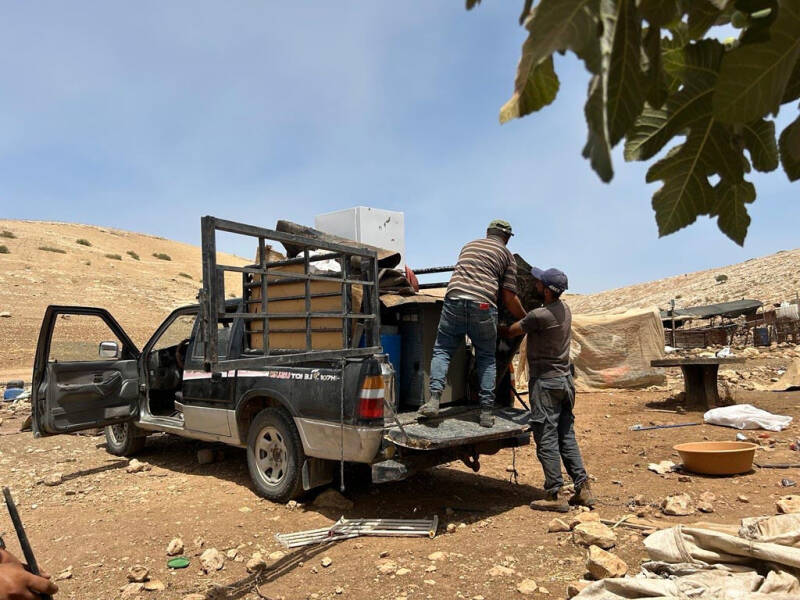
Residents of the Palestinian herding community of Ein al Hilwa – Wadi al Faw dismantling their homes and other structures following recurrent attacks and intimidation by Israeli settlers, which restricted their access to water sources and grazing areas. Photo by OCHA
Key Highlights
- On 25 June, five Palestinians were killed by Israeli forces, including three in a large-scale settler attack on Kafr Malik village, in Ramallah governorate, during which Israeli settlers set fire to, and threw stones at, homes and other property.
- Some 740 settler attacks in the first half of 2025 affected over 200 Palestinian communities across the West Bank, resulting in property damage and the injury of 340 Palestinians by Israeli settlers.
- The month of June recorded the highest monthly number of Palestinians injured by Israeli settlers (95) in the past two decades – an average of three Palestinians injured per day.
- Israeli authorities carried out a mass demolition incident in Tell al Khashaba herding community in the Jordan Valley, displacing five households. This is the third mass demolition incident in the community since the beginning of 2025.
- The Israeli military issued a demolition order against 104 structures in Tulkarm refugee camp.
Humanitarian Developments
- Between 24 and 30 June, five Palestinians, including one child, were killed by Israeli forces in the West Bank. During the same period, at least 49 Palestinians, including two children, were injured, of whom 27 were injured by settlers and 22 by Israeli forces. The following are details of the incidents that resulted in fatalities, all of which took place on 25 June:
- Israeli forces shot and killed a 15-year-old Palestinian boy in a search operation in Al Yamun village, in Jenin governorate, during which Palestinians reportedly threw an improvised explosive device toward Israeli forces, who fired live ammunition. No injuries among Israeli forces were reported.
- A member of Israeli forces shot and killed an elderly Palestinian woman during an operation in Shu’fat refugee camp, in East Jerusalem, while she was standing on the balcony of her home. According to community sources, the incident occurred at about 1:00 a.m., during a large-scale Israeli incursion into the camp. Israeli forces withheld the body of the woman for two days before returning it to the family. According to the Israeli police cited by the media, an undercover police officer was hit by a stone during the incident and Israeli forces opened fire in response to stone throwing at them.
- Three Palestinians were killed in a large-scale settler attack involving arson in Kafr Malik village, in Ramallah governorate (see below for details).
- On 30 June, a 22-year-old Palestinian detainee from Jenin, who was detained in March 2024, died in an Israeli prison. According to the Palestinian Commission of Detainees' Affairs, his death has raised to 26 the number of Palestinian detainees from the West Bank who have died in Israeli custody since 7 October 2023. As of June 2025, according to data provided by the Israel Prison Service (IPS) to Hamoked, an Israeli human rights NGO, there are 10,397 Palestinians in Israeli custody, including 1,447 sentenced prisoners, 3,174 remand detainees, 3,562 administrative detainees held without charge or trial, and 2,214 people held as “unlawful combatants.”
- On 29 June, Israeli forces shot and injured a Palestinian man, and physically assaulted and injured another, while they were trying to enter Israel and East Jerusalem through informal openings in the Barrier near Meitar checkpoint, in Adh Dhahiriya in Hebron governorate. Since October 2023, when Israeli authorities revoked or suspended most permits issued for Palestinian workers and others to gain access to East Jerusalem and Israel, OCHA has documented 96 incidents where Palestinians were killed or injured while trying to cross through informal openings in the Barrier, resulting in the killing of 12 Palestinians by live ammunition and the injury of 125 others. These include 33 incidents documented since the beginning of 2025, which resulted in two fatalities and 43 injuries. The incidents are recurring amid a significant deterioration in labour market conditions in the West Bank in the aftermath of 7 October 2023, with over 300,000 jobs lost by mid-2024, according to the UN Trade and Development organization (UNCTAD), and a spike in unemployment from about 13 per cent to an average of about 35 per cent between October 2023 and September 2024, according to the Interim Rapid Damage and Needs Assessment (IRDNA) issued by the World Bank, European Union, and UN.
- Between 24 and 30 June, Israeli forces issued four requisition orders against 22,300 dunums (5,510 acres) in Nablus, Tubas and Jenin governorates for security reasons, including the establishment of military roads, as follows: 13,525 dunams (3,342 acres) in Burqa village, 6,274 dunams (1,550 acres) in Burin and Tell villages, and 2,400 dunums (593 acres) in Huwara, all in Nablus governorate; 56 dunums (14 acres) in eastern Tubas city; and 45 dunums (11 acres), southeast of Jenin city. All lands are privately owned by Palestinians.
- Between 24 and 30 June, OCHA documented at least 28 settler attacks against Palestinians that resulted in casualties, property damage, or both. These attacks led to the killing of three Palestinians by Israeli forces and the injury of 37 others, including 10 by Israeli forces and 27 by Israeli settlers. In addition, more than 400 olive trees and saplings and 12 vehicles were vandalized. Key incidents included:
- In the evening hours of 25 June, dozens of Israeli settlers, accompanied by Israeli forces, stormed Kafr Malik village, in Ramallah governorate, setting homes and other property on fire and throwing stones. Two homes were partially burnt, two sustained damage by stone throwing, and four vehicles were fully burnt. Israeli forces fired live ammunition and rubber bullets, killing three Palestinians with live ammunition and injuring 10 others, including seven with live ammunition, two by shrapnel and one by rubber bullets. Israeli military jeeps also reportedly blocked the access of ambulances, obstructing the evacuation of the injured. One of the killed was a 34-year-old Palestinian father of two who, according to community sources, was shot in the head at point-blank range at the entrance to his home; at the time he was shot, the man was evacuating his wife and children along with other families in the area where homes were attacked and set on fire. According to the Israeli military, as cited in the media, Palestinians from the village fired at them and threw stones. One Israeli soldier was reported as injured by a stone, but it remains unknown if he was injured by Palestinians or Israeli settlers. The Israeli military reportedly arrested five settlers, who were released the following morning.
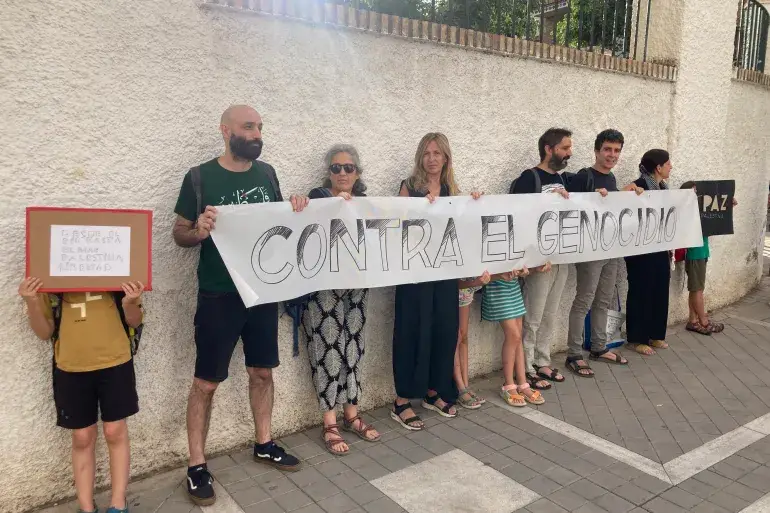
-
- In the evening hours of 25 June, a group of armed Israeli settlers attacked Dar Faza'a Bedouin community, in eastern Ramallah governorate, while residents were gathering to pray in the community’s praying hall. The settlers used flammable materials to set fire to property, damaging one home, destroying two vehicles, and causing damage to a cultivated plot of land, a wood storage room, stacks of wood and plastic sheets covering one of the residential structures. Several house windows were also shattered by stones thrown by settlers. Seven Palestinians, including three women, suffered from smoke inhalation as they tried to evacuate the attacked homes and were treated by paramedics who reached the area following the withdrawal of Israeli settlers.
- On 25 June, Israeli settlers believed to be from a nearby outpost, attacked Palestinian farmers while they were working on their agricultural lands on the western outskirts of Al Mazra’a al Sharqiya town, in Ramallah governorate. The settlers reportedly opened live fire, forcing farmers to flee for safety except one farmer who was physically assaulted and injured by Israeli settlers. Settlers vandalized one vehicle and several agricultural structures and stole another vehicle, whose owner had run for safety.
- In the afternoon hours of 25 June, a group of Israeli settlers, believed to be from an outpost near Yitzhar settlement and one of whom was armed, obstructed firefighting efforts to put out a fire in Asira al Qibliya village, in southern Nablus governorate, firing live ammunition in the air, and throwing stones at emergency responders, residents and homes. A 64-year-old Palestinian was injured by a stone. After the settlers were seen being escorted out of the village by Israeli forces, Palestinians were able to extinguish the fire.
- In the afternoon hours of 29 June, Israeli settlers riding four vehicles and two quad bikes shot and injured three Palestinians with live ammunition during an attack on Palestinian herders on the eastern outskirts of Hizma village, in Jerusalem governorate. Israeli settlers attempted to seize the families’ sheep, triggering confrontations, in which settlers fired live ammunition at Palestinians. In addition, settlers set fire to a wooden, agricultural structure, before reportedly fleeing the area under the protection of Israeli forces.
- Between 24 and 30 June, Israeli settlers raided Susiya village, in Hebron governorate, four times. In total, they injured four Palestinians, including three due to physical assault and one woman with a stone, set fire to and destroyed a metal structure used as a kitchen, uprooted 150 olive trees, and destroyed three solar lights, three surveillance cameras and a 500-metre fence with metal poles.
- In the first half of 2025, OCHA documented about 740 attacks perpetrated by settlers against Palestinians that led to casualties or damage to property, affecting over 200 communities across the West Bank, primarily in Ramallah, Nablus and Hebron governorates. This is a daily average of four incidents, similar to the frequency observed in 2024, the highest year on record of settler incidents that resulted in casualties or property damage. Among others, these incidents led to the injury of 492 Palestinians, including 340 (69 per cent) by Israeli settlers, 146 (30 per cent) by Israeli forces, and six where it remains unknown if they were injured by Israeli forces or settlers. Of the total, 95 were injured by Israeli settlers in June 2025, an average of three Palestinians a day, marking the highest monthly total of Palestinians injured by Israeli settlers documented by OCHA in the past two decades, with the second highest total recorded in October 2023, when 70 Palestinians were injured.
- On 30 June, six Palestinian households of the same extended family, comprising 28 people, including nine children, have begun dismantling their homes and livestock structures in Ein al Hilwa – Wadi al Faw community, near Khirbet Samra in the northern Jordan Valley, citing recurrent attacks and intimidation by Israeli settlers, including restricted access to water sources and grazing areas. The households, who have been living in this area for more than two decades, reported being subjected to repeated raids, threats and acts of intimidation by Israeli settlers, believed to be from recently established outposts in the area. Since the beginning of 2025, OCHA documented 93 settler incidents in the Jordan Valley that resulted in casualties or property damage, more than half of which were in Tubas governorate in the northern Jordan Valley. Overall, more than 2,300 Palestinians across the West Bank have been displaced since October 2023, citing settler violence and access restrictions.

- Between 24 and 30 June, OCHA documented 10 demolition incidents in Area C and two in East Jerusalem for lacking Israeli-issued building permits, which are almost impossible to obtain. In total, 35 structures were demolished, including six inhabited homes, one uninhabited residential structure, 12 agricultural structures, eight livelihood structures, five water and sanitation structures and three other structures. Consequently, six households comprising 30 Palestinians, including 16 children, were displaced and some 85 people were otherwise affected. Of the displaced, five households were in the Jordan Valley, in Tell al Khashabah herding community in Nablus governorate (see below), and one household comprising eight people, including six children, was in Hizma town, in Jerusalem governorate, where Israeli forces demolished a house, an animal shelter and a wall. During the first half of 2025, 741 structures, including about 149 homes, were demolished in Area C for lacking Israeli-issued building permits and 716 people were displaced, compared with 429 structures demolished and 368 people displaced in the first six months of 2024. In East Jerusalem, 97 structures, including 54 homes, were demolished for lacking Israeli-issued building permits and 286 people were displaced in the first half of 2025, compared with 99 structures demolished and 213 people displaced in the first six months of 2024.
- In the morning hours of 30 June 2025, Israeli forces, accompanied by Israeli Civil Administration officials and several bulldozers, demolished 13 structures in Tell al Khashaba herding community (with an estimated population of about 125 people), in Area C of Nablus governorate in the Jordan Valley, for lacking Israeli-issued building permits. The demolition displaced five herding families comprising 22 people, including 10 children and five women, one of whom is 83 years old. The demolished structures included four residential tents and barracks, six animal structures with metallic fencing, and three mobile latrines. During the demolition, about 15 animal fodder sacks and seven water tanks were vandalized. This is the third mass demolition incident in Tell al Khashaba community since the beginning of 2025, which cumulatively involved the demolition 48 structures, including 22 that were provided as humanitarian assistance.
- Following the start of the military escalation between Israel and Iran on 13 June, Israeli forces have kept some key checkpoints and road gates open only for limited hours, negatively affecting the daily life of Palestinians, including access to livelihoods, markets, and emergency services. For example, in Salfit governorate, the gate at the main entrance to Salfit city (pop. 13,000), which was previously closed, has been open for ten hours a day, from 7:00 to 11:00 and 14:00 to 20:00, forcing thousands of people in nearby communities to make a long detour of about an hour through Al Lubban ash Sharqiya town, in Nablus governorate, to access services in the city during the times when the gate is closed. The northern entrance to Salfit city, on the Yasuf-Iskaka road, has also been closed over the past two weeks. Similarly, access to Nablus city and nearby towns has been especially constrained, with slow checking procedures and delays of up to five hours facing thousands of Palestinians crossing via most of the checkpoints, such as Beit Furik checkpoint, the only entrance to more than 20,000 people living in Beit Furik and Beit Dajan villages.
- For key figures and additional breakdowns of casualties, displacement and settler violence between January 2005 and April 2025, please refer to the OCHA West Bank April 2025 Snapshot.

Northern West Bank Operations
- Since 13 June, following the start of the military escalation between Israel and Iran, OCHA documented 36 incidents whereby Israeli soldiers took over roughly 267 Palestinian homes (inhabited or uninhabited housing units) for periods ranging from several hours to a few days, in Ramallah, Hebron, Nablus, Tubas, Tulkarm and Jenin governorates. These include 237 housing units whose residents were temporarily evacuated in the six governorates in the northern West Bank.
- On 24 June, Israeli forces carried out a 19-hour raid into Ya’bad town, in Jenin governorate, where it temporarily evacuated 12 families from their homes and turned them into military posts, searched about 100 homes, and arrested five Palestinians. According to the municipality, Israeli forces also stole money and gold from several homes. During the operation, Israeli forces imposed curfew on the town and forced local shops to close, severely disrupting the movement of about 18,000 residents. The following day, Israeli forces evacuated one family from another house on the eastern outskirts of the town and temporarily converted it into a military post, before withdrawing.
- Overnight on 25 June, Israeli forces carried out a seven-hour operation in Tammun town, in Tubas governorate, where they searched and caused damage to homes, detained some residents and interrogated them at one of the homes, and imposed curfew on the town’s 15,000 residents.
- As of 30 June, Israeli forces have continued to intensify their presence in Jenin city, establishing flying checkpoints at three key locations within the city (in Area A), including An Nasra Street, Al Askari, and the road leading to the Al Jalama checkpoint. Using military jeeps, they regularly stop and search Palestinian residents, checking their IDs and vehicles. In two separate incidents on 28 and 29 June, Israeli forces took over two residential buildings comprising four housing units, near Jenin camp, and three other homes in the eastern neighbourhood of the city, converting them into temporary military outposts, affecting nearly 35 people who were forcibly evacuated from their homes. While some have returned to their homes after several hours, others remain displaced as of the time of reporting.
- In Jenin refugee camp, since the issuance of demolition orders against 96 structures on 9 June, local sources have reported several waves of demolitions, involving bulldozers, that remain ongoing as of the time of reporting. Affected areas include Mahyub street and Abdallah Azzam and Al 'Awda neighbourhoods. On 28 June, local sources indicated seeing smoke after hearing sound detonations. On 30 June, an Israeli bulldozer was seen demolishing a multi-storey building near the camp’s eastern entrance, which comprises multiple commercial stores and homes for nine families, according to Jenin Municipality. The boundary wall of Jenin Governmental Hospital nearby also sustained minor damage. The Municipality additionally reported that requests through the Palestinian District Coordination Liaison (DCL) for the families to retrieve their belongings ahead of the demolition were denied by the Israeli authorities. Overall, the exact number of structures that have so far been demolished remains unverified as entry to the camp remains barred by Israeli forces.
- In Tulkarm refugee camp, on 30 June, Israeli forces resumed demolition operations following a pause reported on 18 June. According to local sources, Israeli bulldozers demolished two residential structures comprising at least eight housing units. On the same day, Israeli authorities issued and delivered new demolition orders targeting 104 residential structures inside the camp. According to the Palestinian General Authority for Civil Affairs (Pal-GACA), Israeli authorities provided a map highlighting the 104 marked homes and an initial list of 50 affected residential structures. Residents of these 50 homes have been briefly permitted by Israeli authorities to retrieve some of their belongings this week ahead of planned demolition operations. Meanwhile, demolitions in Nur Shams camp are ongoing but the area remains a closed military zone and totally inaccessible.
- Highlighting the human toll of prolonged displacement from Jenin, Tulkarm and Nur Shams refugee camps in the northern West Bank, Médecins Sans Frontières (MSF) published a briefing note that draws on nearly 300 interviews with displaced people in mid-May across 17 locations and other operational data. Findings show that nearly half of displaced people have been displaced at least three times between January and May, with repeated displacement and uncertainty driving up mental health needs, especially among women and children. One in three could not reach a doctor when needed due to the high cost, long distance or lack of transport, and roughly half reported inconsistent access to food and water. Moreover, at times when Israeli forces granted limited access to displaced families to retrieve their belongings, they were subjected to shootings, assault and detentions and some found their homes burned, looted or occupied; families reported more than 100 such incidents to MSF. To address some of the needs, MSF has deployed mobile medical teams at 42 public sites, displacement shelters and health centres run by the Ministry of Health, offering primary healthcare services to more than 2,200 people and mental health support, among others. Noting that 22 per cent of displaced families who were interviewed, have reported that they have not received any assistance, MSF called for an urgent scale-up of assistance to address critical gaps and for the facilitation of safe, voluntary and dignified returns of forcibly displaced refugees.
1534.


2 juli 2025
As millions of Americans prepare to celebrate “freedom” this July 4th, we are reminded that these celebrations take place at the expense and exploitation of millions of Indigenous, Black, and brown people who have never been allowed to enjoy true freedom under the U.S. settler-colonial project.
We are also reminded that as many watch fireworks light up the sky here in the U.S., the sky in Gaza is being lit up with U.S.-made and supplied bombs destroying everything in their path.
The U.S., like other colonizing nations, has attempted to sanitize its history and justify its violent state-building project through the construction of a national mythology rooted in values like “freedom”, “liberty”, and “democracy”. But these values ring hollow when they have never been applied to Black and brown people, Indigenous communities, immigrants, and queer and trans people.
In Israel, the U.S. finds a mirror, reflecting the same settler-colonial history predicated on the expulsion, extermination, and subjugation of Indigenous people.
Ending U.S. complicity in the Israeli occupation and genocide requires a recognition and condemnation of the same systems the United States has been founded upon – systems that have been designed to allow an elite, white supremacist class to consolidate power and resources at our expense.
This is why from Turtle Island to Palestine, our fight for freedom and justice is one.
By working to dismantle the Israeli occupation and apartheid regime in Palestine, we are pushing the U.S. and all settler-colonial nations into existential crisis, and creating an opening for other oppressed peoples to achieve freedom and liberation.
A critical step in advancing this work is ending U.S. support of the Israeli genocide of Palestinians in Gaza by demanding our government stop arming Israel.
In June, Representatives Ramirez, Jacobs, Jayapal, and Pocan introduced the Block the Bombs Act in the House, legislation that would block the Trump administration from delivering some of the worst-offender weapons to Israel used in its mass killing and starvation campaign in Gaza.
This is a historic bill, marking the first time ever that Congress has tried to proactively block weapons to Israel.
This week, the Trump administration announced a new $500 million weapons sale to Israel. The package includes weapons that have been used by Israel to carry out some of its most heinous attacks in Gaza. We must put pressure on Congress to act urgently and prevent future weapons transfers.
None of us are truly free when our money and resources are being stolen from us to kill and harm our communities at home and abroad. The work to free Palestine is the work to free us all. But freedom requires survival – we must fight to save Palestinian lives by blocking the bombs to Israel now.
Until we are all truly free,
Alia El-Assar
Director of Media Organizing
Adalah Justice Project
1533.

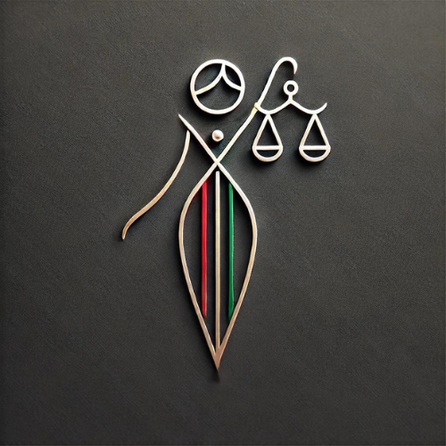
2 juli 2025
This weekend, the Hind Rajab Foundation filed new elements in our case against Benjamin Netanyahu’s “Executioner of Gaza”, Brigadier General Yehuda Vach. Alongside his 2 brothers, Colonel Golan Vach, and Captain Elishav Vach, have come to be known by human rights observers as Israel’s “first family of genocide.”
Because of your support, we were able to gather new evidence that established the direct and indirect involvement of Brigadier General Vach in a series of additional atrocities, substantiating his role as a central operational architect of Israel’s most serious violations of the laws of war.
The Vach brothers are collectively implicated in war crimes, forming a militarized faction operating with full political protection from Netanyahu’s office. In light of our new evidence, and in accordance with Articles 58 and 25 of the Rome Statute, we additionally called on the Office of the Prosecutor of the ICC to:
- Initiate the necessary procedures for the issuance of arrest warrants against Brigadier General Yehuda Vach, Colonel Golan Vach and Captian Elishav Vach, in accordance with Articles 58 and 25 of the Rome Statute
- Recognize the three brothers as central figures in the field implementation of a broader state-sponsored policy of systematic and widespread attacks against the civilian population of Gaza, as defined under Article 7 of the Rome Statute
- Consider their actions within the framework of genocidal intent, pursuant to Article 6 of the Rome Statute and customary international law
With your help, we can continue to compile the full criminal file of Yehuda Vach and his two brothers - every name, every order, every victim.
Together, we will ensure that the families of the victims are heard and that justice is served.
War criminals like Yehuda Vach will be held accountable and justice for the Palestinian victims of this genocide is non-negotiable.
WHAT ELSE YOU CAN DO?
Help us stay independent:
We rely on regular donors to make our work possible. Please support our work today & set up a monthly or one off donation.
Help us grow our audience:
Follow us on X and Instagram. Share and like and please ask your network to do the same!
1532.


2 juli 2025
Hello. Dozens of companies — including some of the world’s biggest — are profiting from Israel’s war on Gaza and its expanding illegal settlements in the occupied West Bank, according to a new report issued by United Nations Special Rapporteur Francesca Albanese. We look at the companies named, including Microsoft, Amazon and Google’s parent company, Alphabet Inc.

UN report lists companies complicit in Israel’s ‘genocide’: Who are they?
Several US giants are among the companies aiding Israel. European, Chinese and Mexican firms are implicated, too.
1531.

AVAAZ
2 juli 2025
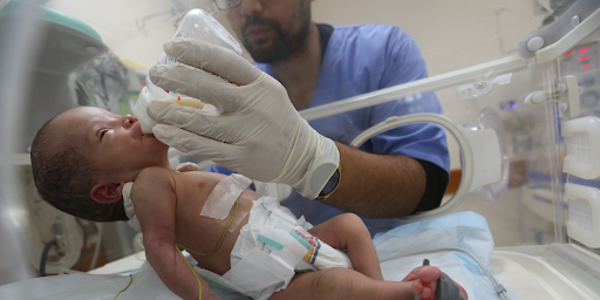
Terwijl je dit leest lopen ruim 580 te vroeg geboren baby’s onmiddellijk het risico om te verhongeren. We moeten snel handelen en zorgen dat er geen enkel kind meer sterft!
Internationale druk heeft er al voor gezorgd dat Netanyahu beperkt noodhulp heeft toegelaten, waaronder een klein beetje babyvoeding. Maar het is verre van genoeg!
Het is genoeg geweest! We moeten een einde maken aan deze nachtmerrie en het onvoorstelbare lijden van de mensen en kinderen in Gaza.
Sluit je nu aan! Artsen zullen onze oproep rechtstreeks aan de belangrijkste overheden overhandigen. Samen eisen we dat overheden sancties opleggen en de druk op Netanyahu opvoeren, om levensreddende humanitaire hulp toe te laten en voor eens en altijd een einde te maken aan de bezetting.
Avaaz-team
1530.


1 juli 2025
Readers’ Recommendation
- Israeli strike on Gaza seafront cafe kills at least 20 Palestinians, witnesses and rescuers say (BBC)
1529.


1 juli 2025
Democratic Party lawmakers are refusing to endorse Zohran Mamdani and are spreading lies about him in the process
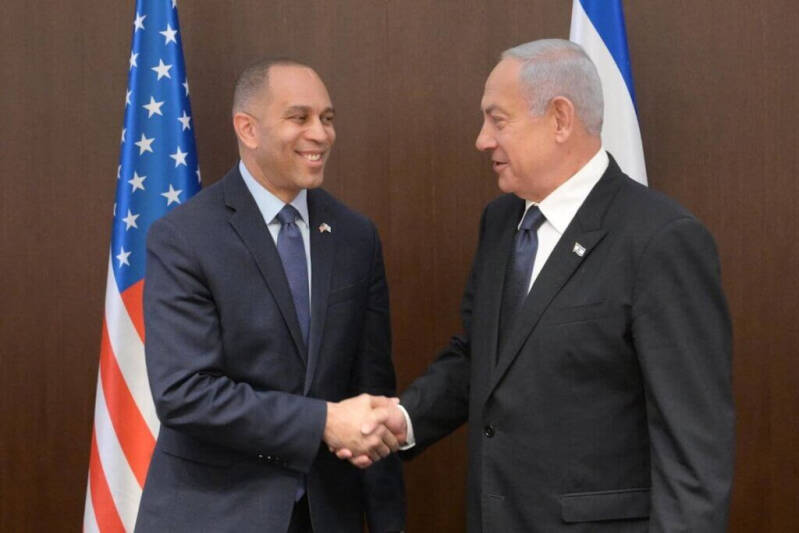
Despite his decisive primary victory and impressive campaign, many Democratic lawmakers are refusing to endorse Zohran Mamdani and are spreading baseless lies and smears in the process.
1,500 Israeli soldiers will attend Jewish summer camps in North America this year — we must oppose this normalization of genocide
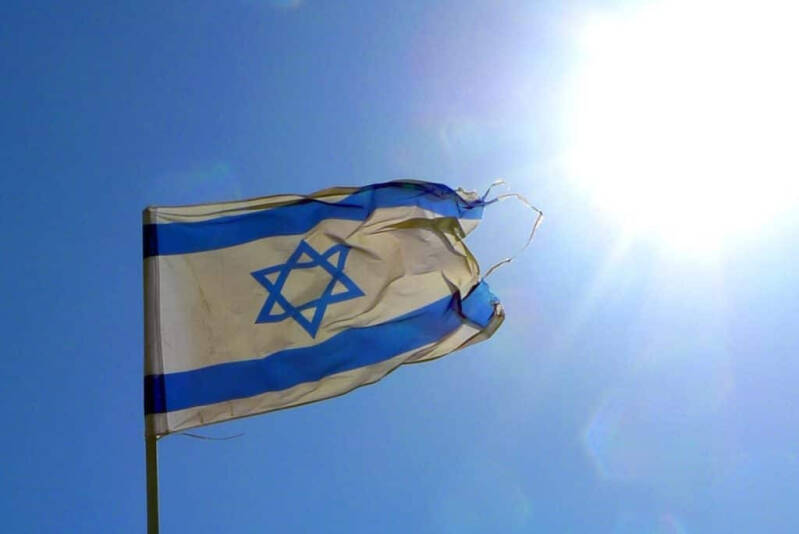
This summer, 1,500 Israeli soldiers will attend Jewish summer camps across North America. They will act as ambassadors for Israel as it carries out ethnic cleansing across Palestine. The Jewish community must reject this normalization of genocide.
1528.


1 juli 2025

Since Mondoweiss launched in 2006, we’ve been an unwavering voice against propaganda and misinformation—from the halls of Washington to the streets of Gaza. Today, the drums of war are beating once again. War hawks surrounding Donald Trump are baying for blood, eager to fulfill Israel’s most violent ambitions and drag the Middle East and the world into catastrophe.
We’re watching the same tired playbook unfold: vague claims of weapons of mass destruction, calls to bomb democracy into the region, and the framing of Israel as the perpetual victim defending itself against an existential threat. This time, it’s Iran. And once again, we’re told that war is inevitable, necessary, and righteous.
Even as most Americans reject more endless wars, our media and political establishments still have not learned. Mainstream outlets are once again laundering pro-war talking points, echoing the imperialist narratives that led us into Iraq.
Since Israel launched its assault on Iran, we’ve published urgent reflections from Iranians in the diaspora, legal analysis from human rights experts, and critical coverage about the impact of these events on Palestinians living under Israeli apartheid.
And throughout all of this, we have not turned away from Gaza. Every day, we continue to document Israel’s ongoing campaign of terror: the daily massacres of civilians seeking food and aid, the continuous annexation of land in the West Bank, the deliberate starvation of a besieged population.
Mondoweiss connects the dots others ignore. Israel’s colonial project is not confined to Gaza or the West Bank. It is a U.S.-backed imperial campaign that spans the region. To stop it, we must confront and undermine the narrative that sustains it.
Thank you,
Yumna Pate
1528.
